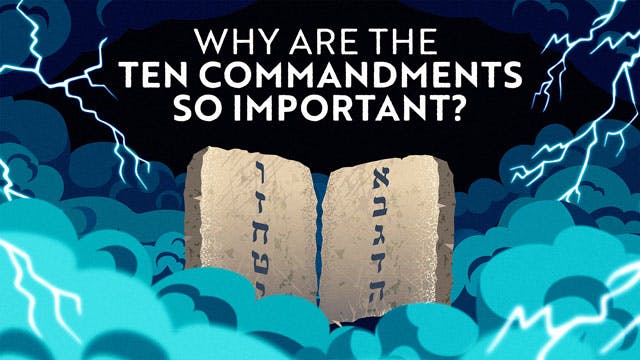Genesis // Bereishit
Bereishit Torah Portion: Genesis 1:1–6:8
God creates the world! Adam and Eve are banished from the Garden of Eden, and their son Cain murders his brother Abel.
See the full summary and Parsha home page here.

Why Did God Create Me?
It’s one of life’s biggest questions. A surprising verse in Parshat Bereishit may hold the key to uncovering our true purpose.
12 min

What Does The Torah Say About Marriage?
Is Jewish marriage sexist? Does the Bible really think that women are the property of their husbands? This video explores the Bible's very first marriage between Adam and Eve – and may change the way that you understand love and attraction in your own life.
9 min

The Tree Of Knowledge: The Introduction To The Story of The Bible
Do the stories in the Torah have anything to do with each other or are they just random events? What do Cain and Abel have to do with the Tree of Knowledge? This video introduces the radical idea that the Torah really is telling one big, interconnected story. Come see for yourself.
15 min
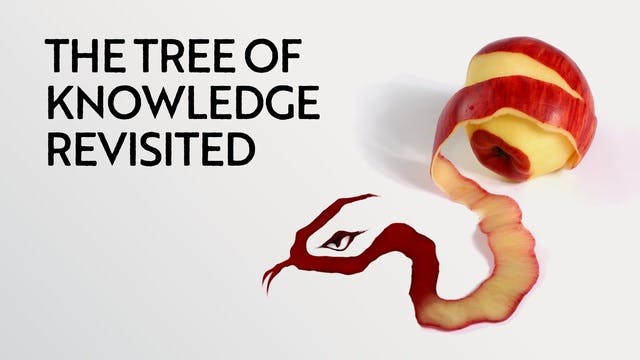
The Beast That Crouches At The Door Revisited
An epilogue to Rabbi Fohrman's critically acclaimed book, The Beast That Crouches at the Door, the following lecture finds new answers to some of those burning questions asked around the story of the Tree of Knowledge of Good and Evil. Rabbi Fohrman's innovative answers help redefine what it means for man to have a loving relationship with God.
Part 1 of 2 • 1 hour, 4 min

Genesis Unveiled
The stories in Genesis are familiar, but their meanings seem maddeningly elusive. Why would God deny us the knowledge of Good and Evil? Surely it is better to know right from wrong? Why did God destroy mankind – what happened to repentance? Revisit each story in Genesis through a new perspective, and discover their underlying powerful messages.
Part 1 of 76 • 9 min

What Is The Meaning Of Life?
The most fundamental question we all want to answer is this one: What is the meaning or purpose of our lives? Rabbi Fohrman argues that the answer lies at the very beginning of the Bible, in Genesis.
Part 1 of 7 • 34 min

The Tree Of Life Vs The Tree Of Knowledge
Knowing Good and Evil What does it mean for us to recognize God as our King, Master of the universe? In this series, Rabbi Fohrman examines the early chapters of Genesis to discover just what God's mastery is all about – and what it really means to recognize it. Discover other great Rosh Hashanah videos at Aleph Beta, including ‘How To Prepare For Rosh Hashana”, “How To Do Teshuva”. and “Akeidah: The Story Of Abraham & Isaac”
Part 1 of 8 • 53 min

A Brief History Of The World: From Adam To Abraham
A Brief History Of The World: From Adam To Abraham in Genesis
Part 1 of 11 • 57 min

The Cherubs' Secret: How To Read The Biblical Creation Story
This series is recorded live at the Young Israel of Woodmere, in October of 2015.
Part 1 of 4 • 1 hour, 14 min
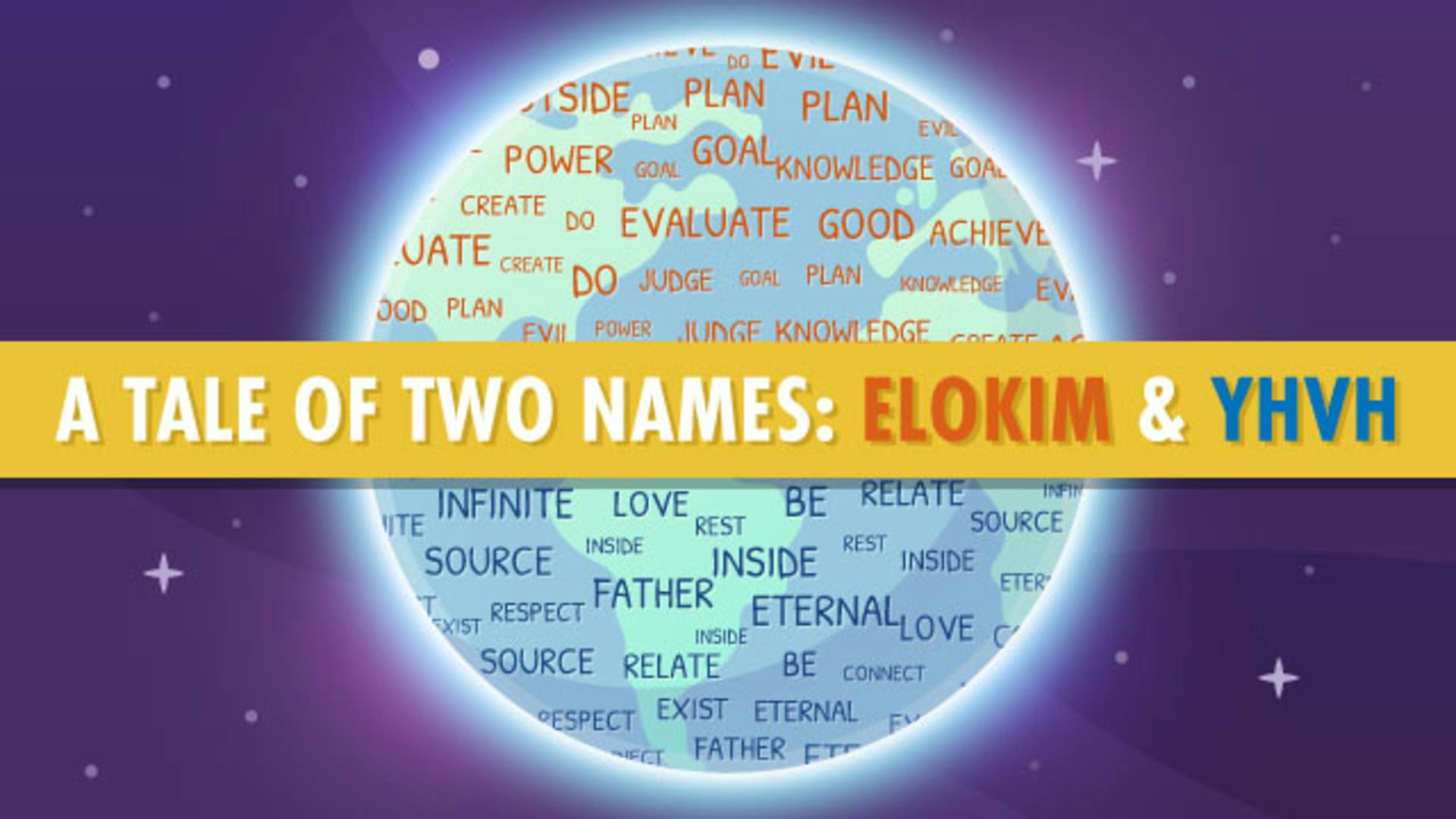
A Tale Of Two Names: Elokim And YHVH
The Bible uses many names to refer to God, the two most well-known being Elokim and YHVH (an unpronounceable name composed of the Hebrew letters <em>yud-hey-vav-hey</em>). What do these names mean, and why do they appear when they do? This is one of the Bible's greatest mysteries. Perhaps even more mysterious is that we find the highly uncommon "YHVH Elokim" — a combination of these two names — in the Bible's opening pages: in the story of God's creation of the world. Join Rabbi Fohrman for an exploration of what these names mean on their own, what they mean in combination, and how understanding God's names can, perhaps, help us to lead more godly lives.
Part 1 of 12 • 1 hour, 17 min

Did God Really Need To Rest? Shabbat's Role In Judaism
One of the most sacred traditions in Judaism is our weekly celebration of Shabbat, our “day of rest,” when we commemorate that God “rested” after His six days of creation. But wait–why would an omnipotent God need to rest? Yes, He created the universe – but He’s infinitely powerful! And why would we celebrate Shabbat by emulating the day God rested, not the mind-blowing six days of creation before it? What did God do on His day of rest that was so incredible?
Part 1 of 4 • 8 min
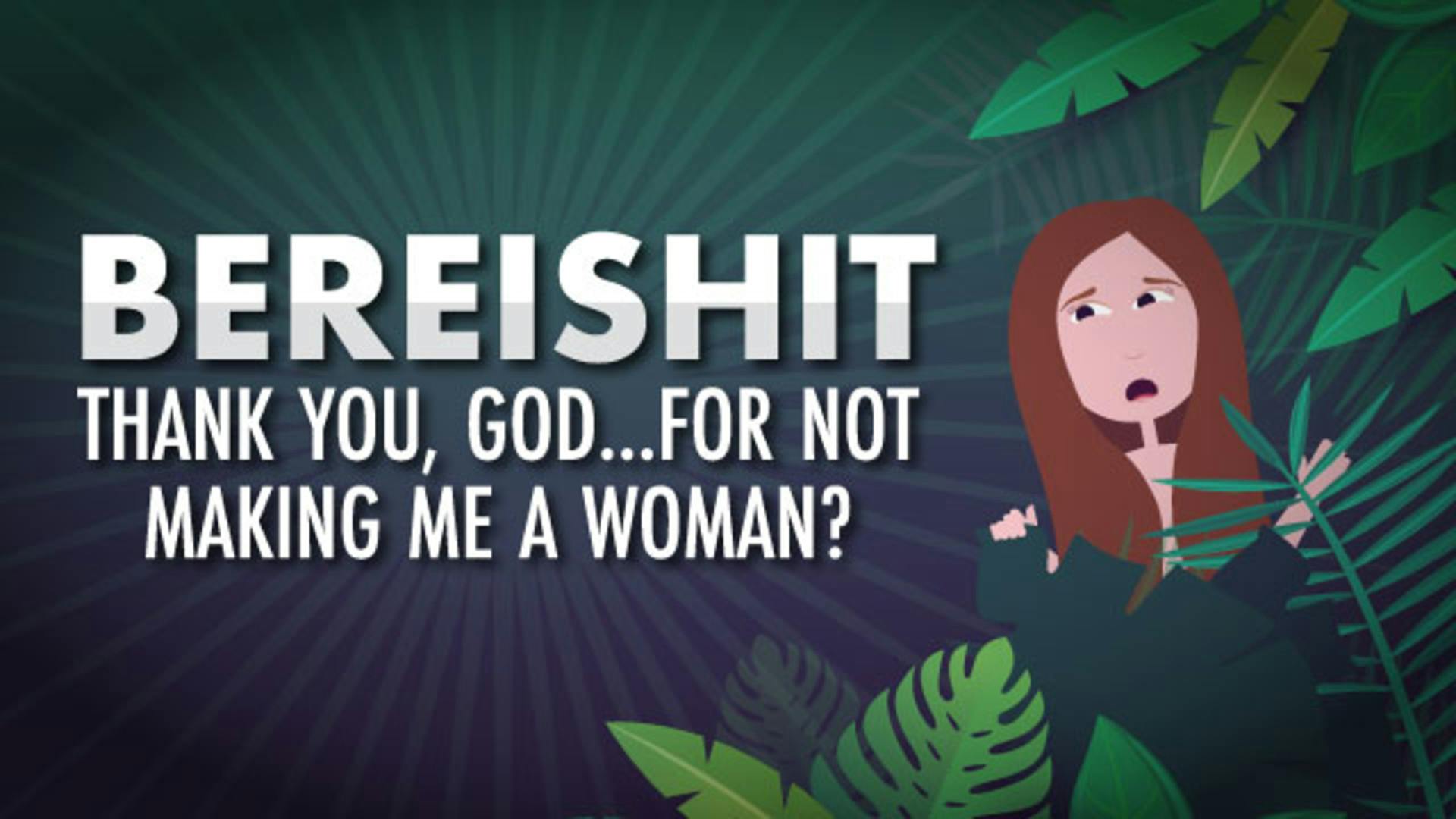
Shelo Asani Ishah: Why Thank God For Not Being A Woman?
Does it make you uncomfortable that every day, Jewish men thank God for not making them women? Watch this video to learn how the blessing may not mean what you think it does.
11 min

Could You Become Haman? Understanding the Path to Darkness
The Talmud makes a shocking claim: Haman's name appears in the Garden of Eden story. Coincidence? Not at all. Beneath Purim's costume parties lies an ancient pattern - Haman obsessing over "the one thing he can't have," just like Adam reaching for forbidden fruit. Uncover the eerie parallels that transform this villain from cartoon character to a mirror of our own darkest impulses.
Part 1 of 7 • 5 min
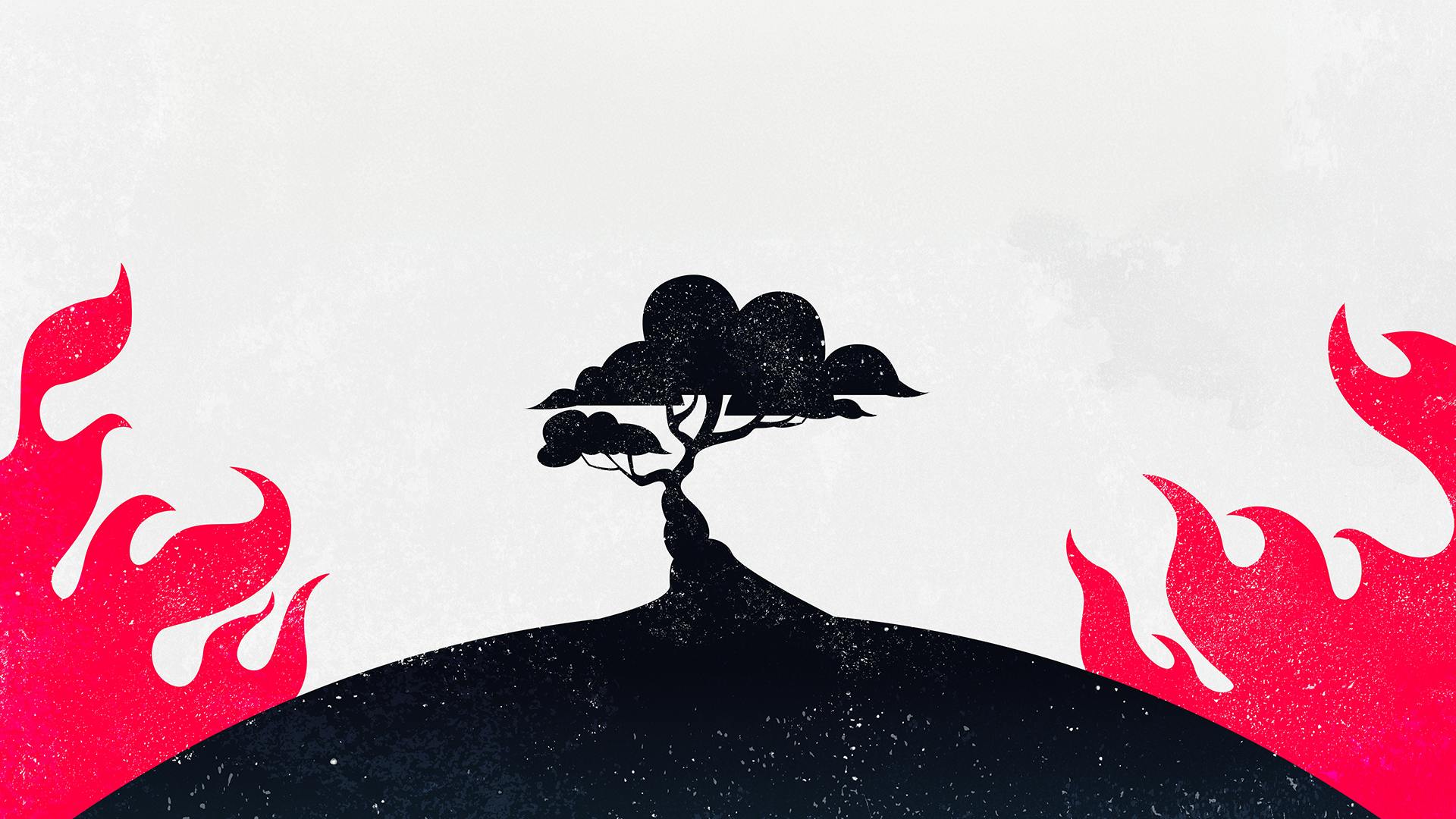
Eicha in Eden
What does Eicha have to do with the garden of Eden? At first glance, not much. But if we look closer, it turns out that the Megillah is actually echoing language first used in the beginning of Genesis. Uncovering the deeper meaning of this connection can shift the way you think about Tisha B’Av.
Part 1 of 2 • 57 min
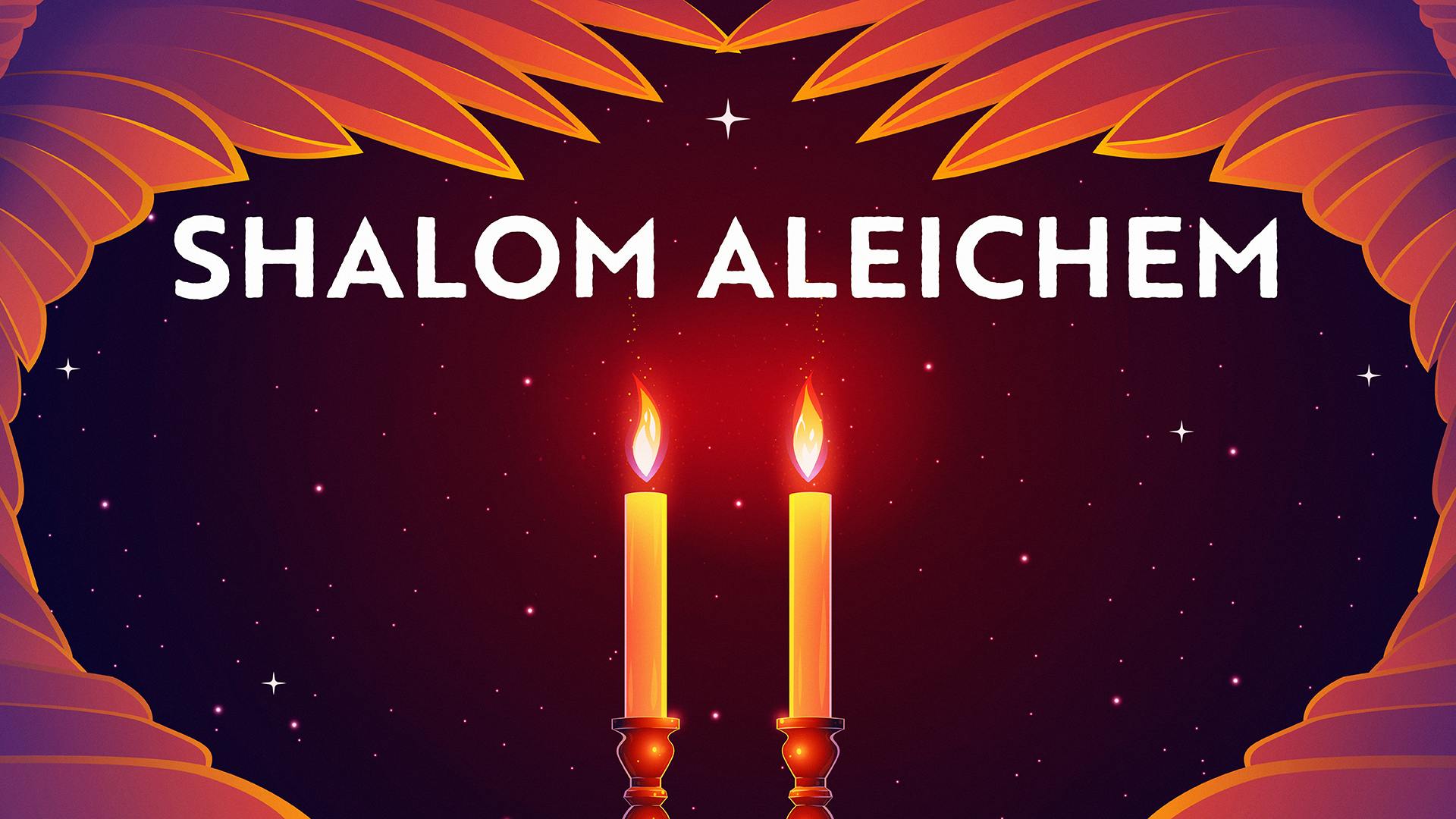
Shalom Aleichem and the Angels of Eden
What do the mysterious angels in the Torah have to do with Shabbat and the song Shalom Aleichem? In this animated video adapted from the Meaningful Judaism podcast, Rabbi David Fohrman and Imu Shalev analyze the Shalom Aleichem prayer and take us back to the Garden of Eden in Parshat Bereishit. Together, they examine the enigmatic kruvim—the angels stationed to guard the way to the Tree of Life—and imagine the experience of Adam and Eve as they were expelled from God’s home.
0 min

Bereshit: Does Man 'Acquire' Woman?
A printable parsha guide for our Bereshit video, “When Man Acquires Woman... Wait What?"

Bereshit: Thank You God...For Not Making Me A Woman?
A printable parsha guide for our Bereshit video, "Thank You God...For Not Making Me A Woman?"
Genesis // Noach
Noach Torah Portion: Genesis 6:9–11:32
Noah builds an ark! God floods the world, and there’s a Tower of Babel.
See the full summary and Parsha home page here.
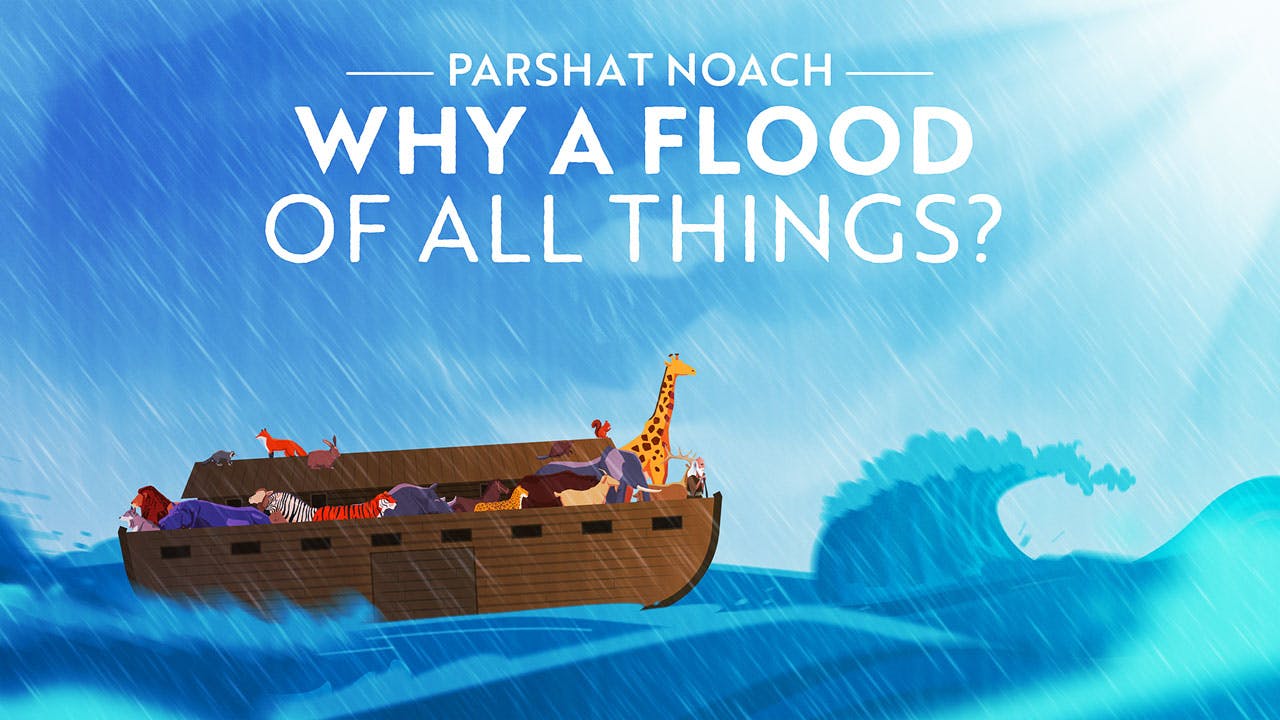
The Connection Between Noah And The Story Of Creation
Okay, God decided to destroy the world. But there are lots of ways to destroy a world: why a flood?
13 min

The Trauma Of The Flood & Its Impact On Noah
We all know the story of Noah, with the animals living together harmoniously in the ark, the dove, the rainbow sign. But this is only half of the story. Underneath this fairytale version of the Noah story lies a dark, more disturbing wrinkle that finds its crescendo in Noah’s vineyard. And this part of the story is more relevant than anything else we might think about Noah and the flood.
1 hour, 3 min

The Deeper Meaning Of Noach's Name
We know the story: people sinned so God wiped them out with a flood. But whatever happened to repentance? Isn’t God is supposed to give us a second chance to fix our mistakes? Find the answers in this video.
11 min

Why Aren’t Dinosaurs Mentioned In The Torah?
How could the Torah leave out such a big part of history? Does it mean Torah and science are at odds? The answer lies in how we read the Torah.
8 min

Will God Ever Flood The Earth Again?
After the flood, God promised to never destroy the world again. But if we become just as sinful as Noah’s generation, why shouldn’t God bring another flood? Watch this video to find out.
15 min

Genesis Unveiled
The stories in Genesis are familiar, but their meanings seem maddeningly elusive. Why would God deny us the knowledge of Good and Evil? Surely it is better to know right from wrong? Why did God destroy mankind – what happened to repentance? Revisit each story in Genesis through a new perspective, and discover their underlying powerful messages.
Part 1 of 76 • 9 min
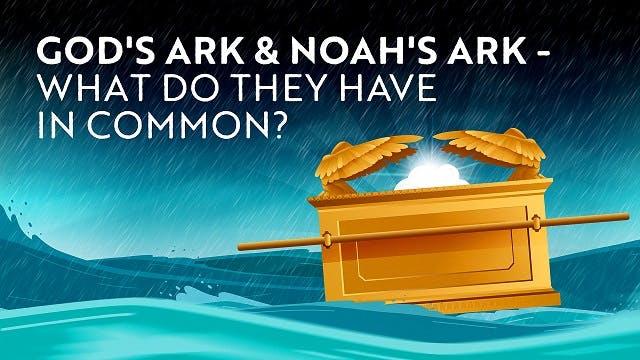
God's Ark And Noah's Ark
Uncover the extensive parallells between God's ark in the tabernacle and Noah's ark in the flood, and see how we can learn from their mysterious connections.
Part 1 of 2 • 13 min

A Brief History Of The World: From Adam To Abraham
A Brief History Of The World: From Adam To Abraham in Genesis
Part 1 of 11 • 57 min
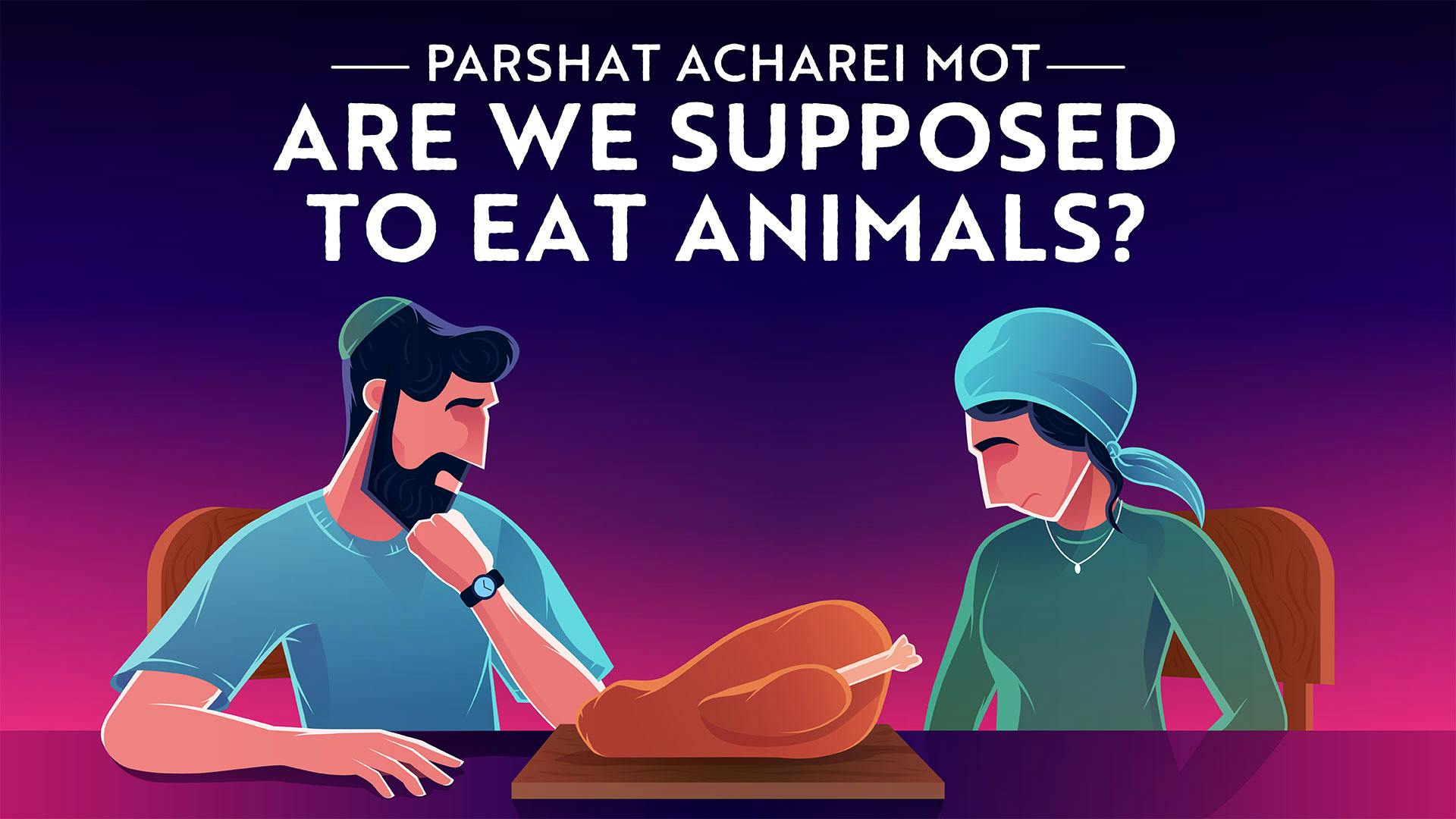
What The Bible Says About Eating Meat
What is the Torah's take on eating animals? Is it a spiritual ideal? Or a concession to mankind's desire?
16 min

Can Science Prove That God Exists?
In this week’s parsha video, Rabbi Fohrman examines one of God’s names and reveals how the Rabbis suggest the Big Bang theory can coexist with belief in God as the Creator.
12 min

Noach: Why Did God Destroy The World?
A printable parsha guide for our Noach video, “Why Did God Destroy The World?”

Noach: Why Aren't Dinosaurs In The Torah?
A printable parsha guide for our Noach video, “Why Aren't Dinosaurs In The Torah?"
Genesis // Lech Lecha
Lech Lecha Torah Portion: Genesis 12:1–17:27
God appears to Abraham! Canaan, kings, and covenants. Sarah is barren. Ishmael is born.
See the full summary and Parsha home page here.

Why Did Abraham Follow God's Call?
Was Abraham a heroic follower of God, or was he in it for the reward God promised him? Watch this video to understand the deeper meaning of when God called Abraham, "Lech Lecha."
14 min

Lech Lecha: Responding To Life’s Challenges
When life throws us challenges and doesn’t go the way we hoped, how do we avoid falling into despair? In Parshat Lech Lecha, Abraham and Sarah struggle with infertility, and Abraham cries out to God, “I am childless!” What is the Torah’s message to Abraham on how to persevere through life’s trials and tribulations? Join Rabbi David Fohrman and Ari Levisohn as they explore Abraham and Sarah’s journey through difficult times and the Torah’s encouraging guidance. Listen to Rabbi Fohrman’s foundational course, Abraham’s Journey, to dive deeper into the ideas discussed in this episode. To find a collection of videos to help deal with our challenging times, visit our website.
37 min

The Deeper Significance Of Abraham's Covenant
Why did God ask Abraham to circumcise himself? And how is this sign of the covenant between God and Abraham still relevant to us today?
10 min

How Abraham Became The Father Of Faith
Why did God choose Abraham? What was so special about him? Through the stories in this parsha we can discover the central mission – and struggle – that his life revolved around.
14 min

Getting To Know The Character Of Abraham
Travelling to Egypt. Hagar and Ishmael. Lot and the War of the Four and Five Kings. Is Parshat Lech Lecha just Abraham’s Greatest Hits? Or do these mini-stories they have anything to do with each other? Come find out.
14 min

Genesis Unveiled
The stories in Genesis are familiar, but their meanings seem maddeningly elusive. Why would God deny us the knowledge of Good and Evil? Surely it is better to know right from wrong? Why did God destroy mankind – what happened to repentance? Revisit each story in Genesis through a new perspective, and discover their underlying powerful messages.
Part 1 of 76 • 9 min

A Brief History Of The World: From Adam To Abraham
A Brief History Of The World: From Adam To Abraham in Genesis
Part 1 of 11 • 57 min

Abraham's Journey 1
What is the central theme that underlies all of the stories about Abraham's life? The Torah tells us how Abraham hears God’s call, ventures to Canaan, flees from famine, takes a second wife, gets involved in a war of kings, and more. This series explains the story of Abraham like never before.
Part 1 of 10 • 44 min

Abraham's Journey 2
Abraham's Journey 2
Part 1 of 8 • 52 min
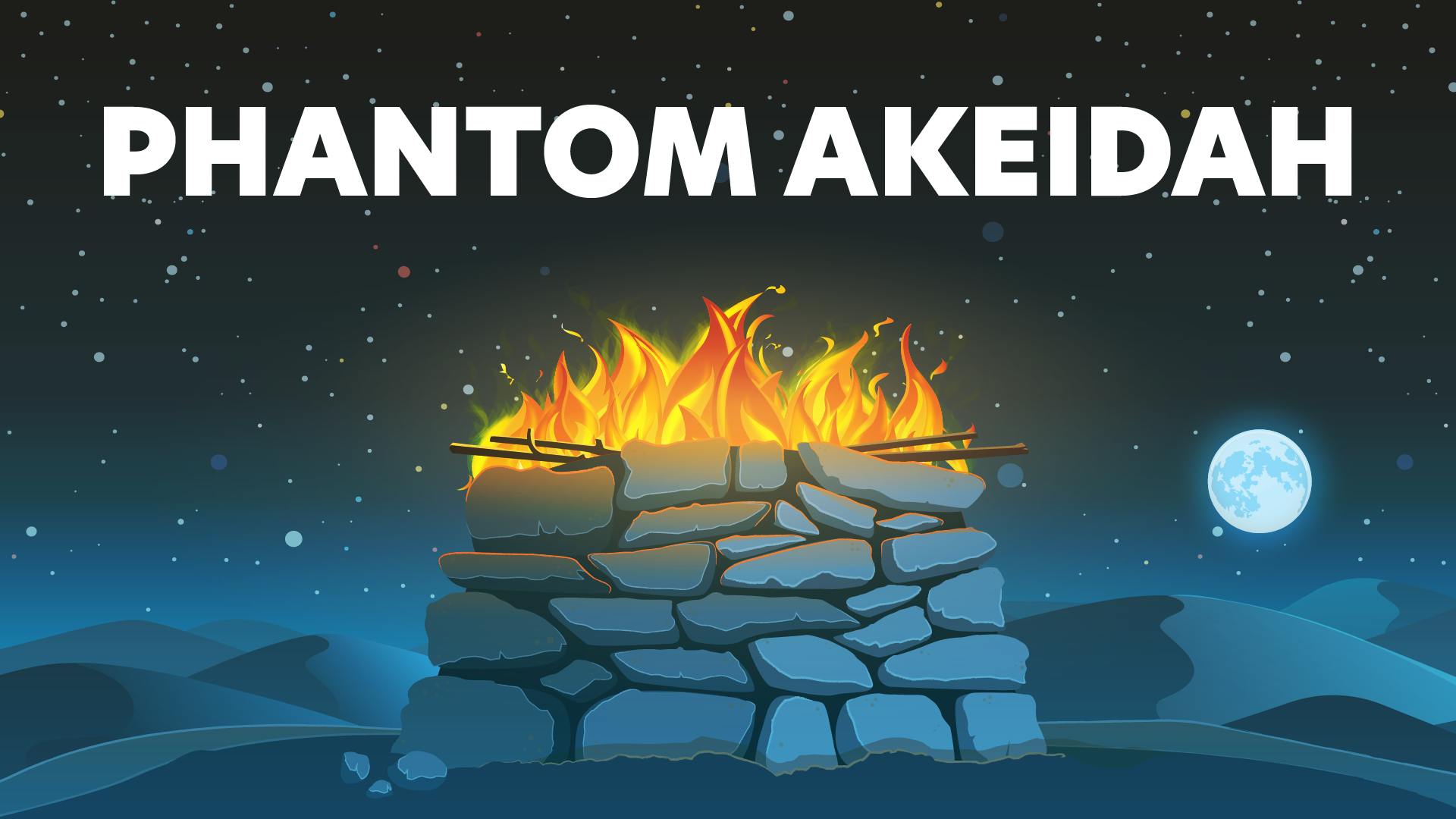
Phantom Akeidah: Abraham's Sacrifice Of Ishmael?
We all know the famous story of the binding of Isaac: God commands Abraham to sacrifice his beloved son Isaac atop a mountain. But did you remember that just a chapter before, God commands Abraham to disown his son Ishmael? You can’t understand the binding of Isaac without grappling with the story of the “phantom” Akeidah.
Part 1 of 8 • 48 min

Lech Lecha: What Does It Mean To Make A “Covenant” With God?
A printable parsha guide for our Lech Lecha video, "What Does It Mean To Make A “Covenant” With God?"

Lech Lecha: Why Did God Choose Abraham?
A printable parsha guide for our Lech Lecha video, "Why Did God Choose Abraham?"
Genesis // Vayera
Vayera Torah Portion: Genesis 18:1–22:24
Abraham gets visitors! God destroys Sodom. Isaac is born, Hagar is expelled, and Isaac is almost sacrificed.
See the full summary and Parsha home page here.
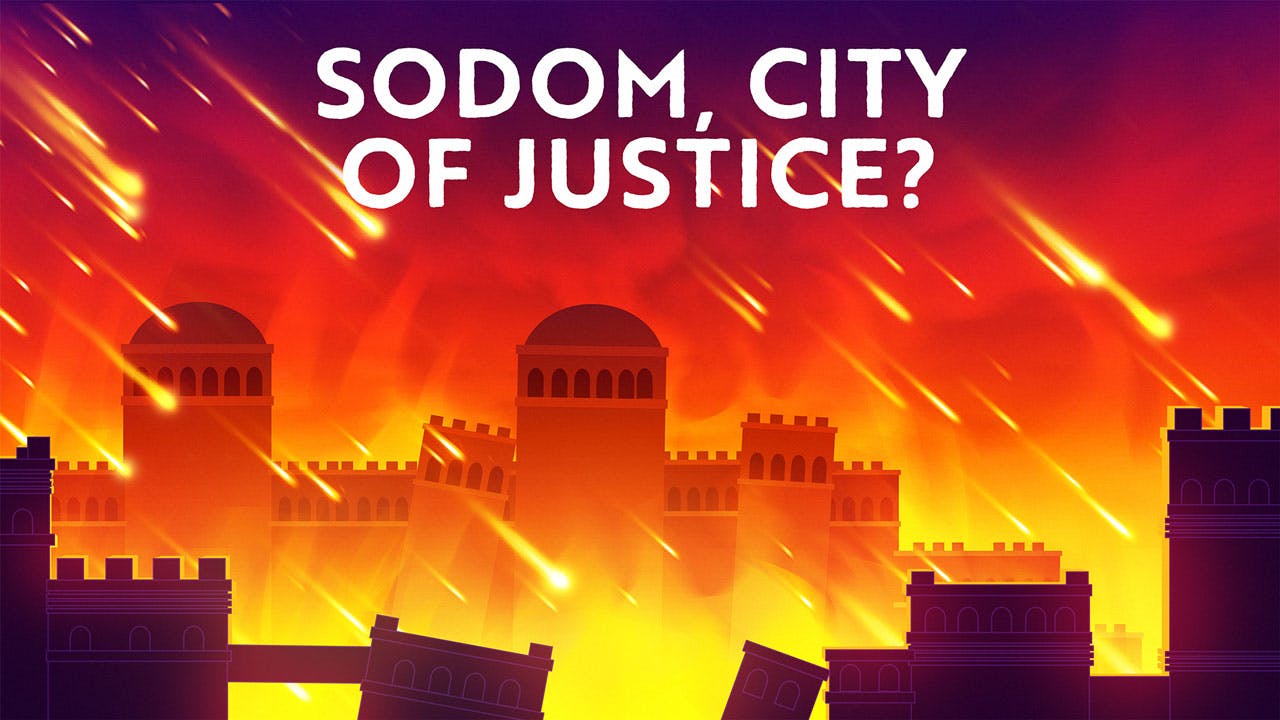
What Was The Real Sin Of Sodom And Gomorrah?
All the great philosophers have offered their opinions about how to create the ideal society. What does the Torah say? Find out in this video, where Rabbi Fohrman reveals what the real sin of Sodom teaches us.
16 min

Parshat Vayera: Lot's Fake Kindness
Parshat Vayera tells the story of visiting angels being graciously hosted, not once but twice! Abraham's hospitality is legendary, and Lot's welcoming the angels feels like a de ja vu...until things turn ugly. What went wrong? How could Lot's act of kindness to the angels end so disastrously? Join Rabbi David Fohrman and Ari Levisohn as they explore two very similar stories of hospitality and uncover the most important ingredient in true kindness.
29 min

A Troubling Story Of "Kindness"
One of the defining characteristics of Abraham and Sarah is their custom of doing extreme acts of kindness. Yet, upon closer inspection of the Biblical stories about them, they seem to do some very unkind things! Take the story of Hagar and her son Ishmael, for example. How can Abraham and Sarah kick them out of their home and send them into the desert? How should we understand this action, which seems so inconsistent with Abraham's and Sarah’s character? Join Rabbi Fohrman as he explores more deeply the actions of Abraham and Sarah. Surprisingly, his answers take us to another Biblical story, one that allows us to understand these actions and their repercussions generations later.
Part 1 of 2 • 10 min

The Real Test Of The Binding Of Isaac
You think that the binding of Isaac was a test of Abraham’s obedience to God. But what if God was also testing something else? What was that something else — and did Abraham pass the test?
10 min

Could Abraham And Lot Have Saved Sodom From Destruction?
Abraham, our upstanding forefather, prayed on behalf of the inhabitants of Sodom and Gomorrah. Lot, Abraham’s nephew, dwelled in Sodom. But God still destroyed the city. Why? Could it be that Abraham and Lot weren’t righteous enough to save Sodom?
13 min
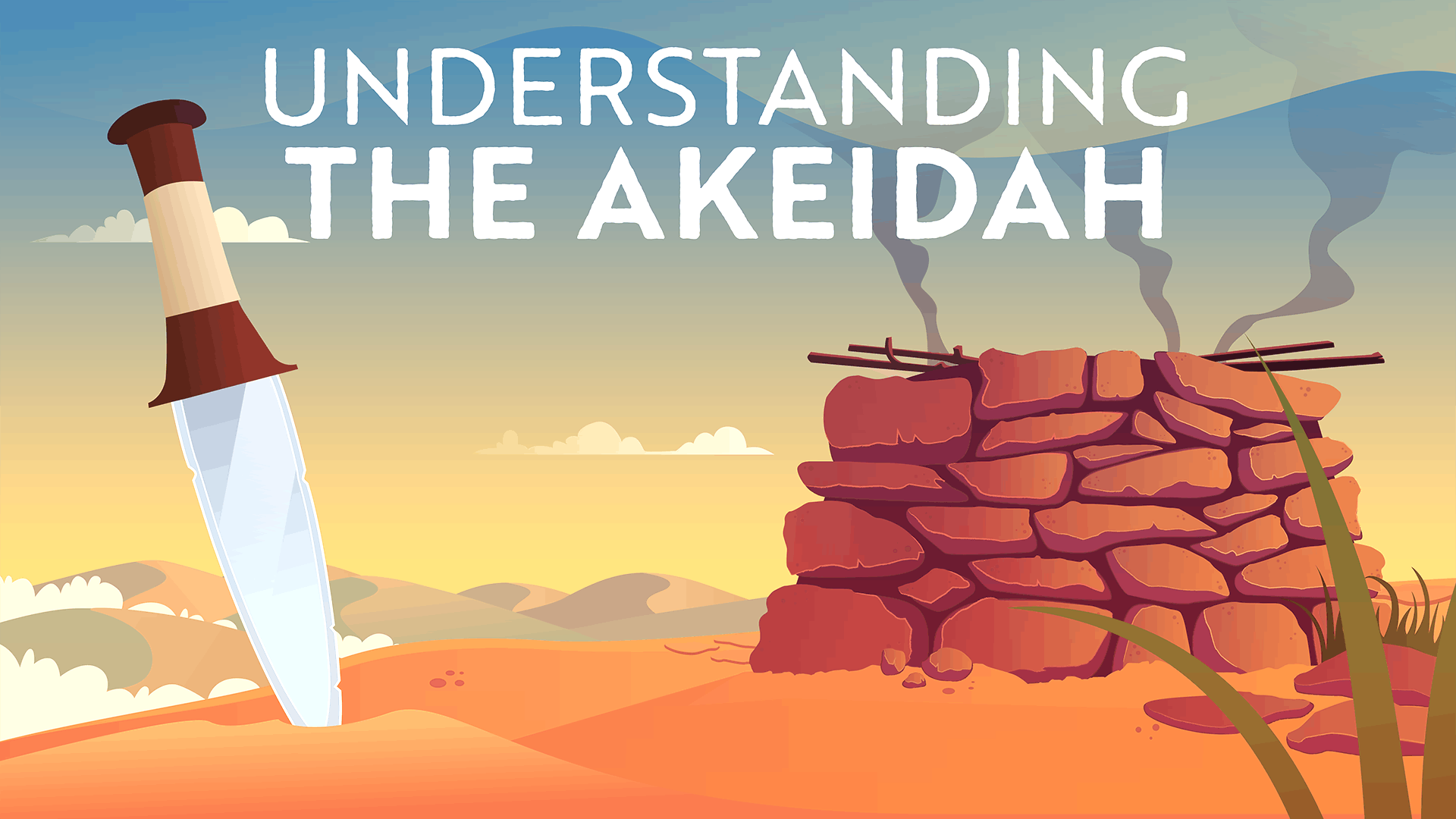
Why Did God Ask Abraham To Sacrifice His Son?
On Rosh Hashanah, we read about the Akeidah, when Abraham was asked to offer Isaac up as a sacrifice. But how are we supposed to make sense of this story that seems to pit obedience to God against our most basic sense of morality?
Part 1 of 7 • 48 min

Phantom Akeidah: Abraham's Sacrifice Of Ishmael?
We all know the famous story of the binding of Isaac: God commands Abraham to sacrifice his beloved son Isaac atop a mountain. But did you remember that just a chapter before, God commands Abraham to disown his son Ishmael? You can’t understand the binding of Isaac without grappling with the story of the “phantom” Akeidah.
Part 1 of 8 • 48 min

Abraham's Journey 1
What is the central theme that underlies all of the stories about Abraham's life? The Torah tells us how Abraham hears God’s call, ventures to Canaan, flees from famine, takes a second wife, gets involved in a war of kings, and more. This series explains the story of Abraham like never before.
Part 1 of 10 • 44 min

A Brief History Of The World: From Adam To Abraham
A Brief History Of The World: From Adam To Abraham in Genesis
Part 1 of 11 • 57 min
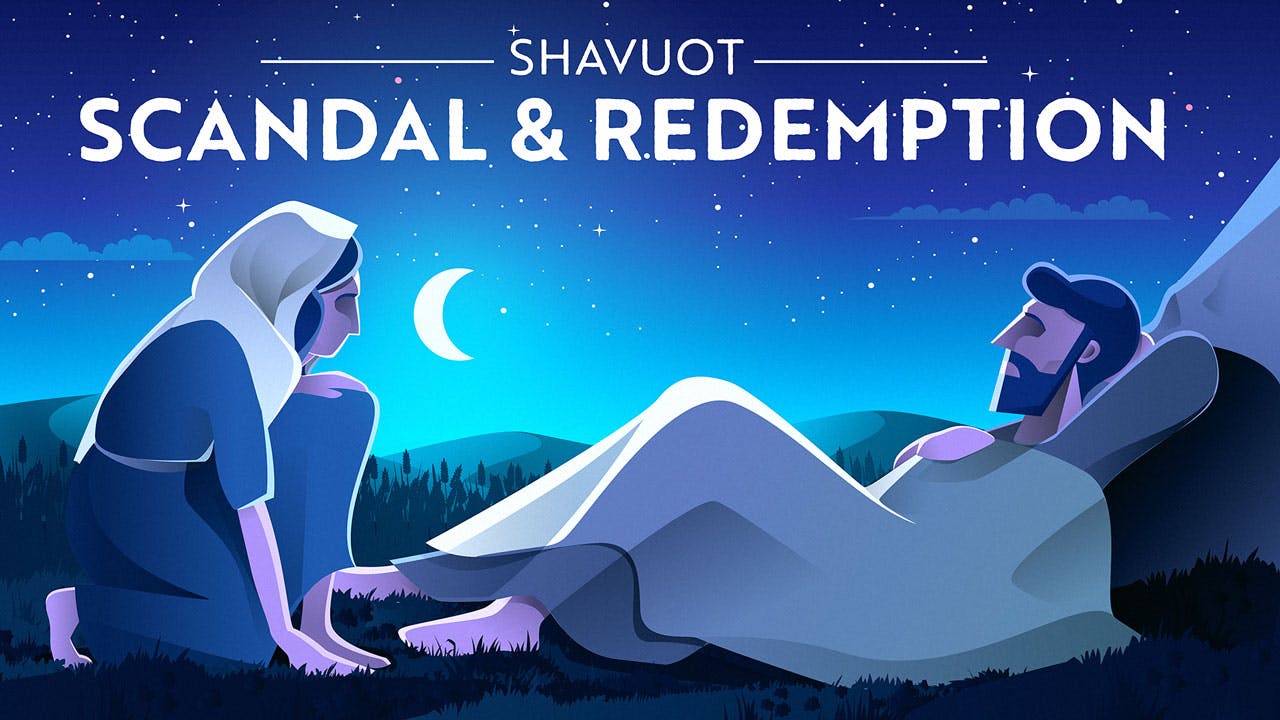
Lot, Judah, & Ruth: Three Interconnected Yibum Stories
What is the theme that ties together the seemingly disconnected stories of Lot and his daughters, Judah and Tamar, and Ruth? The obscure Biblical law of yibum, or Levirite marriage, has a lot to do with it. Rabbi Fohrman argues there is an important connection that hints at a generational saga of redemption.
Part 1 of 7 • 1 hour, 9 min

Vayeira: Abraham's Struggle With Loyalty
A printable parsha guide for our Vayeira video, "Abraham's Struggle With Loyalty."

Vayeira: Abram, Sarai, Hagar, Ishmael and...Exodus?
A printable parsha guide for our Vayeira video, "Abram, Sarai, Hagar, Ishmael and...Exodus?"
Genesis // Chayei Sarah
Chayei Sarah Torah Portion: Genesis 23:1–Genesis 25:18
Sarah dies, Abraham mourns and buries her, and then sends his servant to find a wife for Isaac.
See the full summary and Parsha home page here.

The Bond Between Sarah And Esther
The Torah tells us that Sarah died when she was 127. The Torah also tells us that there were 127 provinces in the Persian empire in the days of Achashverosh and Queen Esther. Coincidence? Rabbi Akiva doesn’t think so, and neither does Rabbi Fohrman. Watch this video to find out why.
11 min

Chayei Sarah: A Marriage Of Truth And Kindness
The Midrash says that chesed and emet, Kindness and Truth, disagreed about whether God should create humankind. And the puzzling outcome of that argument was: “God took Truth and threw it to the earth.” But what does that actually mean? The answer may be in Parshat Chayei Sarah, where chesed and emet “meet up” for the very first time in a rather surprising place: the story of how Rebecca was chosen to be Isaac’s wife. Join Ari Levisohn and Tikva Hecht as they dig into the details of this story and uncover a message about our human struggle to understand what God means by “truth.” Looking for Rabbi Fohrman’s video discussing Abraham, Nachor, and their marriages? Check it out here: The Meaning of the Book of Ruth
38 min

What Sarah's Character Teaches Us About Living Our Best Life
You know those one or two elderly people you know who are so amazing, you think, “I want to be like that when I’m their age”? Sarah probably would have been one of them — and this parsha tells us how she got to be that way. This is a lesson that you’re going to want to hold on to.
5 min

Eliezer And Rebecca At The Well: The Deeper Significance
The Torah seems to connect Isaac’s search for a wife and the selection of one of Israel’s first national leaders. Why? What do marriage and kingship have in common? This video offers a novel idea about what makes nations rise and fall, and what makes marriages succeed or fail.
9 min

What Made Rebecca the Right Match for Isaac?
Have you heard how Rebecca is chosen as Isaac’s wife? Well, did you know that – oddly – the Torah tells us that story twice... in a row? What, was God’s editor busy that day? Find out why the story bears repeating, what it teaches us, and whether Rebecca was the right match for Isaac.
12 min

A Brief History Of The World: From Adam To Abraham
A Brief History Of The World: From Adam To Abraham in Genesis
Part 1 of 11 • 57 min

Chayei Sarah: What Makes For An Extraordinary Life?
A printable parsha guide for our Chayei Sarah video, "What Makes For An Extraordinary Life?"

Chayei Sarah: Eliezer And Samuel's Surprising Connection
A printable parsha guide for our Chayei Sarah video, " Eliezer And Samuel's Surprising Connection."
Genesis // Toldot
Toldot: Genesis 25:19–28:9
Rebecca has twins! Jacob buys Esau’s birthright. Isaac fights over wells in Gerar. Jacob steals Esau’s blessing, and runs away to his uncle.
See the full summary and Parsha home page here.
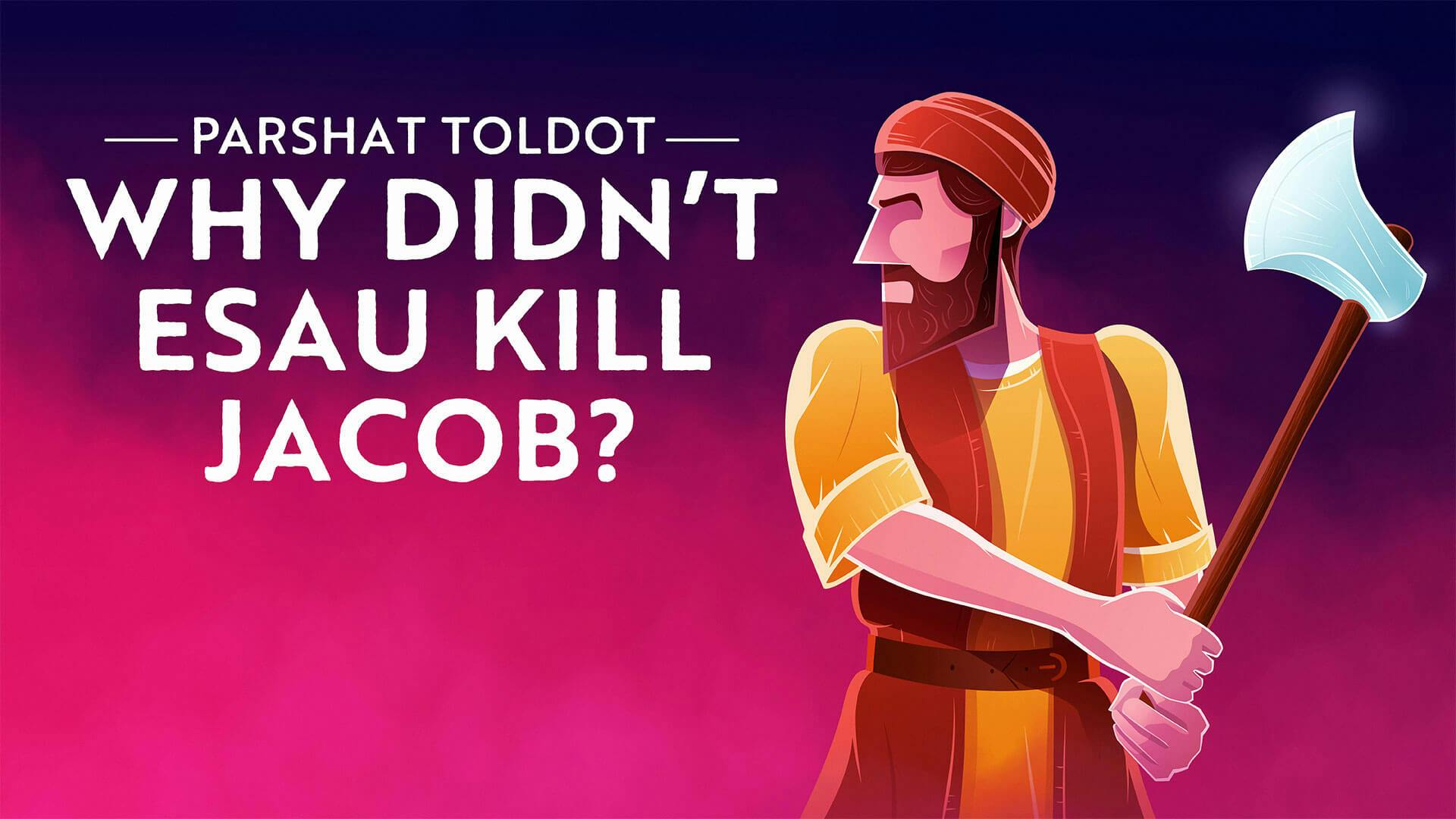
The Missing Chapter In Esau And Jacob's Story In The Bible
Jacob takes Esau’s blessing. Esau threatens to kill him. Jacob goes into hiding for twenty years. That’s the story we all know. But is it the full story? Far from it. Watch this video for a deeper look.
13 min

Parshat Toldot: What Is True Strength?
Parshat Toldot contains the only story in the Torah that is really only about Isaac: the often overlooked story of the wells. What does this brief story really teach us about Isaac’s character? The Sages associate Isaac with the attribute of strength, but how does the story of the wells show us Isaac's might? Join Adina Blaustein and Beth Lesch as they discover the true greatness of Isaac by exploring the striking parallels between Isaac and another Biblical character known for his strength, Samson the Mighty.
42 min

Isaac's Blessing To Esau And Jacob: A Conversation For The Ages
Hidden within Parshat Toldot are echoes of an earlier story: arguably the most incomprehensible story in the entire Torah. Why is it showing up here in our parsha? And what are we supposed to learn from it?
9 min

Isaac's Family Tree And The Legacy Of Abraham
Parshat Toldot opens oddly: “These are the offspring of Isaac: Abraham begot Isaac.” What?? That’s not the generations of Isaac! Join Rabbi Fohrman as he uncovers what this phrase “These are the offspring of” really means – and what it teaches us about Isaac’s legacy.
9 min

The Significance Of Isaac And Abraham's Wells In The Bible
Remember when Isaac dug a bunch of wells? It’s totally your favorite story in the Torah, right? No?? Well, you’ve been missing out! Here’s why...
15 min

Isaac And Rebecca: Would You Steal A Birthright From Your Blind Husband?
So you think you know the story: Rebecca and Jacob hatch a plan, he pretends to be Esav, lies to his father, and makes off with his brother’s blessing. But what if we told you that neither Rebecca nor Jacob ever intended this deception? That it was all an unfortunate misunderstanding? No, this is not an exercise in apologetics. It’s an exercise in reading the Torah with fresh eyes. Don’t you want to see what it’s all about?
Part 1 of 4 • 8 min

Jacob: Man Of Truth?
Jacob, our esteemed forefather, is looked to as a role model… our Sages even call him an ish emet, “a man of truth.” But what about that whole impersonating-his-brother-and-lying-to-his-father episode? Would a man of truth do that? It’s not easy to reconcile these things… but that is precisely what Rabbi Forhman manages to do in this provocative audio series.
Part 1 of 15 • 53 min
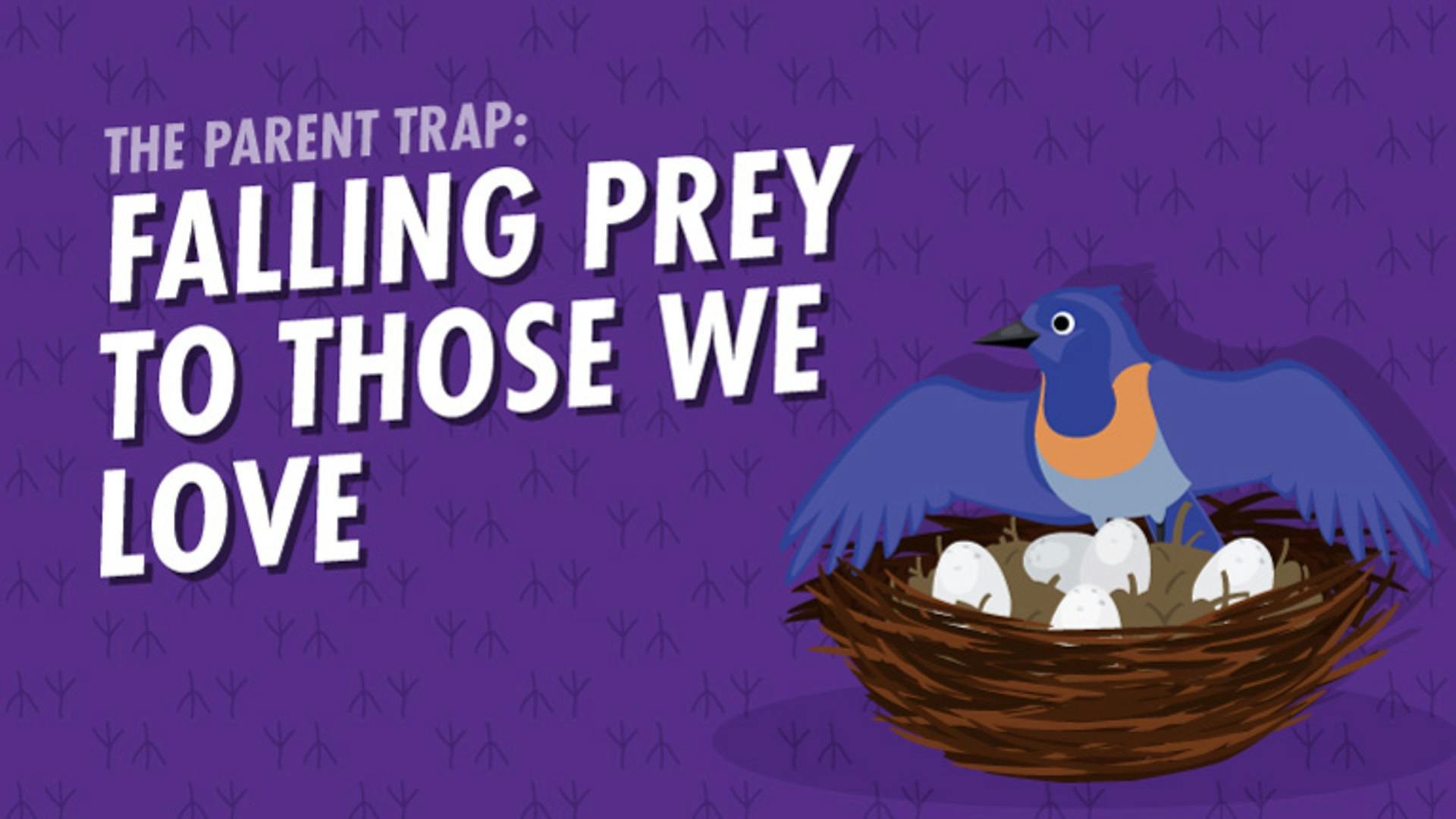
The Surprising Backstory Of Shiluach Hakan
See how Shiluach Hakan – the law of shooing away the mother bird before taking her eggs – is tied to a pivotal story from the Book of Genesis.
Part 1 of 4 • 16 min
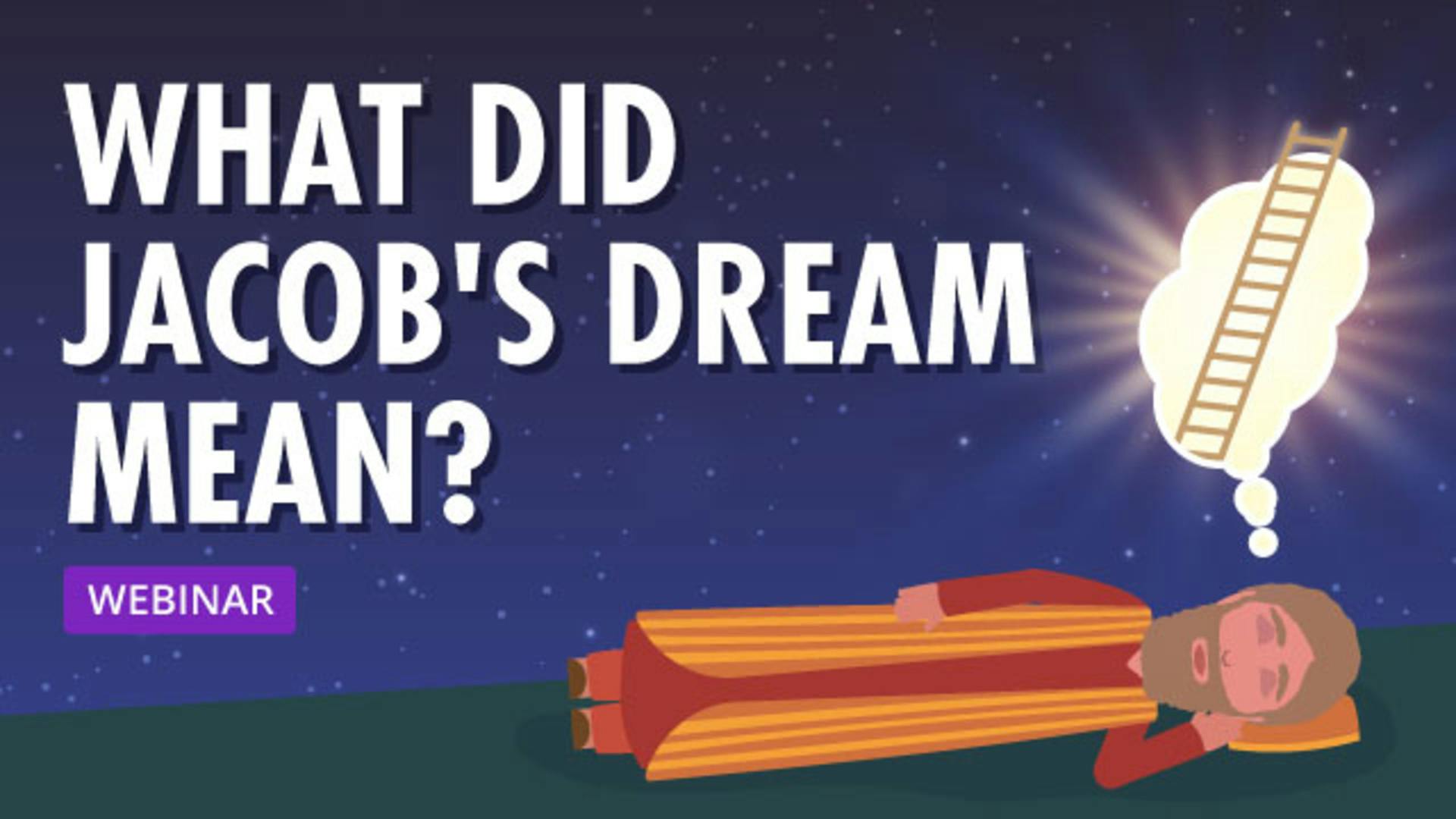
What Did Jacob’s Dream Mean?
In this six-part webinar, Rabbi Fohrman explores the true meaning of Jacob's Dream. What did it really mean?
Part 1 of 6 • 43 min

The Rise Of Antisemitism: A Glimpse Into Amalek’s Tortured Soul
Antisemitism. Where did it all originate and can we trace it through the Tanahk? Rabbi Fohrman argues that it may have begun with the story of Amelek, which is widely known as one of the most mystifying and difficult episodes in the Torah.
Part 1 of 11 • 1 hour, 23 min

Toldot: The Binding of Isaac... Where You Least Expect It
A printable parsha guide for our Toldot video, "A Conversation For the Ages."

Toldot: The Child Of Isaac Is… Abraham??
A printable parsha guide for our Toldot video, "What Is Isaac's Legacy?"
Genesis // Vayetze
Vayetze: Genesis 28:10–32:3
Jacob goes to Lavan’s house! He wants to marry Rachel, but Lavan deceives him. After working for Lavan for twenty years, he leaves with two wives, two handmaidens, and twelve children.
See the full summary and Parsha home page here.
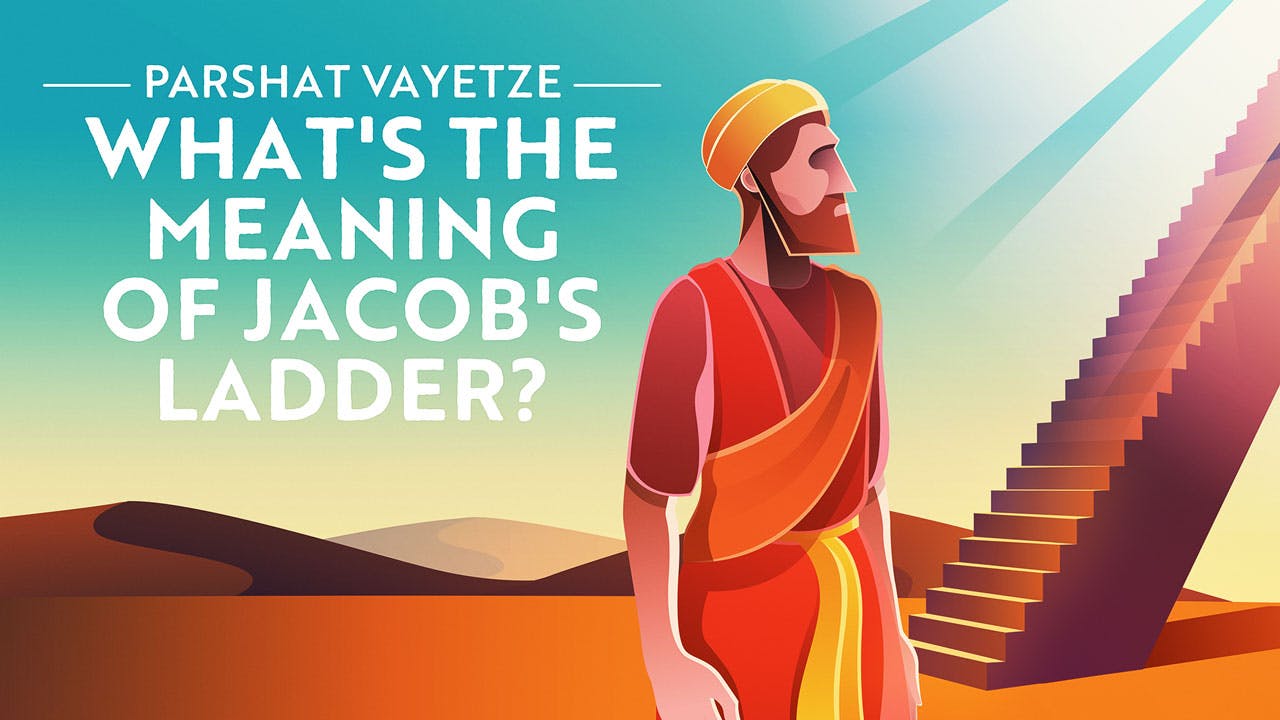
Jacob, Angels, And Connecting To God
We all know about Jacob’s vision of a ladder with angels going up and down - but what was the meaning of that mysterious dream? Could it have something to do with the very mission of Jacob’s family here on earth? Come see for yourself.
14 min

Parshat Vayetze: Was Jacob Punished?
Parshat Vayeitzei begins with Jacob on the run from Esau and follows Jacob's trials and tribulations throughout his time in Laban's house. At the end of the parsha, Jacob is back on the run and gets into a heated argument with Laban. What is Jacob's role in this cycle of conflicts? Join Ari Levisohn and Tikva Hecht as they uncover a transformative way to read this week's parsha by picking up on some unexpected parallels to a random legal section later in the Torah. To hear more about the parallels Ari uncovered, listen to the Parshat Vayigash episode Ari mentions.
32 min

Why Did Jacob Cry When He Kissed Rachel?
Was Jacob wrong to deceive his father Isaac and steal his brother Esau's blessing? The text doesn’t seem to tell us… or does it? Watch this video to find out.
8 min

Joseph's Name: Unraveling The Chiasm
When Rachel gives birth to Joseph, she explains the meaning of his name: “ God has gathered in (assaf) my shame.” And it seems like an obvious reference to her shame of being childless for so many years. But is it? Join Rabbi Fohrman as he uncovers a dizzying chiasm that points to a whole new way of understanding Joseph’s birth as a redemptive moment in Rachel’s life.
14 min

Jacob Learns From Laban’s Deceit
Jacob deceived his father, Isaac; then he gets deceived by his uncle, Lavan. Coincidence? We think not. Watch this video to learn the important lesson Lavan teaches Jacob.
14 min

Isaac And Rebecca: Would You Steal A Birthright From Your Blind Husband?
So you think you know the story: Rebecca and Jacob hatch a plan, he pretends to be Esav, lies to his father, and makes off with his brother’s blessing. But what if we told you that neither Rebecca nor Jacob ever intended this deception? That it was all an unfortunate misunderstanding? No, this is not an exercise in apologetics. It’s an exercise in reading the Torah with fresh eyes. Don’t you want to see what it’s all about?
Part 1 of 4 • 8 min

Jacob: Man Of Truth?
Jacob, our esteemed forefather, is looked to as a role model… our Sages even call him an ish emet, “a man of truth.” But what about that whole impersonating-his-brother-and-lying-to-his-father episode? Would a man of truth do that? It’s not easy to reconcile these things… but that is precisely what Rabbi Forhman manages to do in this provocative audio series.
Part 1 of 15 • 53 min

What Did Jacob’s Dream Mean?
In this six-part webinar, Rabbi Fohrman explores the true meaning of Jacob's Dream. What did it really mean?
Part 1 of 6 • 43 min
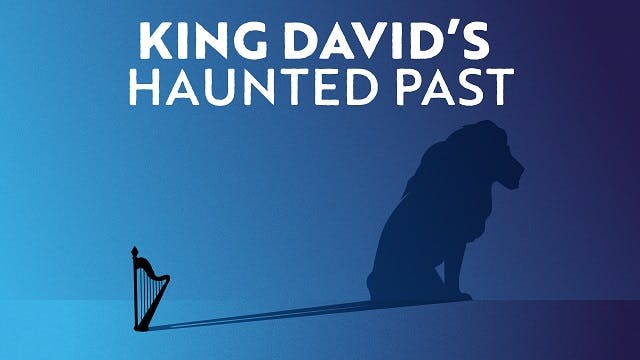
King David's Haunted Past
The Sale of Joseph doesn't affect only one or two generations – it goes all the way to King David, hundreds of years later. David inaugurates the Temple in Jerusalem with a special psalm – but nothing about the text seems to relate to the Temple at all! In this lecture, Rabbi Fohrman explains that in Psalm 30, David was hearkening back to his ancestor Judah to explain why Judah merited for his descendants to build the Temple.
1 hour, 20 min
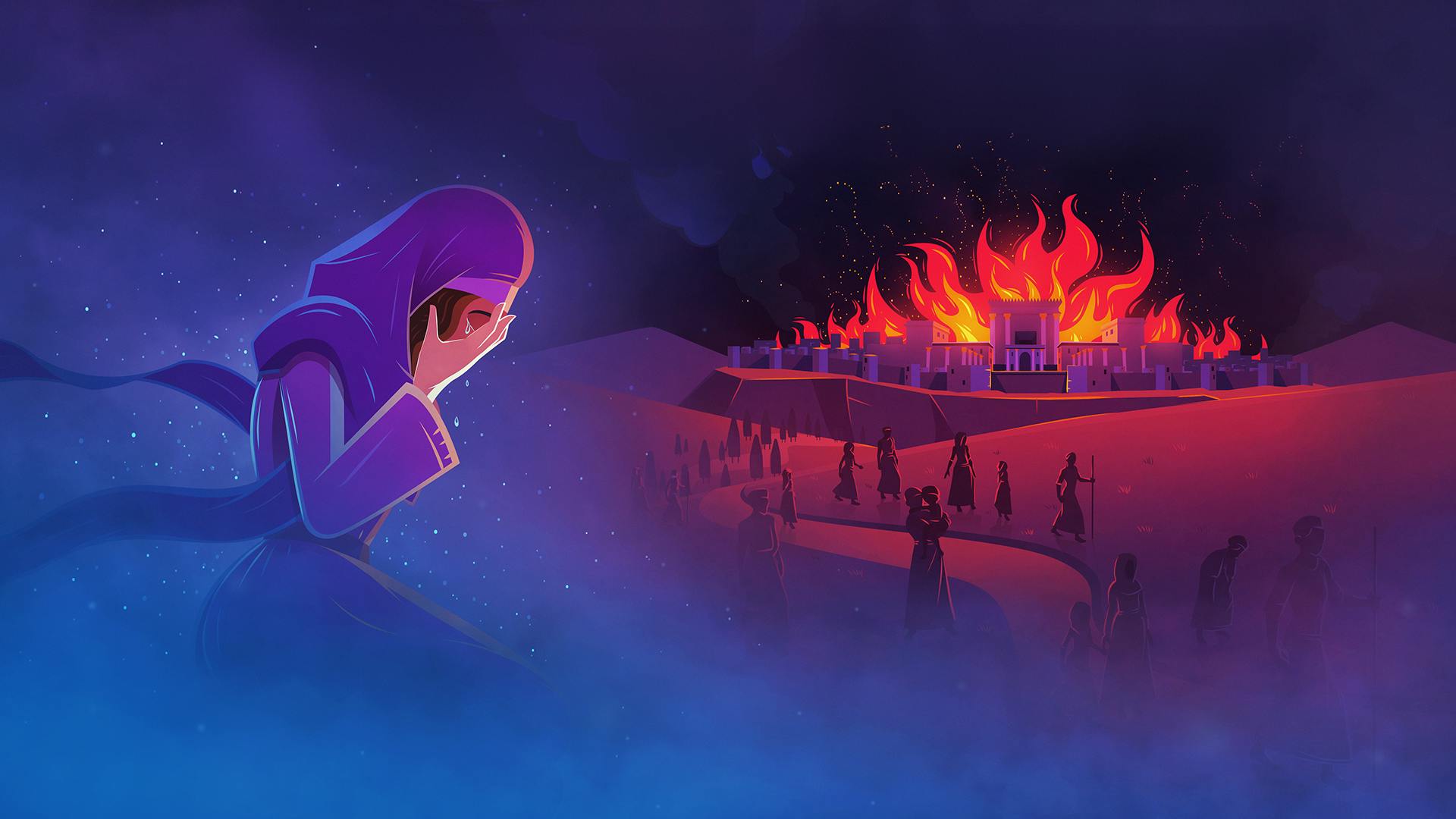
Reversing Tisha B’Av: How To Actually Rid Ourselves Of Sinat Chinam
We sit on the floor, we cry – but sometimes it feels like we’re just going through the motions. Rachel Imenu shows us a deeper way to mourn — that actually changes us, that banishes sinat chinam, baseless hatred, from our hearts.
Part 1 of 5 • 8 min

The Deeper Significance Of Gilead In The Bible
The Torah is a book of great drama, why does the narrative ends with a seemingly-unnecessary story about a random conquest of some towns? In this week and next week, Rabbi Fohrman paints a picture of epic connections to the stories of Jacob, Joseph and Judah.
Part 1 of 2 • 13 min

Vayetze: Consequences of Jacob's Deceit
A printable parsha guide for our Vayetze video, "Consequences of Jacob's Deceit."

Vayetze: Rachel's Shame & The Secret Meaning Behind Joseph's Name
A printable parsha guide for our Vayetze video, "Rachel's Shame & The Secret Meaning Behind Joseph's Name."
Genesis // Vayishlach
Vayishlach: Genesis 32:4–36:43
Jacob and Esau reconcile. Shechem rapes Dinah. Rachel gives birth to Benjamin and dies in childbirth.
See the full summary and Parsha home page here.
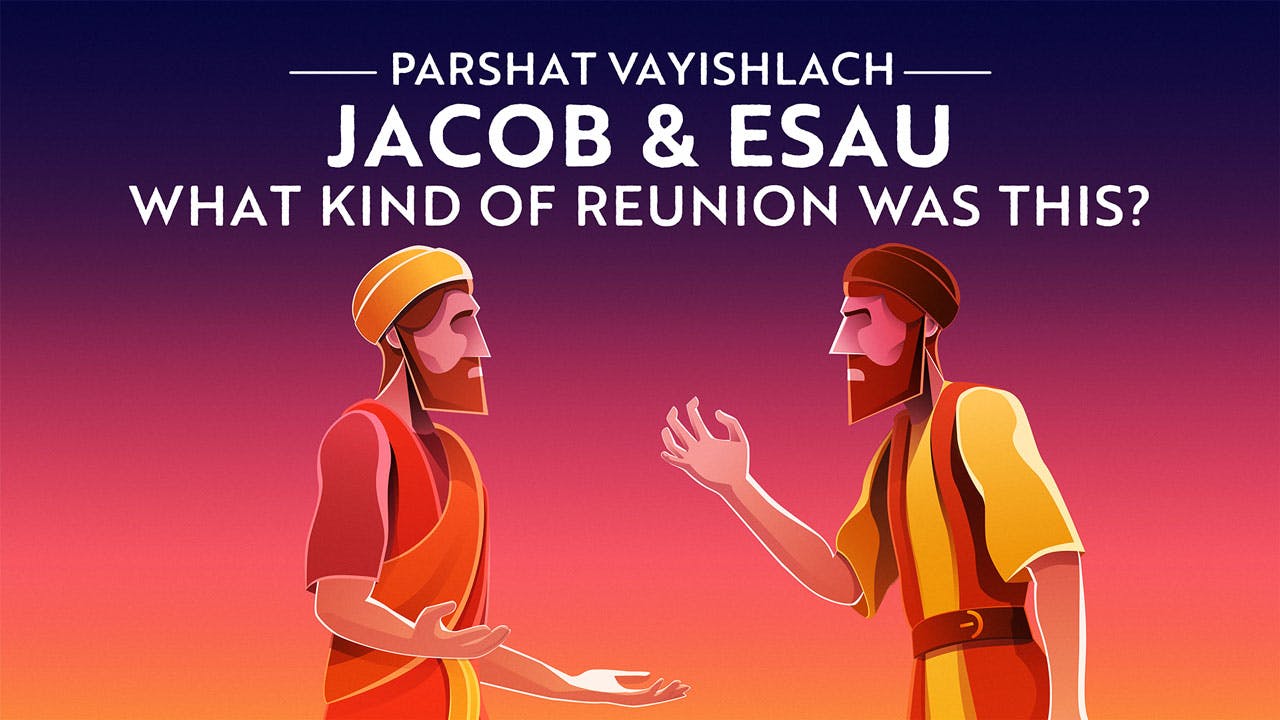
The Sons Of Isaac Reconcile
Jacob reunites with Esav, and emerges without a scratch. How did this happen? Did Jacob once again escape the wrath of his brother with some clever maneuvers? Did he win Esav over with bribes and flattery? Watch this video to find out what really happened.
13 min

Vayishlach: Were We Wrong About Esav?
When Esau came to meet Jacob with 400 men, it could only mean one thing: 20 years after Jacob stole Esau's blessings, Esau is finally seeking his revenge. But... what if we are misjudging Esau? Join Beth Lesch and Rabbi David Fohrman as they explore some fascinating parallels between this week's parsha and a later story, all leading to a shocking conclusion: We may have been wrong about Esau's intentions.
31 min

Jacob And Esau Meet Again
In this video, Rabbi Fohrman notices a series of curious parallels between Jacob’s first encounter with Rachel at the well, and when he meets with his brother Esau. By comparing these two stories, Rabbi Fohrman uncovers an inspiring narrative about Jacob’s own growth and transformation that offers us a deep understanding into how Jacob regained his personal integrity to be called a “man of truth.”
8 min
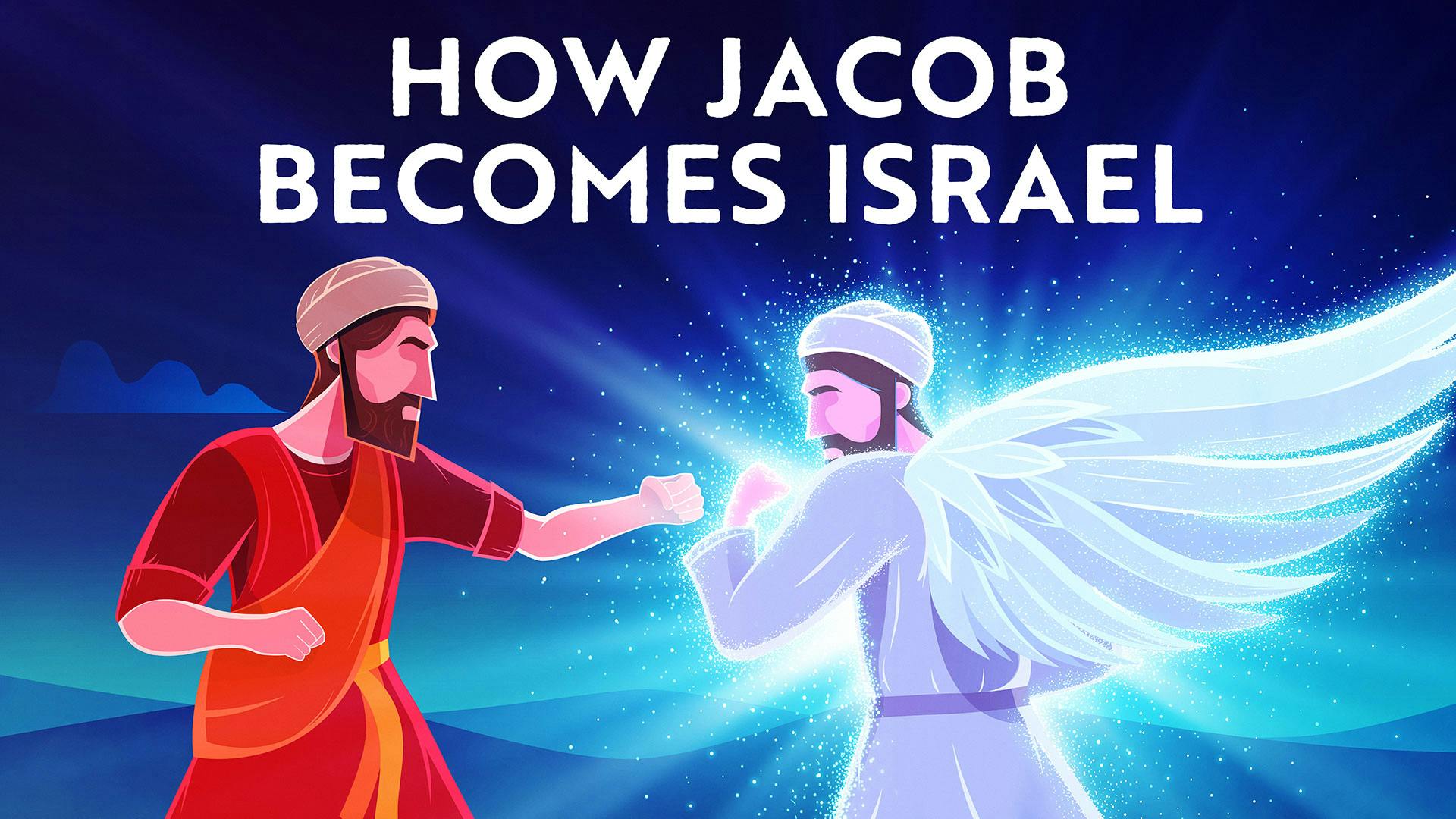
What Does It Mean To Wrestle With God And Prevail?
Yisrael – Israel; the name of God’s chosen people. The name of the holy land. It might just be the most important name in the whole Torah. And it was given to Jacob... for winning a wrestling match? If you find yourself craving to understand the deeper significance of this name, this video is for you!
10 min

Dinah, Shimon, Levi, And The Children Of Leah
The rape of Dinah: it’s one of the most disturbing stories in the entire Torah, the kind that usually gets “skipped over” in school. But in this chilling video, we face Dinah’s rape head-on, asking the tough questions, and uncovering a shocking truth about Dinah, her brothers, and her father.
13 min

Reversing Tisha B’Av: How To Actually Rid Ourselves Of Sinat Chinam
We sit on the floor, we cry – but sometimes it feels like we’re just going through the motions. Rachel Imenu shows us a deeper way to mourn — that actually changes us, that banishes sinat chinam, baseless hatred, from our hearts.
Part 1 of 5 • 8 min

Jacob: Man Of Truth?
Jacob, our esteemed forefather, is looked to as a role model… our Sages even call him an ish emet, “a man of truth.” But what about that whole impersonating-his-brother-and-lying-to-his-father episode? Would a man of truth do that? It’s not easy to reconcile these things… but that is precisely what Rabbi Forhman manages to do in this provocative audio series.
Part 1 of 15 • 53 min

What Did Jacob’s Dream Mean?
In this six-part webinar, Rabbi Fohrman explores the true meaning of Jacob's Dream. What did it really mean?
Part 1 of 6 • 43 min

The Joseph Story
The story of Joseph and his brothers is one of the most well-known in the entire Bible. And yet, the story – for all its familiarity and simplicity – is darker than the one we might remember learning as a child. Indeed, a sober reading of the text reveals that this is no child's story at all. What are we to make of this story of near-fratricide? What enduring meaning does it hold out to us?
Part 1 of 94 • 12 min
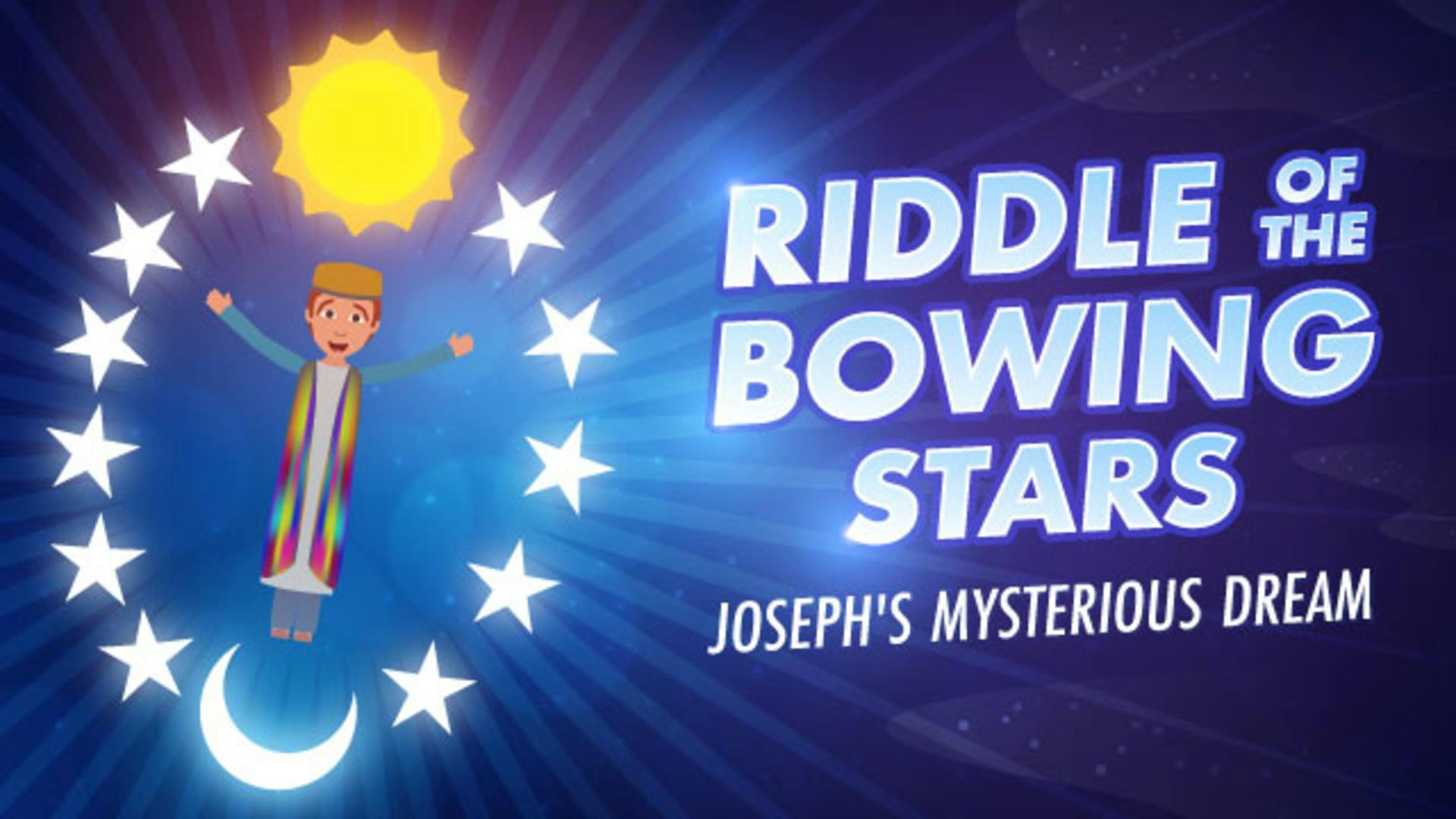
Riddle Of The Bowing Stars: Joseph's Mysterious Dream
Joseph has some bizarre dreams through the story of Genesis. Rabbi Fohrman points out that up to this point in the Torah, only two people have ever had dreams – Jacob and Joseph, father and son. Is that a coincidence? If not, is there a relationship between father's dreams and son's dreams? Could understanding the relationship between the dreams reveal what the dreams truly mean?
Part 1 of 2 • 57 min

What Do Dreams Actually Mean: Prophecy? Nonsense? Or Neither?
We have so many dreamers in Genesis – Jacob, Joseph, Pharaoh, his servants – and they have significant meaning, with some even interpreted as prophecies from God. But what about our dreams, today? Do they have real meaning? Are they prophetic, nonsense, or somewhere in between? Should we be paying closer attention to what our dreams mean, or is dream prophecy a thing of past?
1 hour, 30 min

King David's Haunted Past
The Sale of Joseph doesn't affect only one or two generations – it goes all the way to King David, hundreds of years later. David inaugurates the Temple in Jerusalem with a special psalm – but nothing about the text seems to relate to the Temple at all! In this lecture, Rabbi Fohrman explains that in Psalm 30, David was hearkening back to his ancestor Judah to explain why Judah merited for his descendants to build the Temple.
1 hour, 20 min

Vayishlach: Becoming A Person Of Integrity
A printable parsha guide for our Vayishlach video "Vayishlach - Becoming A Person Of Integrity."

Vayishlach: Wrestling With The Angel, How Jacob Becomes Israel
A printable parsha guide for our Vayishlach video "Wrestling With The Angel, How Jacob Becomes Israel."
Genesis // Vayeshev
Vayeshev: Genesis 37:1–40:23
Joseph’s brothers throw him in a pit, and he goes to Egypt where things get even more complicated. Yehuda also goes off on his own messy journey, and the family saga thickens.
See the full summary and Parsha home page here.
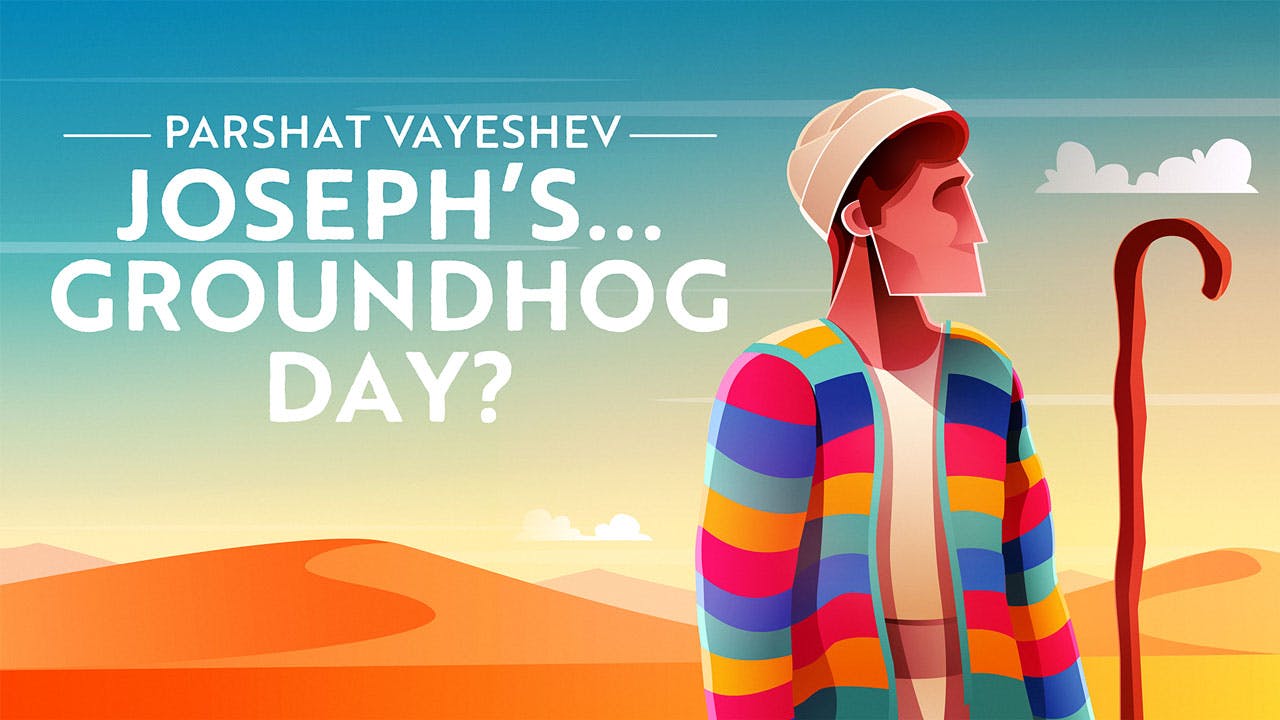
Why Do The Events In Joseph’s Life Keep Repeating?
Someone’s got a grudge against Joseph. Joseph ends up in a pit, stripped of his clothes. The perpetrator presents Joseph’s coat as false evidence. Sounds like the story of the sale of Joseph, right? Wrong. It’s the replay of the sale of Joseph story. Oh, you didn’t know that there was a replay? Actually, there are three. All in Parshat Vayeishev. What does it all mean?
16 min

Parshat Vayeshev: What Was Jacob Thinking?
34 min

The Rashbam’s Theory Of Joseph’s Sale
Although we grow up learning that the brothers sold Joseph, a closer look at the text, and at the accompanying Rashbam, complicates that understanding. In this week's parsha course, we unravel the sale of Joseph and discuss the implications of such a theory: what is blame? Where does responsibility begin? And most importantly, how do I make moral decisions?
11 min

Does God Speak To Us Today?
In the following four videos, Rabbi Fohrman will tackle a very difficult and important question: does God speak with us today? We will use the lens of Joseph's story to understand what non-prophetic communication with God could look like today.
Part 1 of 4 • 11 min

The Troubling Story Of Judah And Tamar
Is this a chapter in Genesis or an episode of Game of Thrones?! In Parshat Vayeishev the story of Joseph's drama with his brothers is put on hold for us to learn about Judah and Tamar's seemingly scandalous rendezvous. Why are we hearing about this story now? What does it mean and what can it possibly add to our understanding of the Joseph story?
11 min

The Joseph Story
The story of Joseph and his brothers is one of the most well-known in the entire Bible. And yet, the story – for all its familiarity and simplicity – is darker than the one we might remember learning as a child. Indeed, a sober reading of the text reveals that this is no child's story at all. What are we to make of this story of near-fratricide? What enduring meaning does it hold out to us?
Part 1 of 94 • 12 min

Lot, Judah, & Ruth: Three Interconnected Yibum Stories
What is the theme that ties together the seemingly disconnected stories of Lot and his daughters, Judah and Tamar, and Ruth? The obscure Biblical law of yibum, or Levirite marriage, has a lot to do with it. Rabbi Fohrman argues there is an important connection that hints at a generational saga of redemption.
Part 1 of 7 • 1 hour, 9 min

Riddle Of The Bowing Stars: Joseph's Mysterious Dream
Joseph has some bizarre dreams through the story of Genesis. Rabbi Fohrman points out that up to this point in the Torah, only two people have ever had dreams – Jacob and Joseph, father and son. Is that a coincidence? If not, is there a relationship between father's dreams and son's dreams? Could understanding the relationship between the dreams reveal what the dreams truly mean?
Part 1 of 2 • 57 min

What Do Dreams Actually Mean: Prophecy? Nonsense? Or Neither?
We have so many dreamers in Genesis – Jacob, Joseph, Pharaoh, his servants – and they have significant meaning, with some even interpreted as prophecies from God. But what about our dreams, today? Do they have real meaning? Are they prophetic, nonsense, or somewhere in between? Should we be paying closer attention to what our dreams mean, or is dream prophecy a thing of past?
1 hour, 30 min

King David's Haunted Past
The Sale of Joseph doesn't affect only one or two generations – it goes all the way to King David, hundreds of years later. David inaugurates the Temple in Jerusalem with a special psalm – but nothing about the text seems to relate to the Temple at all! In this lecture, Rabbi Fohrman explains that in Psalm 30, David was hearkening back to his ancestor Judah to explain why Judah merited for his descendants to build the Temple.
1 hour, 20 min
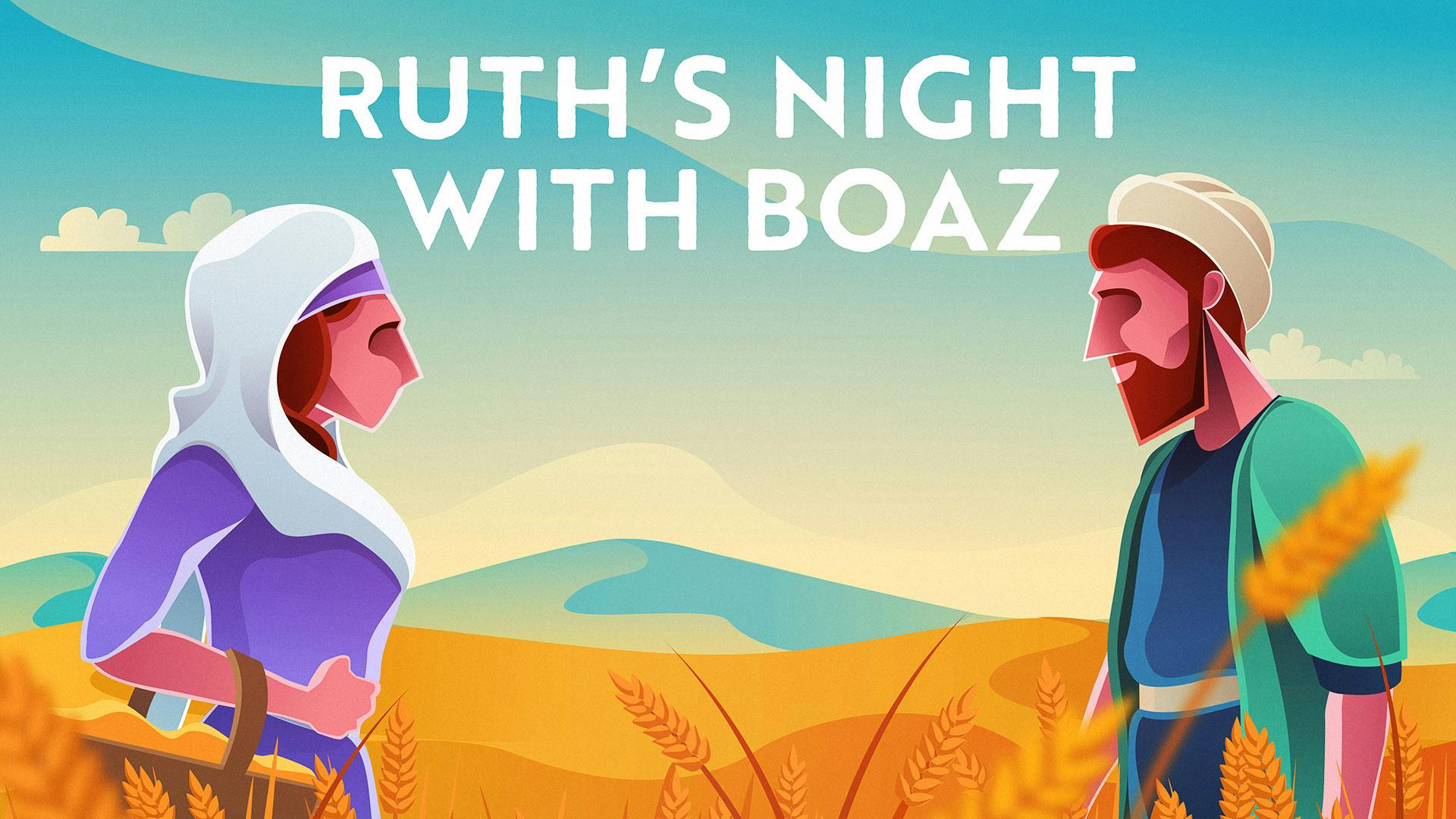
Did Ruth Seduce Boaz?
We don’t often talk about how the story of Lot and his daughters is a little risqué for Biblical literature. But looking back at similar illicit stories, of Yehuda and Tamar and Boaz and Ruth, a transcendent lesson emerges. Instead of sly sensuality defining the story, Rabbi Fohrman finds a redemptive love and kindness within the text, shedding new light and understanding on the concepts of kindness and recognition.
Part 1 of 4 • 11 min

The Deeper Significance Of Gilead In The Bible
The Torah is a book of great drama, why does the narrative ends with a seemingly-unnecessary story about a random conquest of some towns? In this week and next week, Rabbi Fohrman paints a picture of epic connections to the stories of Jacob, Joseph and Judah.
Part 1 of 2 • 13 min
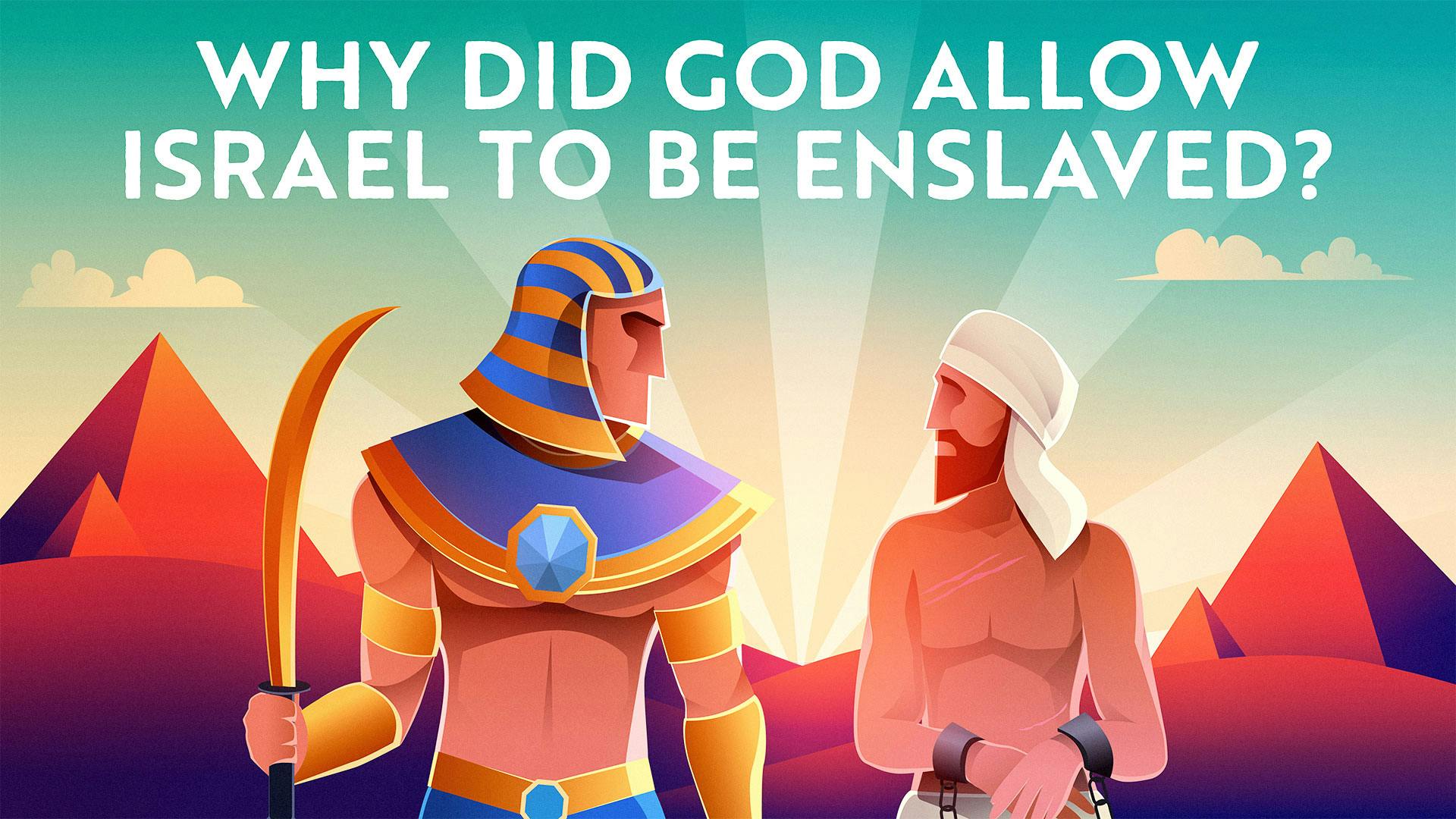
Why Did God Permit The Israelites To Become Slaves?
The Exodus story is gripping, emotional, and exciting. But...isn't it also deeply theologically troubling? God freed us from slavery, yes - but why did God allow the Israelites to become enslaved in the first place? Why not skip the whole slavery part, and go straight to the happy ending? Join Rabbi Fohrman on the search for answers, and a deeper understanding about how much we have to be thankful for.
Part 1 of 5 • 8 min

Vayeshev: Who Really Sold Joseph?
A printable parsha guide for our Vayeshev video, "Who Really Sold Joseph?"

Vayeshev: Does God Speak To Us Today? Part 1
A printable parsha guide for our Vayeshev video, "Does God Speak To Us Today? Part 1."
Genesis // Miketz
Miketz: Genesis 41:1–44:17
Joseph interprets Pharaoh’s dream. The brothers come to Egypt. Benjamin is framed!
See the full summary and Parsha home page here.
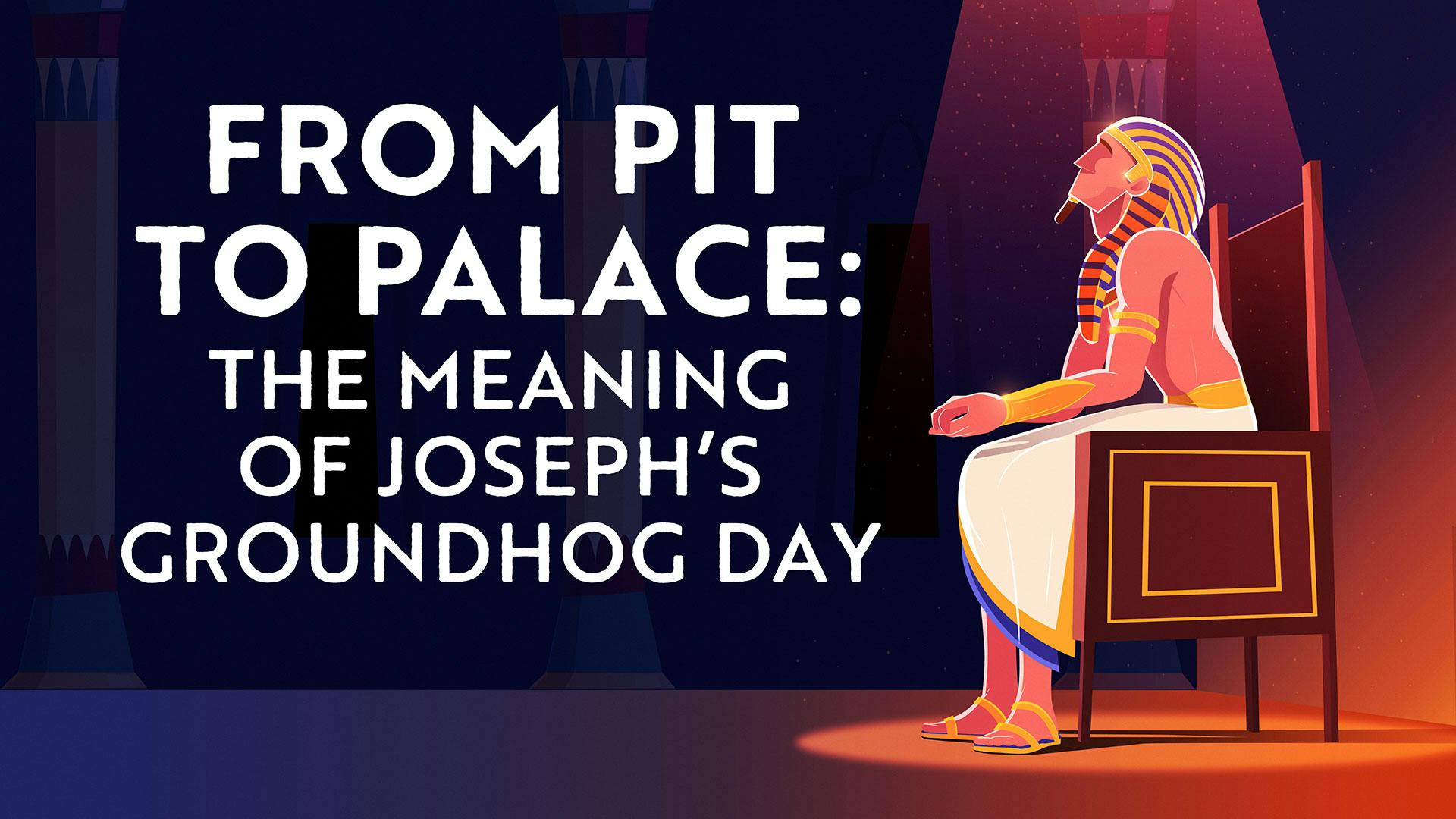
The Untold Story Of Joseph's Redemption
Once Joseph is released from prison, he quickly becomes Pharaoh's second-in-command – and one of the most powerful men in the world. The story makes you wonder if this was some great coincidence? Or did Joseph do something to earn this great station? Rabbi Fohrman finds echoes of Joseph’s first misfortune in all his later trials, and uncovers an evolution in Joseph’s character that may explain his unfathomable rise to power.
17 min

Parshat Miketz: A Phantom Blessing
In Parshat Miketz, Jacob sends his sons on a mission to get food from Egypt so they can survive a famine plaguing the entire Middle East. On the surface, it seems like a straightforward request, but a closer read reveals a deeper purpose in their mission. Join Ari Levisohn and Rabbi David Fohrman as they uncover a hidden layer of meaning in this week’s parsha and discuss what we are meant to do with our material success in this world.
35 min

Jacob and Joseph: A Father-Son Relationship
After Joseph was sold into slavery, why didn't he ever get in touch with his father? In this video, Rabbi Fohrman will help us attempt to look at the story through Joseph's eyes, and explore the possibility that Joseph assumed his father was in on the plot. This new perspective helps us understand Joseph, and also his unique relationship with Pharaoh, who becomes the father figure in Joseph's life.
7 min

Does God Speak To Us Today?
In the following four videos, Rabbi Fohrman will tackle a very difficult and important question: does God speak with us today? We will use the lens of Joseph's story to understand what non-prophetic communication with God could look like today.
Part 1 of 4 • 11 min

Does Joseph Ever Truly Forgive His Brothers?
When you hurt someone, it’s not enough to just improve your character. Real transformation means being able to repair the damaged relationship as well. In the story of Joseph and his brothers, does real reconciliation actually happen? Join us in Parshat Miketz as we tackle the complicated story of the Sale of Joseph and learn how to truly reconcile relationships with those we love.
12 min

The Joseph Story
The story of Joseph and his brothers is one of the most well-known in the entire Bible. And yet, the story – for all its familiarity and simplicity – is darker than the one we might remember learning as a child. Indeed, a sober reading of the text reveals that this is no child's story at all. What are we to make of this story of near-fratricide? What enduring meaning does it hold out to us?
Part 1 of 94 • 12 min

Why Do The Events In Joseph’s Life Keep Repeating?
Someone’s got a grudge against Joseph. Joseph ends up in a pit, stripped of his clothes. The perpetrator presents Joseph’s coat as false evidence. Sounds like the story of the sale of Joseph, right? Wrong. It’s the replay of the sale of Joseph story. Oh, you didn’t know that there was a replay? Actually, there are three. All in Parshat Vayeishev. What does it all mean?
16 min

Riddle Of The Bowing Stars: Joseph's Mysterious Dream
Joseph has some bizarre dreams through the story of Genesis. Rabbi Fohrman points out that up to this point in the Torah, only two people have ever had dreams – Jacob and Joseph, father and son. Is that a coincidence? If not, is there a relationship between father's dreams and son's dreams? Could understanding the relationship between the dreams reveal what the dreams truly mean?
Part 1 of 2 • 57 min

What Do Dreams Actually Mean: Prophecy? Nonsense? Or Neither?
We have so many dreamers in Genesis – Jacob, Joseph, Pharaoh, his servants – and they have significant meaning, with some even interpreted as prophecies from God. But what about our dreams, today? Do they have real meaning? Are they prophetic, nonsense, or somewhere in between? Should we be paying closer attention to what our dreams mean, or is dream prophecy a thing of past?
1 hour, 30 min

King David's Haunted Past
The Sale of Joseph doesn't affect only one or two generations – it goes all the way to King David, hundreds of years later. David inaugurates the Temple in Jerusalem with a special psalm – but nothing about the text seems to relate to the Temple at all! In this lecture, Rabbi Fohrman explains that in Psalm 30, David was hearkening back to his ancestor Judah to explain why Judah merited for his descendants to build the Temple.
1 hour, 20 min

Miketz: Why Didn't Joseph Write Home?
A printable parsha guide for our Miketz video, "Why Didn't Joseph Write Home?"

Miketz: Does God Speak To Us Today? Part 2
A printable parsha guide for our Miketz video, "Does God Speak To Us Today? Part 2."
Genesis // Vayigash
Vayigash Torah Portion: Genesis 44:18–47:27
Judah pleads for Benjamin’s freedom. Joseph reveals himself. Jacob and Joseph reunite! The family settles in Goshen.
See the full summary and Parsha home page here.
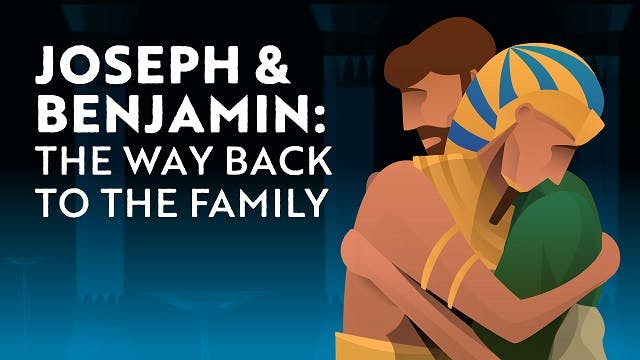
Mending Relationships And Missing Ribs
In a final effort, Judah begs Joseph to let Benjamin go, using an interesting phrase: "The lad is unable to leave his father." Interestingly, that particular phrase comes up somewhere else in Genesis: in the Garden of Eden, following the union of Adam and Eve. But what could marriage possibly have to do with the drama of Joseph and his brothers in Egypt?
11 min

Vayigash: Was Joseph The Golden Calf?
In Parshat Vayigash, Joseph finally reveals himself to his brothers, and they realize that the Egyptian official they had bowed down to was none other than their long lost brother. What did Jacob's sons think about their powerful brother now? Why does Joseph have to emphasize God's role in orchestrating the events of their lives? Join Ari Levisohn and Adina Blaustein as they explore the striking similarities between Joseph and the Golden Calf.
31 min

The Far-Reaching Effects Of Judah’s Confrontation With Joseph
Judah once allowed a son of Rachel to be taken, but in this week's parsha, he offers to sacrifice himself instead of Benjamin, because Jacob's soul is bound up in the soul of Benjamin. Where do we see the same language used centuries later? In this video, Rabbi Fohrman explores a fascinating Biblical echo and helps us answer, what is heroism?
8 min

Does God Speak To Us Today?
In the following four videos, Rabbi Fohrman will tackle a very difficult and important question: does God speak with us today? We will use the lens of Joseph's story to understand what non-prophetic communication with God could look like today.
Part 1 of 4 • 11 min

Judah’s Fight For Benjamin
In Parshat Vayigash we learn about the power of a truly epic speech. Judah's monologue to Joseph changes the course of history – instead of falling into a future of despair and misery for the house of Jacob, Judah's speech saves Benjamin and reunites the entire family. What was it about this speech that so drastically turned the tide of our history?
13 min

The Joseph Story
The story of Joseph and his brothers is one of the most well-known in the entire Bible. And yet, the story – for all its familiarity and simplicity – is darker than the one we might remember learning as a child. Indeed, a sober reading of the text reveals that this is no child's story at all. What are we to make of this story of near-fratricide? What enduring meaning does it hold out to us?
Part 1 of 94 • 12 min

What Do Dreams Actually Mean: Prophecy? Nonsense? Or Neither?
We have so many dreamers in Genesis – Jacob, Joseph, Pharaoh, his servants – and they have significant meaning, with some even interpreted as prophecies from God. But what about our dreams, today? Do they have real meaning? Are they prophetic, nonsense, or somewhere in between? Should we be paying closer attention to what our dreams mean, or is dream prophecy a thing of past?
1 hour, 30 min

King David's Haunted Past
The Sale of Joseph doesn't affect only one or two generations – it goes all the way to King David, hundreds of years later. David inaugurates the Temple in Jerusalem with a special psalm – but nothing about the text seems to relate to the Temple at all! In this lecture, Rabbi Fohrman explains that in Psalm 30, David was hearkening back to his ancestor Judah to explain why Judah merited for his descendants to build the Temple.
1 hour, 20 min

Vayigash: The Epic Confrontation Between Judah and Joseph
A printable parsha guide for our Vayigash video, "The Epic Confrontation Between Judah and Joseph"

Vayigash: Does God Speak To Us Today? Part 3
A printable parsha guide for our Vayigash video, "Does God Speak To Us Today? Part 3."
Genesis // Vayechi
Vayechi Torah Portion: Genesis 47:28–50:26
The final book of Genesis, Jacob blesses his sons before dying. Joseph affirms that he will not take revenge on his brothers after Jacob passes away. Jacob makes Joseph promise him that he will bury him in Canaan.
See the full summary and Parsha home page here.
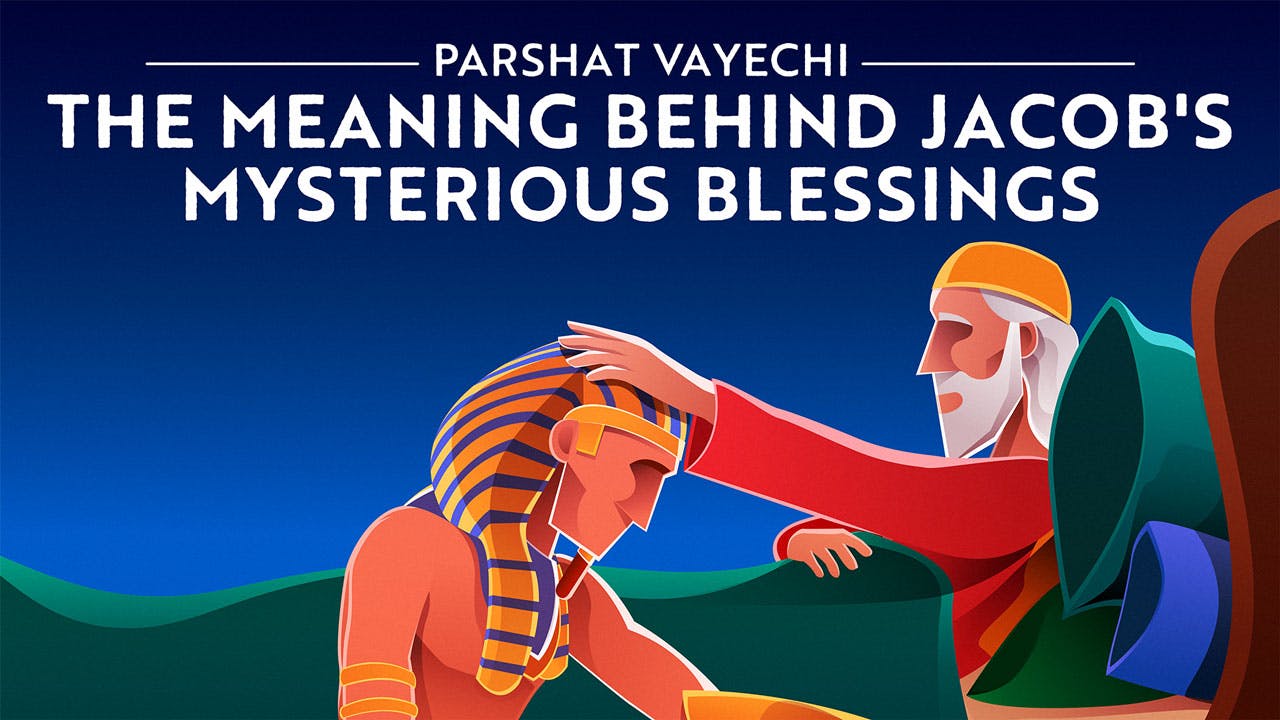
What Was Jacob's Final Blessing To Joseph Really About?
Bereishit ends with Jacob's blessings to his sons – but the blessings are so poetic that they are difficult to understand! The Torah rarely records intimate deathbed experiences, and yet a full chapter is devoted to Jacob's blessings. What is the meaning of them? This video looks at Joseph's blessing in particular, and aims to answer another mystery: Did Jacob ever find out that his sons sold Joseph?
13 min

The True Significance Of Jacob's Burial
When Joseph agrees to bury Jacob in Canaan, Jacob is relieved – why? What was Jacob worried about? In this video, the last parsha of Genesis, Rabbi Fohrman explores Joseph's tension between his commitments to Jacob and Pharaoh, and the meaning of his decision to bury Jacob in Canaan.
8 min

Does God Speak To Us Today?
In the following four videos, Rabbi Fohrman will tackle a very difficult and important question: does God speak with us today? We will use the lens of Joseph's story to understand what non-prophetic communication with God could look like today.
Part 1 of 4 • 11 min

What Is The Mission Of The Children Of Israel?
We finish the book of Genesis with Parshat Vayechi. After weeks of stories of deception and favoritism, we must ask ourselves – how did we stray so far from the ideal nation set up by Abraham? What happened to the family that was supposed to model justice and kindness? We step back to look at Genesis as a whole, in order to understand what is the overarching message we are meant to take away.
11 min

The Joseph Story
The story of Joseph and his brothers is one of the most well-known in the entire Bible. And yet, the story – for all its familiarity and simplicity – is darker than the one we might remember learning as a child. Indeed, a sober reading of the text reveals that this is no child's story at all. What are we to make of this story of near-fratricide? What enduring meaning does it hold out to us?
Part 1 of 94 • 12 min

What Do Dreams Actually Mean: Prophecy? Nonsense? Or Neither?
We have so many dreamers in Genesis – Jacob, Joseph, Pharaoh, his servants – and they have significant meaning, with some even interpreted as prophecies from God. But what about our dreams, today? Do they have real meaning? Are they prophetic, nonsense, or somewhere in between? Should we be paying closer attention to what our dreams mean, or is dream prophecy a thing of past?
1 hour, 30 min

King David's Haunted Past
The Sale of Joseph doesn't affect only one or two generations – it goes all the way to King David, hundreds of years later. David inaugurates the Temple in Jerusalem with a special psalm – but nothing about the text seems to relate to the Temple at all! In this lecture, Rabbi Fohrman explains that in Psalm 30, David was hearkening back to his ancestor Judah to explain why Judah merited for his descendants to build the Temple.
1 hour, 20 min

Vayechi: Who is Joseph's Real Father?
A printable parsha guide for our Vayechi video, "Who is Joseph's Real Father?"

Vayechi: Does God Speak To Us? Part 4
A printable parsha guide for our Vayechi video, "Does God Speak To Us? Part 4."
Exodus // Shemot
Shemot Torah Portion: Exodus 1:1–6:1
The new Pharaoh enslaves the Israelites and demands all males be killed upon birth. Moses is born and placed in the Nile river, where he is discovered by Pharaoh's daughter. Moses grows up in the house of Pharaoh. Moses kills an Egyptian slave master and runs away from fear of retribution. He sees a burning bush and hears God speak to him. God commands Moses to lead the Jewish people out of Egypt.
See the full summary and Parsha home page here.
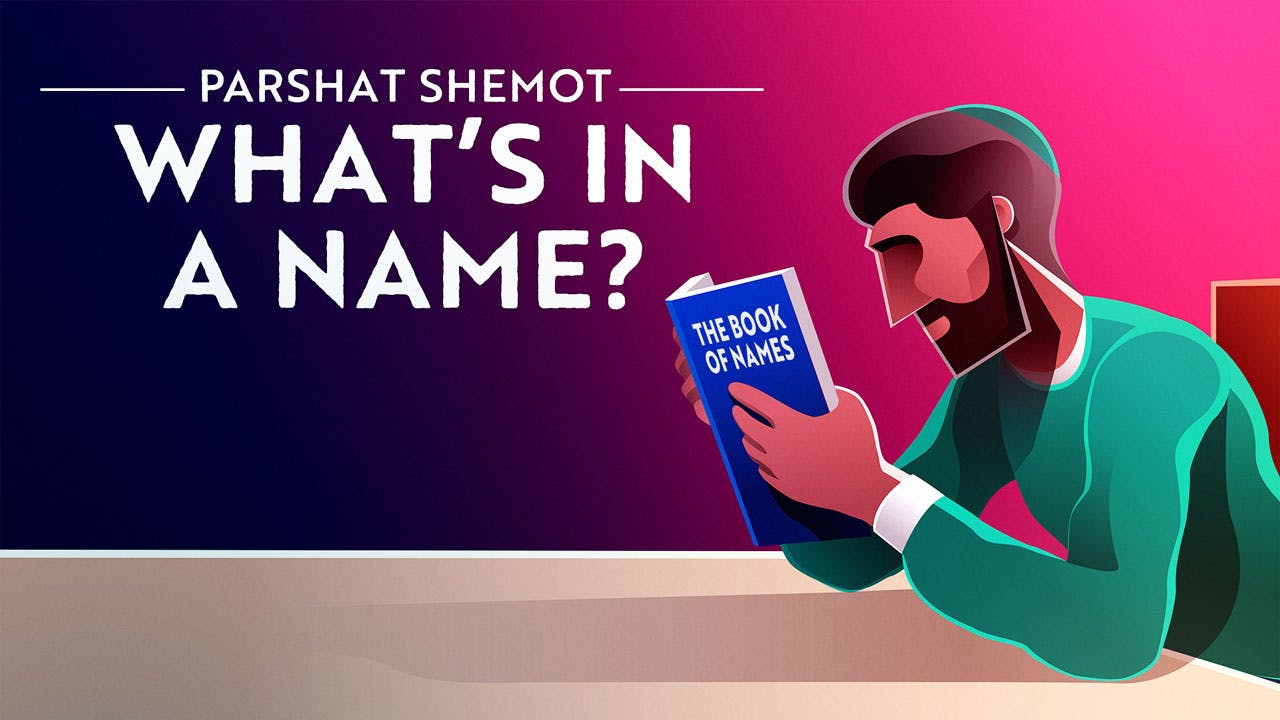
The Meaning Of The Name "Shemot"
Have you ever wondered why The Book of Shemot is called 'Shemot' – meaning 'Names'? In English, we translate it to Exodus, which makse sense because there was an EXODUS from Egypt! So where do the names come in? Turns out that names play a larger role in the story of Shemot than you may have thought. Join Rabbi Fohrman in uncovering the unique meaning behind the name Shemot.
13 min

Shemot: What Was Moses’ Real Mission?
In Parshat Shemot, we read the story of the burning bush, where Moses was charged with a mission. We are often taught that Moses’ job was to take the Israelites out of Egypt, but a close read of the text suggests that there is actually something else Moses also had to do. Join Ari Levisohn and Evan Weiner as they dive into Moses' encounter with the burning bush and discover allusions to an earlier mission in the Bible, one which sheds light on Moses’ true mission and what it means for a nation under attack. Check out Rabbi Fohrman’s video about the Korban Pesach (Passover offering) and the Sale of Joseph mentioned in this week’s episode. To learn more about Joseph’s mission to check on his brothers, watch this amazing video from Rabbi Fohrman and this earlier episode of Into the Verse.
22 min

What Does It Mean To Be A Rebel For God?
The following podcast is a discussion between Rabbi Fohrman & his son Avichai. They sat down to learn some Talmud together and stumbled upon a mysterious discussion about Bat Paro, the daughter of Pharaoh. You know, the one who was bathing by the Nile when she saw baby Moses floating by in a box? Well, the Torah text doesn’t seem to tell us very much about Bat Paro, but the Talmud seem to know a lot more: they explain that, Bat Paro got married to Caleb (one of the spies from the story in Numbers 13-14). What did the Rabbis see in the Torah text that led them to this conclusion? The answer opens up a fascinating study about who Bat Paro really was, who Caleb really was, and why they were perfectly suited for one another. The following podcast ends off hinting toward a future area of study surrounding the spies, which ultimately became a future hit Tisha B'Av course: Tisha B'Av & The Spies: An Origin Story. Click here to take a look!
26 min

How Does Midrash Work?
In this video, we explore the strange midrash in which the arm of Pharaoh's daughter stretched through the river to fetch Moses. Why do the Sages tell us such an odd story? Rabbi Fohrman argues that we need to put ourselves into the eyes of Pharaoh's daughter, and help us see that when we want to achieve something, God will help us find a way to do it.
6 min

The Meaning of God's Name, "Ehyeh Asher Ehyeh"
We often talk about God's love for us, but does God really have emotions? In this week's parsha, Rabbi Fohrman explores an odd midrash about God's names and explains how incredible and inscrutable God's love is.
12 min

Moses' Most Important Quality
Everyone loves a good origin story – how did Anakin Skywalker become Darth Vader? Who was Peter Parker before Spiderman? In this video for Parshat Shemot, we focus on Moses – what unique quality led him to be appointed by God? What character trait made Moses a hero?
13 min
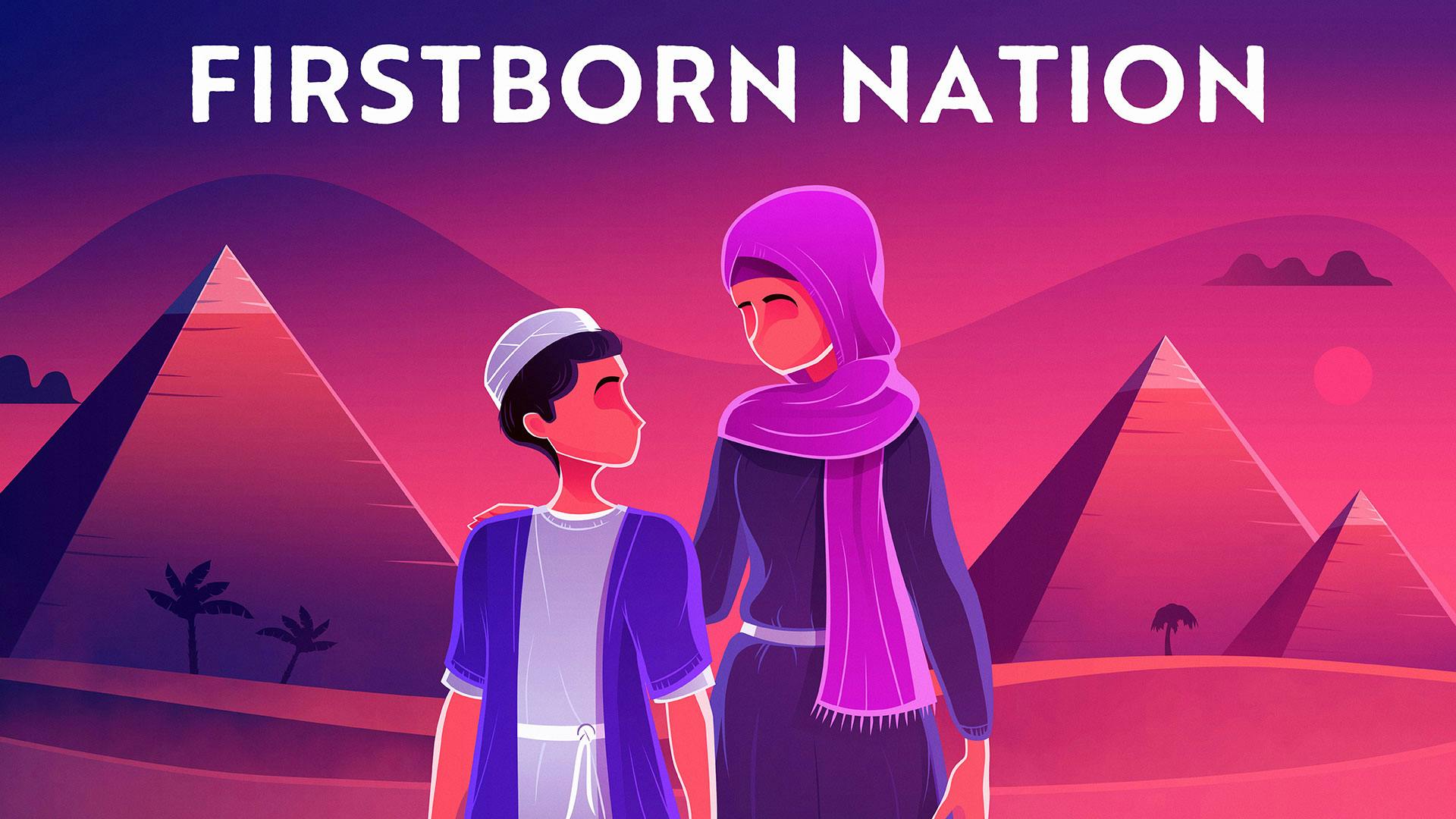
Origins Of The Firstborn Nation
The story of the Exodus reminds us of the experience of our ancestors, the Israelites, and their freedom from Egypt. And the climax, of the story, right before they're all taken out of Egypt, is when the Israelites bring the Korban Pesach, the Passover offering. Today, when we think of that story, we can't help but ask...what is the Passover offering all about? And, Rabbi Fohrman asks, how meaningful can the Exodus be to us today, if we don't understand the Passover offering at all?
Part 1 of 10 • 1 hour, 52 min

Why Did God Use Miracles To Free The Israelites From Slavery?
Hidden in the Exodus story is a lesson on abusive relationships and how to break the traumatic cycle of abuse. In this intense podcast, join Rabbi David Fohrman & Beth Lesch as they tackle the difficult subject of abuse from all angles.
Part 1 of 2 • 38 min
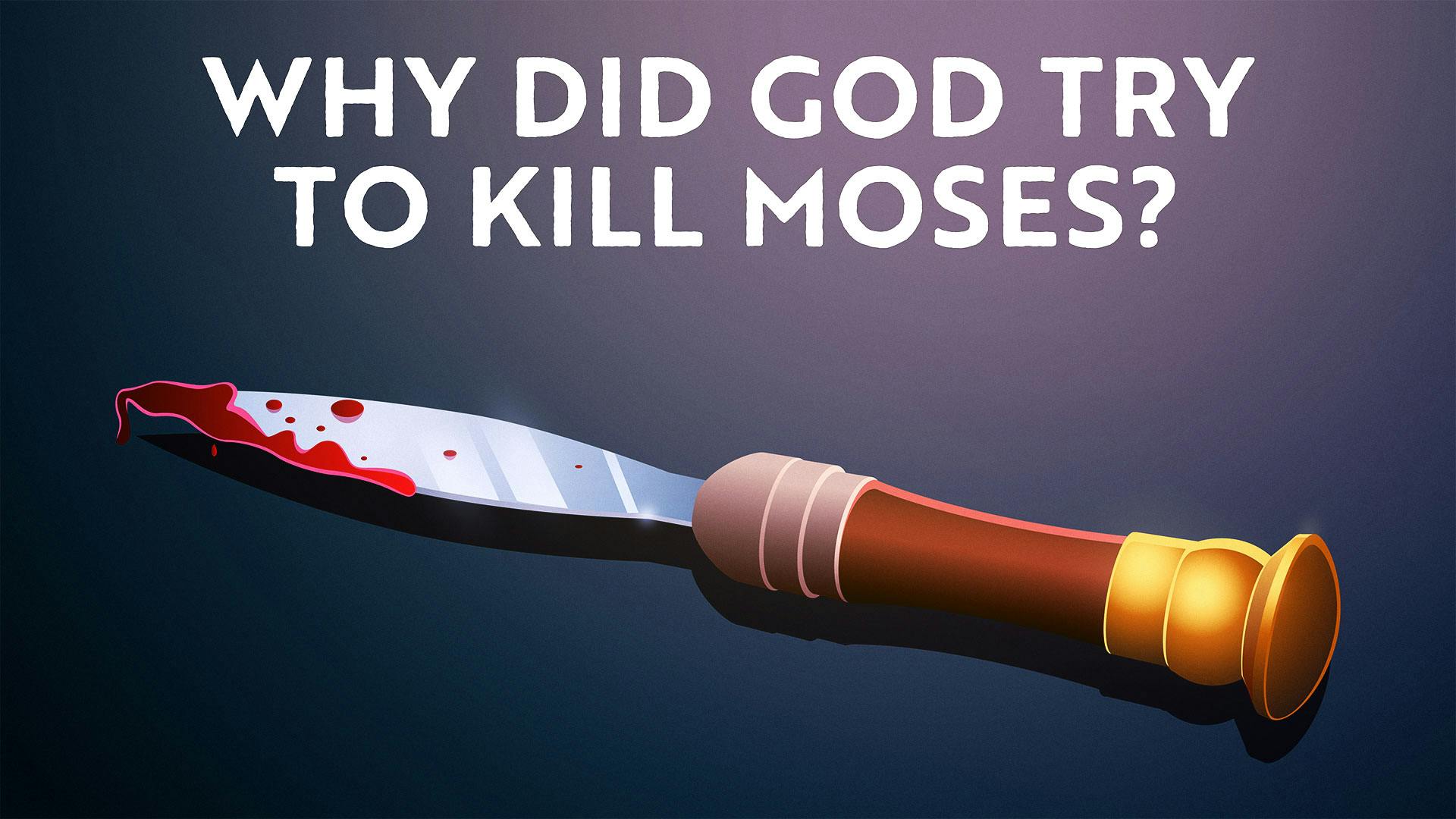
The History Of Moses In The Bible
Every hero has an origin story. We are all familiar with Moshe’s origin story. But there is one episode in the story that actually seems quite unfamiliar. On the road back to Egypt with his wife Tzipporah and their two sons, Moshe and his family stop at an inn when the strangest thing happens. God tries to kill Moses! Fortunately, level-headed Tzipporah saves the day by circumcising their second son and then the story suddenly ends. (Yes, this is a real story from the Chumash! Look it up! It’s Exodus 4:24-26.) What a strange story! God was the One who sent Moses to Egypt. Moshe was doing what God told him to do! So why would God try to kill him?! Talk about shooting the messenger! In this newly remastered and reanimated video series, Rabbi Fohrman weaves an interpretation of this story into a larger, magnificent tapestry shedding new light on our origin story - The Exodus.
Part 1 of 6 • 14 min
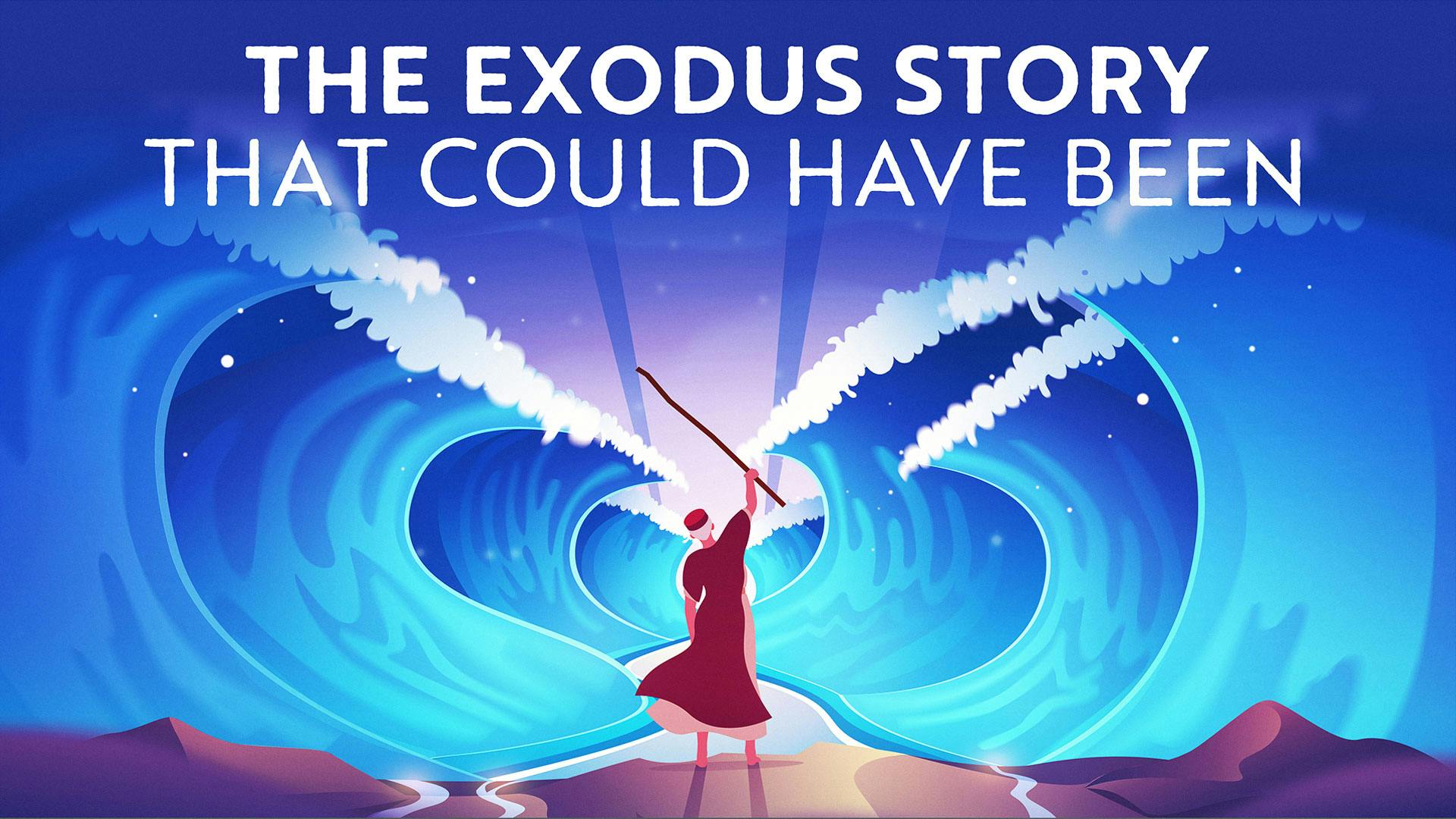
The Exodus Story That Could Have Been
The Exodus story ends in carnage for the Egyptians, and in glorious salvation for the Israelites – but could this story have ended differently? Could the Egyptians also have lived happily ever after? Rabbi Fohrman thinks we can find the answer by noticing some uncanny resemblances to another biblical story. Join us as we explore a new way of reading the Exodus story.
Part 1 of 5 • 13 min

Why Did God Permit The Israelites To Become Slaves?
The Exodus story is gripping, emotional, and exciting. But...isn't it also deeply theologically troubling? God freed us from slavery, yes - but why did God allow the Israelites to become enslaved in the first place? Why not skip the whole slavery part, and go straight to the happy ending? Join Rabbi Fohrman on the search for answers, and a deeper understanding about how much we have to be thankful for.
Part 1 of 5 • 8 min
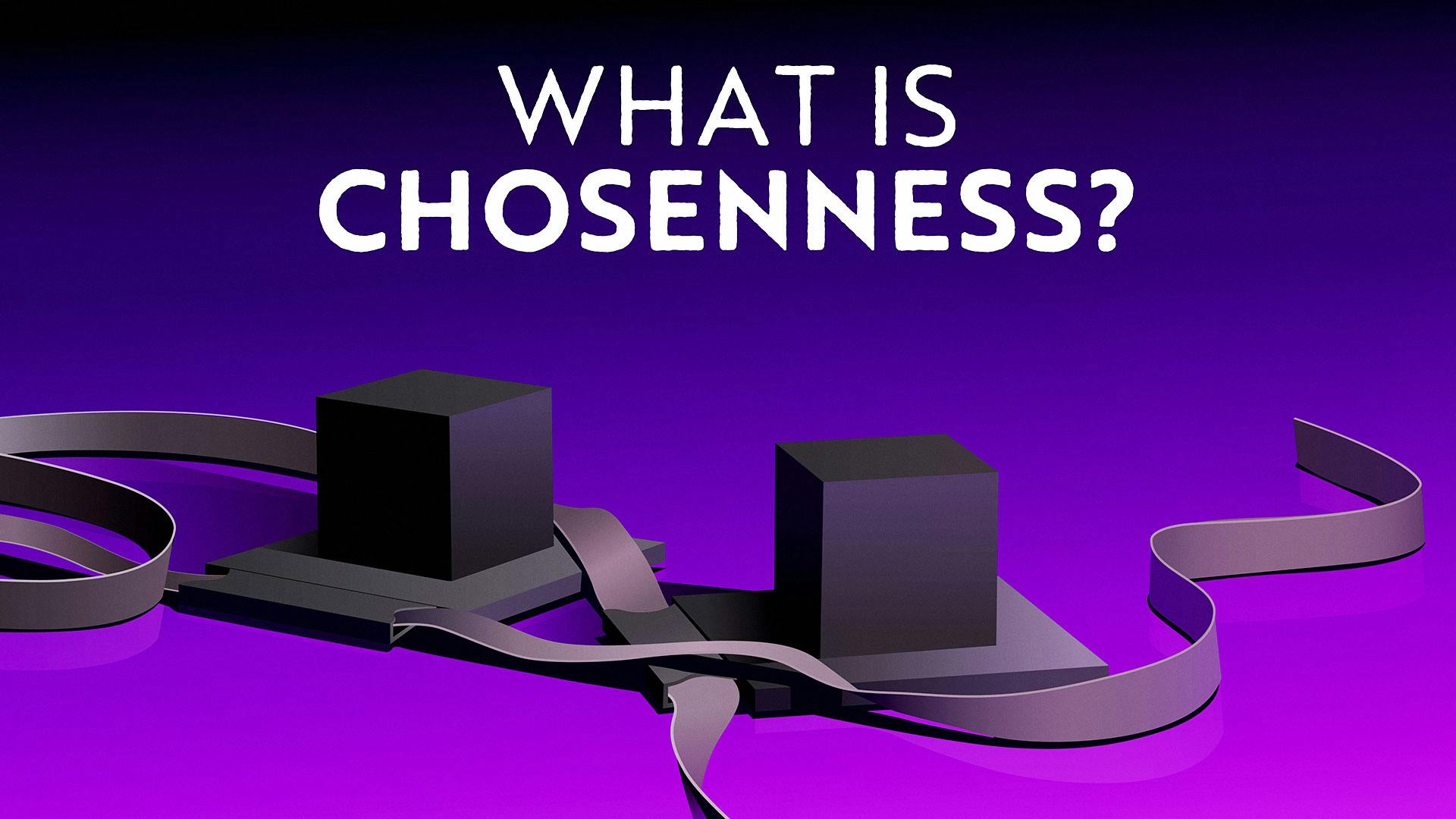
Why Did God Choose Israel As His Chosen People
This multi-part course delves into the challenging concept of chosenness, exploring how Passover reveals our deeper purpose as a people and the unique role Israel plays in God's plan.
Part 1 of 8 • 8 min
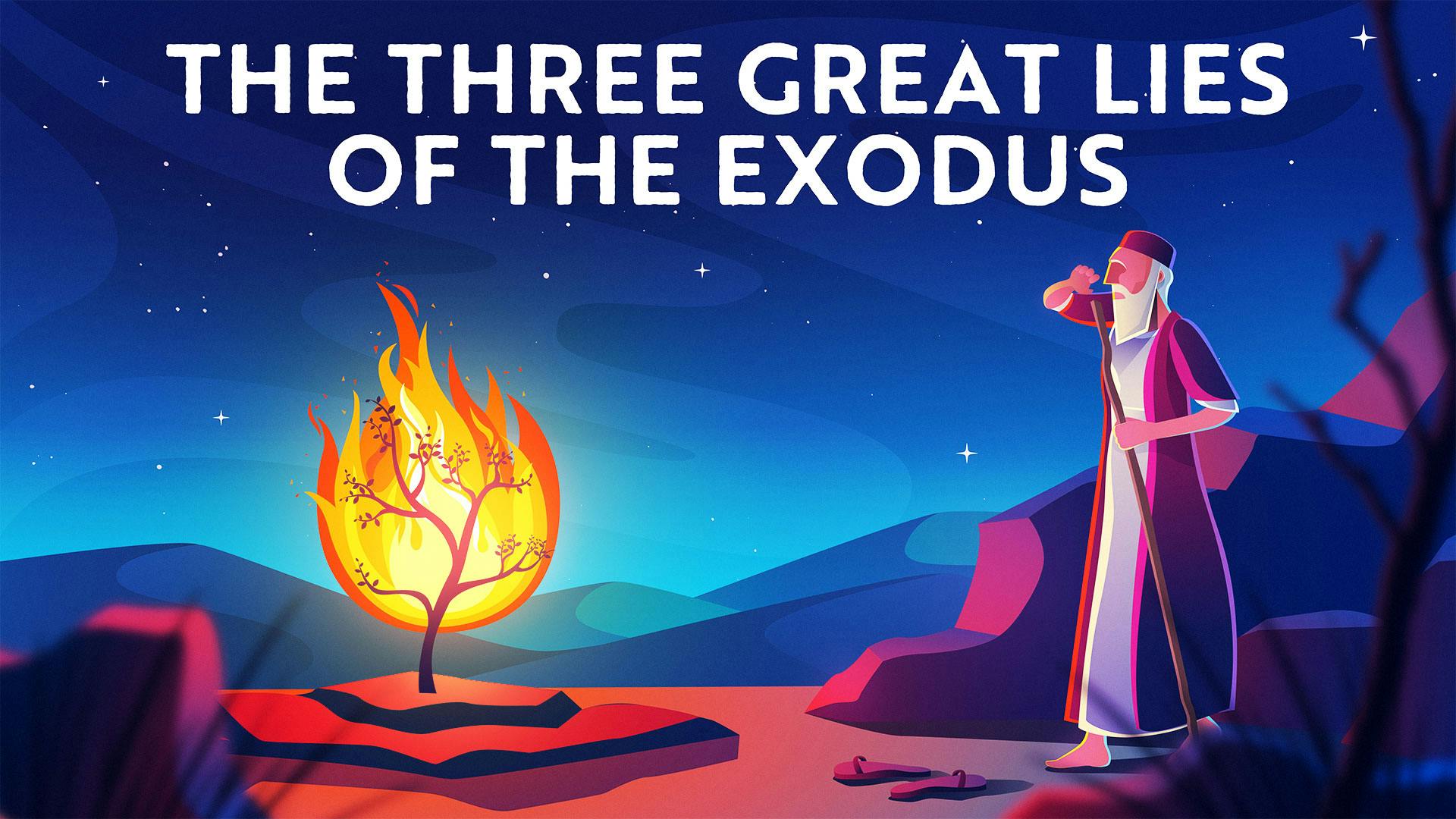
The Miracles Performed By Moses In Egypt
At the burning bush, God gave Moses three signs to show the People of Israel that He is in fact with them. Was there any significance to these 3 signs, or did God randomly select three signs? Also, were the signs even effective? Join Rabbi Fohrman as he takes a closer look at these three signs from God.
Part 1 of 7 • 10 min

Shemot: How Does Midrash Work?
A printable parsha guide for our Shemot video, "How Does Midrash Work?"

Shemot: Does God Really "Love" Us?
A printable parsha guide for our Shemot video, "Does God Really "Love" Us?"
Exodus // Vaera
Vaera Torah Portion: Exodus 6:2–Exodus 9:35
Moses and Aaron plead with Pharaoh to let the Jewish people go serve their God, but Pharaoh refuses. God begins sending plagues to punish Pharaoh and convince him to free the Jewish people.
See the full summary and Parsha home page here.
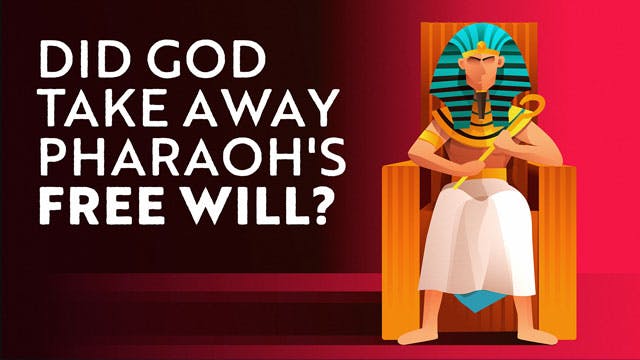
Why Did God Harden Pharaoh's Heart?
At first glance, it seems like God took away Pharaoh's free will when he hardened his heart – how could He do such a thing? In this video, we explore the different words used by the Torah – kaved and chazek. Rabbi Fohrman argues that this language shows that God did allow Pharaoh to pursue his free will, even if the vision was in defiance of God.
8 min

Why Did God Use Miracles To Free The Israelites From Slavery?
Hidden in the Exodus story is a lesson on abusive relationships and how to break the traumatic cycle of abuse. In this intense podcast, join Rabbi David Fohrman & Beth Lesch as they tackle the difficult subject of abuse from all angles.
Part 1 of 2 • 38 min
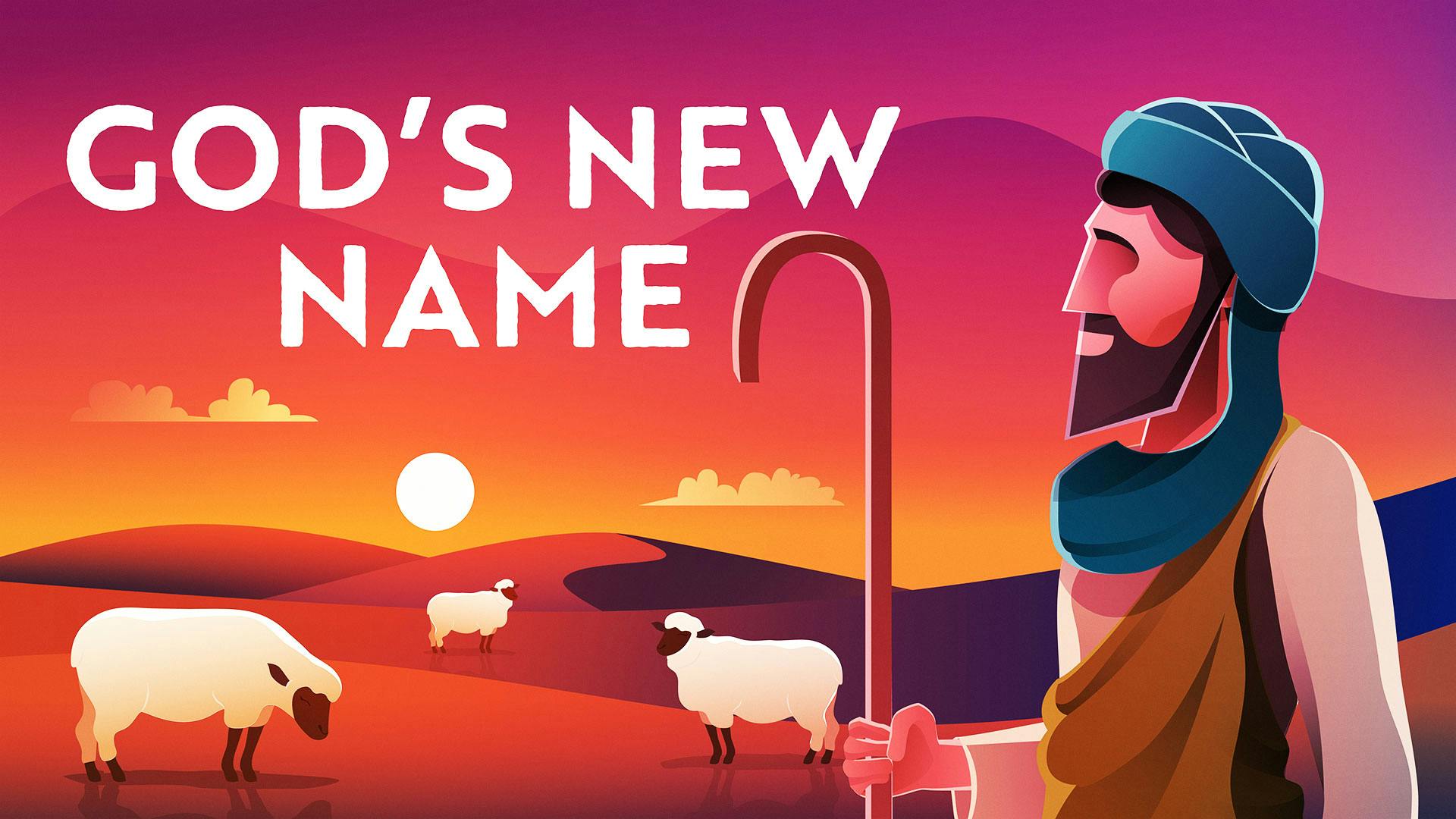
The Meaning Of Kel Shakkai
God has a lot of names. YHKH means "mercy." Elokim means "justice." What about Kel Shakkai? Beth Lesch has a hunch – and she talked to an animal scientist to confirm it.
Part 1 of 2 • 13 min

Can Science Prove That God Exists?
In this week’s parsha video, Rabbi Fohrman examines one of God’s names and reveals how the Rabbis suggest the Big Bang theory can coexist with belief in God as the Creator.
12 min

Understanding God's Conversations With Moses
Epic speeches inspire us, but what if you're hearing the same epic speech over and over again? That's what we hear in God's conversations to Moses. Why was there so much repetitive conversation between God and Moses before the actual Exodus from Egypt? Join us as we explore what was the real message behind what God said to Moses.
13 min

The Symbolic Meaning Of The Ten Plagues Explained
This week, Rabbi Fohrman and Imu tackle Parshat Va'era and ask: are the plagues just arbitrary? Or do they mean something real, to the Israelites, the Egyptians, and to us, today?
26 min

Origins Of The Firstborn Nation
The story of the Exodus reminds us of the experience of our ancestors, the Israelites, and their freedom from Egypt. And the climax, of the story, right before they're all taken out of Egypt, is when the Israelites bring the Korban Pesach, the Passover offering. Today, when we think of that story, we can't help but ask...what is the Passover offering all about? And, Rabbi Fohrman asks, how meaningful can the Exodus be to us today, if we don't understand the Passover offering at all?
Part 1 of 10 • 1 hour, 52 min

The Exodus Story That Could Have Been
The Exodus story ends in carnage for the Egyptians, and in glorious salvation for the Israelites – but could this story have ended differently? Could the Egyptians also have lived happily ever after? Rabbi Fohrman thinks we can find the answer by noticing some uncanny resemblances to another biblical story. Join us as we explore a new way of reading the Exodus story.
Part 1 of 5 • 13 min

Why Did God Permit The Israelites To Become Slaves?
The Exodus story is gripping, emotional, and exciting. But...isn't it also deeply theologically troubling? God freed us from slavery, yes - but why did God allow the Israelites to become enslaved in the first place? Why not skip the whole slavery part, and go straight to the happy ending? Join Rabbi Fohrman on the search for answers, and a deeper understanding about how much we have to be thankful for.
Part 1 of 5 • 8 min

Why Did God Choose Israel As His Chosen People
This multi-part course delves into the challenging concept of chosenness, exploring how Passover reveals our deeper purpose as a people and the unique role Israel plays in God's plan.
Part 1 of 8 • 8 min

The Miracles Performed By Moses In Egypt
At the burning bush, God gave Moses three signs to show the People of Israel that He is in fact with them. Was there any significance to these 3 signs, or did God randomly select three signs? Also, were the signs even effective? Join Rabbi Fohrman as he takes a closer look at these three signs from God.
Part 1 of 7 • 10 min

Va'era: Did God Take Away Pharaoh's Free Will?
A printable parsha guide for our Va'era video, "Did God Take Away Pharaoh's Free Will?"

Va'era: Seeing God in Science
A printable parsha guide for our Va'era video, "Seeing God in Science."
Exodus // Bo
Torah Portion Bo: Exodus 10:1–13:16
God unleashes the last three plagues: locusts, darkness, and the death of the firstborns. Only after the last plague does Pharoah relent and tell Moses to leave Egypt.
See the full summary and Parsha home page here.
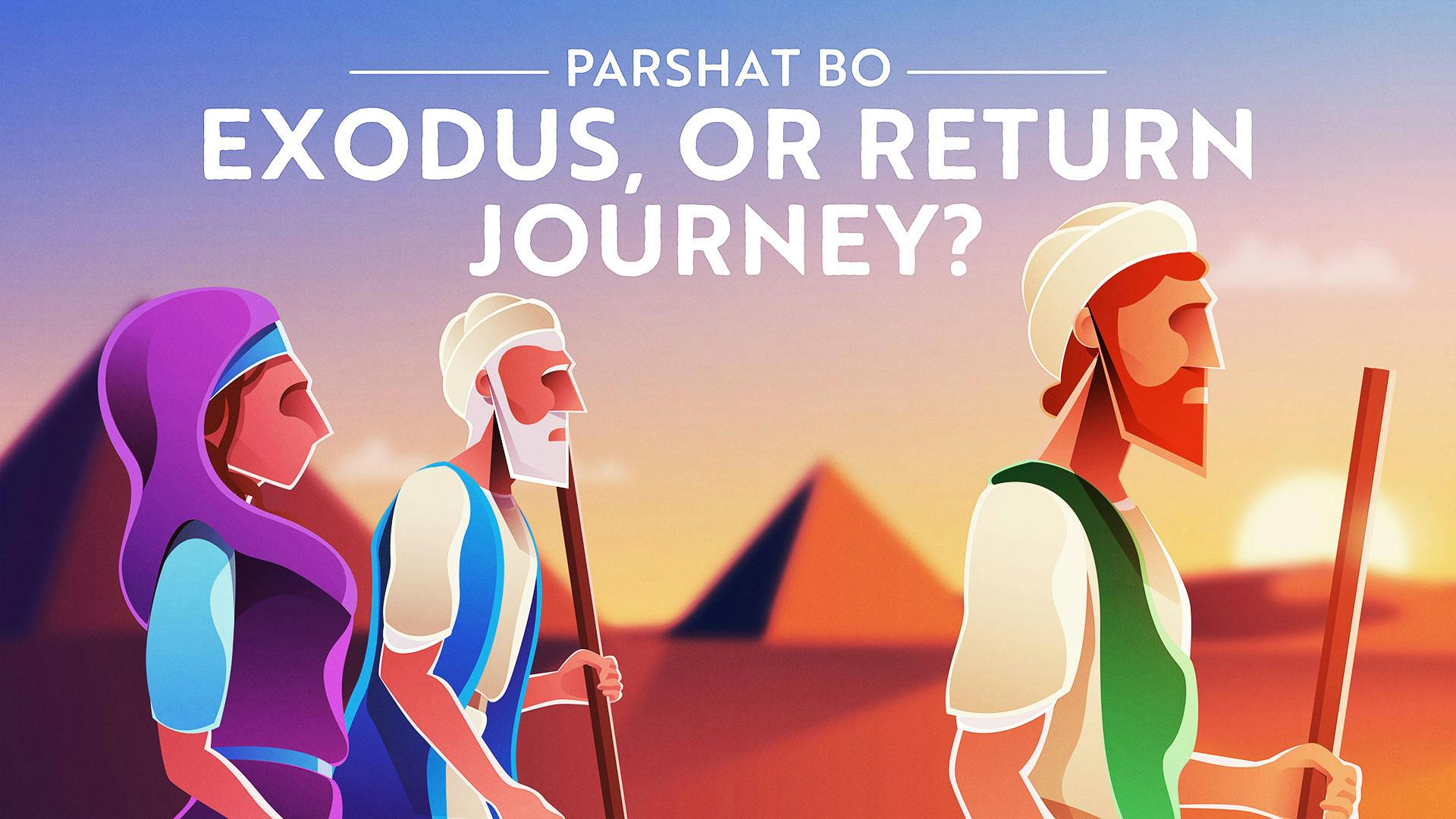
Why The Israelites Couldn't Eat Their Bread
We all know the famous story of the unleavened bread- the Israelites had no time to let their dough rise as they ran out of Egypt, so they took their dough and let it bake on their backs as they fled. But why do we need to hear about this minute detail? As a matter of fact, there are a number of seemingly odd phrases in the verses describing Israel's exodus, and they all seem to lead us to one particular place in the Torah: Judah's plea to Jacob to let Benjamin go down to Egypt so that they could get grain. Join Rabbi Fohrman as he helps uncover the mystery between two seemingly separate stories, and see how we got there, and back again.
17 min

Bo: What Did The Egyptians Get Out Of The Exodus?
Parshat Bo tells the story of the last three plagues. The 10th plague, the death of the firstborn, ultimately compels Pharaoh and the Egyptians to free the Israelites from slavery, but was that really the purpose of the plagues? Were they just meant to punish the Egyptians? Or were the Egyptians meant to get something else out of these destructive plagues? Join Tikva Hecht and Beth Lesch as they challenge a classic answer to these questions on the 10 plagues and develop a new understanding of what it means to “know God.” Check out Rabbi Fohrman’s course “Why Did God Choose Israel As His Chosen People?” to explore these questions further. To access the brand new season of Rabbi Fohrman’s podcast, A Book Like No Other, click here to subscribe to Aleph Beta. As a special gift for Into the Verse listeners, we’ll give you the first month FREE, when you sign up for an annual subscription. Just use the coupon code ITVFREE. Already a member? Enjoy A Book Like No Other here.
43 min

Why Did God Use Miracles To Free The Israelites From Slavery?
Hidden in the Exodus story is a lesson on abusive relationships and how to break the traumatic cycle of abuse. In this intense podcast, join Rabbi David Fohrman & Beth Lesch as they tackle the difficult subject of abuse from all angles.
Part 1 of 2 • 38 min

The Theological Significance Of The Ten Plagues
Ten colorful and unique plagues... is that really so necessary? In this video, Rabbi Fohrman explores the plagues of Egypt – speficially the seventh, transitional plague – and argues that God played off of Pharaoh's ego to show the Pharaoh, the people of Egypt and the people of Israel, that only God is all-powerful.
9 min

The Meaning Behind The Tenth Plague Of Egypt
After God tells Moses about the last plague, He makes a series of odd statements before actually performing the plague. Why? In this video, Rabbi Fohrman argues that God is making a fundamental argument about the ultimate nature of justice.
10 min

Defining Israel's Role As God's Firstborn
In Parshat Bo, we're finally freed from years of slavery! Mazal Tov! But before we get to the triumphant splitting of the sea, we read a whole section of laws relating to firstborn children and animals. Why can’t this wait until we're across the Sea? What's the deal with these laws and what can they teach us about our role as God's firstborn nation?
13 min

The Meaning Behind The Eighth Plague Of Locusts
This week, Rabbi Fohrman and Imu do a deep dive into the plague of arbeh, locusts, in Parshat Bo. They as, why does the Torah use language “eye” and “seeing” here? Could it connect to the word “arbeh,” used back in Genesis, which connected to the blessing of Israel?
23 min

Origins Of The Firstborn Nation
The story of the Exodus reminds us of the experience of our ancestors, the Israelites, and their freedom from Egypt. And the climax, of the story, right before they're all taken out of Egypt, is when the Israelites bring the Korban Pesach, the Passover offering. Today, when we think of that story, we can't help but ask...what is the Passover offering all about? And, Rabbi Fohrman asks, how meaningful can the Exodus be to us today, if we don't understand the Passover offering at all?
Part 1 of 10 • 1 hour, 52 min

The Exodus Story That Could Have Been
The Exodus story ends in carnage for the Egyptians, and in glorious salvation for the Israelites – but could this story have ended differently? Could the Egyptians also have lived happily ever after? Rabbi Fohrman thinks we can find the answer by noticing some uncanny resemblances to another biblical story. Join us as we explore a new way of reading the Exodus story.
Part 1 of 5 • 13 min

Why Did God Permit The Israelites To Become Slaves?
The Exodus story is gripping, emotional, and exciting. But...isn't it also deeply theologically troubling? God freed us from slavery, yes - but why did God allow the Israelites to become enslaved in the first place? Why not skip the whole slavery part, and go straight to the happy ending? Join Rabbi Fohrman on the search for answers, and a deeper understanding about how much we have to be thankful for.
Part 1 of 5 • 8 min

Why Did God Choose Israel As His Chosen People
This multi-part course delves into the challenging concept of chosenness, exploring how Passover reveals our deeper purpose as a people and the unique role Israel plays in God's plan.
Part 1 of 8 • 8 min

The Miracles Performed By Moses In Egypt
At the burning bush, God gave Moses three signs to show the People of Israel that He is in fact with them. Was there any significance to these 3 signs, or did God randomly select three signs? Also, were the signs even effective? Join Rabbi Fohrman as he takes a closer look at these three signs from God.
Part 1 of 7 • 10 min

Bo: Did God Really Need Ten Plagues?
A printable parsha guide for our Bo video, "Did God Really Need Ten Plagues?"

Bo : God's Justice In Action
A printable parsha guide for our Bo video, "God's Justice In Action."
Exodus // Beshalach
Beshalach Torah Portion: Exodus 13:17–17:16
God splits the sea and the Jews cross the sea as Pharaoh and his horses pursue them. The Egyptians and Pharaoh drown in the sea, and the Jews are saved.. Miriam and the women sing songs of praise.
See the full summary and Parsha home page here.
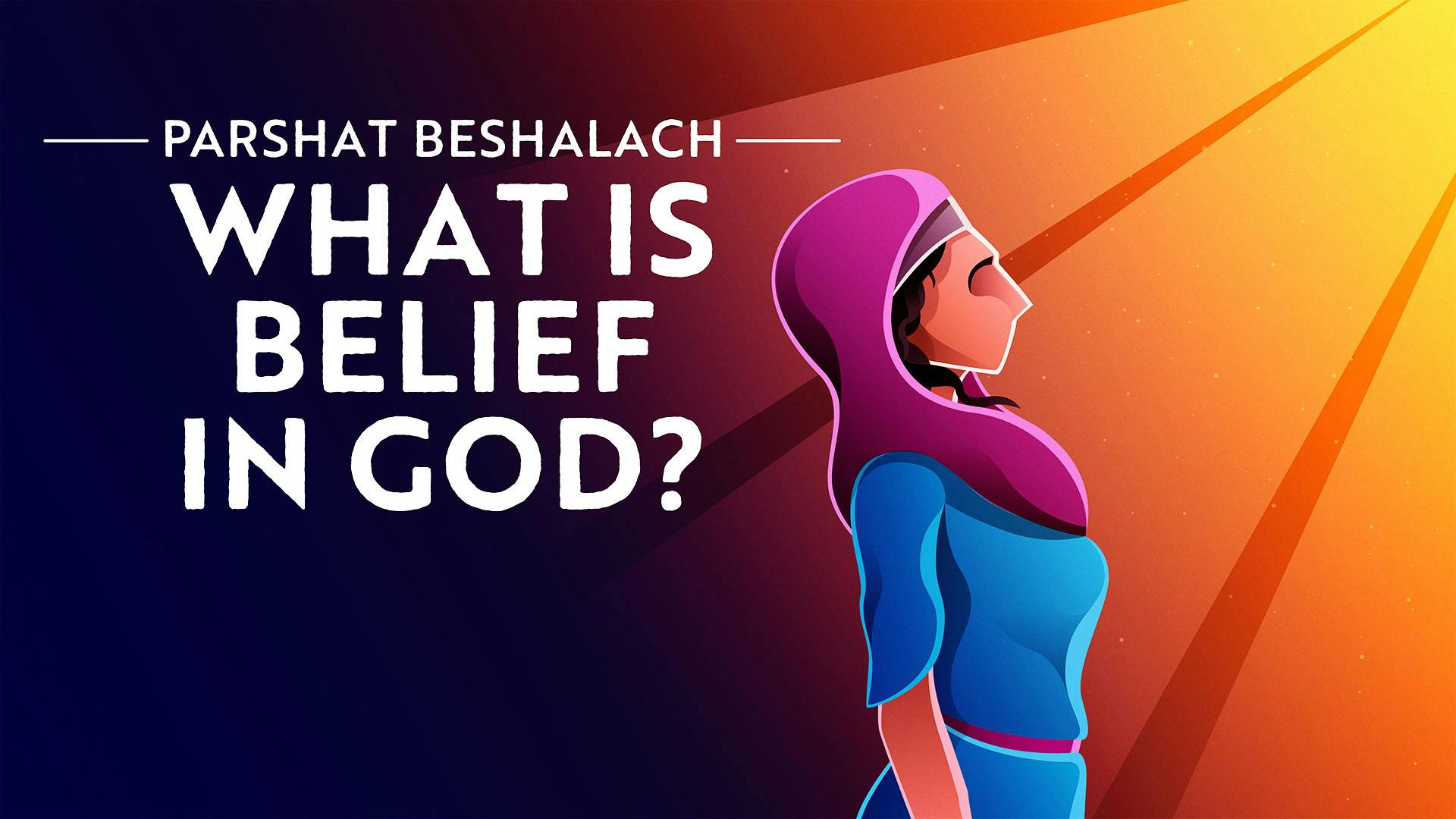
The Israelites' Struggle To Believe
After the Exodus from Egypt, we hear that the nation believed in God, and in Moses, his servant. But suddenly, over and over, they panic and struggle with their faith in God. So what kind of belief in God was that? They lost their faith in an instant? Join Rivky as she explores these stories, and the difficult concept of what it means to truly believe in God.
12 min

Why Miriam Sang the Song of the Sea
After crossing the Sea of Reeds, the nation of Israel sings a song of thanksgiving – but then Miriam leads the women in a second song. Why? In this video, Rabbi Fohrman uncovers a story about what it means to truly have faith.
14 min

How To Read Midrash
In this video, Rabbi Fohrman introduces us to a very strange midrash, which tells us that as the nation of Israel walked through to freedom, there were fruit trees surrounding them, and explains that a parallel story, early in Genesis, is a clue to understanding this midrash.
Part 1 of 2 • 9 min
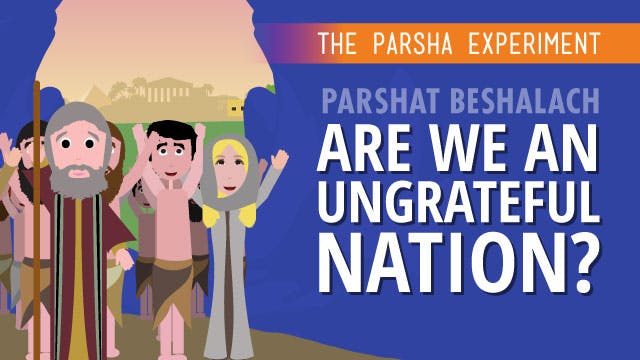
What The Israelites Really Complained About
In Parshat Beshalach, we're introduced to a nation of whiners and complainers. After years of slavery, the Israelites are finally a free nation! The next thing we should read is a love story between God and His people. But the honeymoon phase ends before it even begins. How can the Israelites complain so soon after God freed them from slavery? How did they lose faith in God so quickly?
11 min

Why Is God Testing The Israelites?
When the people first enter the wilderness, God withholds water...to test the people? In fact, this idea of God "testing" the nation shows up in every single story of this parsha! What is God really testing, and why test the people? In this podcast, Rabbi Fohrman and Imu Shalev discuss this pattern, and try to get to the bottom of the subtle connection between these stories.
32 min

Miriam And The Waters Of Strife
All over the Torah, we see a running theme – where water goes, Miriam soon follows. But what is the odd relationship between the life force of water, and Miriam the prophetess?
Part 1 of 4 • 25 min

Why Did God Choose Israel As His Chosen People
This multi-part course delves into the challenging concept of chosenness, exploring how Passover reveals our deeper purpose as a people and the unique role Israel plays in God's plan.
Part 1 of 8 • 8 min

The Exodus Story That Could Have Been
The Exodus story ends in carnage for the Egyptians, and in glorious salvation for the Israelites – but could this story have ended differently? Could the Egyptians also have lived happily ever after? Rabbi Fohrman thinks we can find the answer by noticing some uncanny resemblances to another biblical story. Join us as we explore a new way of reading the Exodus story.
Part 1 of 5 • 13 min

Why Did God Permit The Israelites To Become Slaves?
The Exodus story is gripping, emotional, and exciting. But...isn't it also deeply theologically troubling? God freed us from slavery, yes - but why did God allow the Israelites to become enslaved in the first place? Why not skip the whole slavery part, and go straight to the happy ending? Join Rabbi Fohrman on the search for answers, and a deeper understanding about how much we have to be thankful for.
Part 1 of 5 • 8 min

The Rise Of Antisemitism: A Glimpse Into Amalek’s Tortured Soul
Antisemitism. Where did it all originate and can we trace it through the Tanahk? Rabbi Fohrman argues that it may have begun with the story of Amelek, which is widely known as one of the most mystifying and difficult episodes in the Torah.
Part 1 of 11 • 1 hour, 23 min

Beshalach: What Does It Mean To Have Faith?
A printable parsha guide for our Beshalach video, "What Does It Mean To Have Faith?"

Beshalach: Fruit Trees In the Sea?
A printable parsha guide for our Beshalach video, "Fruit Trees In the Sea?"
Exodus // Yitro
Yitro Torah Portion: Exodus 18:1–20:23
Yitro (Jethro) proclaims that the Israelite God is the greatest. He advises Moses to set up a system of judges so that he does not have to answer every individual question. God calls out the 10 commandments to the Jewish people at Mount Sinai.
See the full summary and Parsha home page here.
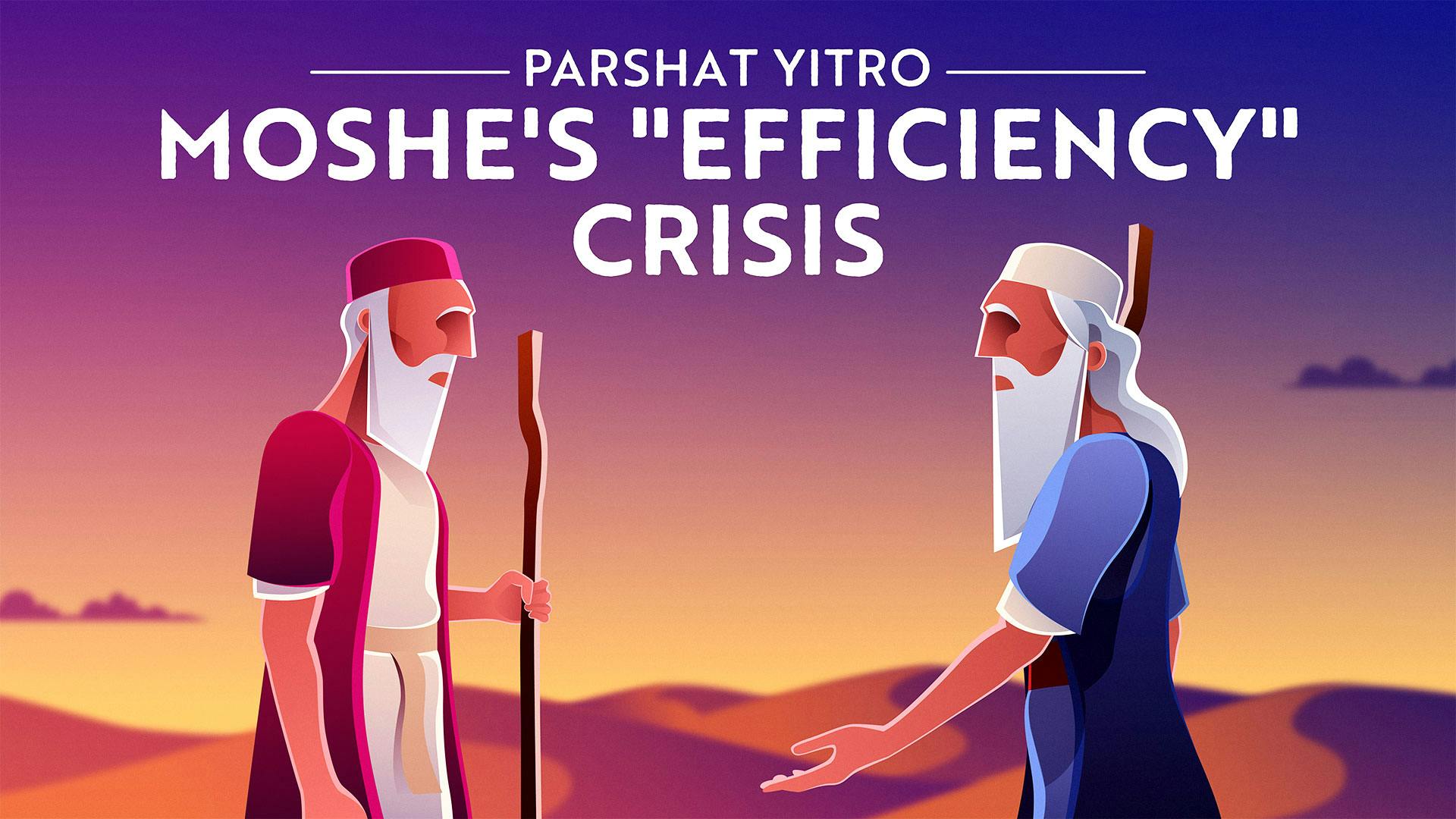
The Real Lesson Of Yitro's Leadership Advice
It wasn't good for Moshe to judge alone. And it wasn't good for Adam to be alone in the Garden. Coincidence? Watch and find out the real lesson behind Jethro's (or Yitro) leadership advice to Moses.
15 min

Yitro: What Was Really Written On The Tablets?
In Parshat Yitro, we read about the revelation at Sinai and the giving of the 10 Commandments. The image of the 10 Commandments is one of the most familiar images from the Torah, but when you read the Sages’ description of the tablets, not only will you be shocked to hear that we may have been depicting the image wrong all along, but we may also be missing an important part of what the 10 Commandments are all about. Join Ari Levisohn and Daniel Loewenstein as they explore the Sages’ words and discuss the powerful implications of a new way to see the 10 Commandments. To hear Rabbi Fohrman's complete interview on the podcast excerpted in this week's episode, listen here. To learn more about the suzerain-vassal treaties Ari discusses, check out this article.
25 min

Did Israel Marry God At Mount Sinai?
Parshat Yitro contains the most important piece in the narrative of the Jewish people, the giving of the Torah on Mt. Sinai, when the nation of Israel and God are 'married.' Curiously, before that story, we have two short stories about Yitro, Moses's father-in-law, first when he throws a feast to celebrate the salvation, and then when he advises Moses to set up a court system. How do these stories help us understand the marriage between Israel and God today?
9 min

Was The Burning Bush A Template For The Commandments?
In Parshat Yitro, we read about Moses receiving the Ten Commandments. But there’s something very unique about the text in this section – it’s strikingly similar to an earlier text, namely, the story of Moses and the Burning Bush. Is there a parallel that’s meant to be drawn from the story of Moses, the Ten Commandments and the Burning Bush? Join Rabbi Fohrman as he re-examines both texts and learns how the Burning Bush may actually serve as a template for the Ten Commandments – and never think of these two events the same way again.
15 min

How God Proves His Love For His People
In Parshat Yitro, we just witnessed some majorly epic events: the ten plagues, the splitting of the sea and we're about to witness the ultimate epic event – God's revelation at Sinai. But smack in the middle of all of this awesomeness, we're introduced to Yitro, Moses' father-in-law. What is this doing here?! Join us as we explore the real meaning of revelation: maybe truly knowing God is not just a matter of a national relationship, but most importantly, a personal one.
12 min

Fowl Play? The Significance Of Birds In The Torah
This week, Rabbi Fohrman tests Imu – where do birds appear in the Torah? How do they connect to each other? Is there some sort of theme that connects the birds together? And how does any of this relate to Parshat Yitro, the parsha in which God gives the Torah to the Israelite people at Sinai?
14 min

The History Of Moses In The Bible
Every hero has an origin story. We are all familiar with Moshe’s origin story. But there is one episode in the story that actually seems quite unfamiliar. On the road back to Egypt with his wife Tzipporah and their two sons, Moshe and his family stop at an inn when the strangest thing happens. God tries to kill Moses! Fortunately, level-headed Tzipporah saves the day by circumcising their second son and then the story suddenly ends. (Yes, this is a real story from the Chumash! Look it up! It’s Exodus 4:24-26.) What a strange story! God was the One who sent Moses to Egypt. Moshe was doing what God told him to do! So why would God try to kill him?! Talk about shooting the messenger! In this newly remastered and reanimated video series, Rabbi Fohrman weaves an interpretation of this story into a larger, magnificent tapestry shedding new light on our origin story - The Exodus.
Part 1 of 6 • 14 min

What Is The Ten Commandments' Underlying Theme?
How do the Ten Commandments apply to our lives today? After all, most of them are not difficult to observe – “don’t steal… don’t kill” – these are not laws you need to think about daily. So what are we supposed to actually learn from the Ten Commandments? Rabbi Fohrman peels back the layers to uncover what lies at the heart of the Ten Commandments, a hidden theme that guides us to stronger relationships.
10 min
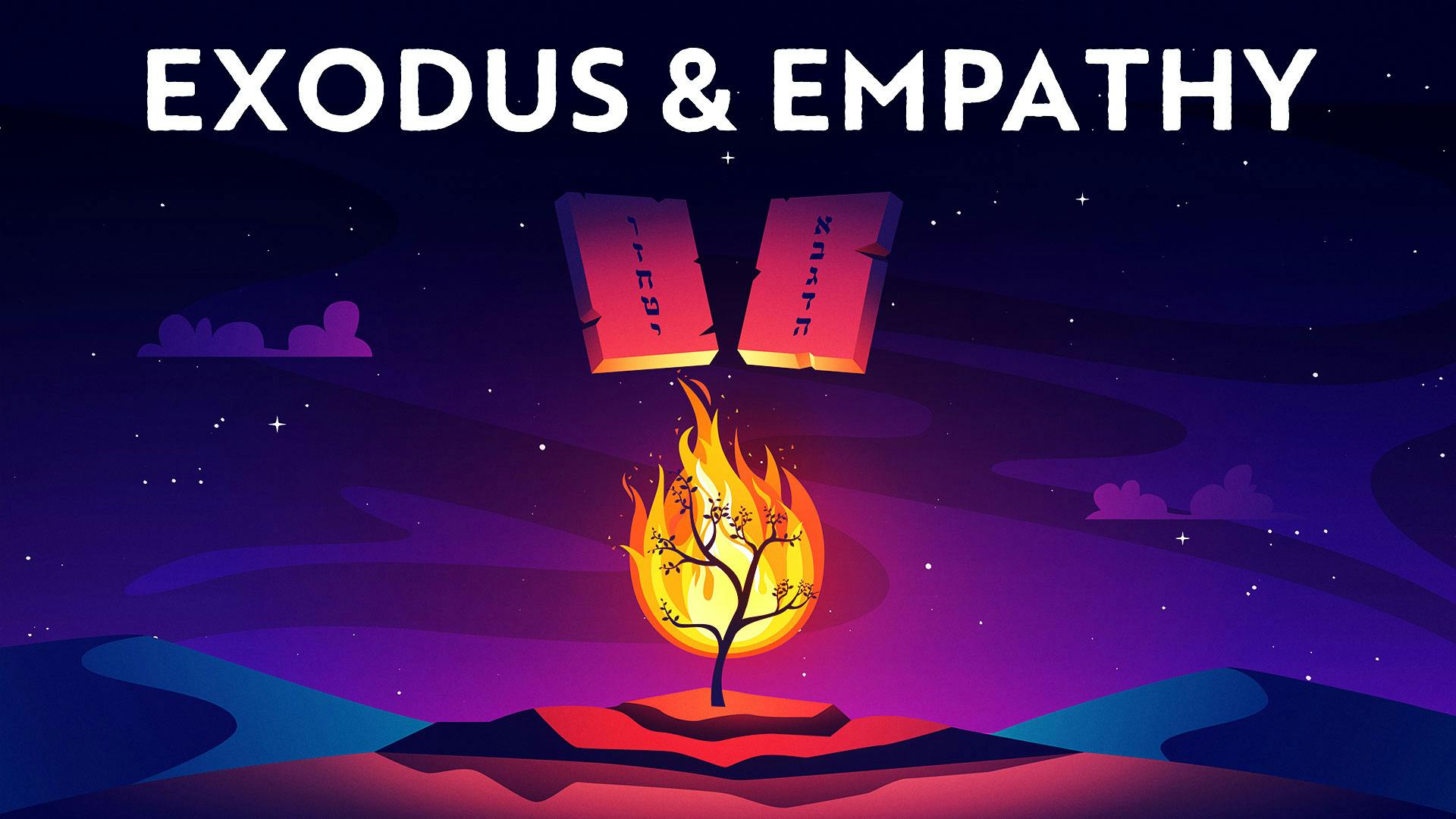
Understanding Yetziat Mitzrayim
On Passover, we celebrate the miracles God performed for the Israelites by freeing them from slavery. But isn’t it strange that right after the Israelites left Egypt God enforced the laws of the Ten Commandments without warning? Join Rabbi Fohrman as he explores this pivotal question by comparing the Ten Commandments with the story of the Burning Bush.
31 min

Yitro: The Marriage Of God And Israel
A printable parsha guide for our Yitro video, "The Marriage Of God And Israel"

Yitro: The Template For The Ten Commandments
A printable parsha guide for our Yitro video, "The Template For The Ten Commandments"
Exodus // Mishpatim
The Mishpatim Torah Portion: Exodus 21:1–Exodus 24:18
Moses reads out some of God's many laws. Some of these laws include ethics, idol worship, animal treatment, kashrut (kosher food). God also outlines some laws relating to the major Jewish holidays: Passover, Shavuot and Sukkot.
See the full summary and Parsha home page here.
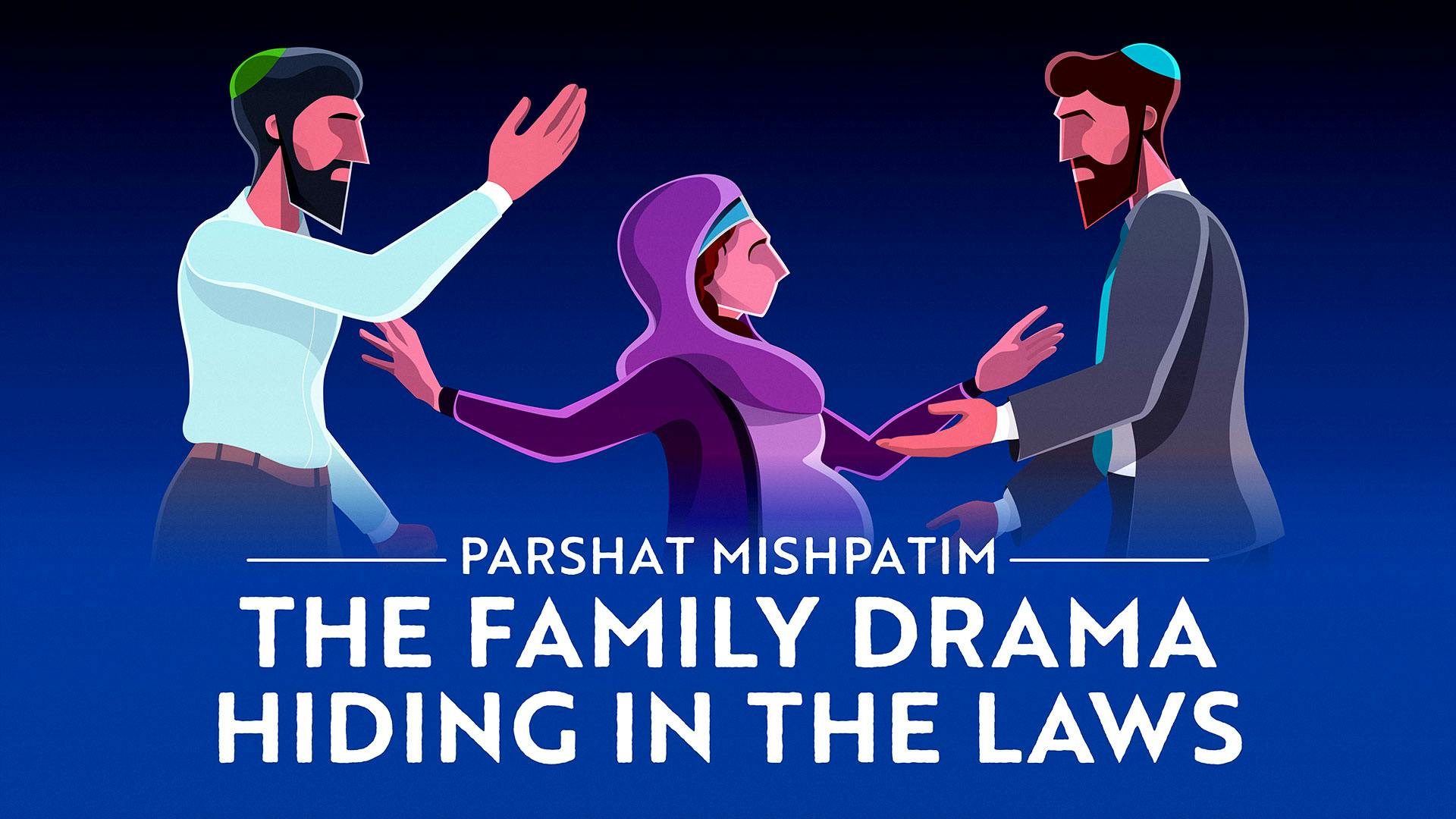
How Can The Laws Of Mishpatim Help Correct Past Mistakes?
At first glance, Mishpatim reads like a dry list of laws about cows, and donkeys, property damages and personal injuries. But what if there's more to these laws lurking beneath the surface? What if the laws themselves hold a key to understanding some of the most important stories in the Torah? Join Ami as he uncovers the hidden story within these laws.
Part 1 of 2 • 14 min

Mishpatim: The Legal Debate That Changed Jewish History
Parshat Mishpatim outlines the laws of indentured servants and maidservants, including servants going free in the seventh year, servants getting married while working, and a father making a deal for his daughter’s hand in marriage. This set of laws seems strikingly similar to an earlier story involving a worker and a father trying marrying off his daughters. Could these laws in Mishpatim actually be the Torah’s own commentary on the negotiations between Jacob and Laban back in Genesis? Join Rabbi David Fohrman and Ari Levisohn as they discuss these surprising parallels and explore the relationship between the Torah's laws and its stories. Into The Verse is taking a break for a little while. In the interim you can stay up-to-date on the parsha with last year’s episodes, which are available on https://www.alephbeta.org. And if you haven’t started the latest season of A Book Like No Other, you have to check it out. If you’re not a member…what are you waiting for? Go to alephbeta.org/subscribe and become a member to access the new season of A Book Like No Other, as well as our full library of over 1,000 videos and podcasts. Use coupon code BLNO2 for a 30 day free trial with a monthly membership OR $18 off an annual membership. Click here to subscribe.
39 min
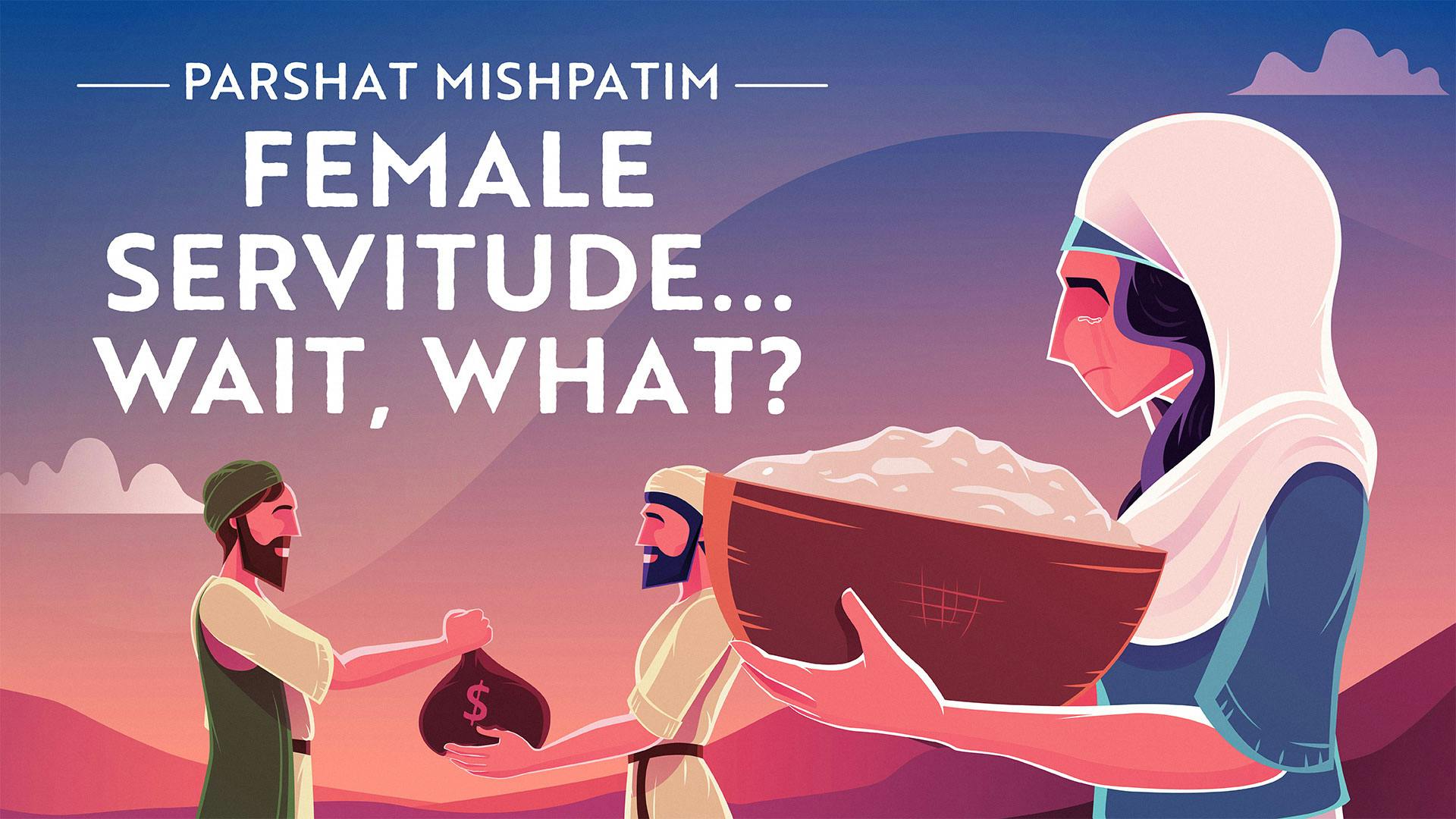
Why Does the Torah Contain Laws That Seem to Promote Slavery?
Do these laws reflect outdated values? This video explores how the laws of female servitude may contain a message with lasting relevance.
9 min

The Surprising Source Of The Torah's Laws Of Murder
Rabbi Fohrman has a revolutionary idea, that many of the laws given to the Jewish nation were actually based off of the stories of our forefathers and foremothers. In this video, Rabbi Fohrman explores this through the laws of murder given in this week's Torah portion.
Part 1 of 2 • 11 min

Seeing Laws As Moral Principles Of Jewish Life
This week's parsha puts us in the midst of two of the most well known and epic stories in the entire Tanach: Revelation at Sinai and the Sin of the Golden Calf. The Israelites experience their highest high and their lowest low, all within the same few verses. However, smack in the middle of these two legendary episodes, we are forced to read law after law after law. How do these numerous Jewish laws add real meaning to our lives today?
13 min

Mishpatim: The Ten Commandments…The Sequel?
This week, Imu guides Rabbi Fohrman into the myriad of laws of Mishpatim. He points out some subtle connections – both in theme, and in language, between these laws and the Ten Commandments, we just heard last week, and asks, why? Why is there a replay of the Ten Commandments?
23 min

The Meaning Of Sefirat Haomer
Why do we count the Omer? A common answer is that we're counting down the days until we get to Sinai. But the Omer doesn't count down- it counts up. We don't say '8 days left to Sinai' we say '42 days are gone since we offered the Omer offering'. So what is this count about anyway? In this series, Rabbi Fohrman traces the roots of the Omer offering, taking us into a journey that explores the meaning of brick-making and bread-making, and the significance of both of these to the newly freed Israelites. What emerges is a view of the Omer that makes this offering a touchstone for an understanding of freedom, the Sabbath, and of law itself in our society.
Part 1 of 3 • 1 hour, 16 min
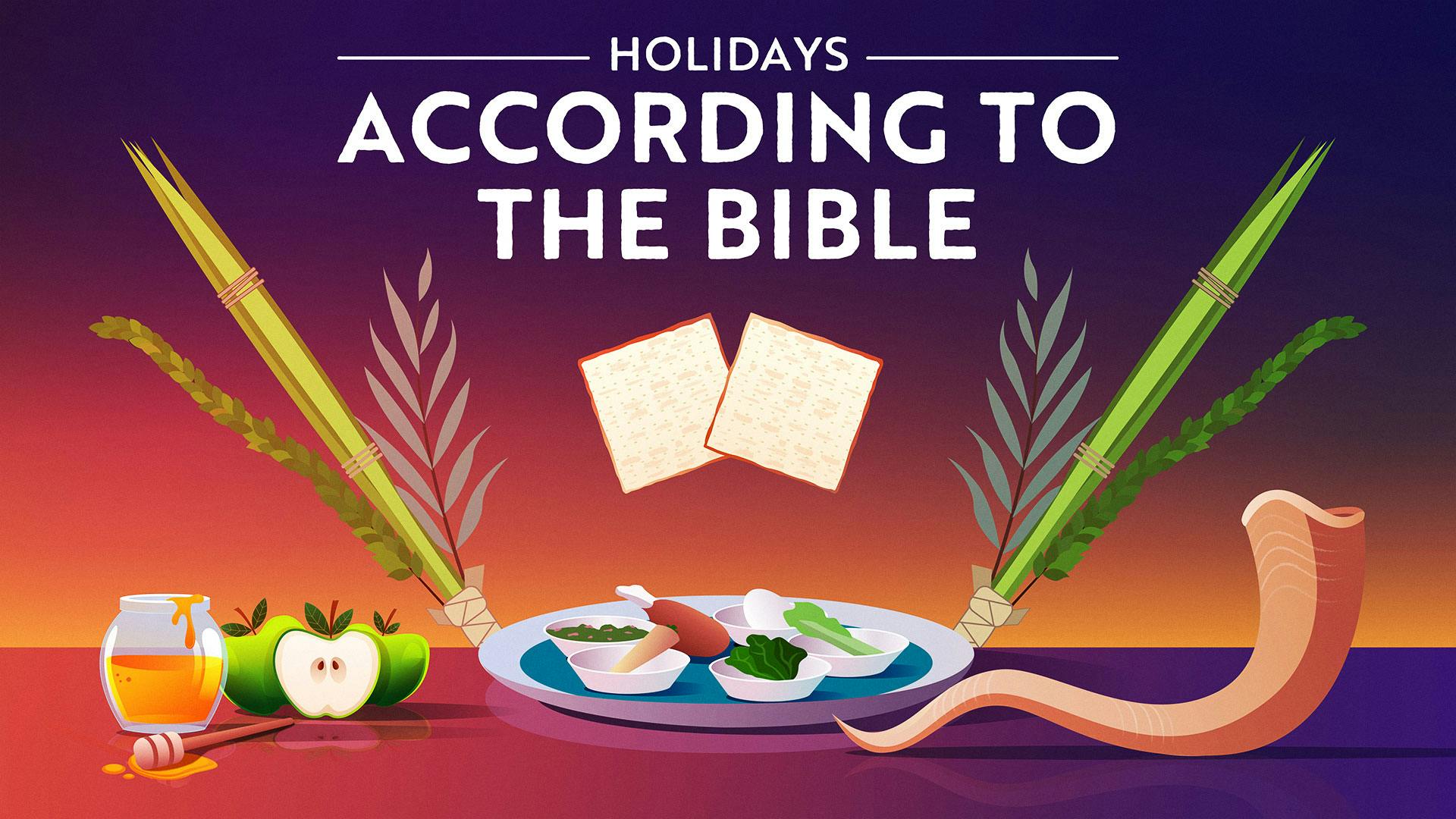
An Epic Understanding Of The Jewish Holidays
When it comes to the Jewish holidays, we tend to relate to each one on its own. But often, we miss the bigger picture. The Torah actually talks to us in epic, sweeping terms about the very idea of a “holiday,” about how to understand the holidays and find meaning in them. Come into the text and get ready to unravel the Torah's secret about the true meaning of Sukkot, Pesach, and Shavuot.
12 min
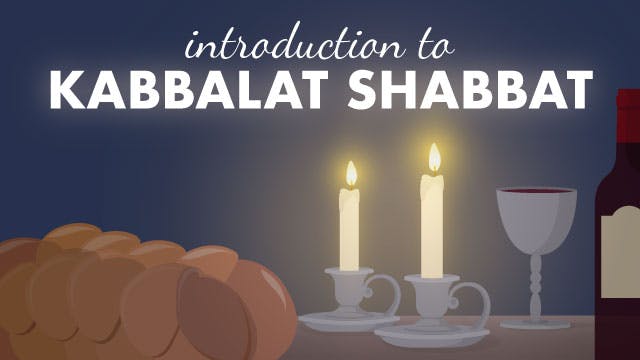
Introduction To Kabbalat Shabbat
Join Rabbi Fohrman for an in-depth discussion of Kabbalat Shabbat.
Part 1 of 9 • 54 min

Did God Play Mind Games With Our Egyptian Masters?
In Parshat Re'eh, we are given the commandments relating to a Jew having a Jewish slave. But the laws seem strange: we give gifts to our slaves, and if they want to stay, we must pierce their ear? It can be difficult to relate to these ancient Hebrew laws, which hardly seem relevant thousands of years later. How are we supposed to understand the Jewish laws of slavery in a modern context?
11 min
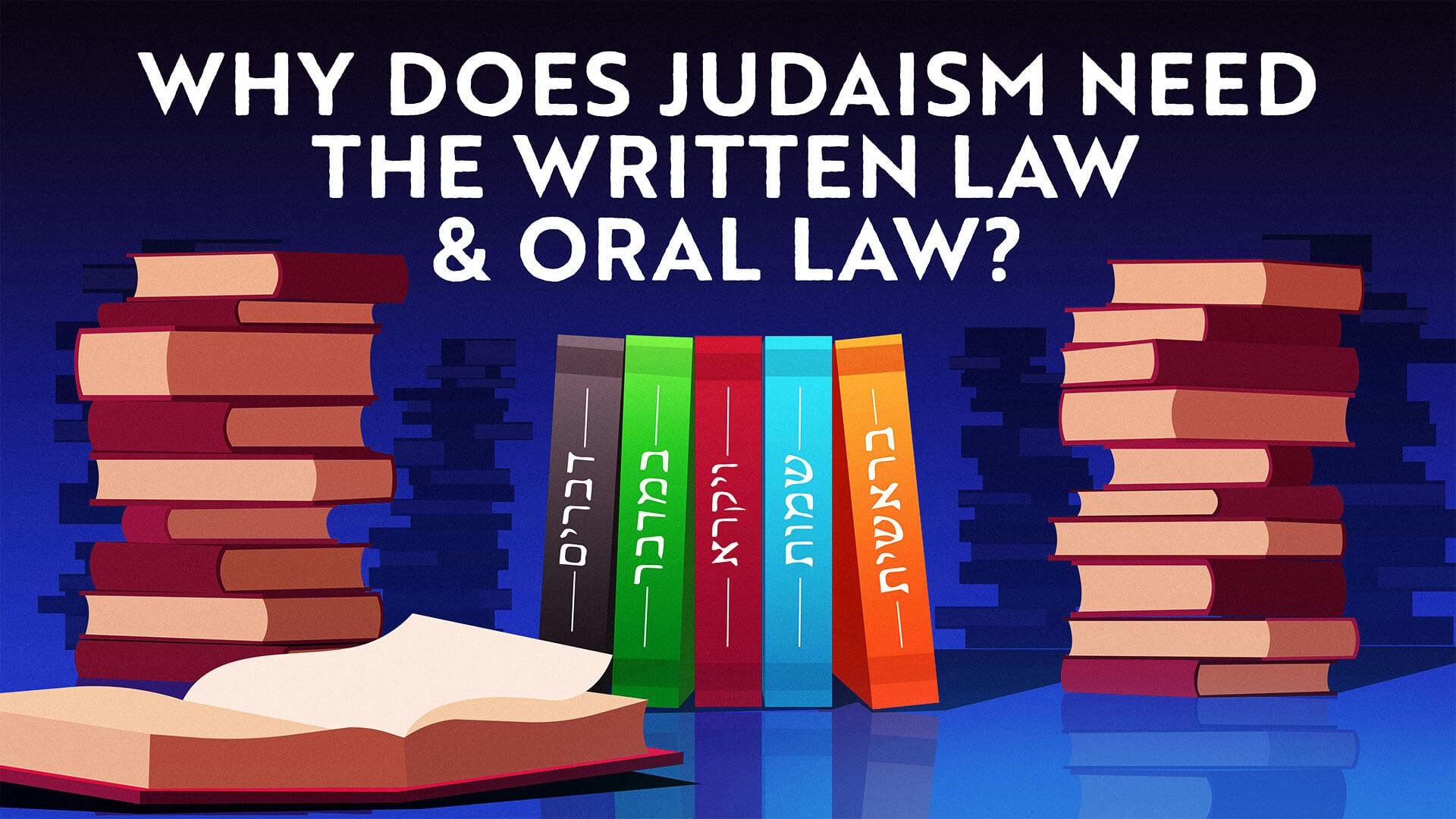
Why Does Judaism Need The Written Law And Oral Law?
Is there a reason Judaism has two sets of laws? Isn't that confusing? Join Rabbi Fohrman in this deep dive, with your guide, Imu Shalev.
14 min

Mishpatim: Female Servitude...Wait, What?
A printable parsha guide for our Mishpatim video, "Female Servitude...Wait, What?"

Mishpatim: Does Our History Become Our Laws?
A printable parsha guide for our Mishpatim video, "Does Our History Become Our Laws?"
Exodus // Terumah
Terumah Torah Portion: Exodus 25:1–Exodus 27:19
Moses receives God's tablets and is commanded to create a Mishkan (Tabernacle) that can serve as a dwelling place for God. The Parsha details the intricate architecture, furniture, and design of the Mishkan.
See the full summary and Parsha home page here.

God's Ark And Noah's Ark
Uncover the extensive parallells between God's ark in the tabernacle and Noah's ark in the flood, and see how we can learn from their mysterious connections.
Part 1 of 2 • 13 min
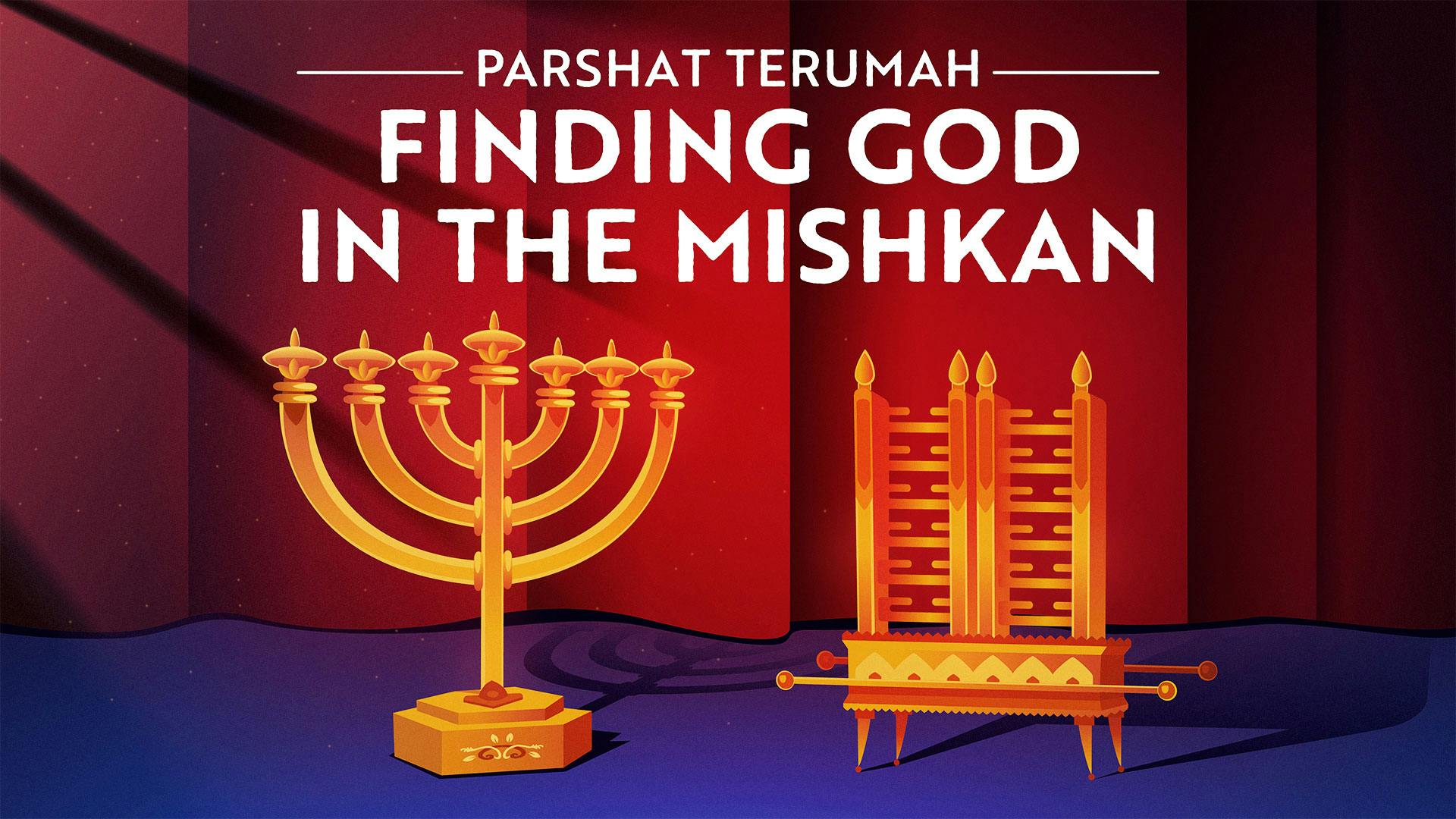
Is There A Spiritual Meaning To The Structure Of The Mishkan?
In Parshat Terumah, we are given explicit instruction about how to build the Mishkan, the Tabernacle that traveled with the nation of Israel through the desert. But maybe there’s more than meets the eye. Join Rabbi Fohrman as he explores what the mishkan represents. It may teach us something about God’s image, and even our own relationship to our physical bodies. Enjoyed this video? There's more to discover. Join Rabbi Fohrman as he continues to explore these ideas in this video for Parshat Tetzaveh.
6 min
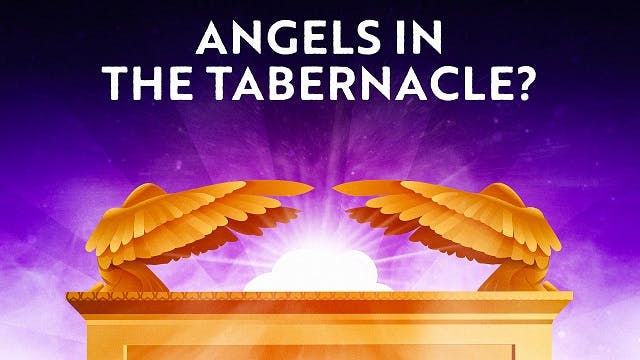
Angels In The Tabernacle?
The keruvim, or cherubs, appear in the Tabernacle in three different places. This week, Rabbi Fohrman asks, what is the meaning of the keruvim? To answer, he brings us back to the original keruvim, who guarded the Garden of Eden after we were expelled.
Part 1 of 2 • 11 min
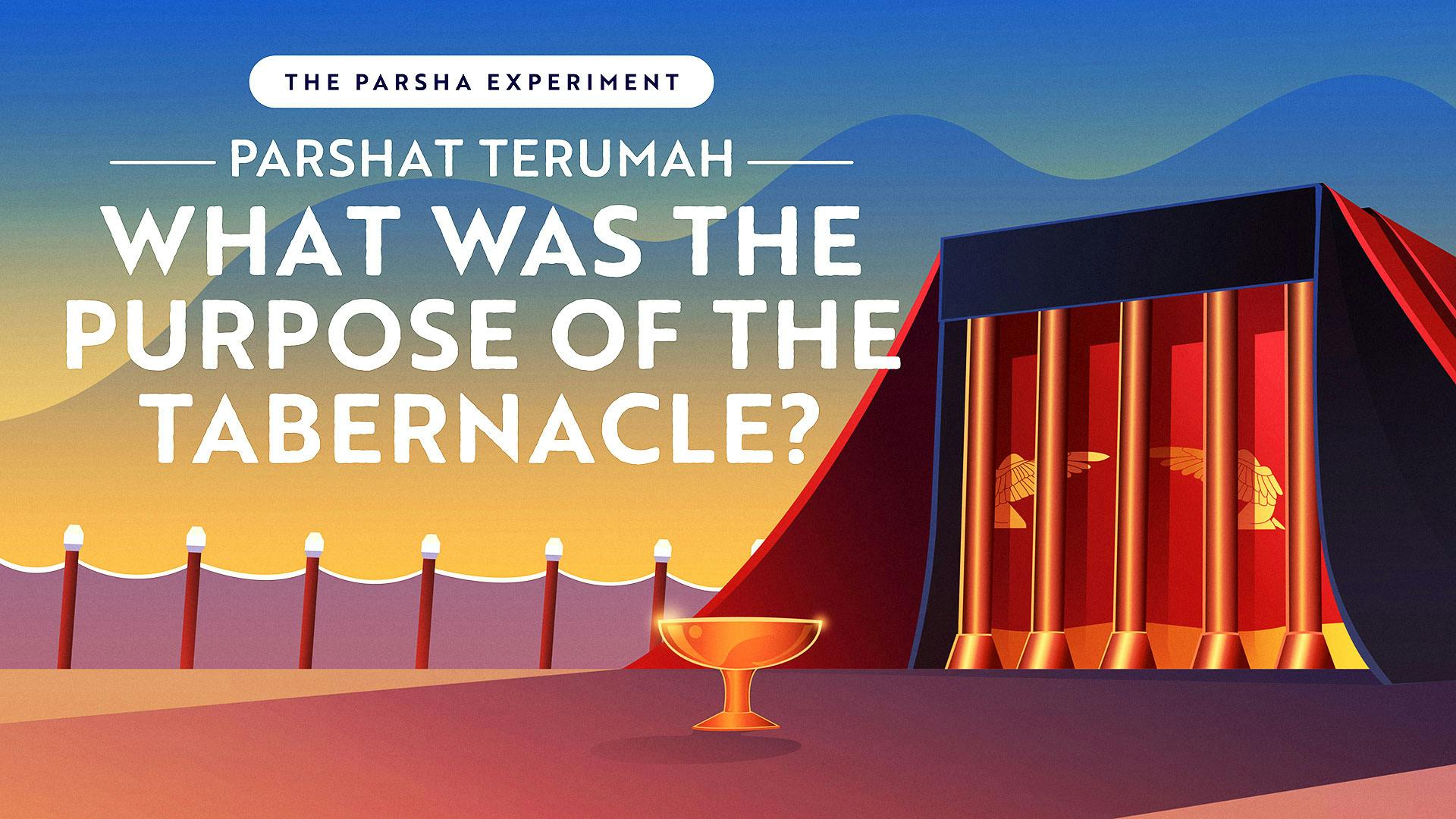
What Was The Purpose Of The Tabernacle?
We're about to embark on a 7-chapter detailed journey through the instructions for building the Mishkan, the Tabernacle. Most people skip over these sections or read them very fast because they are tedious and completely unrelatable. How can we, as 21st century learners of the Torah, find meaning and relevance in the construction of the Mishkan? And how do the laws shed light on the epic devastation of the story that follows, the Golden Calf? Join us in Terumah (Exodus 25:1-27:19) as we uncover the beauty and depth of the Mishkan.
12 min
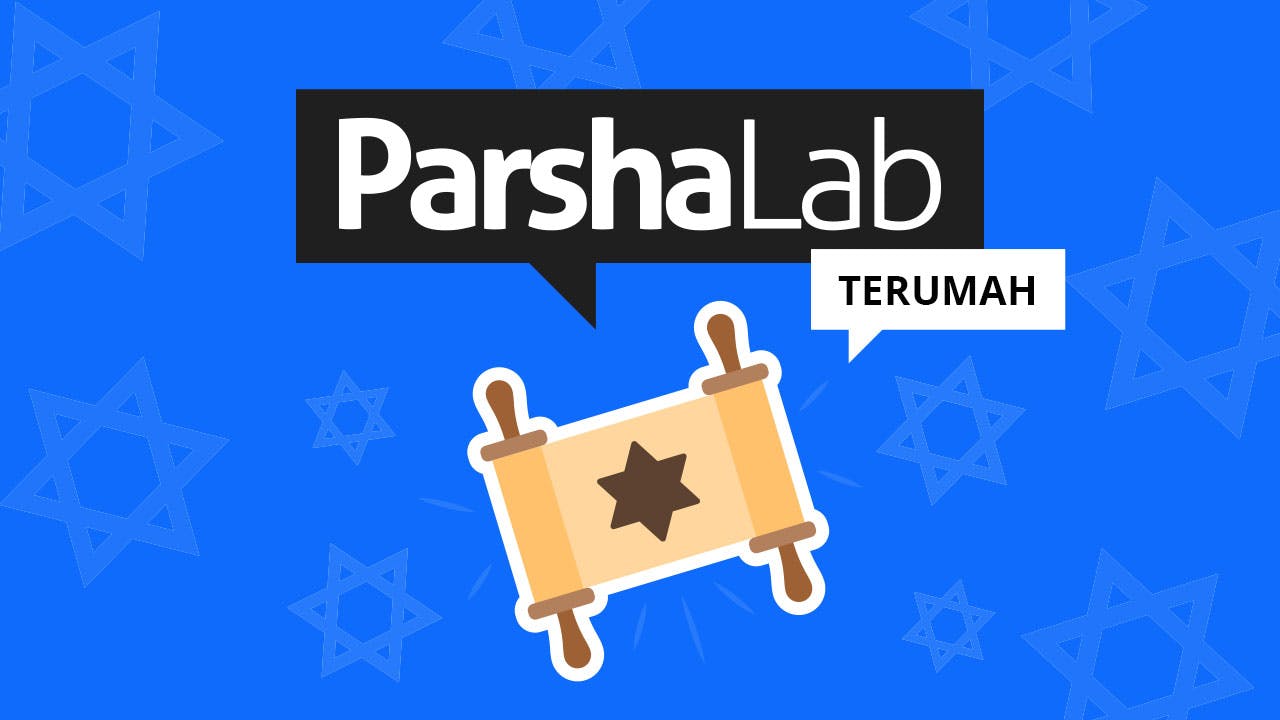
What's So Special About The Tablets?
We learn in Parshat Terumah that the tablets of the 10 Commandments have a central place in the mishkan, the Tabernacle. But why? A clue might come from the Torah's constant use of the word "edut," testimony, and "moed," a place of meeting. Come join Rabbi Fohrman and Imu as they puzzle it out.
Part 1 of 2 • 25 min
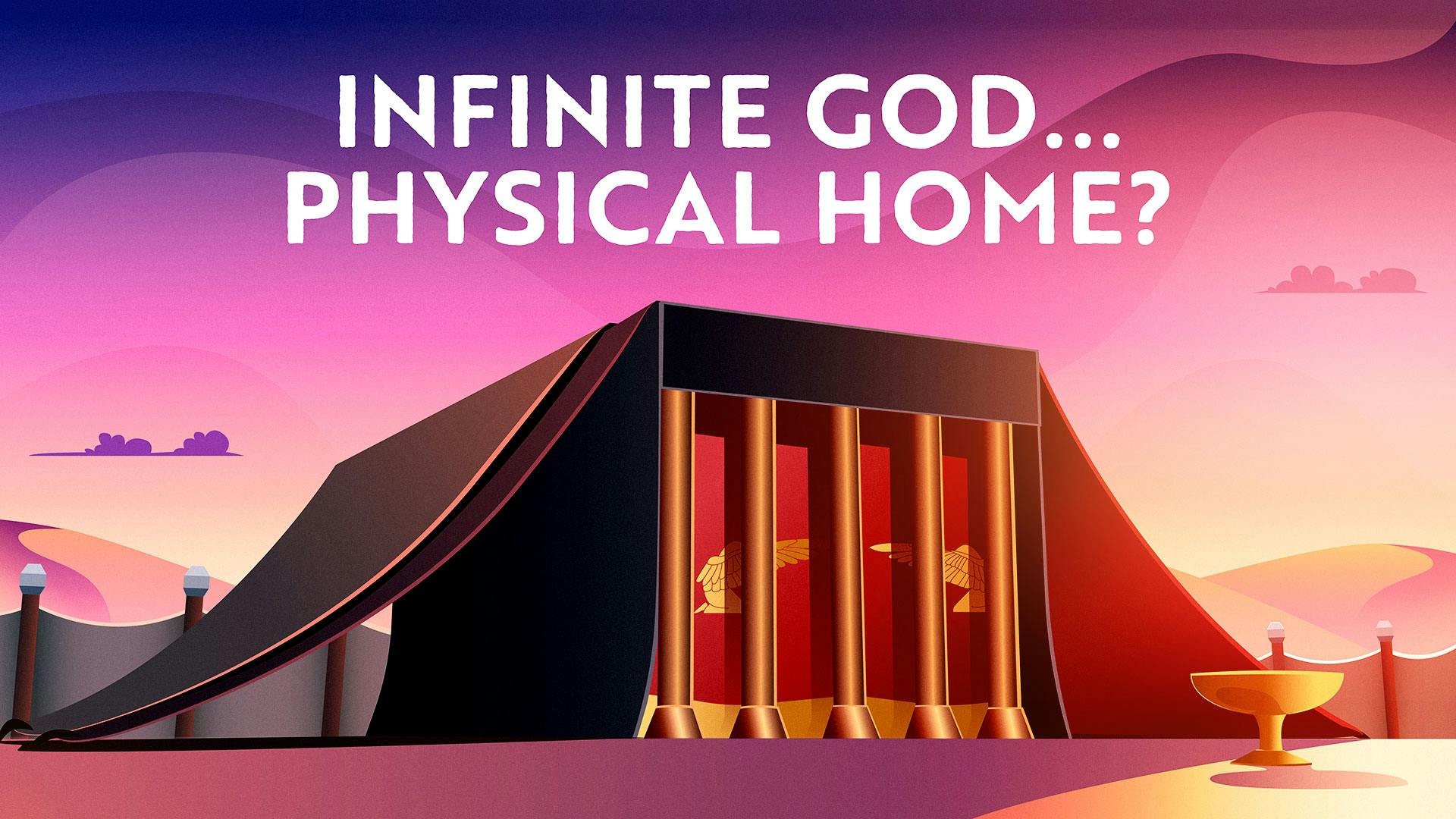
Infinite God...Physical Home?
How does God, the infinite, exist in this world of finite? In this lecture series, we consider our perspective of God in this world based on the physical make-up of the Temple. Does God still dwell among us today?
Part 1 of 3 • 5 min

Terumah: Finding God in the Mishkan
A printable guide for our Terumah video, "Is TSpiritual Meaning to the Structure of the Mishkan?

Terumah: Angels In The Tabernacle? Part 1
A printable parsha guide for our Terumah video, "Angels In The Tabernacle? Part 1."
Exodus // Tetzaveh
The Tetzaveh Torah Portion: Exodus 27:20–Exodus 30:11
God makes Aaron and his sons the priests of Israel who job it is to maintain God's Tabernacle. Aaron's priestly uniform is ornate. It is his job to run the Tabernacle and any sacrifices made.
See the full summary and Parsha home page here.

Angels In The Tabernacle?
The keruvim, or cherubs, appear in the Tabernacle in three different places. This week, Rabbi Fohrman asks, what is the meaning of the keruvim? To answer, he brings us back to the original keruvim, who guarded the Garden of Eden after we were expelled.
Part 1 of 2 • 11 min
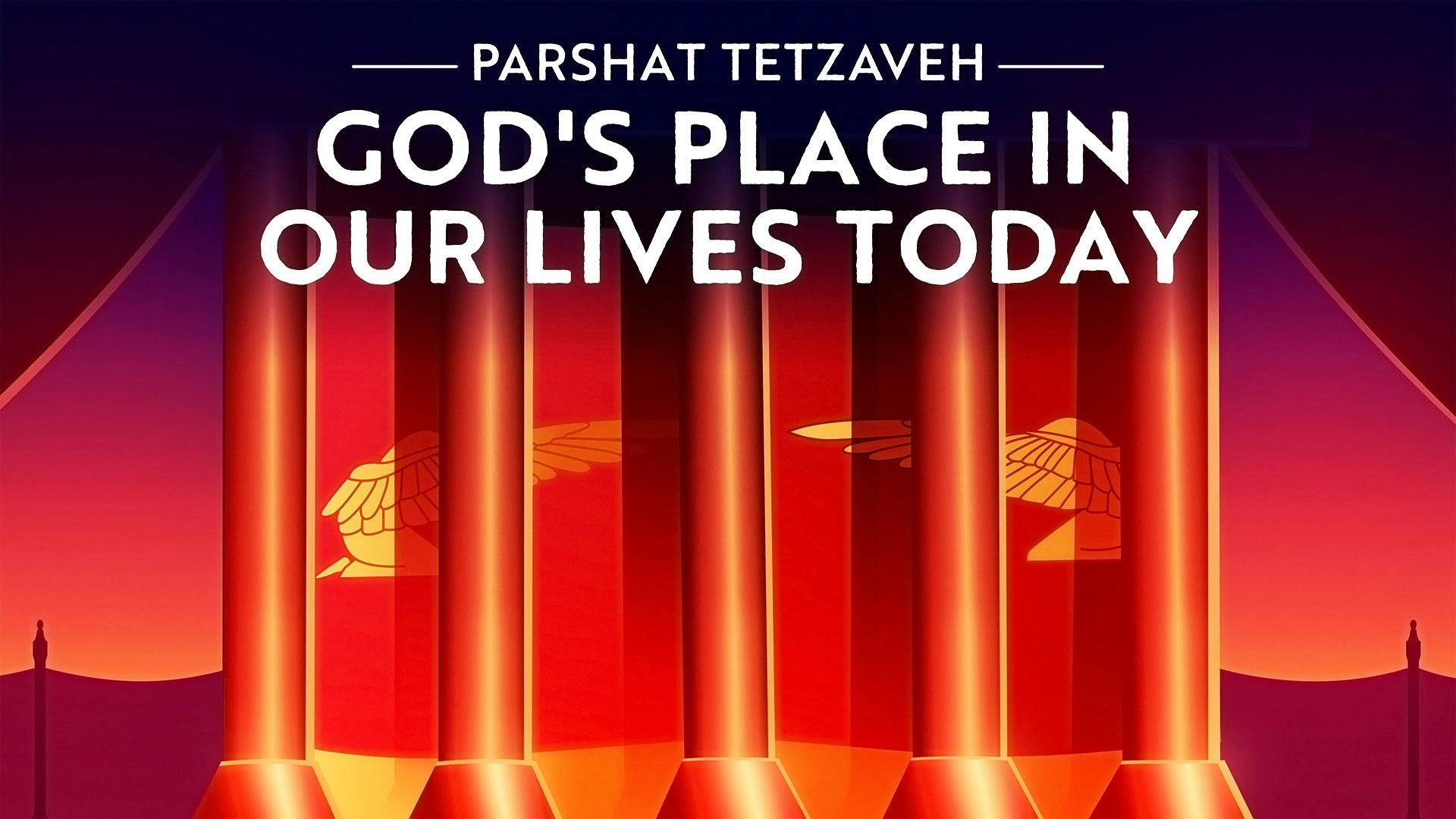
God's Place In Our Lives Today
How can God exist in our physical world yet also exist outside of space and time? Explore the paradoxical language surrounding God’s relationship with the Tabernacle. Join Rabbi Fohrman as he examines the description of the Tabernacle, and highlights the similarities between the human body and God. Want to get the most out of this video? Check out this video for Parshat Terumah, where Rabbi Fohrman first introduces the ideas he builds upon here.
9 min

God's Ark And Noah's Ark
Uncover the extensive parallells between God's ark in the tabernacle and Noah's ark in the flood, and see how we can learn from their mysterious connections.
Part 1 of 2 • 13 min

The Spiritual Meaning Behind The Tabernacle's Design
In Parshat Tetzaveh, God goes to great lengths to explain each specific detail for the Mishkan's structure and design. Obviously the details are more than just a means for beautification – there must be deep and meaningful significance for us all. What are the hidden secrets that God coded within the walls of the Mishkan and how can we rebuild that meaning in our every day lives?
13 min

What Do The Laws Of Choshen Mishpat Teach Us About Our Relationship To God?
We learn in Parshat Tetzaveh about the specific laws relating to the Kohen Gadol’s Breastplate — the Choshen Mishpat. But why should we care about these esoteric and seemingly inapplicable laws? Join Rabbi Fohrman and Imu as they take a look back at Parshat Mishpatim and find an intriguing relationship to the laws of the judges. You’ll never think of Choshen Mishpat the same way again.
24 min

Infinite God...Physical Home?
How does God, the infinite, exist in this world of finite? In this lecture series, we consider our perspective of God in this world based on the physical make-up of the Temple. Does God still dwell among us today?
Part 1 of 3 • 5 min

Tetzaveh: What If God Has A Physical Presence In This World?
A printable parsha guide for our Tetzaveh video, "What If God Has A Physical Presence In This World?"

Tetzaveh: Angels In The Tabernacle? Part 2
A printable parsha guide for our Tetzaveh video, "Angels In The Tabernacle? Part 2."
Exodus // Ki Tisa
Ki Tisa Torah Portion: Exodus 30:11–Exodus 34:35
Moses learns from God the laws of the Torah for 40 days and 40 nights. The Israelites err in counting and fear that Moses will never return. The build a Golden Calf and dance around in idol worship. Moses returns and smashes the stone tablets that had the 10 commandments written on them.
See the full summary and Parsha home page here.
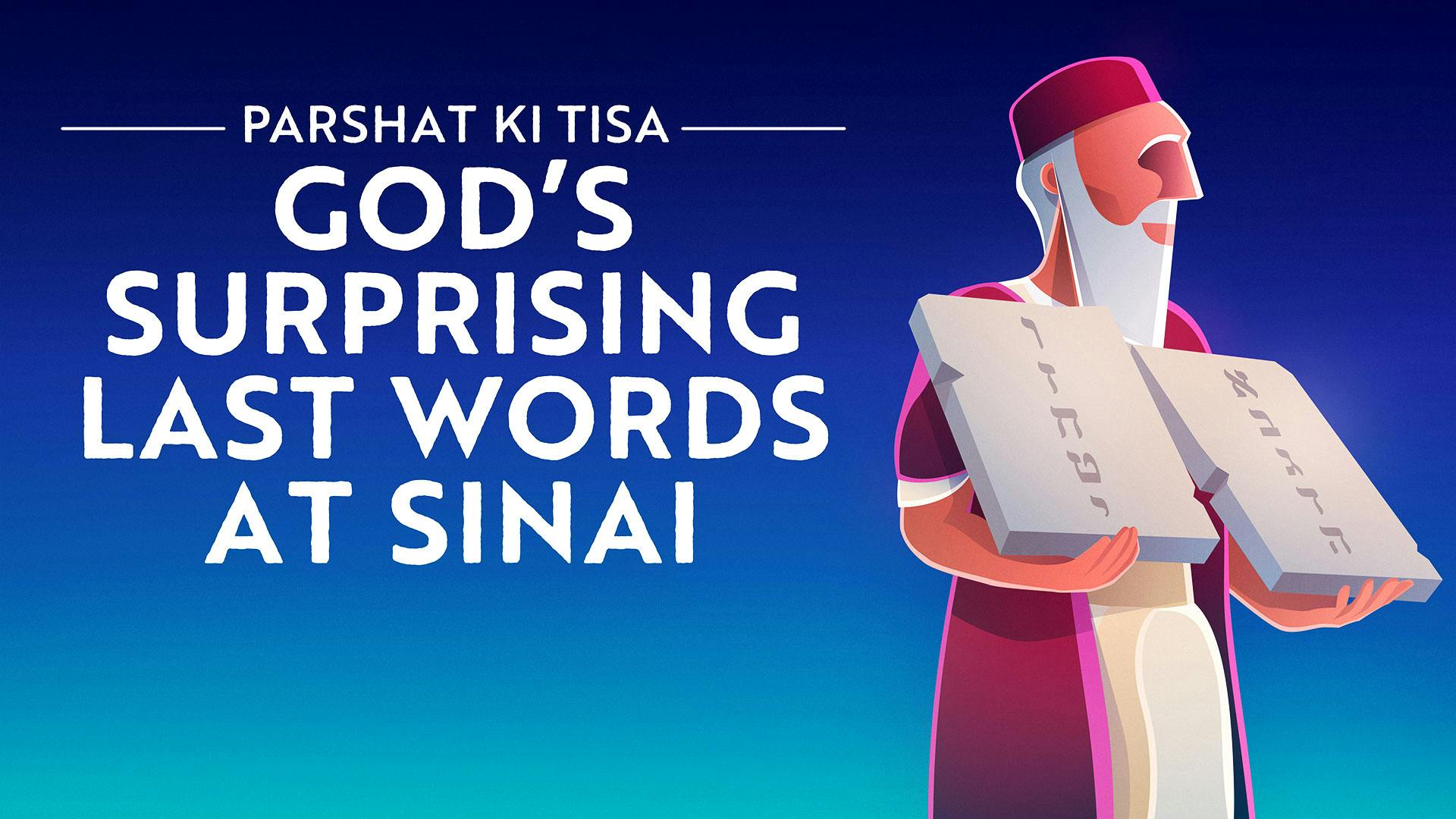
What Moses Learned About The Sabbath On Mount Sinai
The very last words God tells to Moses as he's ready to leave Sinai are about the Shabbat. Why? The rabbis give their explanation to this question in the introduction to the Sabbath morning prayers. But looking at the rabbis' explanation, we are left with more questions! Join Rabbi Fohrman as he dives deep into this prayer, and understands the rabbis' answer to God's surprising last words to Moses on Sinai.
24 min

Being Brave Enough To Change God's Will
Moshe’s negotiation with God in the aftermath of the Golden Calf is an extreme example of prayer changing God’s will. Moshe passionately argued with God over His decision to wipe out the Israelites, and shockingly, God listened. Where did Moshe get the chutzpah to tell God what to do – and why did God agree?
Part 1 of 2 • 12 min
.jpg?ixlib=gatsbyFP&auto=compress%2Cformat&fit=max&rect=0%2C0%2C1920%2C1080&w=1920&h=1080)
The True Depth Of God's Love And Forgiveness
Is there ever a point of no return in my relationship with God? In Parshat Ki Tisa, Moses explores this exact question as he bargains with God on behalf of the nation after the Sin of the Golden Calf. How is it possible that this lawyering session could possibly change God's mind after such an atrocious sin? What could this mean for me and my relationship with God?
13 min

Moses’s Psalm: A Paradigm Of God Answering Prayer
How did Moses feel when approaching the land of Israel, knowing he wouldn’t be entering the land with his people? This video is the first in a series of three, concluding the yearly Torah cycle, where we will attempt to get inside the head of Moses at the end of his journey as the leader of the Israelites.
Part 1 of 3 • 15 min
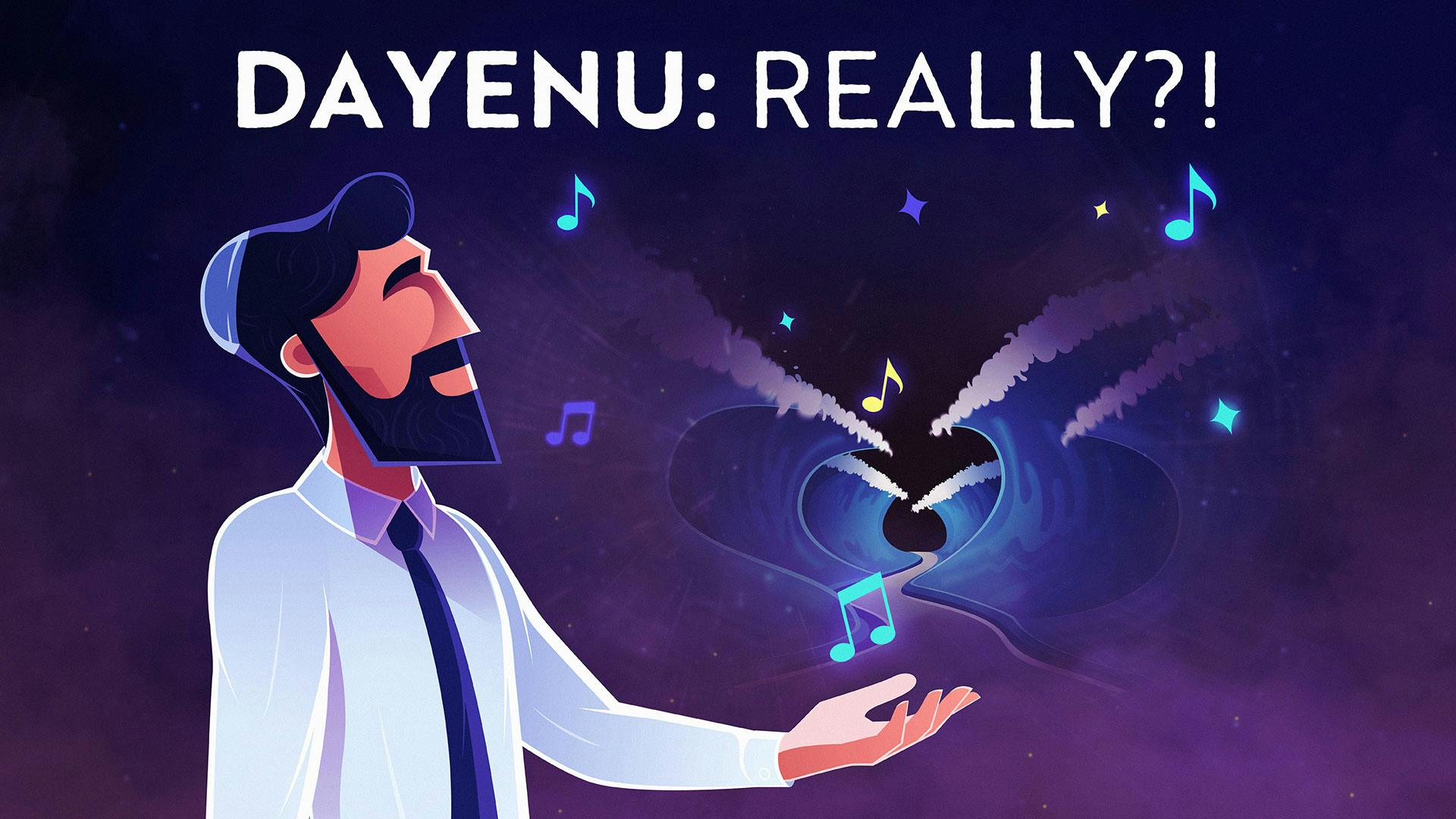
Dayenu In The Pesach Haggadah
Singing Dayeinu: Would It Really Have Been Enough? What do the lyrics of Dayeinu song really mean?
1 hour, 21 min

Why Would Anyone Want To Make A Golden Calf?
We learn in Parshat Ki Tisa about the infamous sin the Israelite’s committed by creating the Golden Calf. But there’s something very unclear about this story — why would the Israelites want to build a Golden Calf? It's not like people today want to build and pray to idols, so why would the Israelites? Join Rabbi Fohrman and Imu as they explore the text of the Golden Calf and debate the real reason the people wanted to build a new “godly” figure. You’ll never think of the Golden Calf the same way again.
35 min
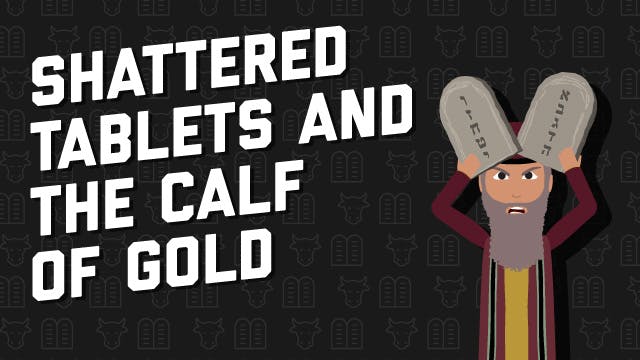
Shattered Tablets And The Calf Of Gold
We're all familiar with the Golden Calf story, but there are some glaring questions we rarely address. For example, how could Israel possibly believe that the calf brought them out of Egypt, after seeing the spectacular ten plagues and splitting of the sea? In this 12-part series, Rabbi Fohrman studies the Golden Calf story in depth to search for answers.
Part 1 of 12 • 57 min

Ki Tisa: Moshe's Benevolent Chutzpah
A printable parsha guide for our Ki Tisa video, "Moshe's Benevolent Chutzpah."

Ki Tisa: A Closer Look At Kiddush
A printable parsha guide for our Ki Tisa video, "A Closer Look At Kiddush."
Exodus // Vayakhel
Vayakhel Torah Portion: Exodus 35:1–Exodus 38:20
God commands the Jews not to build the Sanctuary on Shabbat. The Jews gather gifts to donate to the Tabernacle.
See the full summary and Parsha home page here.
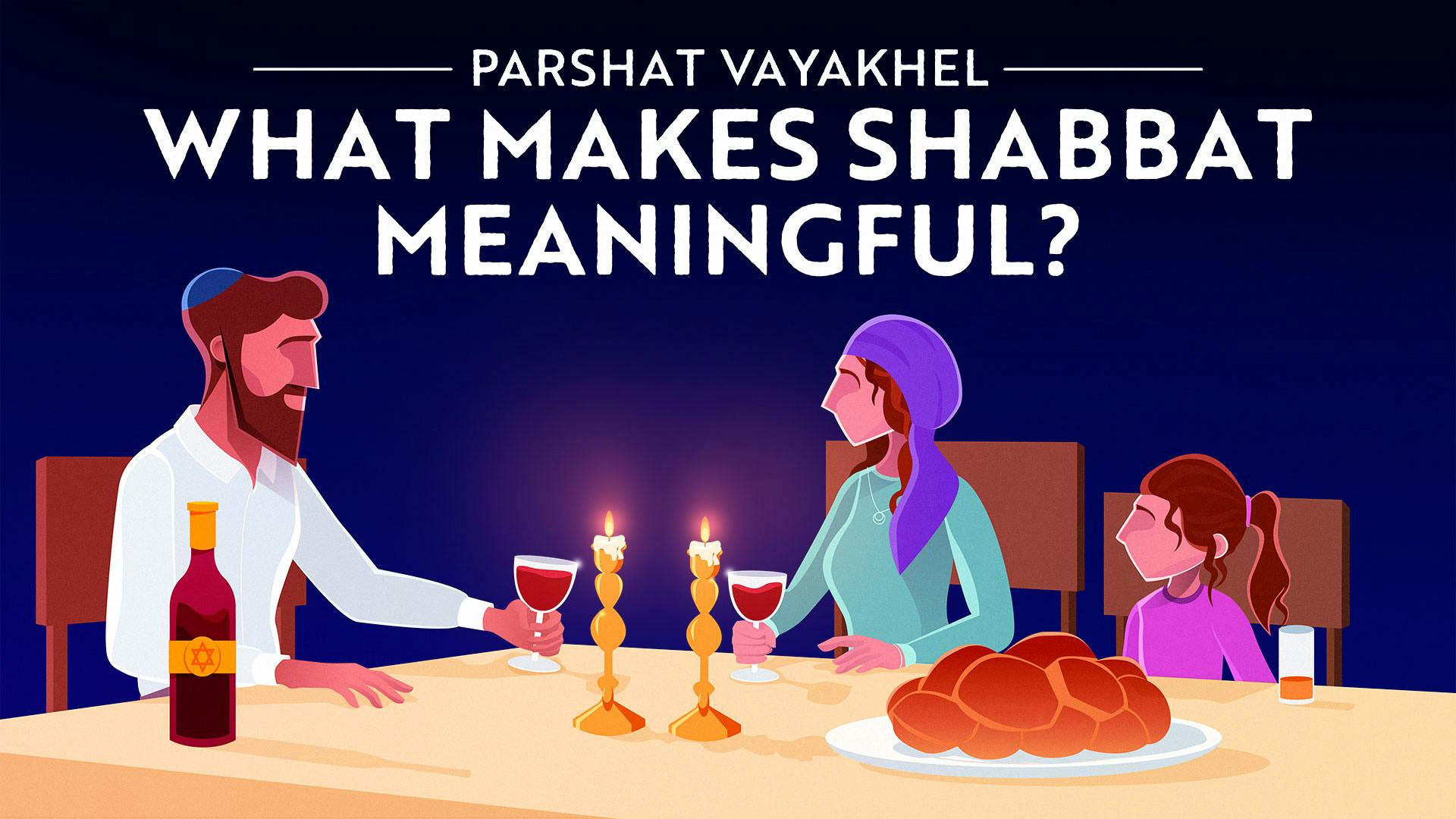
The Meaning And Purpose Of Refraining From Work On Shabbat
Let's be honest – what really makes shabbat meaningful? Is it spending time in prayer and meditation, or is it spending time with friends and family, even, often, more so than God?
13 min

What Does It Mean to Be Created in the Image of God
In Vayakhel, the Tabernacle and Shabbat are juxtaposed, which leads our Sages to explore the idea of refraining from work. But what is the actual connection between the Tabernacle and Shabbat? Rabbi Fohrman reexamines the creation story and the first day of rest in search of an answer.
11 min
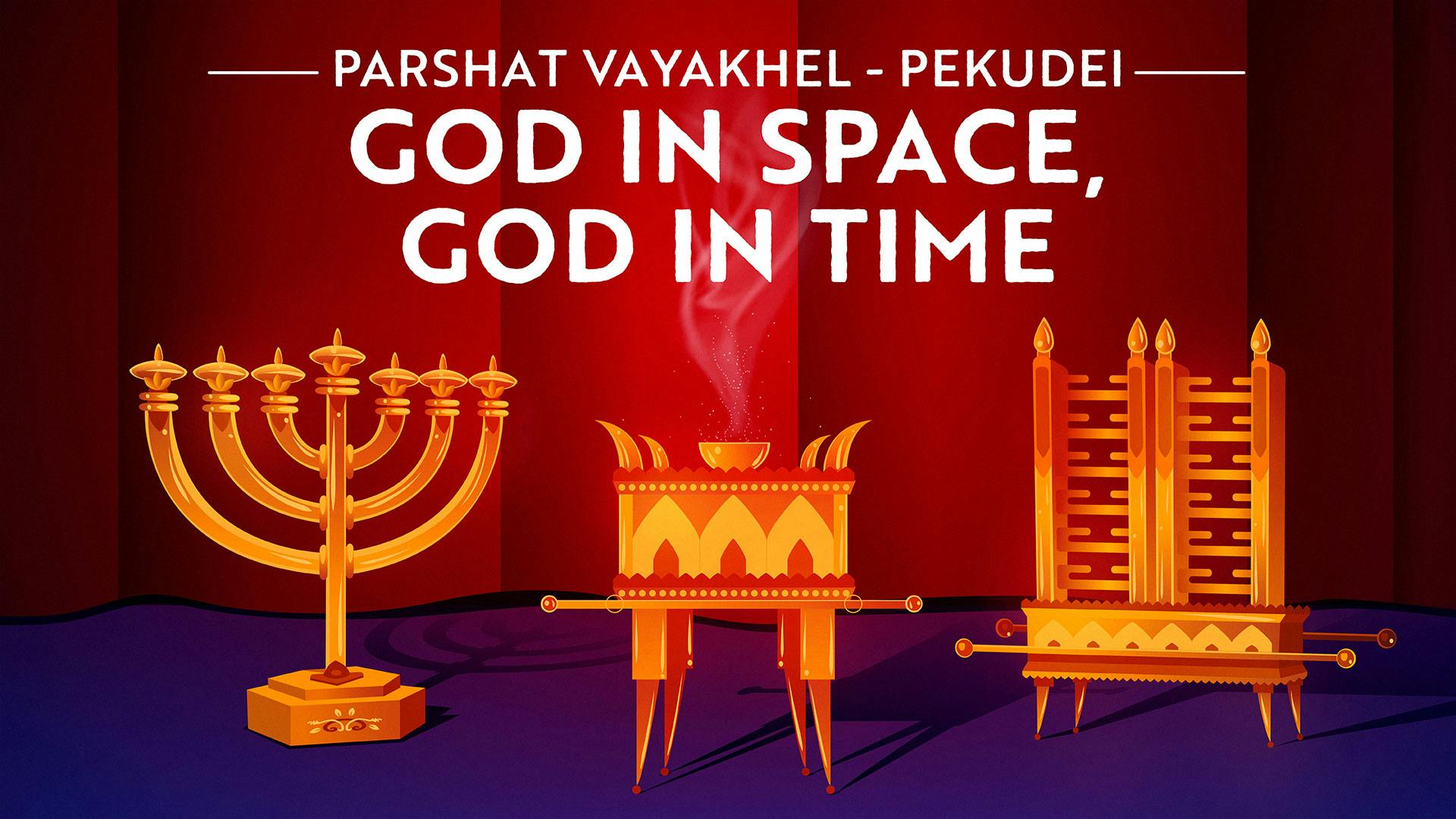
The Significance Of Keeping The Sabbath
This week, Rabbi Fohrman examines a description the Bible gives of Sabbath and asks, what does it mean to bring God into this world through space and through time? In this video, Rabbi Fohrman examines melacha and explains that time and space are the two realms in which we explore our connection with God.
12 min

The Meaning Of The Tabernacle's Incense Altar
In Vayakhel, we hear about the Mishkan’s construction, yet again! God just told Israel how to build the Mishkan, and yet we are given those details again as Israel builds it. But if you take a closer look at the text, there are subtle and significant differences. Why would the Israelites build the Mishkan differently than God commanded? What can these differences teach us?
11 min

What Do The Tabernacle And Creation Have In Common?
We learn in Vayakhel-Pekudei about the appointment of Betzalel as the architect of the Tabernacle. But there’s something very striking about the language describing this appointment. It sounds eerily similar to the language in the Creation story. What do Betzalel’s appointment and creation have in common? Join Rabbi Fohrman and Imu as they explore the commonalities between God creating the world for man and man creating the Tabernacle for God, and never think about Betzalel’s appointment the same way again.
19 min

Vayakhel: What Does It Mean To Be Created In The Image Of God?
A printable parsha guide for our Vayakhel video, "What Does It Mean To Be Created In The Image Of God?"

Vayakhel: God In Space, God In Time
A printable parsha guide for our Vayakhel video, "God In Space, God In Time."
Exodus // Pekudei
The Pekudei Torah Portion: Exodus 38:21–Exodus 40:38
The Mishkan is complete! Moses anoints it, and Aaron and his sons are appointed priests. God’s cloud appears over the Mishkan, and God finally dwells within it.
See the full summary and Parsha home page here.
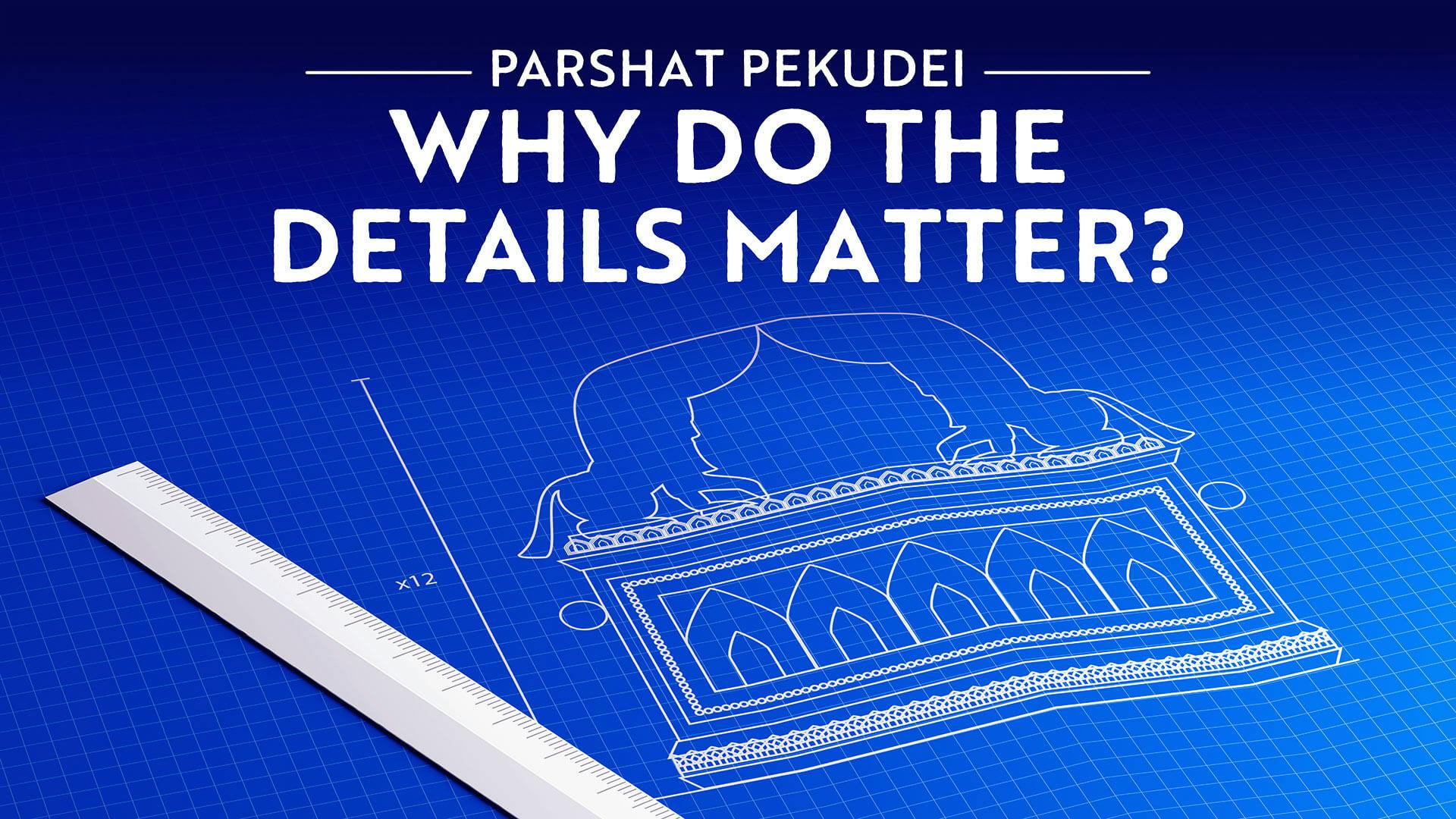
The Significance Of The Tabernacle's Colors
Red, purple, white and blue – do they mean anything to you? Watch now to learn about the meaning of the colors in the Mishkan.
11 min

Understanding Shmot Through Chiasms
In this week's video, Rabbi Fohrman explores an incredible chiasm that encompasses more than 15 chapters, and asks, how do the pieces of this puzzle, especially the focal point at the center, come together to help us understand how the Torah builds together?
Part 1 of 2 • 11 min

The Significance Of Keeping The Sabbath
This week, Rabbi Fohrman examines a description the Bible gives of Sabbath and asks, what does it mean to bring God into this world through space and through time? In this video, Rabbi Fohrman examines melacha and explains that time and space are the two realms in which we explore our connection with God.
12 min

The Meaning Of The Book Of Exodus
Parshat Pekudei is the conclusion of the book of Exodus. Exodus is known for Israel’s escape from Egypt, the sea splitting, the Ten Commandments, the Golden Calf, and the Tabernacle. We read these stories year after year, but do you ever stop and consider – what's their significance to you? The Author of this book, God, wrote it as an integrated whole, and you are its intended audience. What does He want you to get out of it?
12 min

What Do The Tabernacle And Creation Have In Common?
We learn in Vayakhel-Pekudei about the appointment of Betzalel as the architect of the Tabernacle. But there’s something very striking about the language describing this appointment. It sounds eerily similar to the language in the Creation story. What do Betzalel’s appointment and creation have in common? Join Rabbi Fohrman and Imu as they explore the commonalities between God creating the world for man and man creating the Tabernacle for God, and never think about Betzalel’s appointment the same way again.
19 min

Pekudei: A Giant Chiasm In Sefer Shmot
A printable parsha guide for our Pekudei video, "A Giant Chiasm In Sefer Shmot."

Pekudei: God In Space, God In Time
A printable parsha guide for our Vayakhel-Pekudei video, "God In Space, God In Time"
Leviticus // Vayikra
Torah Portion: Leviticus 1:1–5:26
The Torah describes the laws of animal sacrifices. One use of animal sacrifice is to atone for a sin committed.
See the full summary and Parsha home page here.
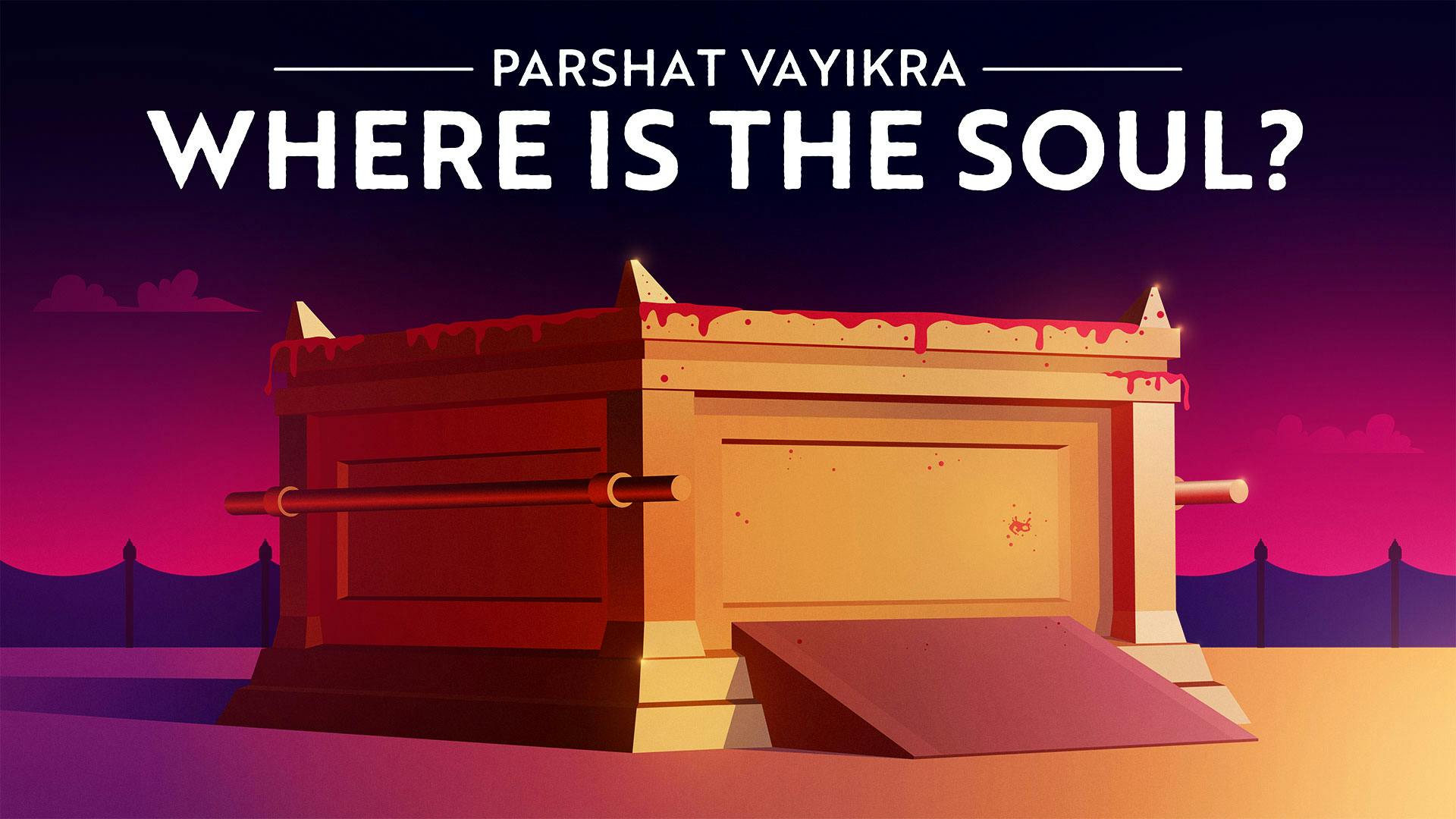
The Link Between Souls And Animal Sacrifice In The Bible
What is the soul? Where can it be found? Join Ami as he looks for answers in the most unexpected of places – the sacrifices in the Mishkan. Believe it or not, this parsha holds a key to understanding the nature of the soul that is relevant for us even today.
13 min

What The Bible Says About Good Leadership
In this video, we explore Rashi's puzzling comment, that a nation is lucky if it has a leader who brings a sacrifice for an accidental sin. Rabbi Fohrman contrasts the Torah's perspective of power and justice to the philosophy of Richard Nixon's famous line: "When the president does it, it is not illegal."
6 min

The Spiritual Meaning Of Biblical Animal Sacrifices And Offerings
Using sacrifices as a way to connect with God seems alien. How are we supposed to connect with the myriad of details associated with animal sacrifice in the modern day? Join Rabbi Fohrman as he explores this fundamental question by reexamining the three categories of sacrifice, and discover how the ancient tradition creates a modern framework for how to connect with God.
13 min

What Is The Book Of Leviticus Really About?
The book of Leviticus is tough - no narrative, and really difficult topics - for instance, how do we relate to holiness, purity and sacrifice in the 21st century? In this week's video for Vayikra (Leviticus 1:1-5:26), we will learn how to read the perplexing book of Leviticus.
12 min

Is Sefer Vayikra More Than Just Laws About Korbanot?
We learn in Vayikra about the laws of the Korbanot — sacrifices to God. But there’s something very difficult about studying Vayikra. It can be incredibly boring. There’s no storyline, just a lot of very specific rules. So, how can we approach Vayikra in a more engaging way? Join Rabbi Fohrman and Imu as they reexamine the two narratives surrounding Vayikra — the story of God’s cloud directing the Israelites — and discover a new narrative, with insights about how to become closer to God.
28 min

Vayikra: Can Leaders Make Mistakes?
A printable parsha guide for our Vayikra video, "Can Leaders Make Mistakes?"

Vayikra - How Can We Relate To Sacrifices Today?
A self-study guide for: Vayikra - How Can We Relate To Sacrifices Today?
Leviticus // Tzav
Tzav Torah Portion: Leviticus 6:1–8:36
The Torah continues to describe the laws of animal sacrifices. We learn about three different types of offerings: Sin offerings, Burnt offerings, and Homage offerings.
See the full summary and Parsha home page here.
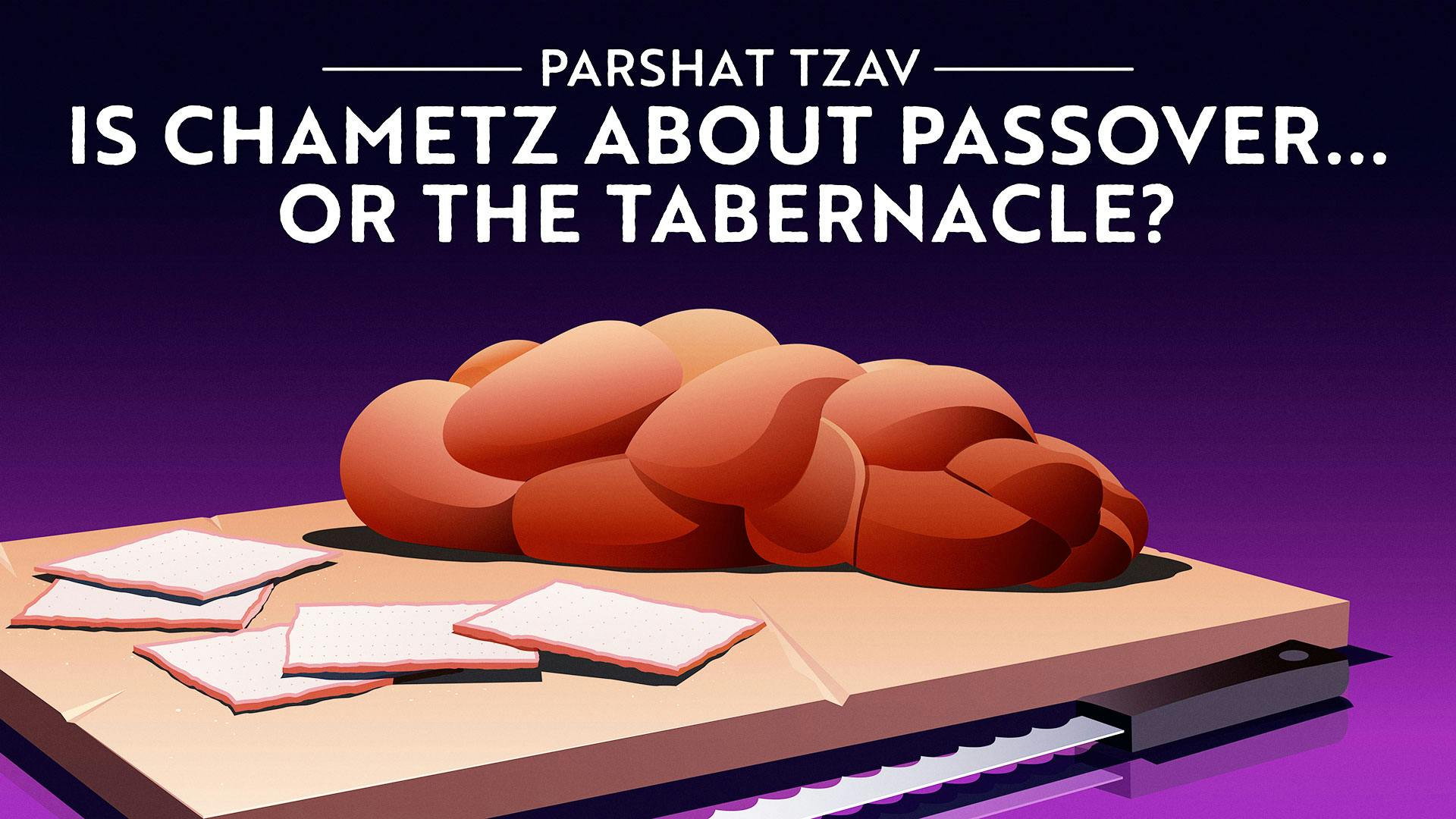
The Real Meaning Of Chametz
For some reason, the Torah prohibits us from bringing chametz with offerings on the altar. Isn't chametz about Passover? Why would it be prohibited on the altar?
15 min

The Meaning Behind The Thanksgiving Offering
In this week's video, we explores the verse and a section of Talmud that teaches about the four individuals who would bring a Thanksgiving sacrifice – but one of these four doesn't belong? Rabbi Fohrman examines this question, and helps us gain a deeper level of empathy for those who are ill.
6 min

The Connection Between Kohanim, Community And Separation
Why does the Torah use the culminating moment for the priests to go through a long and bizarre induction ceremony? And what do its parallels to a certain other section of text teach us about the deeper role of the priests of the Temple?
Part 1 of 2 • 13 min

Understanding The Meaning Of Korbanot Today
How can modern day readers understand and relate to the concept of animal sacrifices? When reading the text of Tzav, the sacrificial rituals feel antiquated and, at times, even barbaric. And yet, sacrifices (or Korbanot) were a staple of Israel's service to God. Can it be possible that something in the Torah is rendered meaningless to people today? Or is there a deeper meaning in the concept of Korbanot that can be learned? Join us as we re-examine the Korbanot, and never read Tzav the same way again.
11 min

What Does The Mincha Offering Teach Us About Pesach?
We learn in Tzav that one is not allowed to mix Chametz with the sacrificial Mincha offering. But what does the Mincha offering have to do with Chametz? Or by extension, Pesach? Join Imu and Rivky as they re-examine the offering text and learn the deeper meaning behind Chametz, a symbol of over-processing and separation from the creator.
28 min

Tzav: What Does It Mean To Survive?
A printable parsha guide for our Tzav video, "What Does It Mean To Survive?"

Tzav: A Deeper Look At The Priestly Role
A printable parsha guide for our Tzav video, "A Deeper Look At The Priestly Role"
Leviticus // Shemini
Shemini Torah Portion: Leviticus 9:1–11:47
Aaron and his sons make offerings to God at the Tabernacle. The people are joyous because God accepts the offering. We begin to learn about the laws of Kashrut (Kosher food).
See the full summary and Parsha home page here.
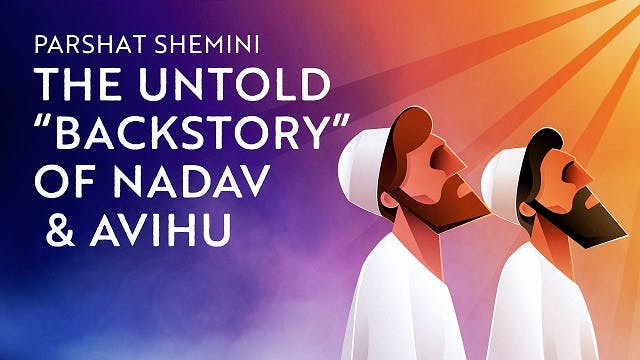
Making Sense Of Nadav And Avihu's Death
Did you know that the Torah tells us Nadav and Avihu's "backstory"? Learn about the life-changing experience that led the sons of Aaron to their deaths – and avoid making the same mistake.
16 min

Understanding The Real Sin Of Aaron's Two Sons
In this week's parsha, we see the sudden and disturbing death of two of Aaron's sons, Nadav and Avihu. In exploring the text more closely, what earlier Biblical story shows parallel themes and language to this story, and what is the meaning behind this connection?
11 min

Understanding The Human Side Of Aaron The High Priest
In this week's video, Rabbi Fohrman tackles a very strange scene: after the sudden death of Nadab and Abihu, Aaron's two sons, Moses gets in a disagreement with Aaron's other two sons about a sacrifice they bring. What is this argument fundamentally about, and what are we meant to learn from it about overcoming loss?
11 min

Understanding The Spiritual Meaning Of Kosher Meat
In Shemini, the Torah talks about one of the most impactful laws on the general Jewish lifestyle – kosher animals. Have you ever considered why Jews are restricted from eating certain animals? And the specific laws – split hooves, chewing cud – seem totally arbitrary. But what if there was a way to think about kosher that makes sense, and can even strengthen our relationship with God?
13 min

What Does The Induction Ceremony For The Priests Have To Do With... Purim?
We learn in Shemini about the induction of Aaron and his sons into the priesthood. Interestingly, there are bunch of similarities - in language, and in theme - between this story, and the story of Megillat Esther. But what does the induction of priests have to do with Esther?? Join Rabbi Fohrman and Rivky as they examine this puzzle - and never think about the priesthood, or Megillat Esther - the same way again.
43 min

Shemini: Why Did God Reject Nadav And Avihu?
A printable parsha guide for our Shemini video, "Why Did God Reject Nadav And Avihu?"

Shemini - What Does Aaron Teach Us About Loss?
A self-study guide for: Shemini - What Does Aaron Teach Us About Loss?
Leviticus // Tazria
Tazria Torah Portion: Leviticus 12:1–13:59
In this parsha, we learn about the post-childbirth purification process. We learn about the laws of Tzara'at (loosely translated to leprosy).
See the full summary and Parsha home page here.
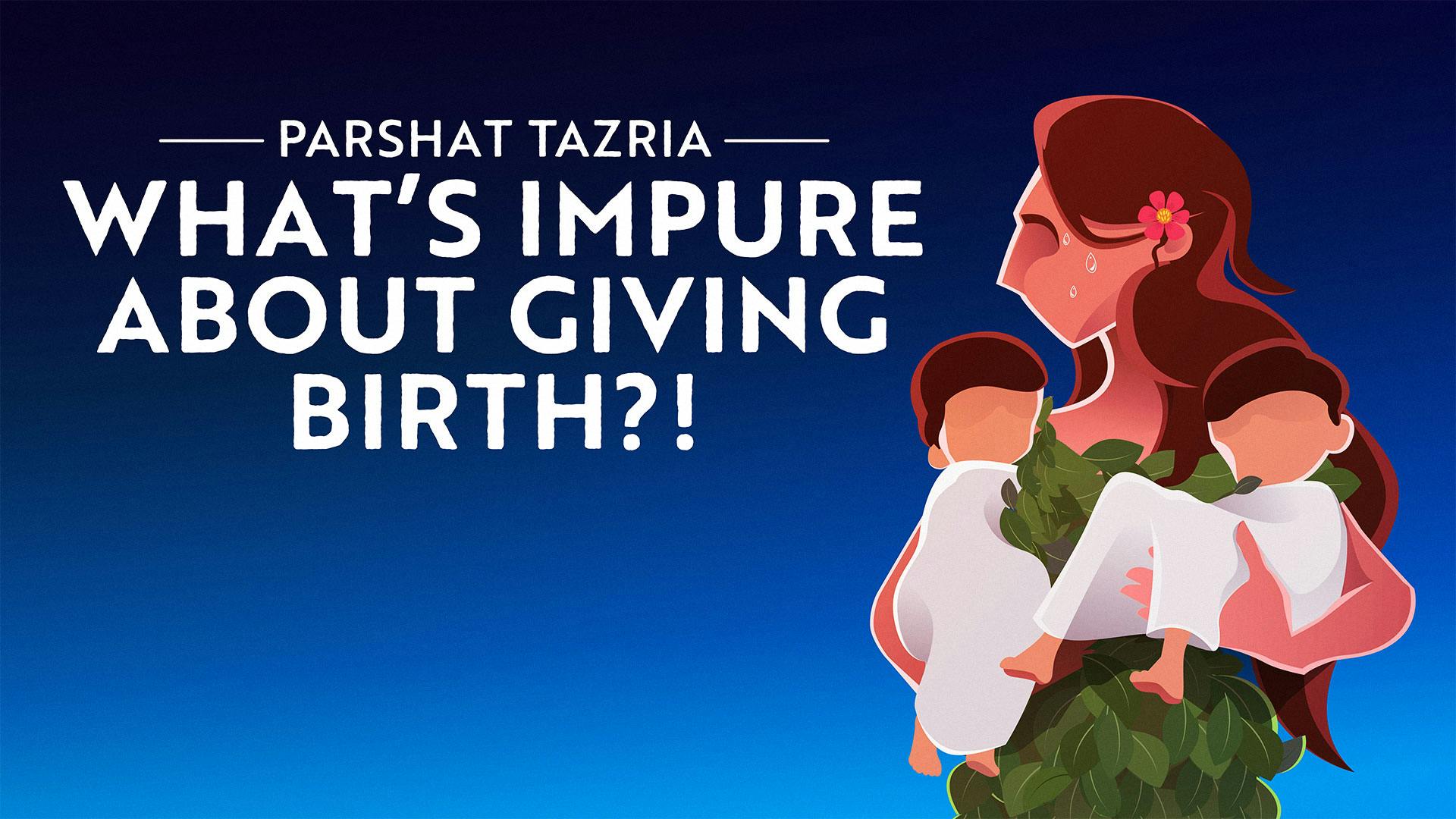
The Bible's Strange Laws Of Impurity After Childbirth
Is there anything more pure than the birth of a new baby? Well, the Torah seems to think so. Because apparently, giving birth makes a mother ritually impure. Confused? Join Ami as he untangles this strange set of laws.
Part 1 of 2 • 17 min
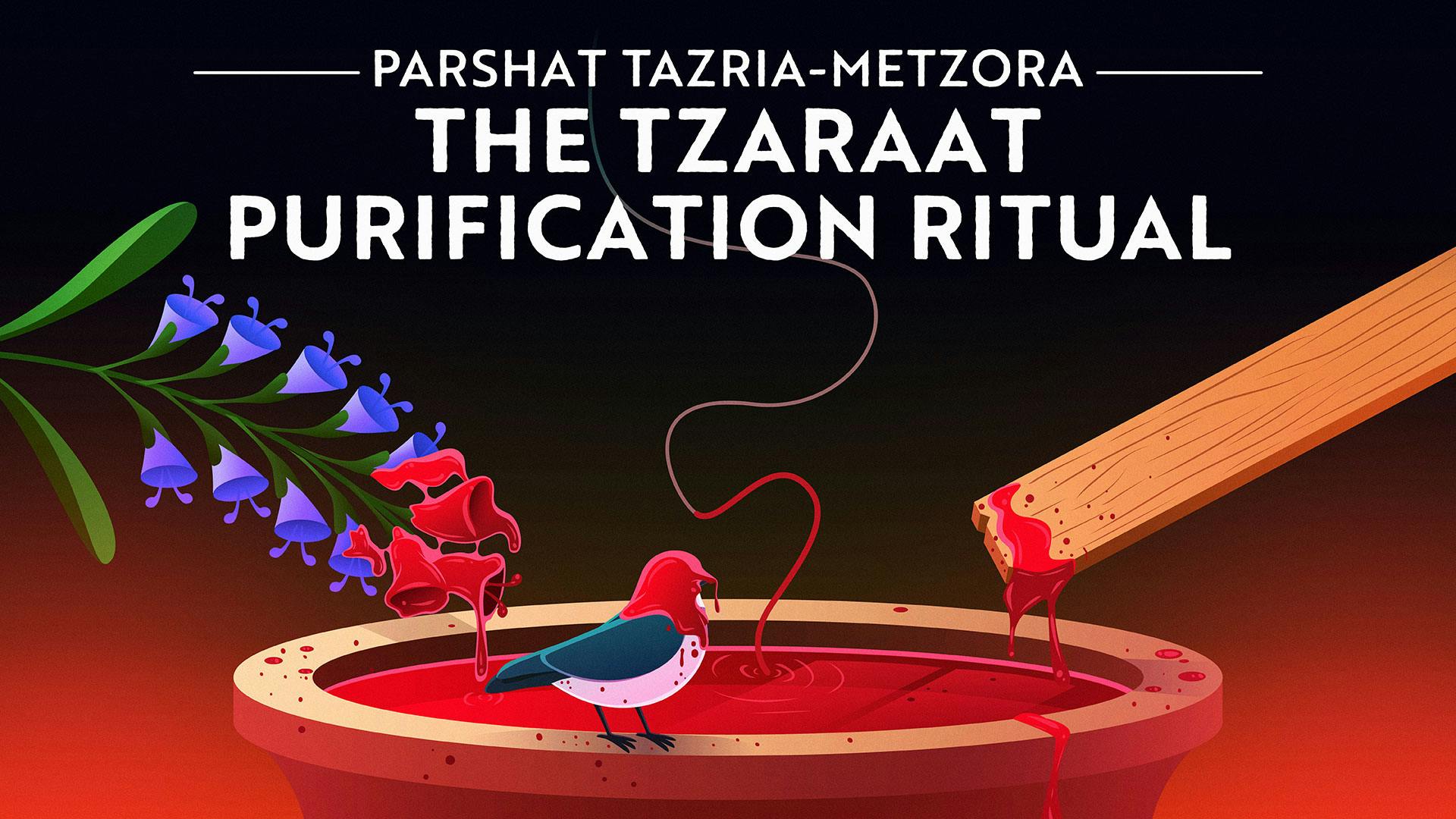
The Tzaraat Purification Ritual: What Does It Mean?
In Part I of this series, we connected the laws relating to the purification of a metzora to the laws of the korban Pesach. Why would that be? In Part II, Rabbi Fohrman puts the pieces together and reminds us that both teach us about 'radical separateness' – and while each of us is an individual, we are also part of a larger unit.
Part 1 of 4 • 8 min

What Does The Passover Sacrifice Teach Us About The Metzora?
In this video, Rabbi Fohrman picks up from last year's Tazria and Metzora videos, which connected the metzora purification process with the korban pesach. Here, he argues that only through the two processes can we become fully alive and part of the community.
12 min

What Do Tumah And Tahara Mean Today?
In Parshat Tazria, we are introduced to the concepts of Tumah and Tahara. Some translate them as cleanliness and uncleanliness, some say ritual purity and impurity, but we never seem to get a clear and relevant understanding of what they actually are. Join us in Part I of this quest as we begin to tackle both what Tumah and Tahara are, and how these new definitions can truly impact our lives today.
Part 1 of 2 • 11 min

What Does Childbirth Have In Common With Leprosy?
In Parshat Tazria-Metzora, we learn about the different ways that one can become “tamei,” spiritually impure – such as giving birth, to someone who has contracted leprosy. But how do these radically different ways of becoming tamei actually connect? Are we meant to believe that the miracle of birth is similar to a plague of deformity? Join Rabbi Fohrman and Imu as they reexamine the text and find thematic connections to explain how these strange laws are actually connected.
24 min

Tazria: The Bizarre Purification Of The Metzora
A printable parsha guide for our Tazria video, "The Bizarre Purification Of The Metzora"

Tazria: Rejoining the Community
A printable parsha guide for our Tazria video, "Rejoining the Community"
Leviticus // Metzora
Metzora Torah Portion: Leviticus 14:1–15:33
In Parshat Metzora, we continue learning the laws of tzara'at, including how to identify and treat the condition.
See the full summary and Parsha home page here.

The Meaning Behind The Mikvah Rituals
Why do we go to the mikvah? Why does dunking in the mikvah’s waters leave us feeling “pure”? Join us as we take a deeper look at the meaning of this ritual bath and breathe new life into this mysterious custom.
15 min

The Tzaraat Purification Ritual: What Does It Mean?
In Part I of this series, we connected the laws relating to the purification of a metzora to the laws of the korban Pesach. Why would that be? In Part II, Rabbi Fohrman puts the pieces together and reminds us that both teach us about 'radical separateness' – and while each of us is an individual, we are also part of a larger unit.
Part 1 of 4 • 8 min

What Does The Passover Sacrifice Teach Us About The Metzora?
In this video, Rabbi Fohrman picks up from last year's Tazria and Metzora videos, which connected the metzora purification process with the korban pesach. Here, he argues that only through the two processes can we become fully alive and part of the community.
12 min

What Do Tumah And Tahara Mean Today?
In Parshat Tazria, we are introduced to the concepts of Tumah and Tahara. Some translate them as cleanliness and uncleanliness, some say ritual purity and impurity, but we never seem to get a clear and relevant understanding of what they actually are. Join us in Part I of this quest as we begin to tackle both what Tumah and Tahara are, and how these new definitions can truly impact our lives today.
Part 1 of 2 • 11 min

What Does Childbirth Have In Common With Leprosy?
In Parshat Tazria-Metzora, we learn about the different ways that one can become “tamei,” spiritually impure – such as giving birth, to someone who has contracted leprosy. But how do these radically different ways of becoming tamei actually connect? Are we meant to believe that the miracle of birth is similar to a plague of deformity? Join Rabbi Fohrman and Imu as they reexamine the text and find thematic connections to explain how these strange laws are actually connected.
24 min

Metzora: Living Within the Community
A printable parsha guide for our Metzora video, "Living Within the Community."

Tazria-Metzora: Rejoining The Community
A printable parsha guide for our Tazria-Metzora video, "Rejoining The Community."
Leviticus // Acharei Mot
Acharei Mot: Leviticus 16:1–18:30
Aaron's two sons are killed for coming too close to the presence of God. We learn about what actions a Priest must perform on Yom Kippur and the laws related to illicit relationships.
See the full summary and Parsha home page here.

What The Bible Says About Eating Meat
What is the Torah's take on eating animals? Is it a spiritual ideal? Or a concession to mankind's desire?
16 min

The Surprising Purpose of Yom Kippur
We’re used to thinking of Yom Kippur as a time of forgiveness, when God wipes our slates clean. But what if we’ve been misunderstanding the essence of the holiday?
9 min

What Do Sacrificial Laws Teach Us About Social Justice?
The Torah teaches us social justice laws – leave some crops for the poor, etc. – right next to some laws relating to animal sacrifices. What's the connection between the two? Rabbi Fohrman argues that in this section of text, the Torah is doubling down on important principles – which can be found just as clearly in sacrifice as in social justice.
11 min
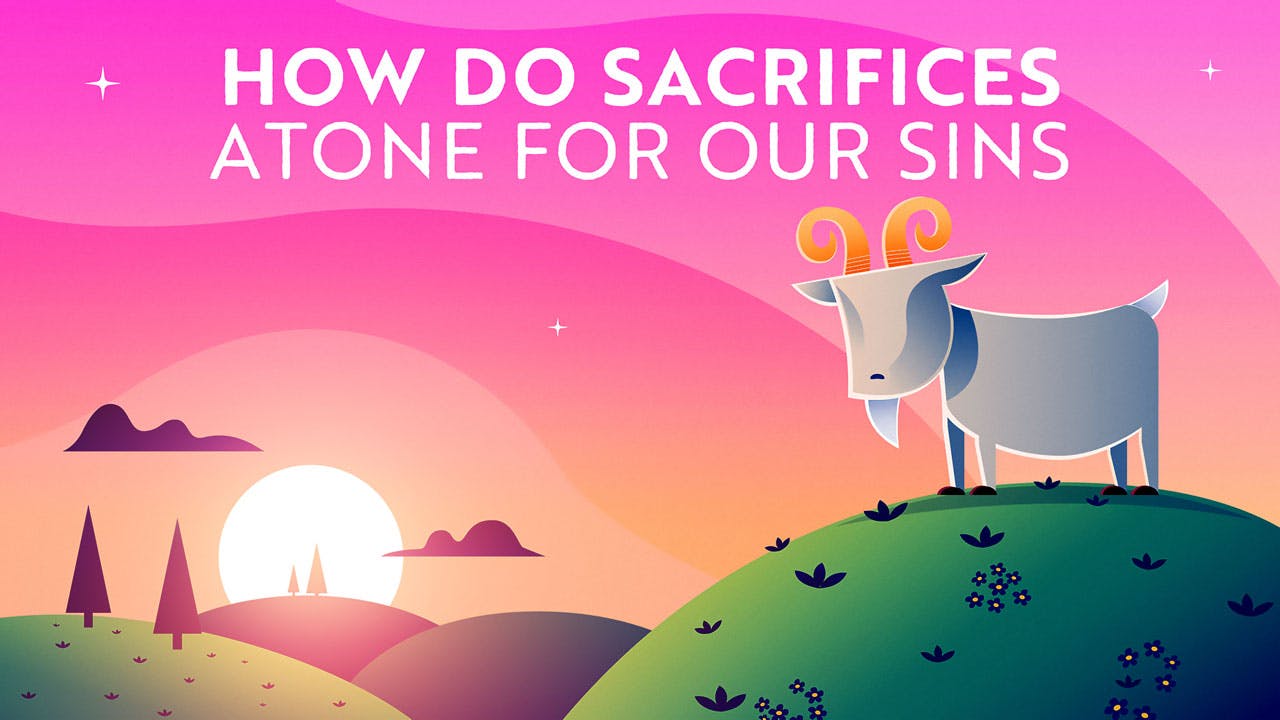
Understanding The Day Of Atonement Rituals
We associate Yom Kippur with prayer and sitting in synagogue all day. But back then, it involved goats and lotteries and sacrifices and sprinkling blood and incense and clouds. How do those weird rituals grant forgiveness for our sins? It sounds magical… and irrational. Let's study this to explore the essence of Yom Kippur.
15 min

What Does Yom Kippur Have To Do With Megillat Esther?
Acharei Mot describes the priest’s Yom Kippur service in the Tabernacle, with strangely similar language to Megillat Esther. But what does Yom Kippur—with themes of repentance and closeness to God—have to do with Esther? Rabbi Fohrman and Rivky re-examine these two texts.
22 min

Teacher Guide: The (Surprising) Meaning & Purpose Of Yom Kippur
A Teacher’s lesson plan and worksheet for: The (Surprising) Meaning & Purpose Of Yom Kippur

Kedoshim: Social Justice... And Sacrifies?
A printable parsha guide for our Kedoshim video, "Social Justice... And Sacrifies?"
Leviticus // Kedoshim
Kedoshim Torah Portion: Leviticus 19:1–20:27
In Parshat Kedoshim, we learn about laws related to kedusha, holiness, plus the prohibition against idolatry, the mitzvah of charity, the principle of equality before the law, and the sacredness of life.
See the full summary and Parsha home page here.
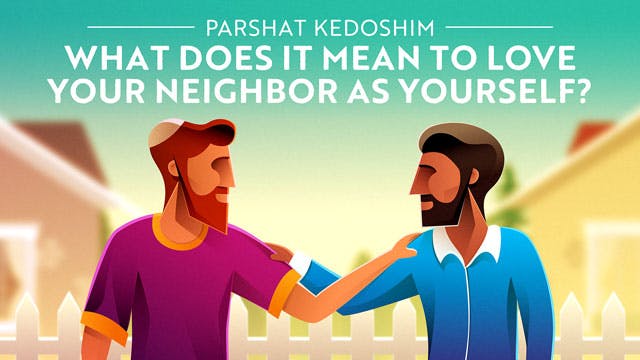
What It Means To Love Your Neighbor As Yourself
We all know the maxim, "Love your neighbor as yourself." But how do I do that? As it turns out, the Torah points a way. In this video, Rabbi Fohrman gives us the context for this directive, and helps us find the building blocks for true love.
8 min

What Do Sacrificial Laws Teach Us About Social Justice?
The Torah teaches us social justice laws – leave some crops for the poor, etc. – right next to some laws relating to animal sacrifices. What's the connection between the two? Rabbi Fohrman argues that in this section of text, the Torah is doubling down on important principles – which can be found just as clearly in sacrifice as in social justice.
11 min

Kedusha: What Is Holiness According To The Bible
Many of the laws in Parshat Kedoshim are not what we might expect to hear when we think of holiness. What happened to prayer and meditation? Why are we talking about crossbreeding animals? Is there any rhyme or reason to this list? And if we do find a way to understand all of these laws as fitting together, what do they teach us about holiness and how to achieve it?
15 min

What Does Yom Kippur Have To Do With Megillat Esther?
Acharei Mot describes the priest’s Yom Kippur service in the Tabernacle, with strangely similar language to Megillat Esther. But what does Yom Kippur—with themes of repentance and closeness to God—have to do with Esther? Rabbi Fohrman and Rivky re-examine these two texts.
22 min

Kedoshim: How Can I Achieve True Love?
A printable parsha guide for our Kedoshim video, "How Can I Achieve True Love?"

Kedoshim: Social Justice... And Sacrifies?
A printable parsha guide for our Kedoshim video, "Social Justice... And Sacrifies?"
Leviticus // Emor
Emor Torah Portion: Leviticus 21:1–24:23
In this parsha, God commands us to observe the major holidays including: Shabbat, Passover, Yom Kippur, Rosh Hashanah, Sukkot, and Shavuot.
See the full summary and Parsha home page here.

The Importance Of Shabbat In All Jewish Holidays
In our Torah reading for holidays, we not only recite the laws of holidays, we include shabbat, and oddest of all, some laws about sacrificing animals. What do all these laws have to do with one another? In this video, Rabbi Fohrman makes a fascinating argument about how Shabbat works and shows that there are shabbatot in different realms.
9 min

An Epic Understanding Of The Jewish Holidays
When it comes to the Jewish holidays, we tend to relate to each one on its own. But often, we miss the bigger picture. The Torah actually talks to us in epic, sweeping terms about the very idea of a “holiday,” about how to understand the holidays and find meaning in them. Come into the text and get ready to unravel the Torah's secret about the true meaning of Sukkot, Pesach, and Shavuot.
12 min

How To Bring Holiness Into Our Lives
In Emor, we read laws about the kohanim and about the vessels in the mishkan . . . wait, again? And, sandwiched between them, we hear a list of holidays like Shabbat, Yom Kippur, and Pesach. Why not finish talking about the mishkan and then move on to holidays? The answer to that will illuminate a deep secret about our relationship with God, with practical significance in our everyday lives.
14 min
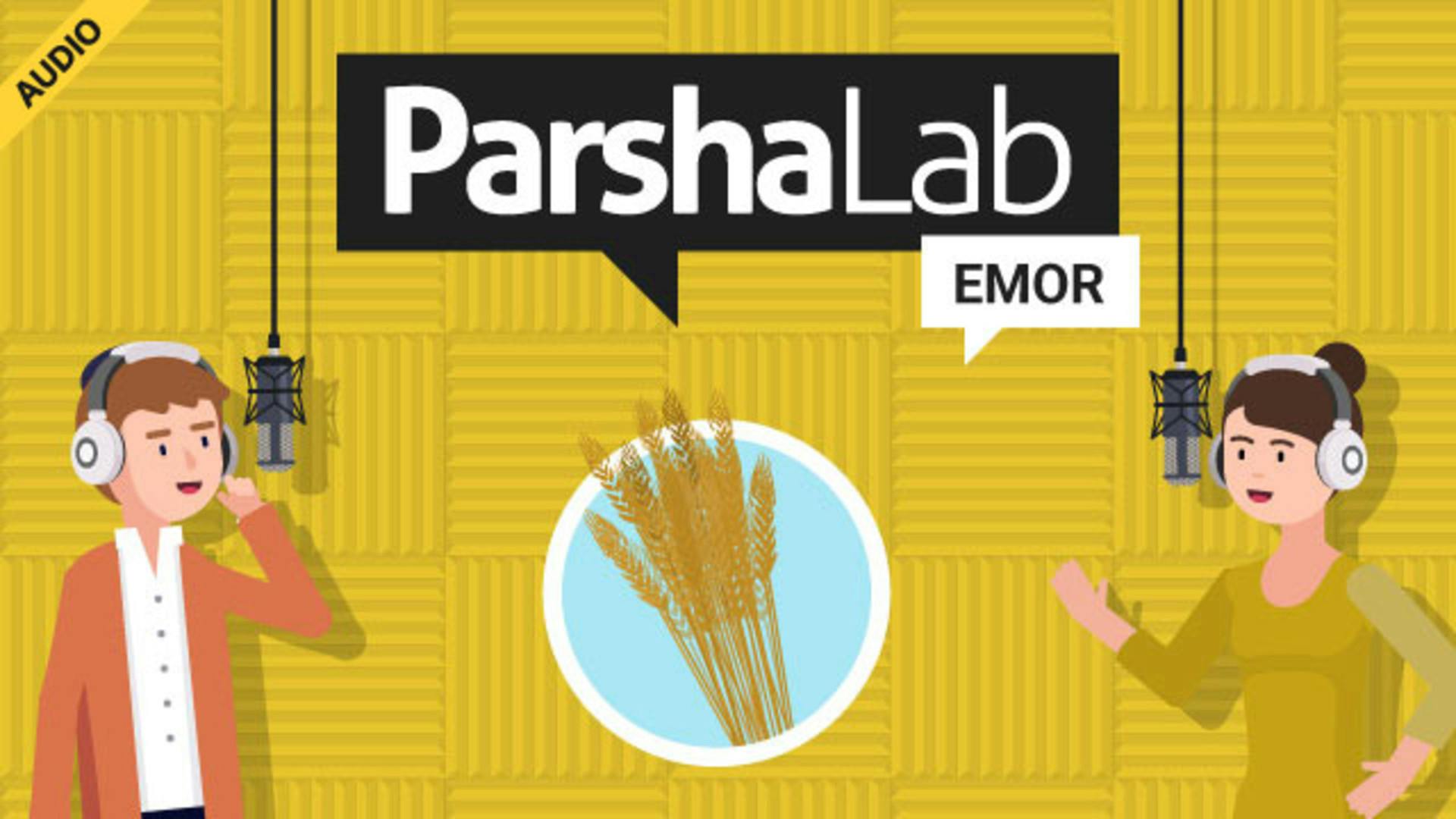
What Does The Omer Offering Have To Do With The Jewish Holidays?
In Parshat Emor, we read through the laws and details of the Biblical holidays. But this section also includes a few other laws – like the Omer offering, and agricultural laws like Pe’ah and Leket. Why are those laws included with the Jewish holidays? Join Rabbi Fohrman and Rivky as they re-examine the Emor text, and discover its subtle shared language with a few other texts of the Torah.
27 min

Did God Really Need To Rest? Shabbat's Role In Judaism
One of the most sacred traditions in Judaism is our weekly celebration of Shabbat, our “day of rest,” when we commemorate that God “rested” after His six days of creation. But wait–why would an omnipotent God need to rest? Yes, He created the universe – but He’s infinitely powerful! And why would we celebrate Shabbat by emulating the day God rested, not the mind-blowing six days of creation before it? What did God do on His day of rest that was so incredible?
Part 1 of 4 • 8 min
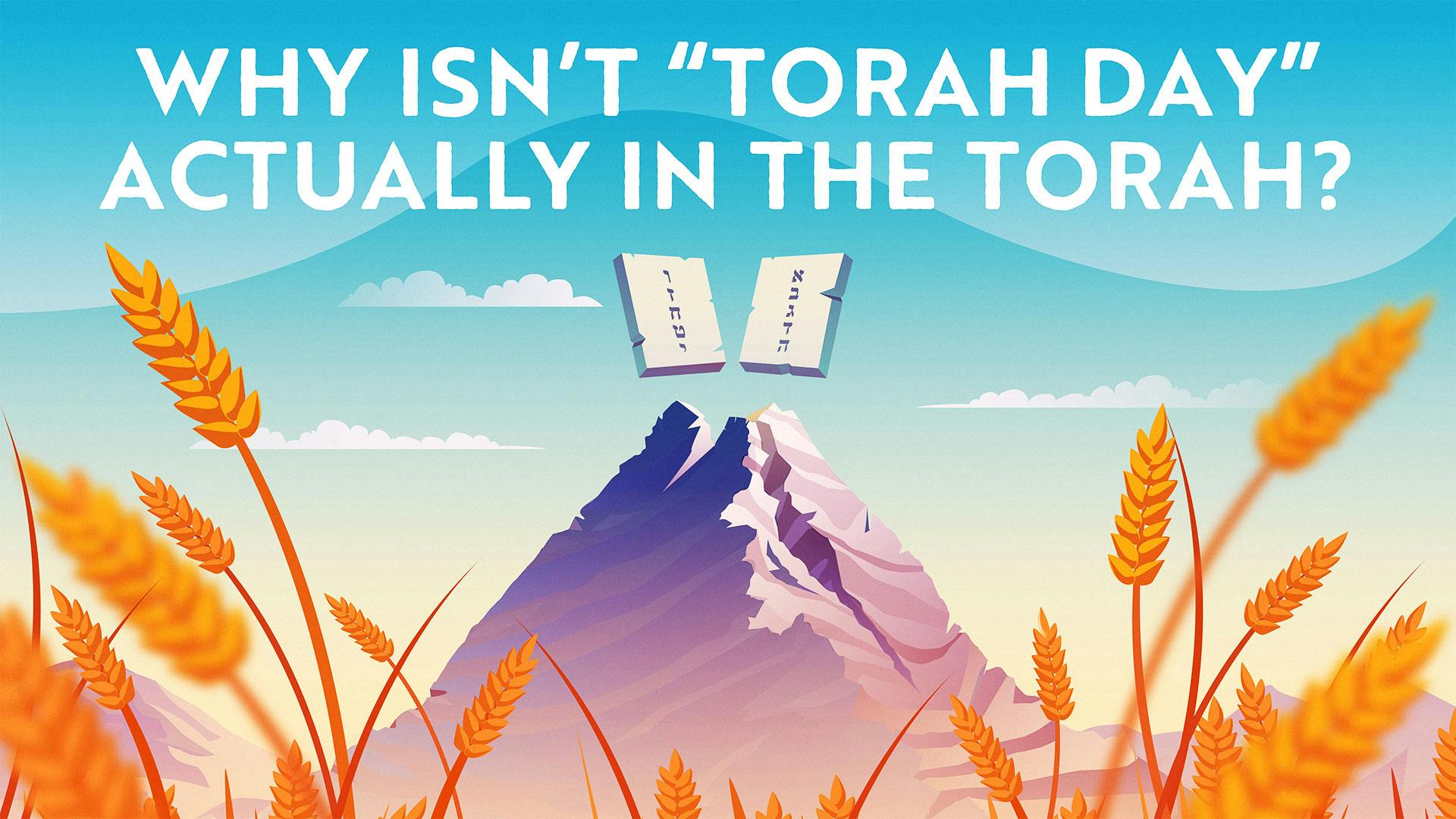
Shavuot’s Origin & History
The Torah seems to speak of Shavuot as a harvest holiday, but the Rabbis conceive of it as the time to celebrate the Giving of the Torah. Which one is it? In this series, Rabbi Fohrman shows that the two actually complement each other to bring deeper, relevant meaning to Shavuot.
Part 1 of 6 • 6 min
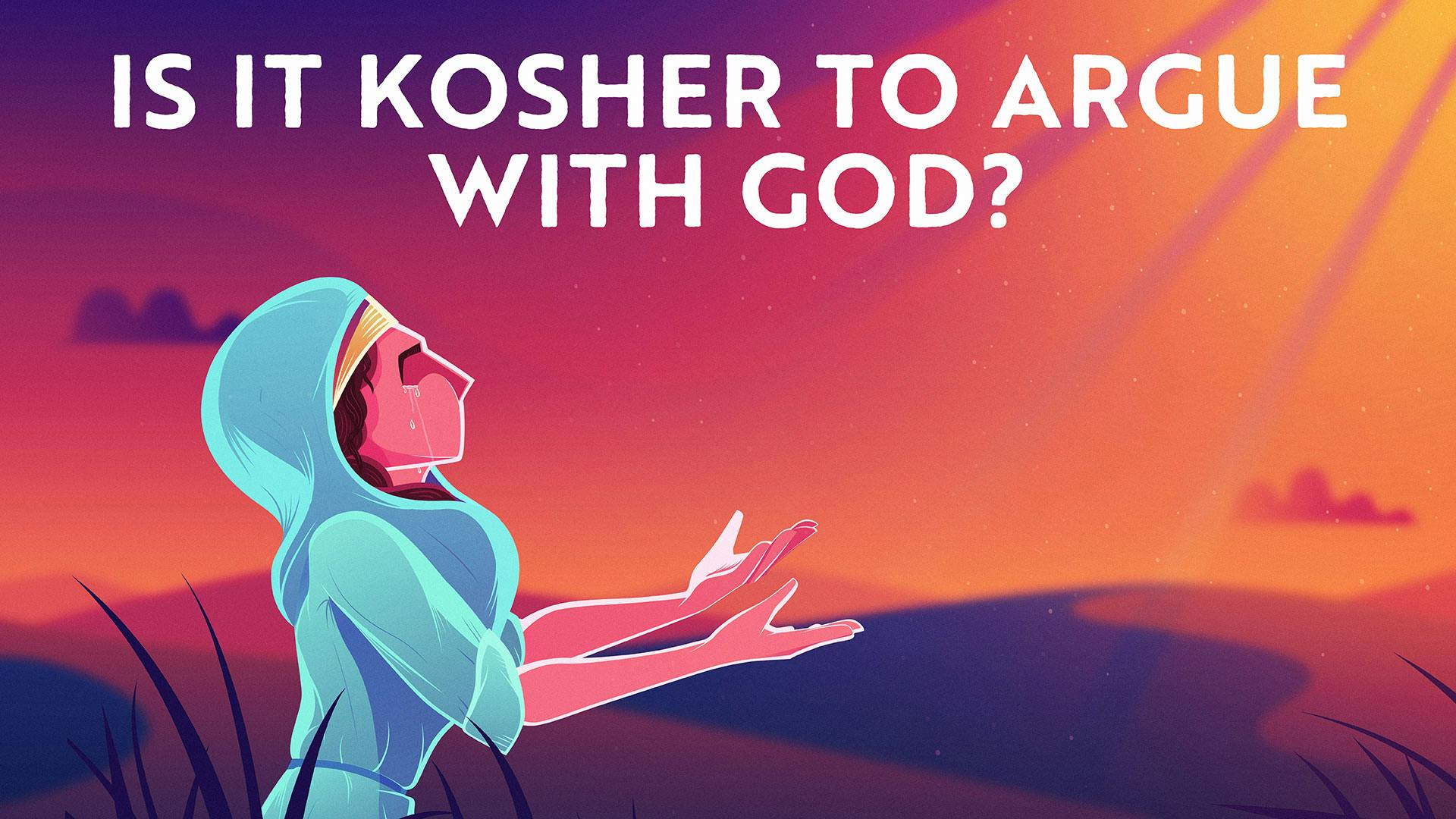
Is It Kosher To Argue With God?
In Emor, we read about the Mekalel (the "Blasphemer"), the man who is punished for cursing God. Cursing God doesn't sound like a very religious thing to do, but it raises the question: Is it ever OK to speak against God? What about arguing with God? Find out in this audio series.
Part 1 of 10 • 36 min

Emor: What is Sabbath All About?
A printable parsha guide for our Emor video, "What is Sabbath All About?"

Emor: An Epic View Of Jewish Holidays
A printable parsha guide for our Emor video, "An Epic View Of Jewish Holidays"
Leviticus // Behar
Behar Torah Portion: Leviticus 25:1–26:2
God teaches us the Sabbatical law, where we must let our land rest every seven years, and we learn about Jubilee law, relating to the freedom of slaves every 50 years.
See the full summary and Parsha home page here.

The Spiritual Meaning Of The Sabbath And Jubilee Years
We talked last week about seeing shabbat in different worlds. But how do we understand, conceptually, what this means? In this week's video, we look at Pesach, Shmita and Yovel and ask, where do we see Shabbat, and why does it matter?
11 min

Can We Truly Walk Closely With God?
In Leviticus, the Torah suggests to us that if we follow God's will, we will be rewarded with walking with God – with the same language as the Garden of Eden. Rabbi Fohrman speaks this week about the loving, joyful moment of togetherness with God.
9 min

What Are Shemittah And Yovel Really About?
Behar is all about the seemingly strange laws of 2 different events: shemittah and yovel, the sabbatical year, and the year of the jubilee. What are they about? Are we supposed to learn anything from these laws? What do they mean to us today?
17 min
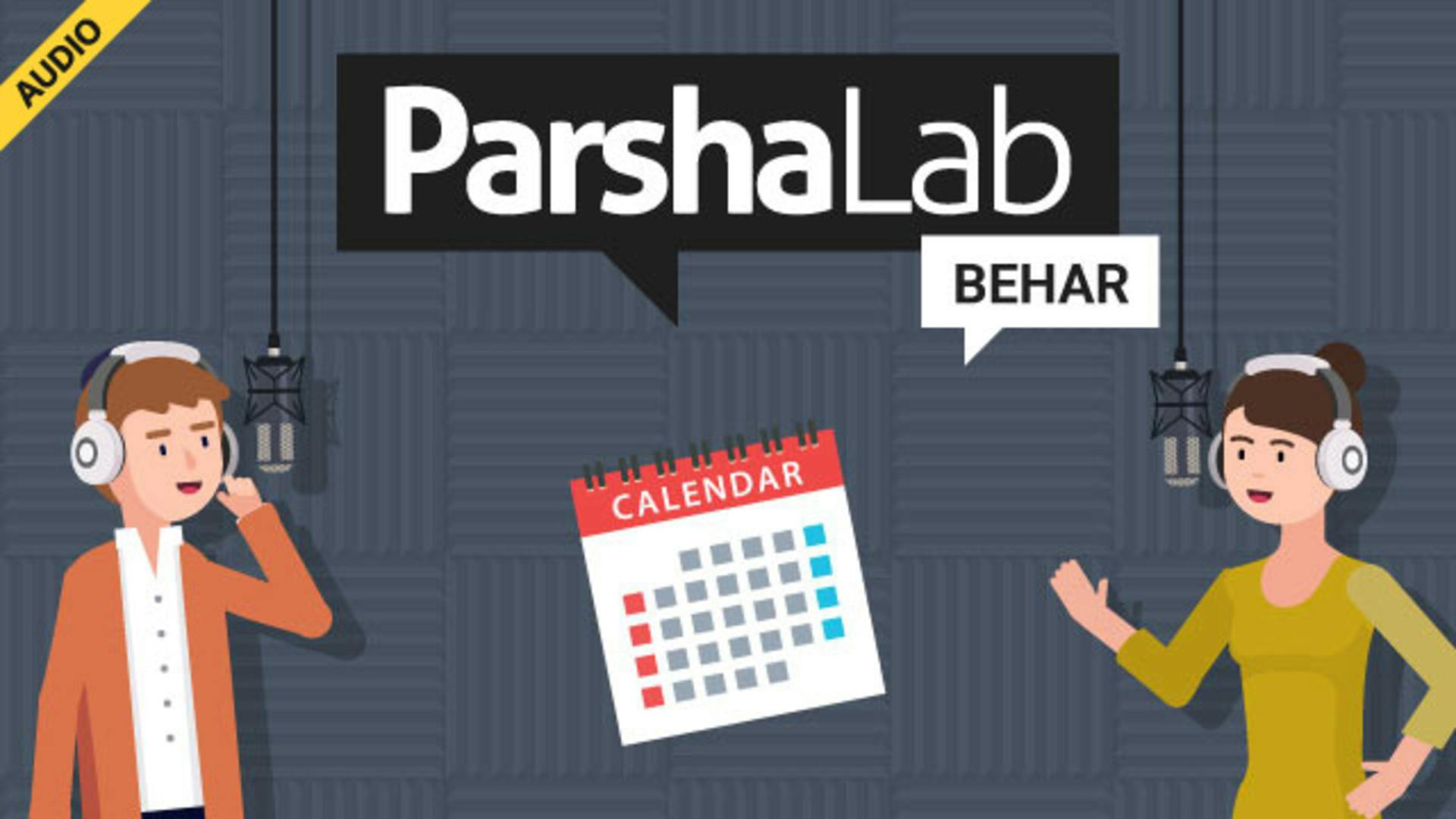
Shemittah, Yovel And… Mount Sinai?
This week’s double parsha, Behar-Bechokotai, focuses on the agricultural cycles of Shemittah and Yovel. Strangely enough, the language here carries echoes of some of the themes of last week’s parsha, and even seems to take us all the way back to Mount Sinai. Are these ideas somehow connected? What could the revelation at Sinai have to do with agricultural laws in the land of Israel? Join Rivky Stern and first time co-host Ami Silver as they explore these fascinating connections and the implications for what it means to live together with God in this world.
33 min

Shavuot’s Origin & History
The Torah seems to speak of Shavuot as a harvest holiday, but the Rabbis conceive of it as the time to celebrate the Giving of the Torah. Which one is it? In this series, Rabbi Fohrman shows that the two actually complement each other to bring deeper, relevant meaning to Shavuot.
Part 1 of 6 • 6 min

Behar: Why Does Land Have To Rest?
A printable parsha guide for our Behar video, "Why Does Land Have To Rest?"

Behar: Walking With God
A printable parsha guide for our Behar video, "Behar - Walking With God."
Leviticus // Bechukotai
Bechukotai Torah Portion: Leviticus 26:3–27:34
In this parsha, God promises blessings and curses to the people of Israel – depending on whether they keep His commandments.
See the full summary and Parsha home page here.

The Real Reason For God's Curses In The Bible
In this week's parsha, the Torah presents a stark choice: follow God and live, or abandon Him and die. Does this just reinforce God as a terrifying deity, or is there something more here? Through an analysis of language and a comparison to the Garden of Eden, Rabbi Fohrman shows us how we "choosing life" will show us the way to cling to God.
14 min

Can We Truly Walk Closely With God?
In Leviticus, the Torah suggests to us that if we follow God's will, we will be rewarded with walking with God – with the same language as the Garden of Eden. Rabbi Fohrman speaks this week about the loving, joyful moment of togetherness with God.
9 min

How Does The Structure Of Leviticus Reveal Its Meaning?
Vayikra has been a pretty important, and surprisingly interesting, book. So what is our epic conclusion going to be? About communicating with God? Is it about how to see holiness in our fellow people? How to become better people in all of our relationships? What is it?
15 min

Bechukotai: Why Would God Curse His People?
A printable parsha guide for our Bechukotai video, "Why Would God Curse His People?"

Behar-Bechukotai: Walking With God
A printable parsha guide for our Behar-Bechukotai video, "Walking With God."
Numbers // Bamidbar
Bamidbar Torah Portion: Numbers 1:1–4:20
This Parsha marks the beginning of the fourth book of Moses. Moses conducts a census of the Jewish people. Then, God directs Aaron and his family about their jobs in the Tent of Meeting.
See the full summary and Parsha home page here.
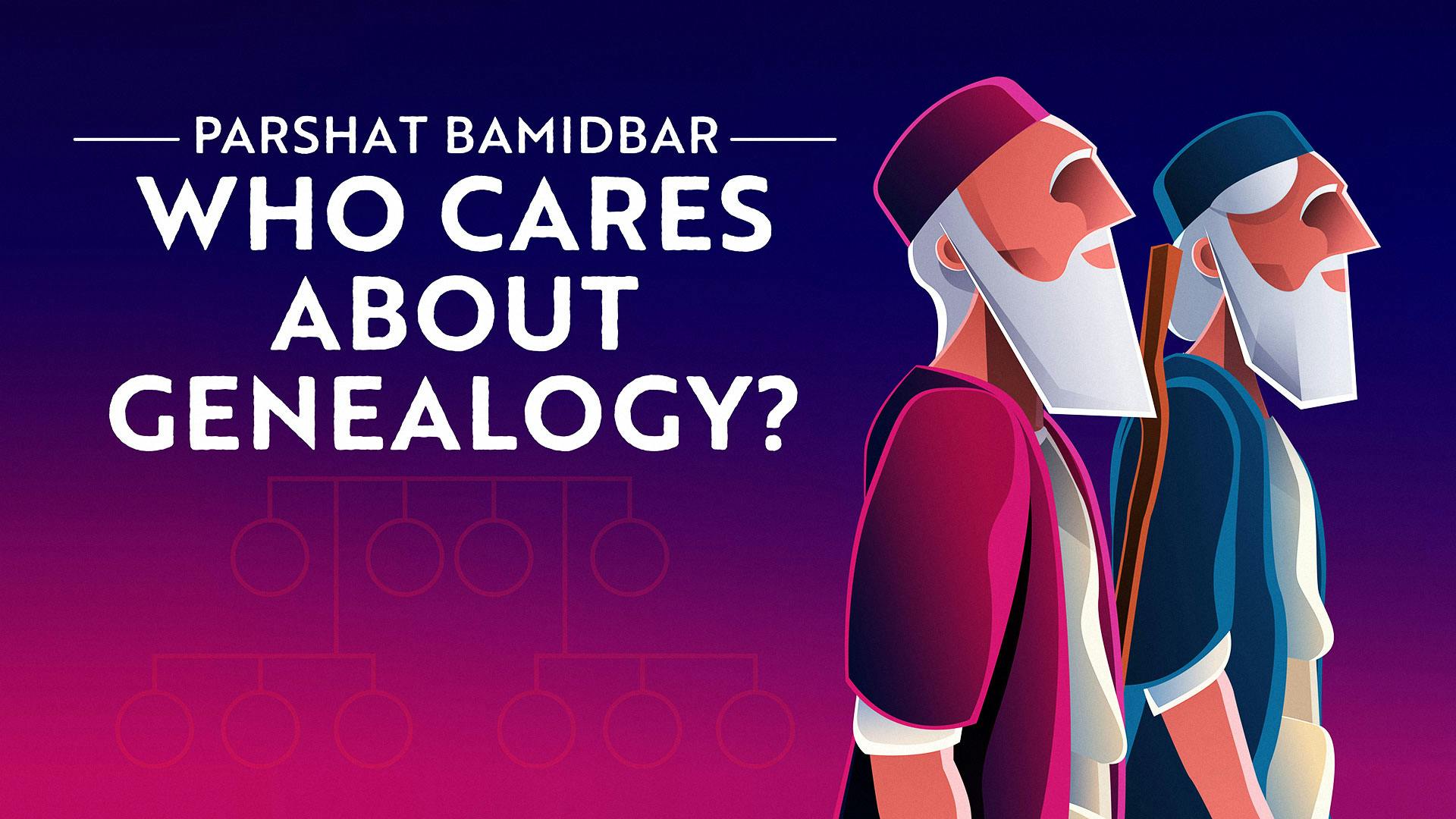
A Hidden Story For Teachers In The Genealogy Of Moses And Aaron
In Parshat Bamidbar, we read a genealogy of the families of the nation of Israel - but isn't that kind of boring? In this video, we get a closer insight into some strange verses about Aaron's family, and Rabbi Fohrman gives us insight into what it truly means to be a teacher.
12 min

What The Bible's First Census Says About Community
In this video, Rabbi Fohrman points out a textual oddity - why does the Torah use two different words for "to count," and what do they each indicate? Through a deep analysis of the terms, we will come out with a stronger understanding of what it means to be an individual, but still part of a larger community.
12 min

Are Kohanim and Levites More Important Than the Rest of the Nation?
Bamidbar should open with the stories of the desert, right? But instead, we are told of a census, the camp formation, and the Levites. Huh? Why is this the introduction to Bamidbar? In this week's video, we dive into the new role of the Levites, and see how it gives us a window into understanding our own responsibility, and our destiny.
14 min

Is the “Book of Numbers” A Good Translation for “Bamidbar”?
Parshat Bamidbar is the first Parsha in the book of Bamidbar. Strangely enough, the names our Sages give to the Books of Torah often don’t line up with the Hebrew. Case in point, the Sages call Bamidbar “Sefer Hapikudim,” or the Book of Numbers. But what do numbers have to do with Bamidbar? Sure, the Israelites are counted in the beginning, but why is the whole book called Numbers? Is there actually a theme being presented in the title? And for that matter, are all of the Sages' titles actually presenting a bigger idea? Join Rabbi Fohrman and a special guest star (Arielle Fohrman!) as they explore these fascinating questions and their implications for the larger narrative of the Torah.
24 min

Bamidbar: Who Cares About Genealogy?
A printable parsha guide for our Bamidbar video, "Who Cares About Genealogy?"

Bamidbar: Why We Count
A printable parsha guide for our Bamidbar video, "Why We Count."
Numbers // Naso
Naso Torah Portion: Numbers 4:21–7:89
In this parsha, we learn the laws pertaining to a suspected adulteress and the Nazarite. This is also the longest parsha in the Torah.
See the full summary and Parsha home page here.
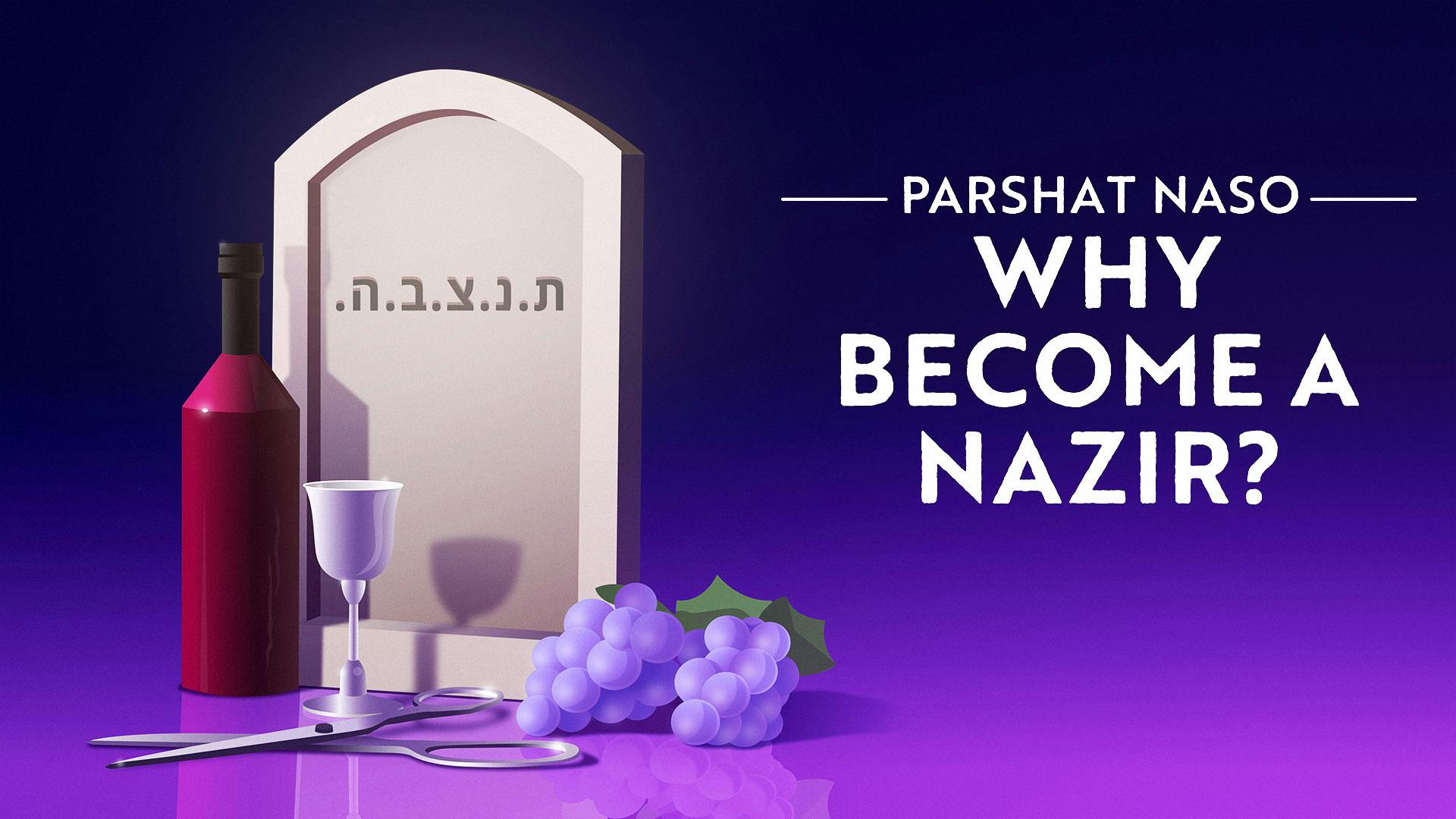
What It Really Means To Be A Nazarite
What is the meaning of the Nazir, and what is the right way to elevate ourselves to a true relationship with God?
Part 1 of 2 • 16 min

A Guide To Parenting
Rabbi Fohrman explores what might be the Torah's guide to parenting.
Part 1 of 3 • 10 min

Discovering The Themes Linking Numbers And Leviticus
In Parshat Naso, we are introduced to what seems like a hodgepodge of miscellaneous laws. Why is the Torah bringing these up together? Join us as we explore something very subtle going on in this parsha.
15 min

What Are The Unique Laws Of Sotah Really About?
Parshat Naso introduces us to one of the oddest laws in the Torah, the laws of the Sotah -- a woman suspected of adultery by her husband. If the woman chooses to defend her honor, she is able to partake in an ancient ritual where the Kohen makes her drink tampered water. If she’s telling the truth, nothing happens and she’s rewarded with children. But if she’s lying, she has a traumatic reaction to the water and she’s killed. What is the basis for this strange law and where did the procedure originate? Join Rabbi Fohrman and Rivky as they re-examine this practice and discover a unique relationship to the story of Noah earlier in the Torah — and never think about the laws of the Sotah the same way again.
34 min

Naso: What Does The Torah Teach About Parenting?
A printable parsha guide for our Naso video, "What Does The Torah Teach About Parenting?"

Naso: Letting Our Children Go
A printable parsha guide for our Naso video, "Letting Our Children Go."
Numbers // Behaalotecha
Behaalotecha: Numbers 8:1–12:16
Miriam and Aaron speak negative words about Moses. God teaches us the laws of Passover.
See the full summary and Parsha home page here.
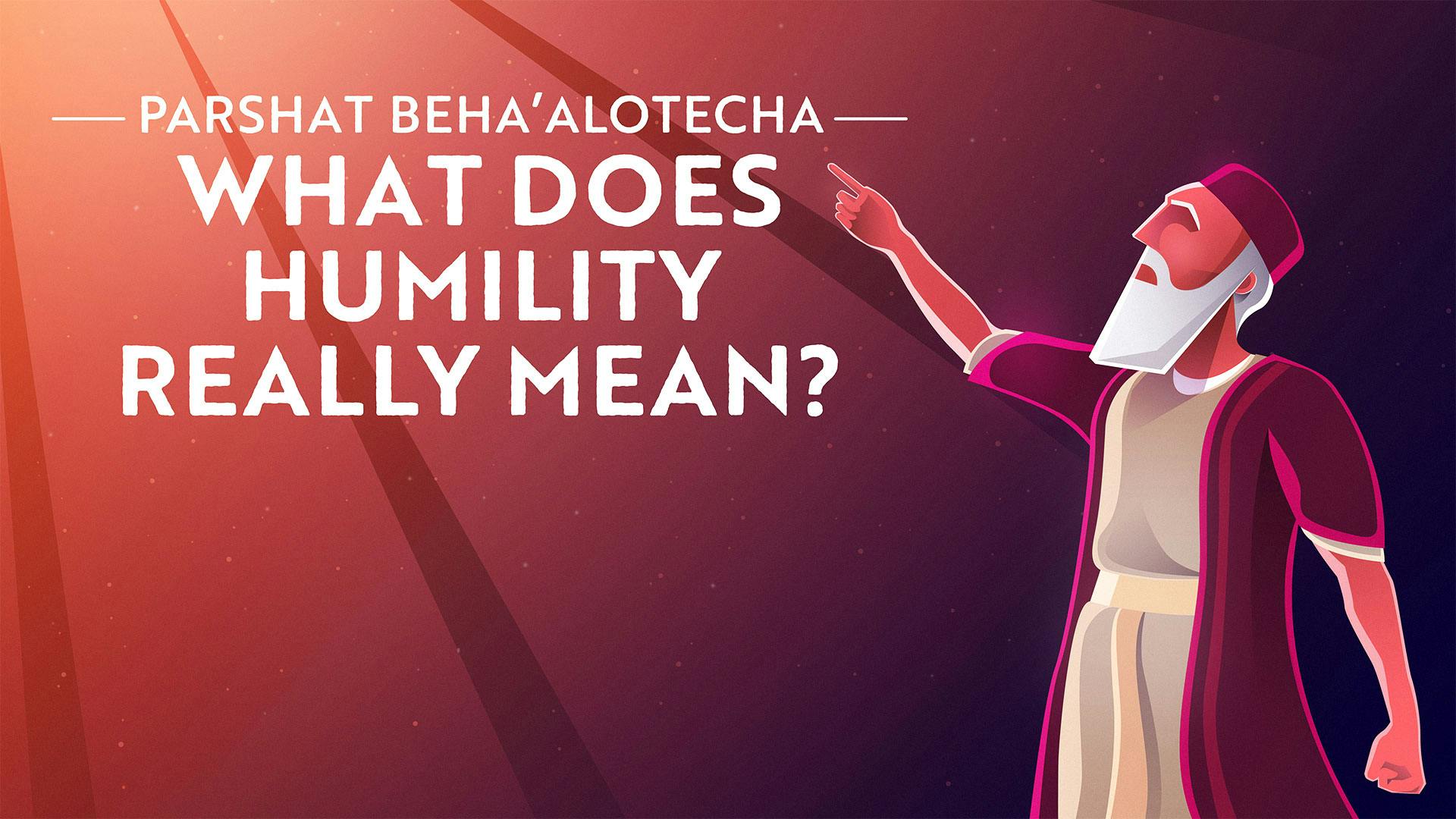
The Bible’s Definition Of Humility
The Torah describes Moses – he who stood up against God Himself – as the most humble man to walk to the earth. What? Join Rabbi Fohrman as he tries to understand Moses' humility and uncover his true greatness.
16 min

A Guide To Parenting
Rabbi Fohrman explores what might be the Torah's guide to parenting.
Part 1 of 3 • 10 min

Understanding The Great Sin Of The Israelites In The Wilderness
In this week's parsha, we reach the tipping point, where the nation of Israel begins their downfall, leading to 40 years wandering in the desert before being allowed into the land of Israel. What happened? How did everything fall apart? Rabbi Fohrman explores this question with the backdrop of the garden of Eden, explaining that this week isn't the first time God has given us food from Heaven, and we have rejected it.
14 min

Understanding Why The Israelites Complained About Manna
We've finally started traveling in the desert. . . and the people immediately complain? Did they suddenly forget that they had just been so close with God?? And how can we understand, and relate, to this seemingly ungrateful, chutzpadik nation?
13 min

Is It The Beginning Of The End?
Parshat Beha’alotecha completes the Mishkan story that started in the middle of Exodus. Finally, the children of Israel are ready to embark on their journey to the Holy Land. But their journey quickly takes a turn for the worse as the saga of the desert experience begins to fester with complaints, regrets, and slander. Is this the beginning of the end? What will become of the Israelites’ journey? Join Ami and Rivky as they study the shifting dynamics of the desert story.
33 min

Beha'alotecha: Accepting Our Children
A printable parsha guide for our Beha'alotecha video, "Accepting Our Children"

Beha'alotecha: Where It All Went Wrong
A printable parsha guide for our Beha'alotecha video, "Where It All Went Wrong."
Numbers // Shelach
Shelach Torah Portion: Numbers 13:1–15:41
In this Parshat Shelach, Moses commands the '12 spies' to visit the land of Canaan. When the spies return, ten of them tell the Jewish people that it is too difficult to conquer the land. Joshua and Caleb disagree and admonish the other spies for not having confidence or belief in God.
See the full summary and Parsha home page here.
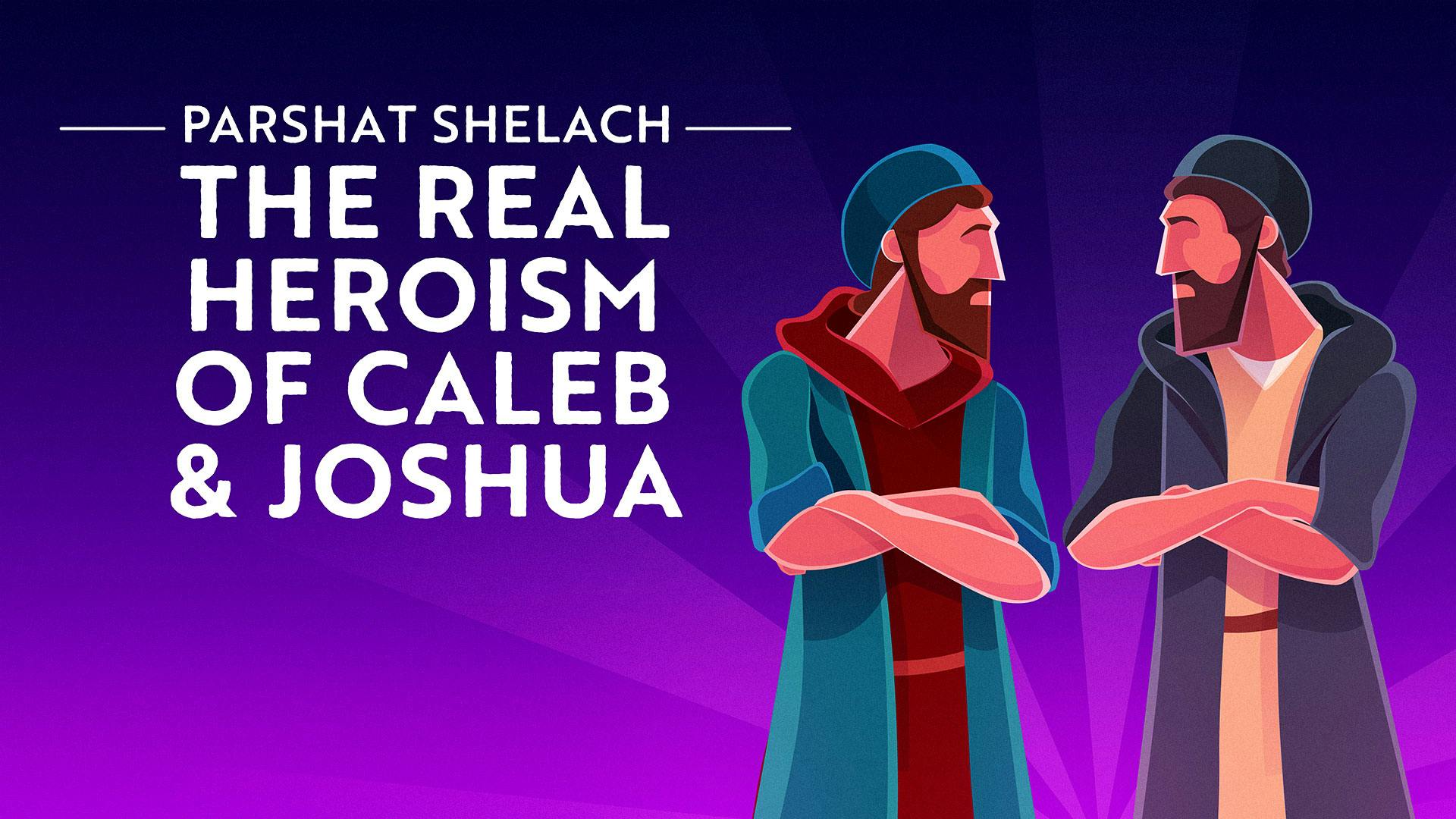
The Lesson Behind Joshua And Caleb's Good Report
Ten spies brought back an evil report about the land. Two – Caleb and Joshua – courageously spoke up. Their little speech was no doubt stirring, but… would you say that Caleb and Joshua were heroes? Because – reality check – they didn’t accomplish anything. Nobody listened to them! So it seems. But it turns out that Caleb and Joshua accomplished something monumental on that day. Find out what it was…
Part 1 of 2 • 14 min

What Does It Mean To Be A Rebel For God?
The following podcast is a discussion between Rabbi Fohrman & his son Avichai. They sat down to learn some Talmud together and stumbled upon a mysterious discussion about Bat Paro, the daughter of Pharaoh. You know, the one who was bathing by the Nile when she saw baby Moses floating by in a box? Well, the Torah text doesn’t seem to tell us very much about Bat Paro, but the Talmud seem to know a lot more: they explain that, Bat Paro got married to Caleb (one of the spies from the story in Numbers 13-14). What did the Rabbis see in the Torah text that led them to this conclusion? The answer opens up a fascinating study about who Bat Paro really was, who Caleb really was, and why they were perfectly suited for one another. The following podcast ends off hinting toward a future area of study surrounding the spies, which ultimately became a future hit Tisha B'Av course: Tisha B'Av & The Spies: An Origin Story. Click here to take a look!
26 min

The Danger Of Blurring Imagination And Reality
In this week's parsha video, we ask, are pessimists just rationalists, and is hope just naivete? Rabbi Fohrman points out an intriguing language parallel and argues that hope always exists, but we must direct it towards the future, not the past.
7 min

Why God Made The Israelites Wander The Desert For 40 Years
In this week's parsha, we see the ultimate undoing of the people of Israel - the sin of the spies. When spies are sent to the land of Israel to scout the land, they come back with a negative report, and the people despair, leading to God's wrath, and the death of the entire generation over the course of the next 40 years. What was so bad about the sin, and more importantly, how can we connect to such an angry, vengeful God?
18 min

What Was The Real Sin Of The Spies Of Canaan?
This week, we read about the tragic sin of the spies. It’s a very frustrating story. Every time we read it, just as the spies are about to give their report, we want to scream out, “NO - DON’T DO IT!” How could they have doubted God? How could they have sinned so egregiously?
14 min

Spies. Conspiracies. And The Two Men Caught In The Middle — Sound Familiar?
In Parshat Shelach, we read the story of the spies who ventured to the land of Israel and brought back a false report to the Israelites. But there’s something very strange about their report. Aside from being inaccurate, it’s strikingly similar to another story we’ve heard. A group of twelve men, ten of whom committed a terrible sin and two of whom were innocent — sound familiar? Join Rivky and Beth as they re-examine the text of the spy story — and never think about Parshat Shelach the same way again.
34 min

Shelach: Optimism vs. Pessimism
A printable parsha guide for our Shelach video, "Optimism vs. Pessimism."

Shelach: How Can We Relate To Such a Vengeful God?
A printable parsha guide for our Shelach video, "How Can We Relate To Such a Vengeful God?"
Numbers // Korach
Korach Torah Portion: Numbers 16:1–18:32
In this parsha, Korach rebels and questions Moses's authority to lead the Jewish people. The ground swallows Korach and his followers, making it clear that Moses is in charge.
See the full summary and Parsha home page here.
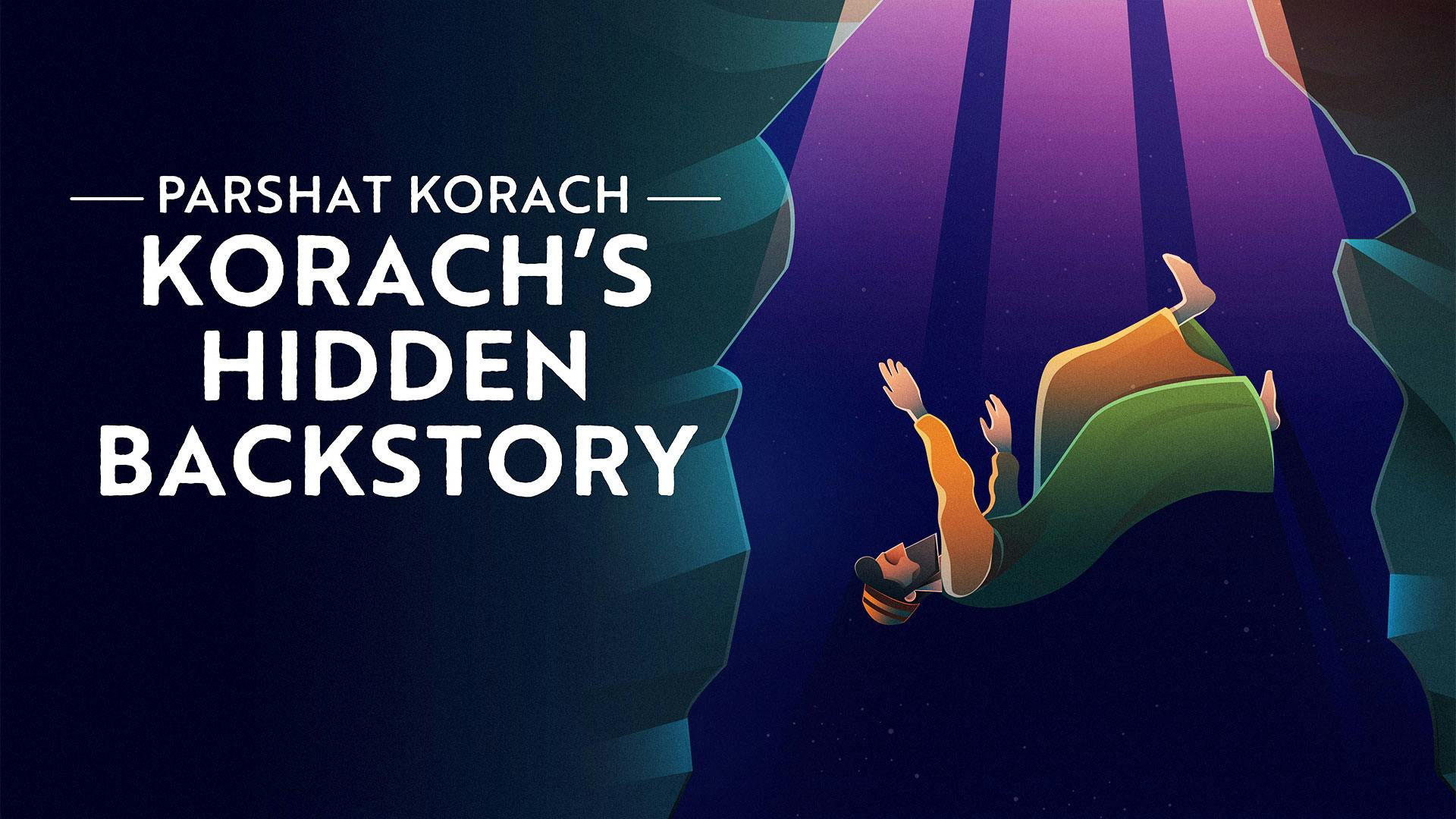
What The Bible Tells Us About Korach's True Motive
Why did Korach and his followers get swallowed up by the earth? Did this bizarre punishment somehow fit their crime? The answer may surprise you.
13 min

The Real Effect Our Prayers Can Have On God's Mind
This video explores two Midrashim that discuss humans attempting to counter the angel of death. Yes, you heard right – the Rabbis discussed whether or not we can outsmart death. Beneath the surface of these two stories are deep lessons about how we can change God’s mind through prayer. Can we listen to the sometimes implicit messages that God is sending us? Can we respond appropriately? These are just some of the elements that go into effective prayer.
11 min

What Really Led To Korach's Rebellion?
Korach’s rebellion is part of a series of mistakes by the Israelite people in this section of Numbers, Bamidbar. This week, Rabbi Fohrman asks us, in addition to our struggle over the actions of Korach, why does this story happen here? What does the context, and language clues, teach us about the larger meaning of the story of Korach’s rebellion.
14 min

Understanding The Story Of Korach
We’ve seen Israel complain over and over, but never before have they tried to undermine and dispose of their leaders. Join us as we make sense of Korach’s shocking complaints, this week on the Parsha Experiment.
14 min

Where Did The Rebellion Start?
In Parshat Korach, there’s a sudden rebellion against Moses and Aaron. Korach, the leader of the rebellion, argues that all Israelites are holy, not just Moses and Aaron. But where did his distrust of Israel’s leaders come from? Join Rabbi Fohrman and Ami Silver as they re-examine Korach’s family origin, which is recorded in the text, and see how his upbringing may have played a significant role in the rebellion.
32 min

Korach: Can We Change God’s Mind With Our Prayers?
A printable parsha guide for our Korach video, "Can We Change God’s Mind With Our Prayers?"

Korach: Why Did Korach Rebel
A printable parsha guide for our Korach video, "Why Did Korach Rebel."
Numbers // Chukat
Chukat Torah Portion: Numbers 19:1–22:1
Miriam and Aaron die. The Jews complain that they are thirsty. Moses, instead of speaking to the rock, hits it and angers God.
See the full summary and Parsha home page here.
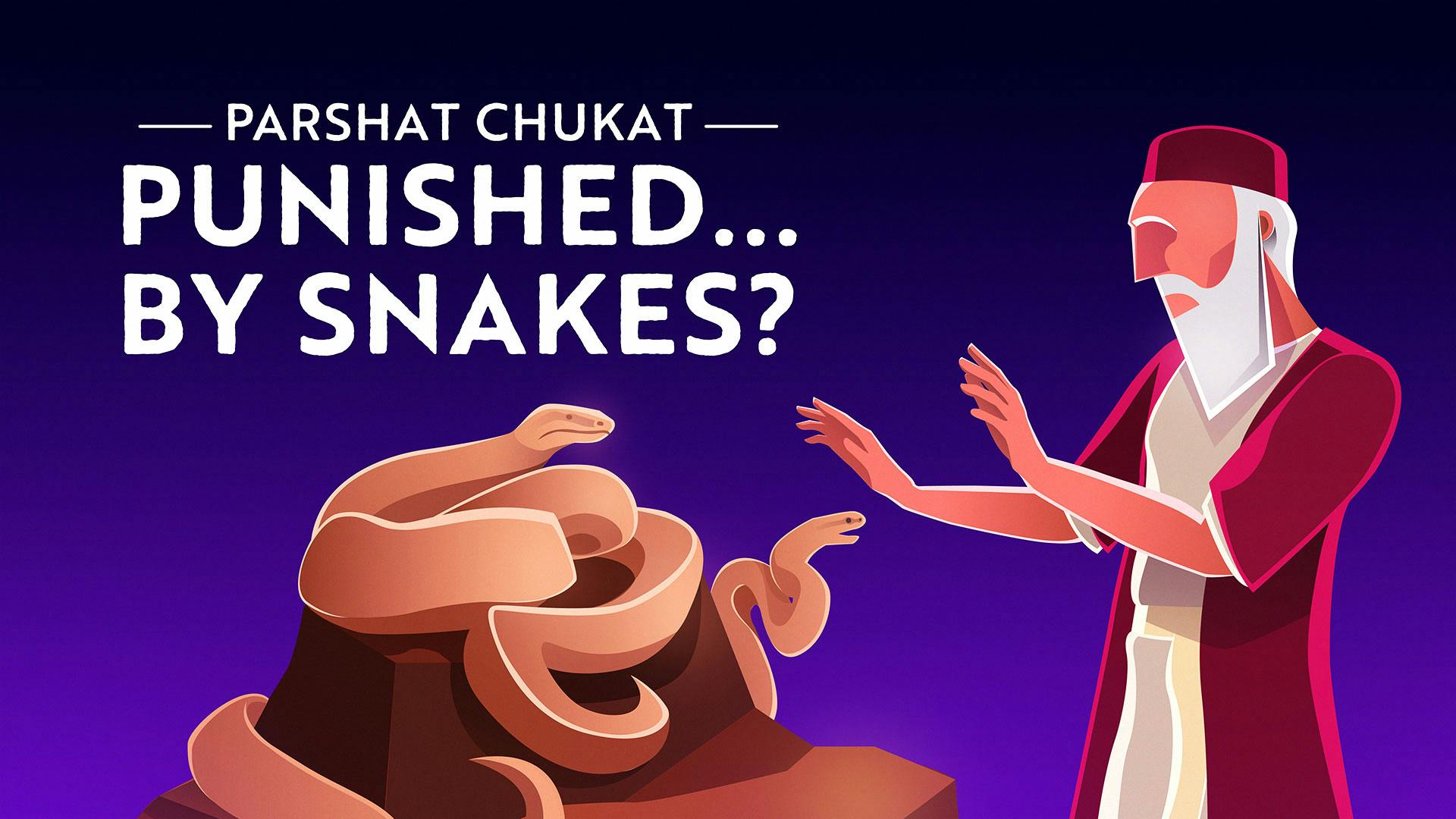
The Lesson Behind Moses And The Fiery Serpents
Crime: Complaining about food. Punishment: Attacked by snakes. Sound extreme? Sound random? It's not. Find out how here.
15 min

The Reason Moses Had To Speak To The Rock
In this week's parsha, we are introduced to the strange episode of Moses hitting the rock. Because of this small infraction, we are told, Moses will not be entering the land with the people of Israel. Why? What was the small act of Moses talking to the rock meant to teach the people of Israel?
14 min

The Deeper Story Behind Moses Striking The Rock
In this week’s Torah portion is the famous story of Moses hitting the rock to get water and God subsequently barring him from leading the nation to the land of Israel. Why would Moses do that? What was his thinking? This week, we will explore this question in the context of water, Miriam, and the question of what it means to have faith.
16 min

How The Israelites' Relationship With God Was Restored
In Parshat Chukat, we get even more complaining from Israel – this time, about the lack of water. How can they continue to complain after everything God had done for them? Join us as we explore the baffling story of Israel’s complaints – and how the next generation finally begin to restore their relationship with God.
13 min

Why Do We Need A Red Heifer?
In Parshat Chukat, we read the laws surrounding the Red Heifer — the rare cow whose ash is used to purify those who stood too close to a corpse. But what is the reason for this unique ritual? Why do we need the ash of a red cow to be purified? Join Rabbi Fohrman and Daniel Loewenstein as they re-examine the text of the Red Heifer and discover a striking reference to the Garden of Eden.
26 min

Why Couldn't Moses Enter The Land?
Moses was barred from entering the land because he struck the rock, right? Turns out it's not so simple. Understand why our greatest leader was deprived of the opportunity to step foot in the Promised Land.
Part 1 of 7 • 55 min

Miriam And The Waters Of Strife
All over the Torah, we see a running theme – where water goes, Miriam soon follows. But what is the odd relationship between the life force of water, and Miriam the prophetess?
Part 1 of 4 • 25 min

Chukat: Was Hitting the Rock So Horrible?
A printable parsha guide for our Chukat video, "Was Hitting the Rock So Horrible?"

Chukat: Why Did Moses Hit The Rock?
A printable parsha guide for our Chukat video, "Why Did Moses Hit The Rock?"
Numbers // Balak
Balak Torah Portion: Numbers 22:2–25:9
In this parsha, Balak pays Balaam to curse the Jewish people. Balaam hits his donkey when the donkey stops moving forward. The donkey tells Balaam not to curse the Jews, so Balaam blesses them instead.
See the full summary and Parsha home page here.
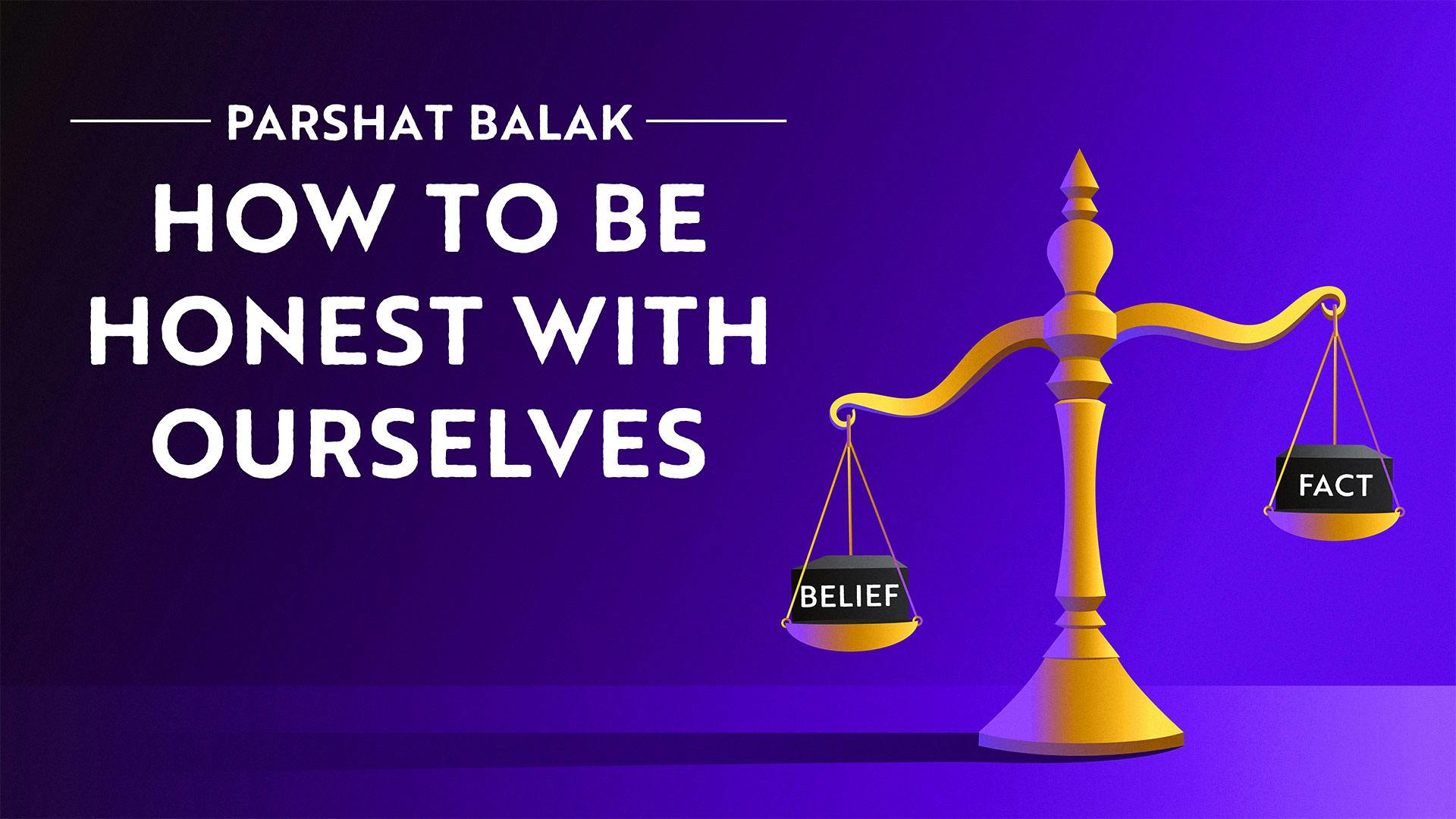
A Lesson Of Fact And Fiction From King Balak Of Moab
Are we rational? Do we use evidence and data to make decisions? See how Parshat Balak addresses that question, head-on.
15 min
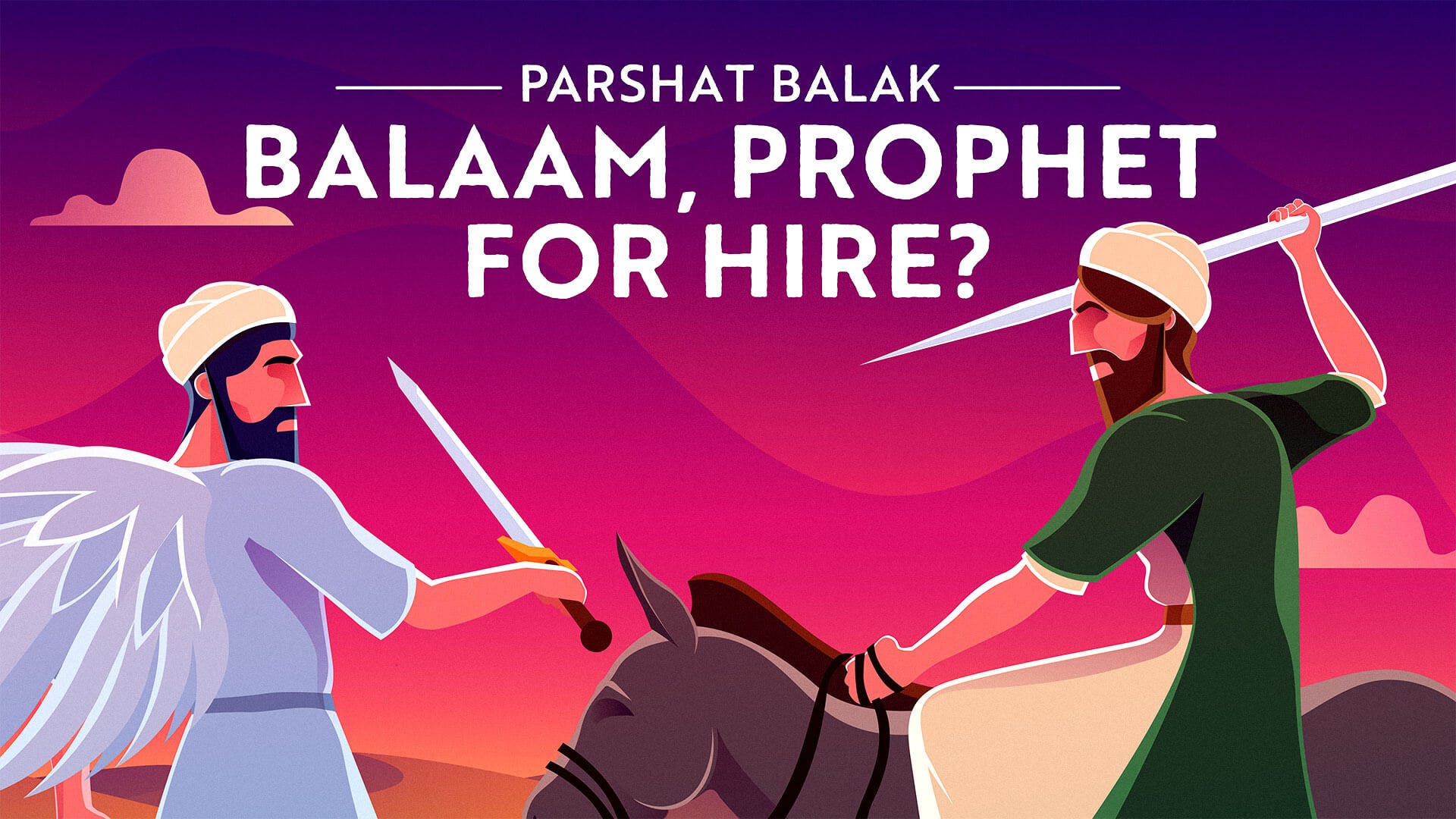
Understanding Balaam's Greatest Error
Rabbi Fohrman explores a mysterious Mishnah, in which Abraham and his students are compared to Balaam, the prophet in Parashat Balak, and his students. Why do the Sages make this odd comparison, and what is the message they want us to uncover?
13 min

What Balaam's Blessings Teach Us About Judaism's Purpose
This week, we ask an incredibly broad question: what is the purpose of the nation of Israel in this world? To answer this, Rabbi Fohrman points out a fascinating connection between the three blessings Balaam (accidentally) gives the nation of Israel and the three blessings God gives to Abraham in Genesis. These links, Rabbi Fohrman argues, provide incredible insight into our purpose and our destiny, as a nation, and how we can bring God's blessings into the world.
12 min

Why Weren't The Plagues Enough?
As the Israelites wandered to the Promised Land, they encountered many unwelcoming nations – Edomites, Canaanites, Amorites, Moabites. But after seeing what God did to the Egyptians, why didn't they embrace the Israelites and avoid God's wrath? Rabbi Fohrman and Beth Lesch re-examine the text of Numbers to understand how these nations perceived God and the Israelites.
34 min

Balak: Balaam, Prophet For Hire?
A printable parsha guide for our Balak video, "Balaam, Prophet For Hire?"

Balak: What Is Israel's Purpose In The World?
A printable parsha guide for our Balak video, "What Is Israel's Purpose In The World?"
Numbers // Pinchas
Pinchas Torah Portion: Numbers 25:10–30:1
The five daughters of Zelophehad plead to Moses to inherit their father's portion. Joshua is named the next leader after Moses.
See the full summary and Parsha home page here.
.jpg?ixlib=gatsbyFP&auto=compress%2Cformat&fit=max&rect=0%2C0%2C1920%2C1080&w=1920&h=1080)
How to Improve Our Prayer: Lessons From the Five Daughters of Zelophehad
Do you know the best way to ask for something from God? The daughters of Zelophehad do. Click here to learn the secret of their success.
15 min

A Lesson From The Great Zealots In The Bible
The midrash tells us that Pinchas, the title character of this parsha, and Eliyahu, the prophet of Kings, are one and the same. In this week's parsha video, Rabbi Fohrman compares these two characters and asks, what does it mean to be zealous for God?
14 min
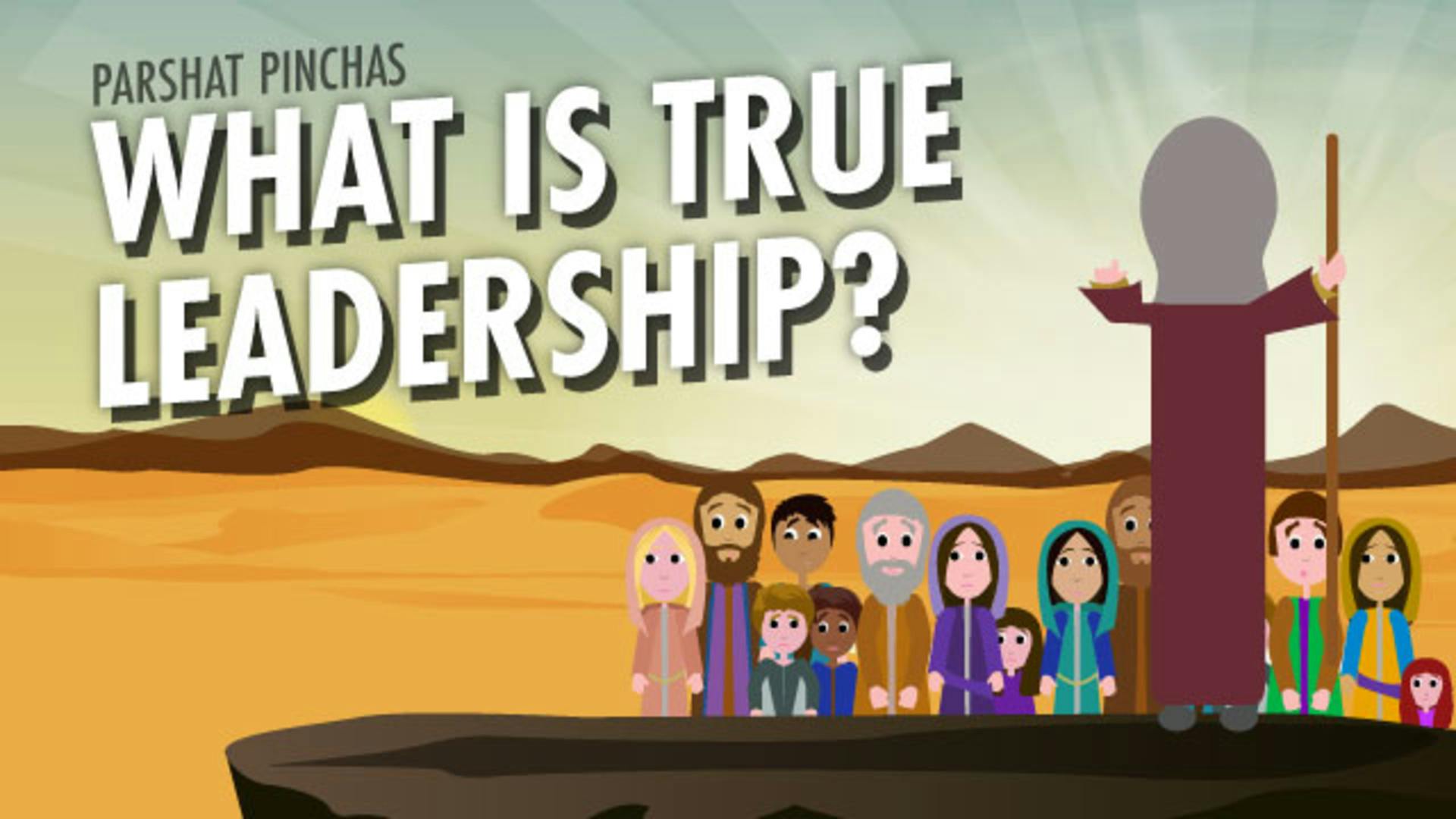
The Legacy Of Leadership That Moses Passes To Joshua
Parshat Pinchas describes some very random stories – like another census of the nation, and the daughters of Zelophehad appealing to Moses for a portion of land. Then, suddenly, the stories culminate with God telling Moses about his pending death. Why does the Torah group all of these stories together, and does it have to do with God also telling Moses to appoint Joshua as the next leader of the nation of Israel?
13 min
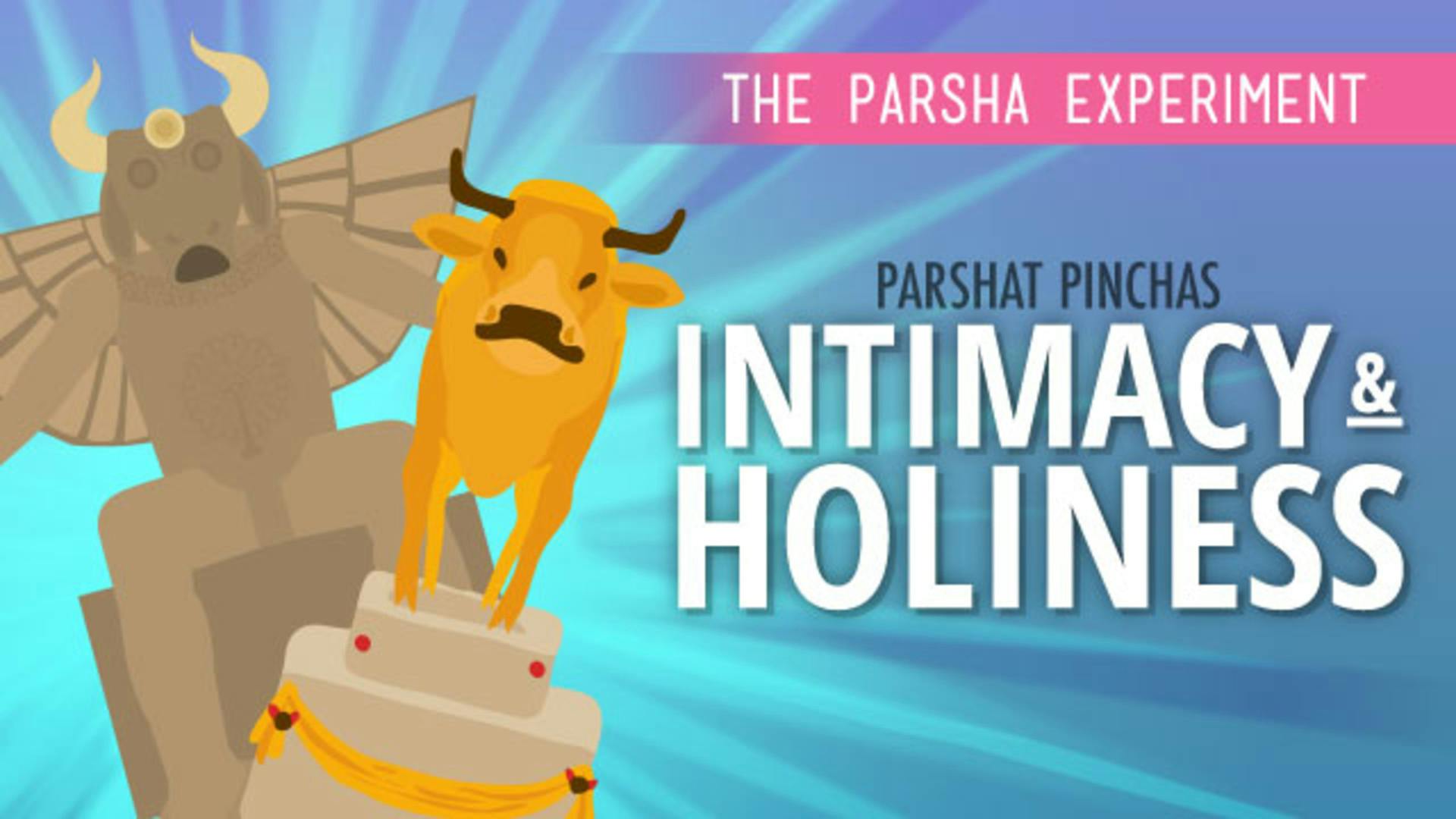
What The Sin Of Ba'al Pe'or Teaches Us About Relationships
We’ve seen the people sin over and over, but it looks like last week, the people finally began to trust in God. But now, suddenly, idolatry? What happened? How did the people fail so quickly? Join us as we explore the perplexing story of Ba’al Peor.
11 min

How Is Land Ownership Connected To The Pesach Sheni Offering?
In Parshat Pinchas, we read about the daughters of Tzelaphchad, who sought to inherit their father’s land. God granted their request, and even codified it into law. But there’s something unique about this story — it’s strikingly similar to the story of the Pesach Sheini offering. When a group of ritually impure people approached Moses and requested a way to make an offering, God codified a practice called Pesach Sheni, which acted as a “make-up” offering for the impure. But what does inheriting land and ritually impurity have to do with each other? Join Rabbi Fohrman and Daniel Loewenstein as they explore the meaning of nationhood and purity.
32 min

Is It Kosher To Argue With God?
In Emor, we read about the Mekalel (the "Blasphemer"), the man who is punished for cursing God. Cursing God doesn't sound like a very religious thing to do, but it raises the question: Is it ever OK to speak against God? What about arguing with God? Find out in this audio series.
Part 1 of 10 • 36 min

Elijah: What Is A Defender Of God?
Pinchas is famously described as acting zealously for God – and so is Elijah the prophet. The Sages see these two figures as connected, one statement even claiming they're the same person. Watch to learn more about the Bible's other zealot.
Part 1 of 11 • 49 min

Pinchas: What Does It Mean To Be Zealous For God?
A printable parsha guide for our Bereishit video, "What Does It Mean To Be Zealous For God?"

Pinchas: What Is True Leadership?
A printable parsha guide for our Pinchas video, "What Is True Leadership?"
Numbers // Matot
Matot Torah Portion: Numbers 30:2–32:42
The Jewish people battle against the Midianites. Several tribes of Israel request to dwell outside of the Land of Israel.
See the full summary and Parsha home page here.
.jpg?ixlib=gatsbyFP&auto=compress%2Cformat&fit=max&rect=0%2C0%2C1920%2C1080&w=1920&h=1080)
The Mystery Of The Half Tribe Of Manasseh
Remember when Moses let Reuven, Gad and Menashe settle outside of Israel... What? Menashe didn't ask to live there!? Why did Moses put them there?
13 min

The Deeper Significance Of Gilead In The Bible
The Torah is a book of great drama, why does the narrative ends with a seemingly-unnecessary story about a random conquest of some towns? In this week and next week, Rabbi Fohrman paints a picture of epic connections to the stories of Jacob, Joseph and Judah.
Part 1 of 2 • 13 min

How The Reubenites And Gadites Negotiated Their Settlement
In this Matot-Masei parsha video, Rabbi Fohrman discusses the interesting conversation between the children of Gad, the children of Reuben and Moses, as they are requesting to live on the other side of the Jordan – not in the land of Israel proper. Rabbi Fohrman analyzes their exchange to get to the core of true communication – trust and respect.
13 min

Matot: Why Is The End Of Bamidbar So Anticlimatic?
A printable parsha guide for our Matot video, "Why Is The End Of Bamidbar So Anticlimatic?"

Matot: The Art Of Effective Negotiation
A printable parsha guide for our Matot video, "The Art Of Effective Negotiation."
Numbers // Masei
Masei Torah Portion: Numbers 33:1–36:13
In Parshat Masei, all of the journeys and stops of the Israelites in the desert are recapped, the boundaries of their future lands are given, and the cities of refuge (arei miklat) are designated.
See the full summary and Parsha home page here.
.jpg?ixlib=gatsbyFP&auto=compress%2Cformat&fit=max&rect=0%2C0%2C1920%2C1080&w=1920&h=1080)
The Mystery Of The Half Tribe Of Manasseh
Remember when Moses let Reuven, Gad and Menashe settle outside of Israel... What? Menashe didn't ask to live there!? Why did Moses put them there?
13 min

The Deeper Significance Of Gilead In The Bible
The Torah is a book of great drama, why does the narrative ends with a seemingly-unnecessary story about a random conquest of some towns? In this week and next week, Rabbi Fohrman paints a picture of epic connections to the stories of Jacob, Joseph and Judah.
Part 1 of 2 • 13 min

How The Reubenites And Gadites Negotiated Their Settlement
In this Matot-Masei parsha video, Rabbi Fohrman discusses the interesting conversation between the children of Gad, the children of Reuben and Moses, as they are requesting to live on the other side of the Jordan – not in the land of Israel proper. Rabbi Fohrman analyzes their exchange to get to the core of true communication – trust and respect.
13 min

Masei: Why Is The End Of Bamidbar So Anticlimatic?
A printable parsha guide for our Masei video, "Why Is The End Of Bamidbar So Anticlimatic?"

Masei: The Art Of Effective Negotiation
A printable parsha guide for our Masei video, "The Art Of Effective Negotiation"
Deuteronomy // Devarim
Devarim Torah Portion: Deuteronomy 1:1–3:22
The final book of the five books of Moses, begins with Moses speaking to the Jewish people. He encourages them to continue to Canaan without him.
See the full summary and Parsha home page here.
.jpg?ixlib=gatsbyFP&auto=compress%2Cformat&fit=max&rect=0%2C0%2C1920%2C1080&w=1920&h=1080)
The True Sin Of Israel Rejecting The Promised Land
Parshat Devarim recounts the sin of the spies. If you’ve ever wondered what was so bad about what the spies did, and why they merited such a harsh punishment, this is for you.
15 min
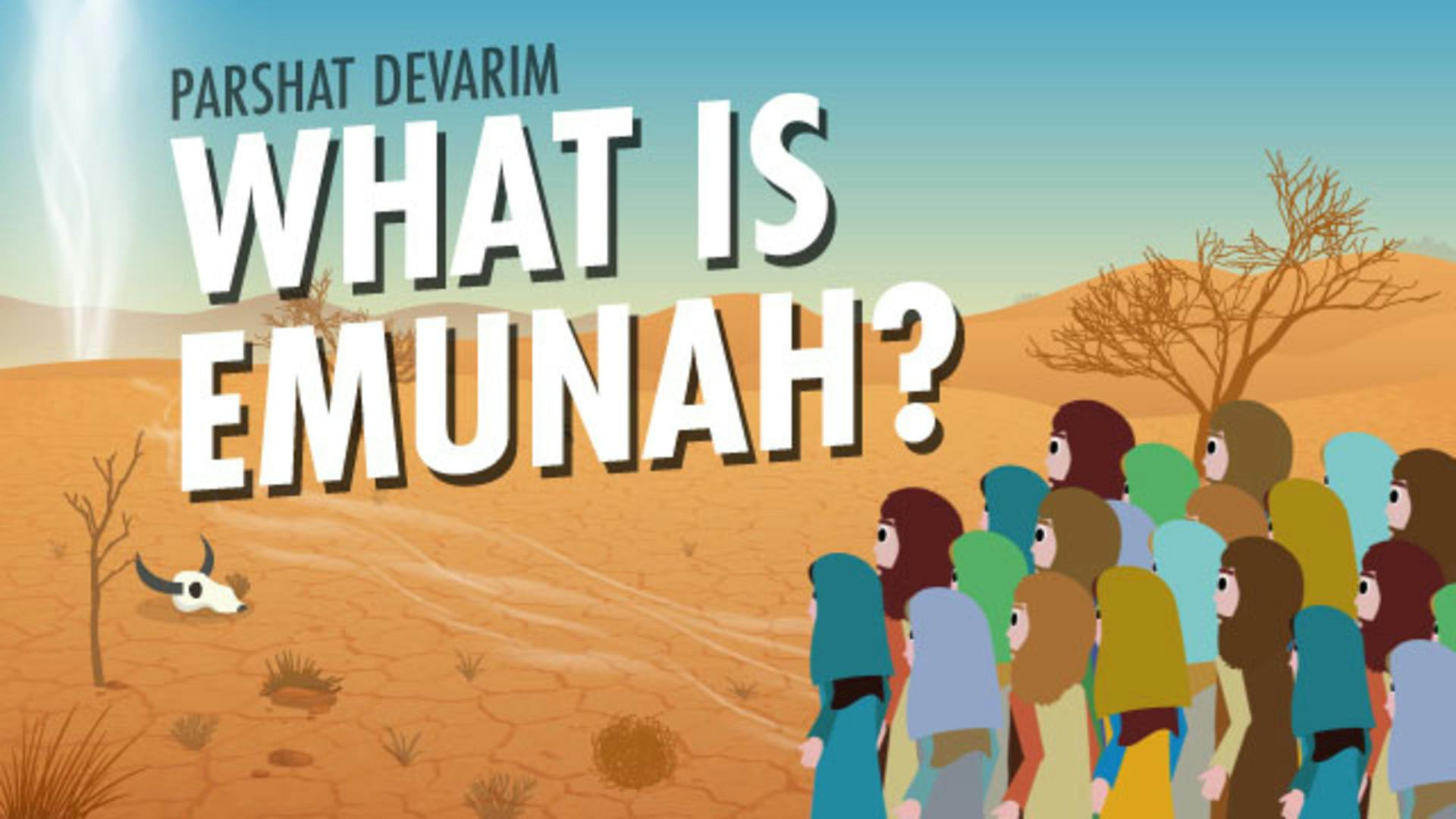
Struggling With Faith
In Parshat Devarim, Moses accuses the nation of Israel of not having faith. What? The people know firsthand about all the miracles God has done for them, how could they not have faith? Drawing on the Maharal, Rabbi Fohrman gives us a novel approach to faith, and challenges us to rise to this level of intimacy with God and with each other.
10 min

The Hidden Reason Moses Was Not Allowed Into The Promised Land
This week is the second part of a series asking, really, why wasn't Moses really able to enter the land of Israel? Through a side-by-side comparison of two surprising stories – the sin of the spies, and Jethro's judges – we are shown an unexpected angle and come to a stronger understand of what Moses truly did wrong that didn't allow him to enter the land of Israel.
Part 1 of 2 • 12 min
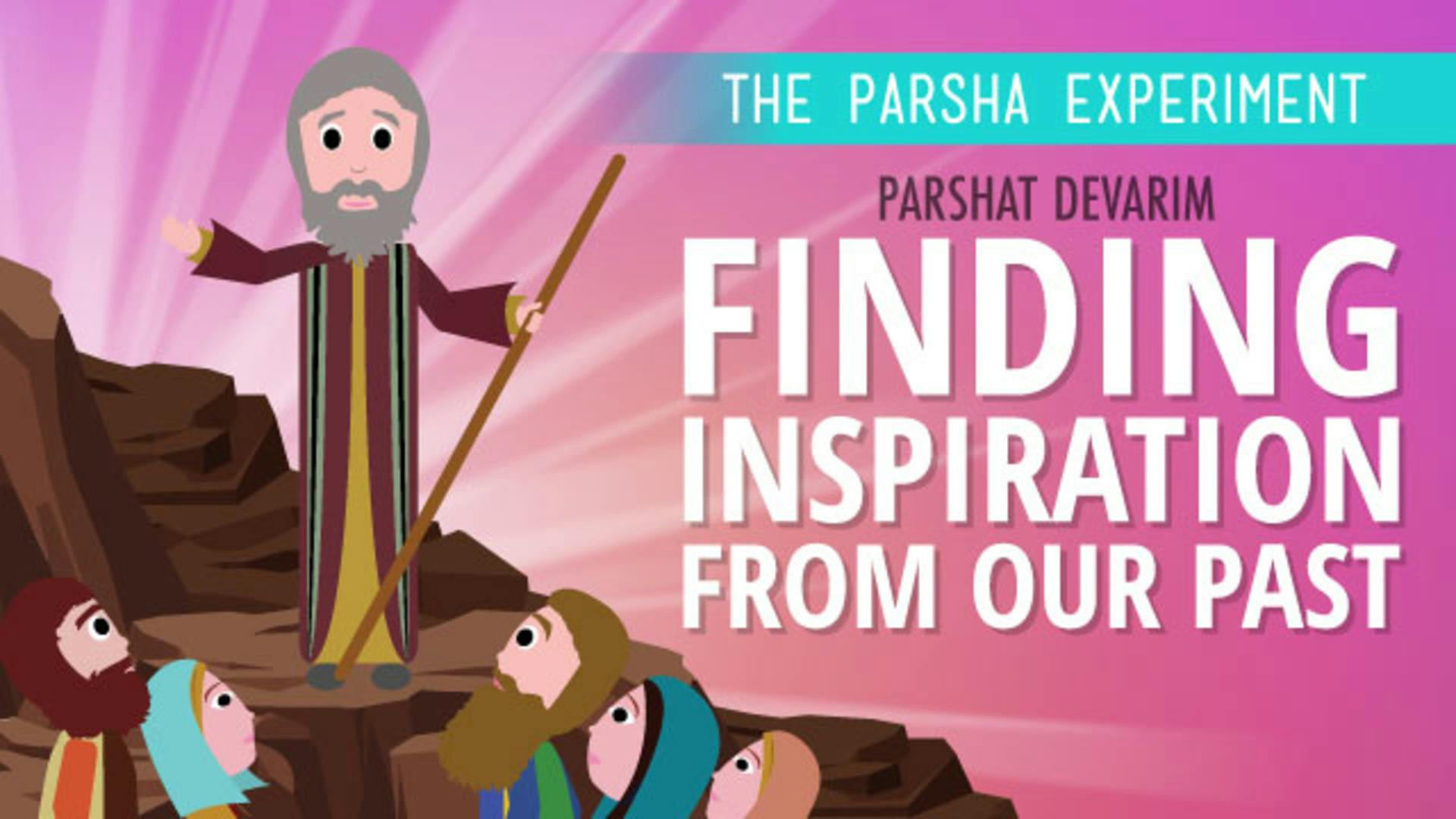
Deciphering Moses' Final Address To Israel
In Devarim, Moses gives a grand speech that at first glance seems like a boring history lesson with the least inspiring stories! But underneath Moses' words is an unbelievable message that the nation of Israel needed to hear right before entering the land – and still applicable and inspiring to us, today. Join us as we try to tackle the mystery of Moses' final words.
15 min
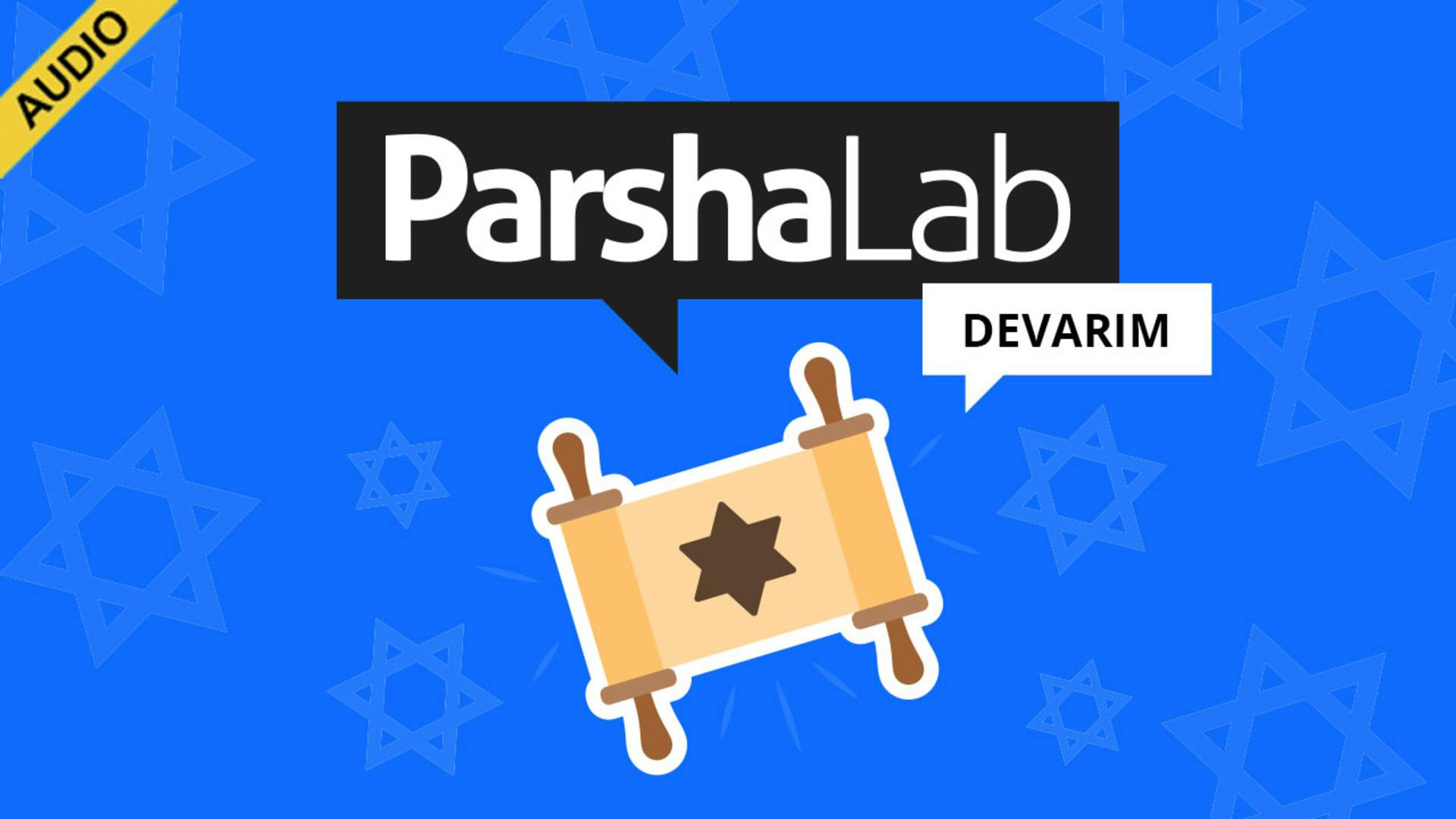
What Did The Spies Do Wrong?
We know God wasn't pleased with the spies. Due to their actions, an entire generation would die in the desert, never entering the Promised Land. But what exactly did the spies do wrong? They reported that the land of Israel 'flows with milk and honey' and was inhabited by strong peoples – weren't they just telling the truth? Why was God blaming the spies for reporting their experience? Join Beth Lesch and Ami Silver as they explore Moses' retelling and of the spies and discover their real failure and their children's opportunity to redeem their sin.
32 min

Why Couldn't Moses Enter The Land?
Moses was barred from entering the land because he struck the rock, right? Turns out it's not so simple. Understand why our greatest leader was deprived of the opportunity to step foot in the Promised Land.
Part 1 of 7 • 55 min

Devarim: What Does It Mean To Have Faith?
A printable parsha guide for our Devarim video, "What Does It Mean To Have Faith?"

Devarim: What Did Moses Do Wrong? Part 1
A printable parsha guide for our Devarim video, "What Did Moses Do Wrong? Part 1."
Deuteronomy // Va'etchanan
Va'etchanan Torah Portion: Deuteronomy 3:23–7:11
In this parsha, Moses reviews the Ten Commandments with several key differences. Read closely and you'll discover them!
See the full summary and Parsha home page here.

How Israel Is Meant To Relate To The Canaanite Nations
What do Canaanite treaties have to do with Jacob – and us? Turns out, plenty.
14 min

What Is The Ten Commandments' Underlying Theme?
How do the Ten Commandments apply to our lives today? After all, most of them are not difficult to observe – “don’t steal… don’t kill” – these are not laws you need to think about daily. So what are we supposed to actually learn from the Ten Commandments? Rabbi Fohrman peels back the layers to uncover what lies at the heart of the Ten Commandments, a hidden theme that guides us to stronger relationships.
10 min

The Hidden Reason Moses Was Not Allowed Into The Promised Land
This week is the second part of a series asking, really, why wasn't Moses really able to enter the land of Israel? Through a side-by-side comparison of two surprising stories – the sin of the spies, and Jethro's judges – we are shown an unexpected angle and come to a stronger understand of what Moses truly did wrong that didn't allow him to enter the land of Israel.
Part 1 of 2 • 12 min
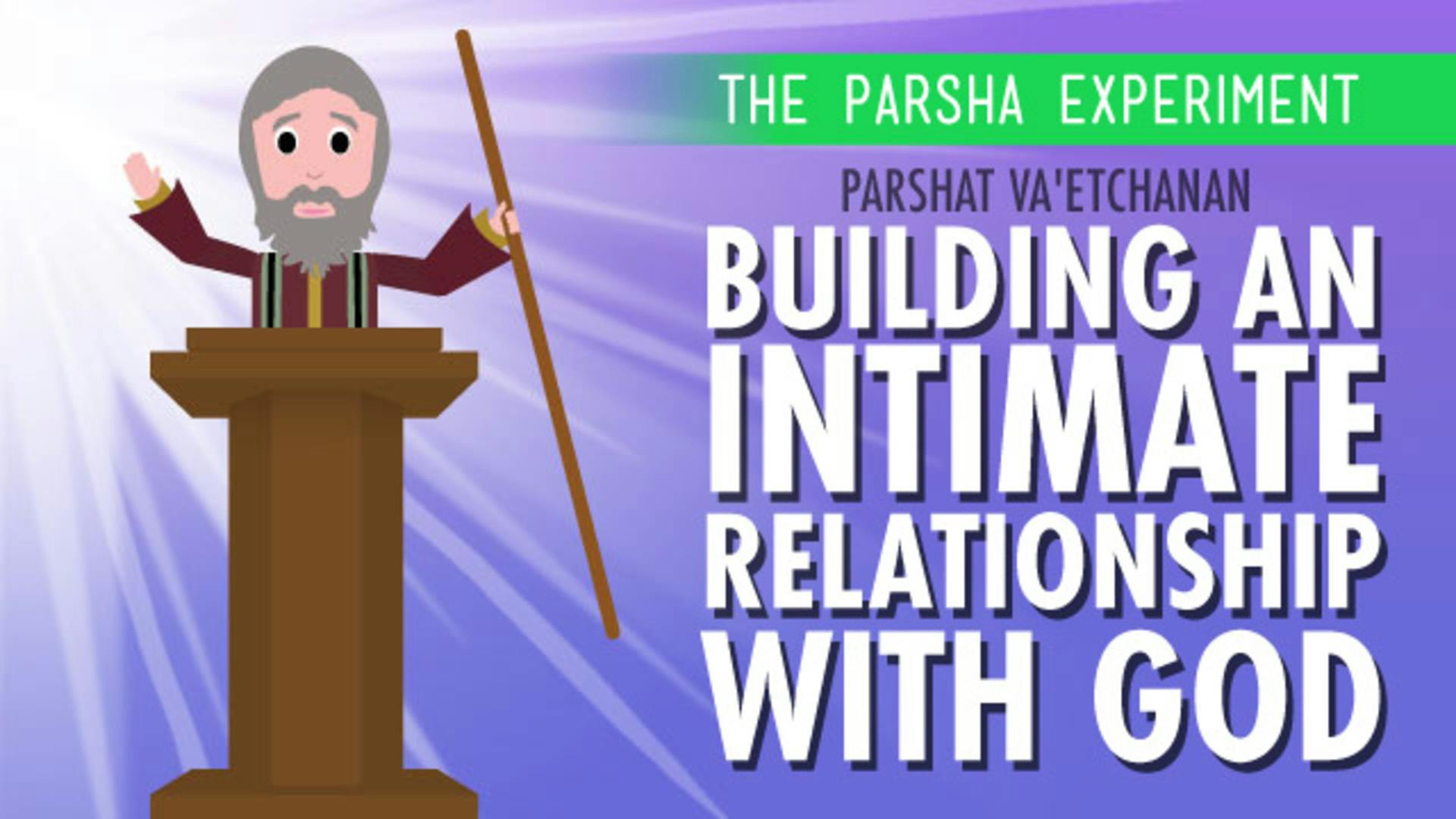
Building an Intimate Relationship With God
In Parshat Va'etchanan, Moses speaks, a lot – but it all seems so boring, and disconnected. The Torah is a book – and every sentence of that book fits together, like pieces in a puzzle. But how does that work, in this parsha? What is this parsha actually about?
16 min

How Do We Manage The Influences Around Us?
In Parshat Va’etchanan, the Israelites are forbidden from intermarrying with the Canaanite nations when they enter the land of Israel. While the rationale for this commandment may seem straightforward, its language echoes another story of a foreign nation, namely the story of the brutal mistreatment of Dina in Genesis. What do the Canaanites and Shechem have in common? Join Daniel Loewenstein and Beth Lesch as they re-examine these two narratives and explore the Torah’s understanding of how to both work with and manage the values of the foreign nations around us today.
32 min

Va'etchanan: Seeing Layers In The Ten Commandments
A printable parsha guide for our Va'etchanan video, "Seeing Layers In The Ten Commandments"

Va'etchanan: What Did Moses Do Wrong? Part 2
A printable parsha guide for our Bereishit video, "What Did Moses Do Wrong? Part 2."
Deuteronomy // Eikev
Eikev Torah Portion: Deuteronomy 7:12–11:25
In this parsha, Moses tells the Jewish people to listen to God's commands and they will be victorious in their battles.
See the full summary and Parsha home page here.
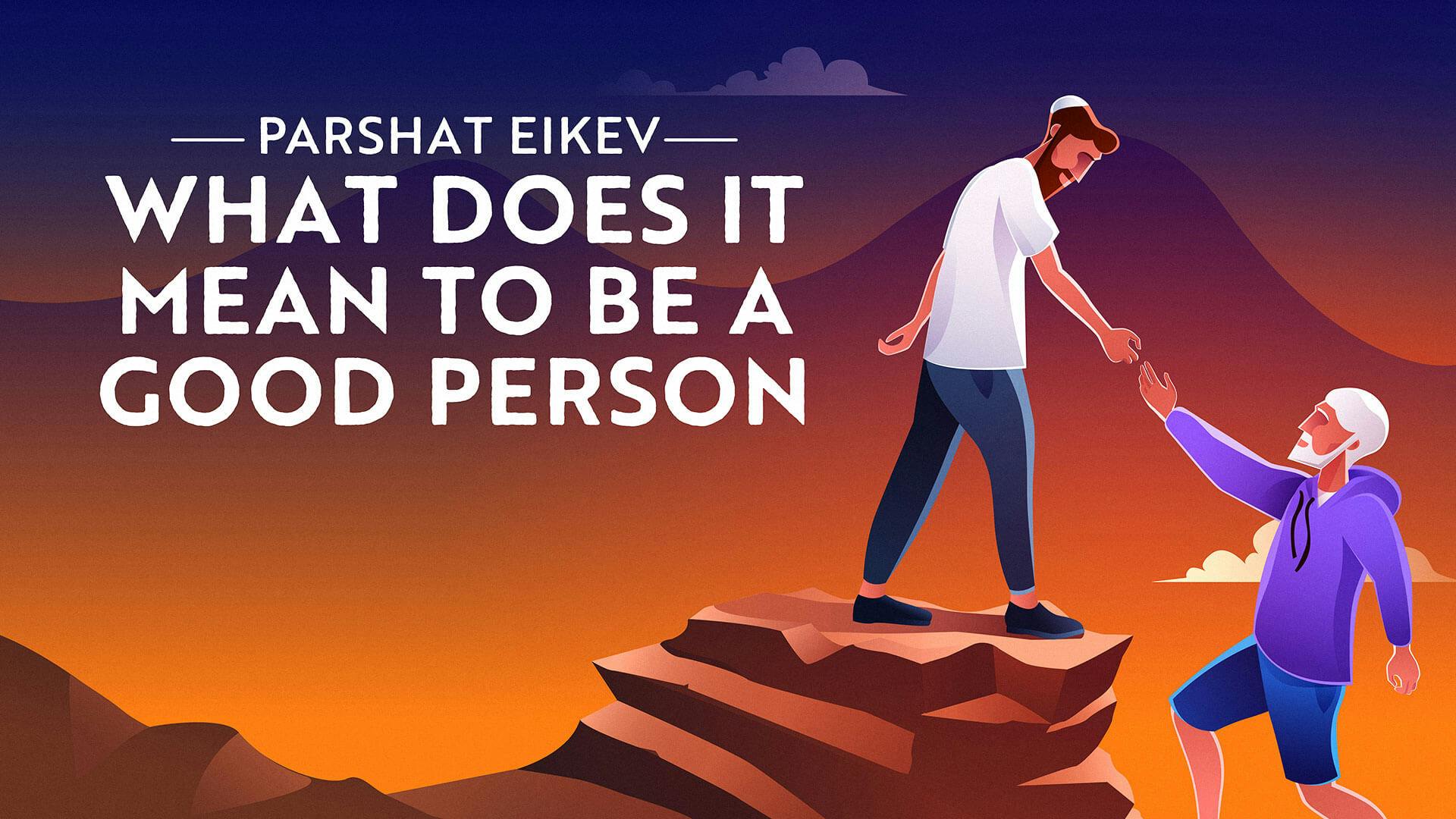
How To Be A Good Person According To The Bible
In Parshat Eikev, Moshe tells the nation exactly what God wants of us, but the prophet Micah makes a similar speech many generations later and exhorts the people very differently. Why? Rabbi Fohrman takes us into Micah's speech and explains the critical building blocks to being a good person.
Part 1 of 2 • 8 min
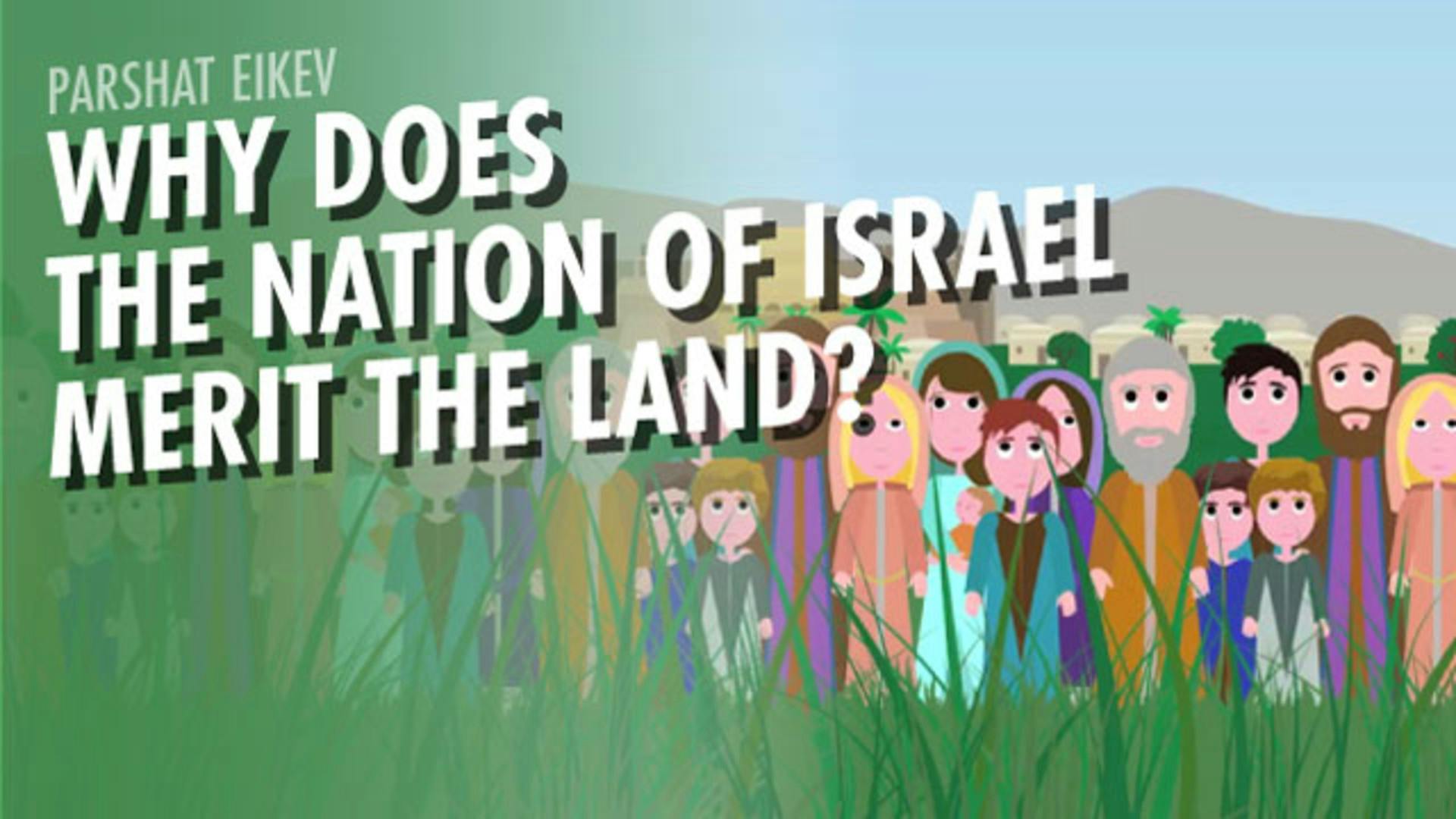
Why God Chose The Israelites For The Promised Land
Rabbi David Block asks an interesting question: why do the Israelites get to go into the land of Israel? Was it because of merit? Or because it was promised to our ancestors? Or, as the parsha suggests, because of the evil of the other nations? In this video, we analyze these reasons and suggest that they all work together to fulfill our covenant with God – to be a model nation for the world.
14 min
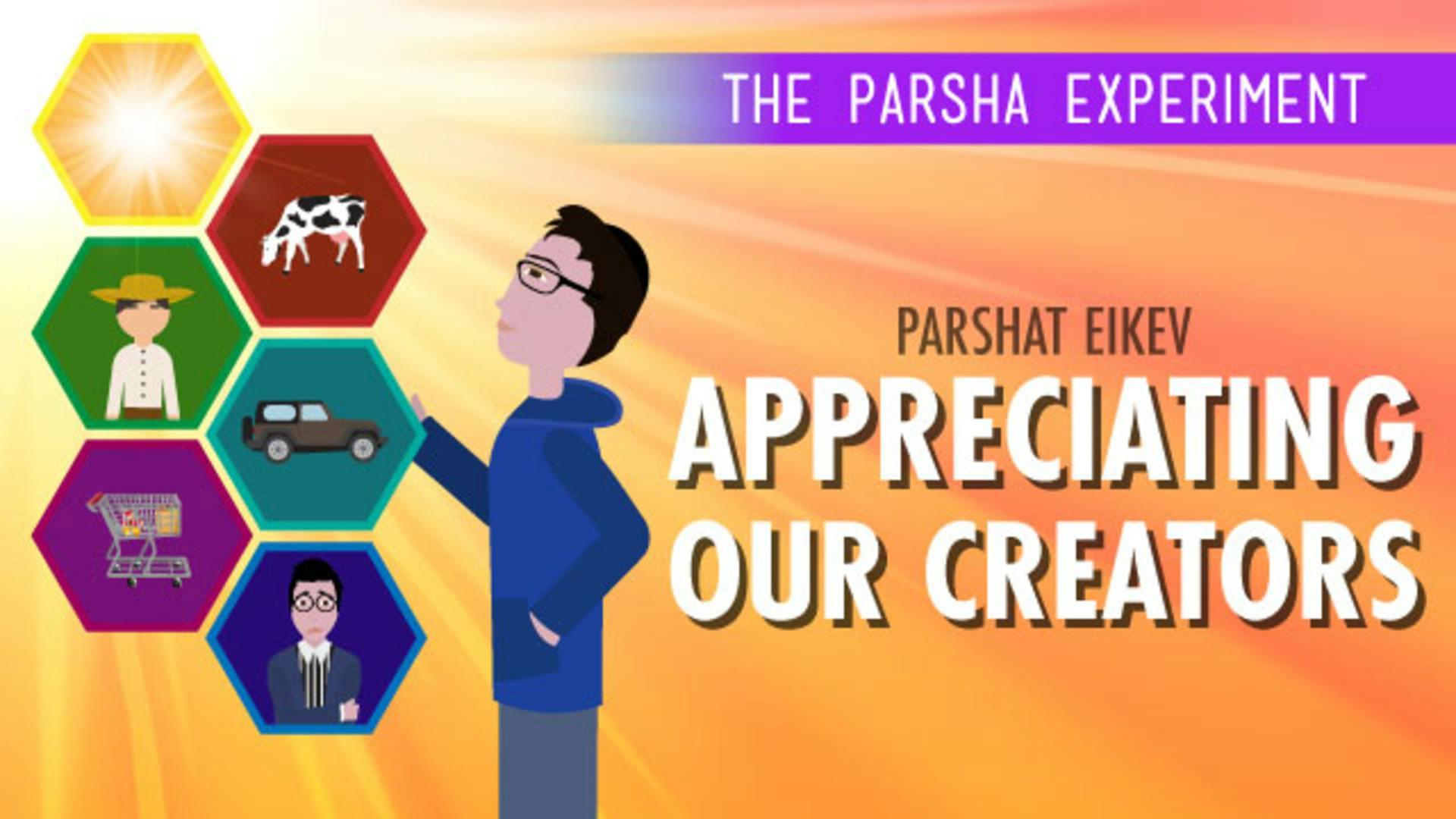
Why God Wants Us To Thank Him
God afflicted the nation of Israel through the past 40 years of the desert, withholding food and water from them...on purpose? How can we have a relationship with a God like that? Why should we be thankful to God for everything He has done?
16 min

Is This Another Akeidah?
In Parshat Eikev, Moshe is gearing up the people to enter the land of Israel. He’s laying out conditions of what God will expect, and what they can expect in return. But strangely, peppered throughout Moshe's talk are echoes and references to Akeidat Yitzchak. What is Moshe communicating by comparing entering Israel to the story of Abraham and the sacrifice of Isaac? Join Ami Silver and Daniel Loewenstein as they re-examine Akeidat Yitzchak and learn the significance of Abraham's ultimate test, and its continued relevance to the Israelites.
31 min

Eikev: What Does It Mean To Be A Good Person
A printable parsha guide for our Eikev video, "What Does It Mean To Be A Good Person."

Eikev: Why Does The Nation Of Israel Merit The Land?
A printable parsha guide for our Eikev video, "Why Does The Nation Of Israel Merit The Land?"
Deuteronomy // Re'eh
Re’eh Torah Portion: Deuteronomy 11:26–16:17
In this parsha, we learn the laws of Kosher food, the details of the three festivals, and our commandment to visit Jerusalem three times a year.
See the full summary and Parsha home page here.
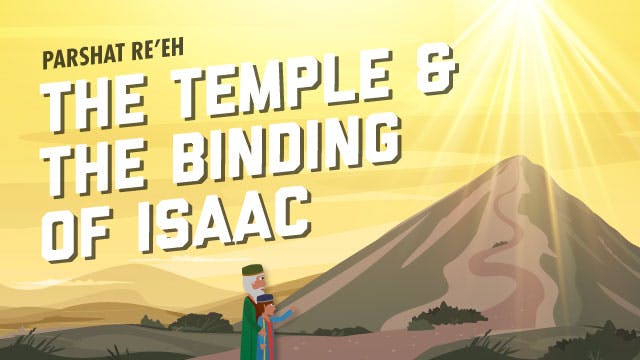
The Significance Of Mount Moriah In The Bible
Har HaMoriah. Mount Moriah. Where have you heard that before? It's the mountain where the Beit HaMikdash was built. And it shows up one other time in the Torah: in the binding of Isaac. Coincidence? We think not.
49 min

Did God Play Mind Games With Our Egyptian Masters?
In Parshat Re'eh, we are given the commandments relating to a Jew having a Jewish slave. But the laws seem strange: we give gifts to our slaves, and if they want to stay, we must pierce their ear? It can be difficult to relate to these ancient Hebrew laws, which hardly seem relevant thousands of years later. How are we supposed to understand the Jewish laws of slavery in a modern context?
11 min
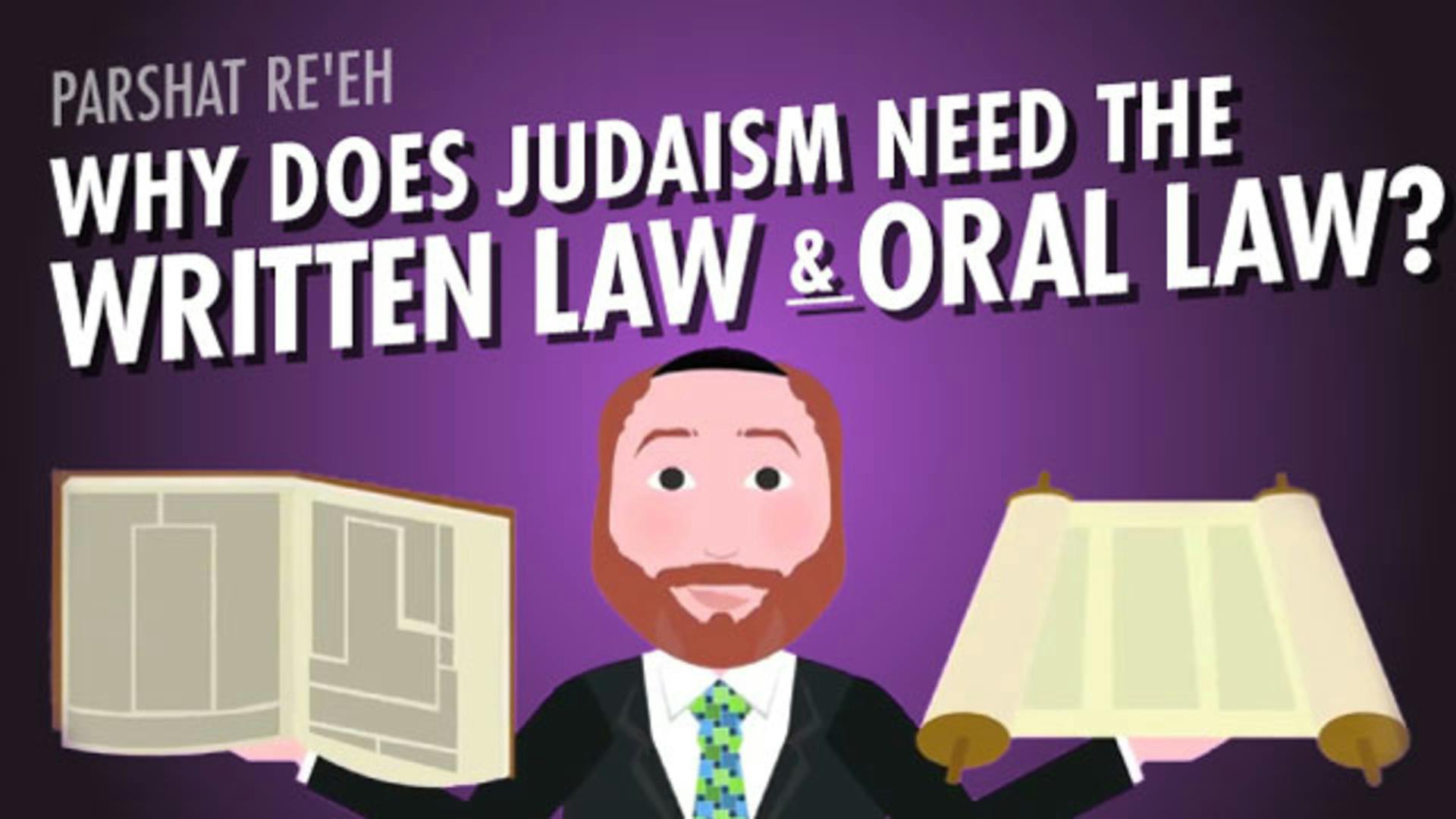
The Difference Between Written Law And Oral Law
Rabbi Fohrman tackles a difficult and controversial question: Why do the oral laws from the rabbis end up looking so different than the written biblical laws? Plus, what is the point of the two types of legalism inherent in our religion? In this video, Rabbi Fohrman argues that thought without action can wither away, and that laws are about finding spirituality in the mundane.
13 min
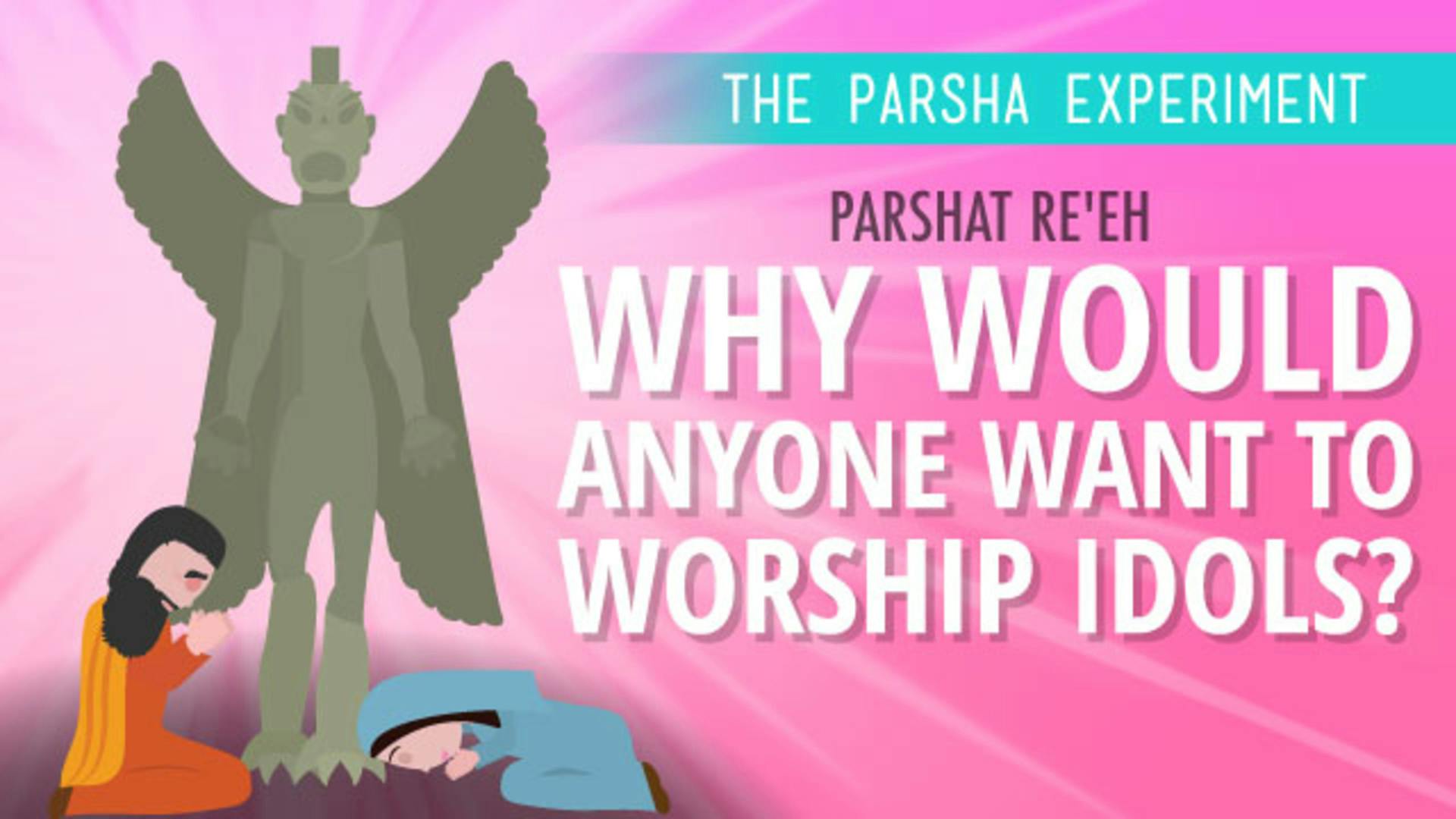
What Idol Worship Really Means
God doesn’t like foreign gods... but does He have to remind us over and over? And the people, too, seemed to be obsessed with foreign gods. What made avodah zarah so attractive, and therefore so destructive, that God needed to devote law after law to its eradication? And what does any of this have to do with us, today?
18 min

How Does God Really Feel About Child Sacrifice?
In the beginning of Parshat Re’eh, the Torah warns not to follow other gods that "we don’t know." Idolatry is prohibited, so why does it matter whether we "know” these other gods or not? Join Beth Lesch and Ami Silver as they re-examine the text and its parallels to Akeidat Yitzchak (Sacrifice of Isaac) and understand what it means to “know” God, and for God to “know” you.
33 min

Re'eh: The Strange Laws Of Jewish Slavery
A printable parsha guide for our Re'eh video, "The Strange Laws Of Jewish Slavery."

Re'eh: Why Does Judaism Need The Written Law And Oral Law?
A printable parsha guide for our Re'eh video, "Why Does Judaism Need The Written Law And Oral Law?"
Deuteronomy // Shoftim
Shoftim Torah Portion: Deuteronomy 16:18–21:9
In this parsha, we learn about the justice system. Kings are warned not to have too many possessions and that they must always travel with a Torah.
See the full summary and Parsha home page here.
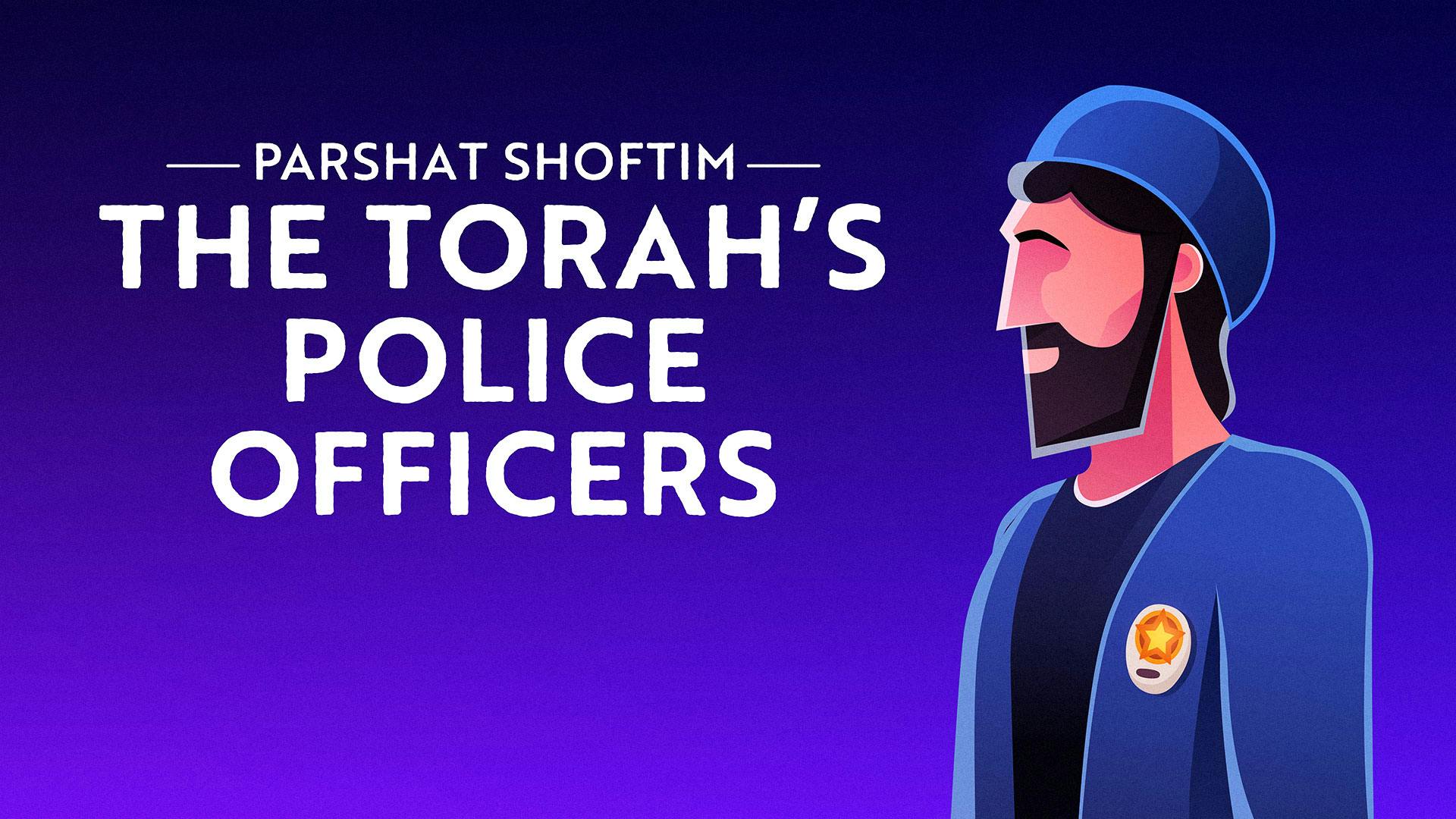
Shotrim: A Biblical Model for Leading With Humanity
In Parshat Shoftim, we're commanded to appoint police officers, shotrim. But there are strange parallels between these officers and another set of shotrim: the abusive officers in Egypt. What are these parallels trying to tell us? Watch and find out.
11 min
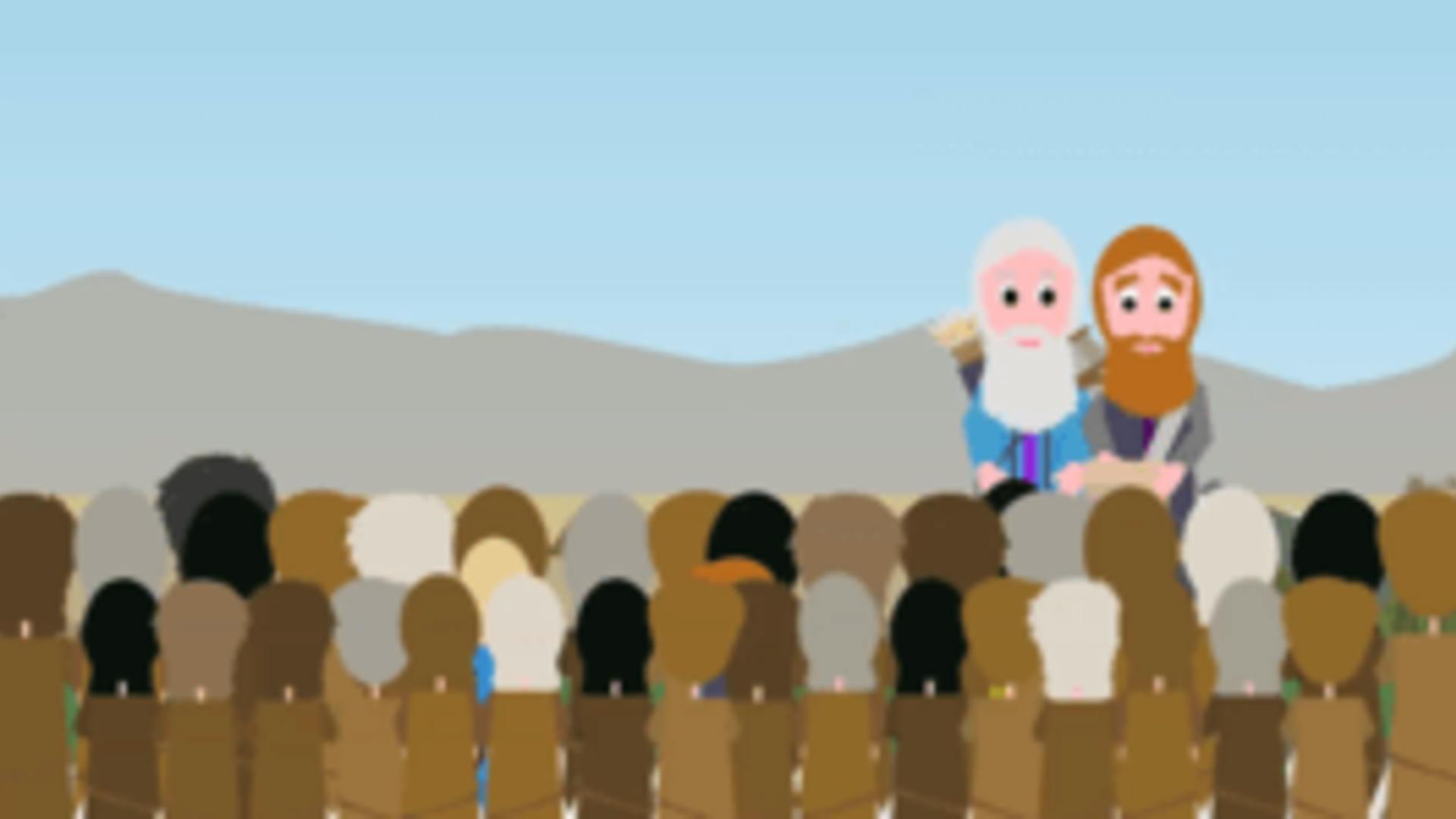
Shoftim: The Significance Of Saving Private Ryan
In this week’s Torah portion we learn about four types of people who are exempt from going to battle. What makes these people so unique? Why is their individual safety more important than the communal need? How can we as a nation reconcile individuality and community?
14 min
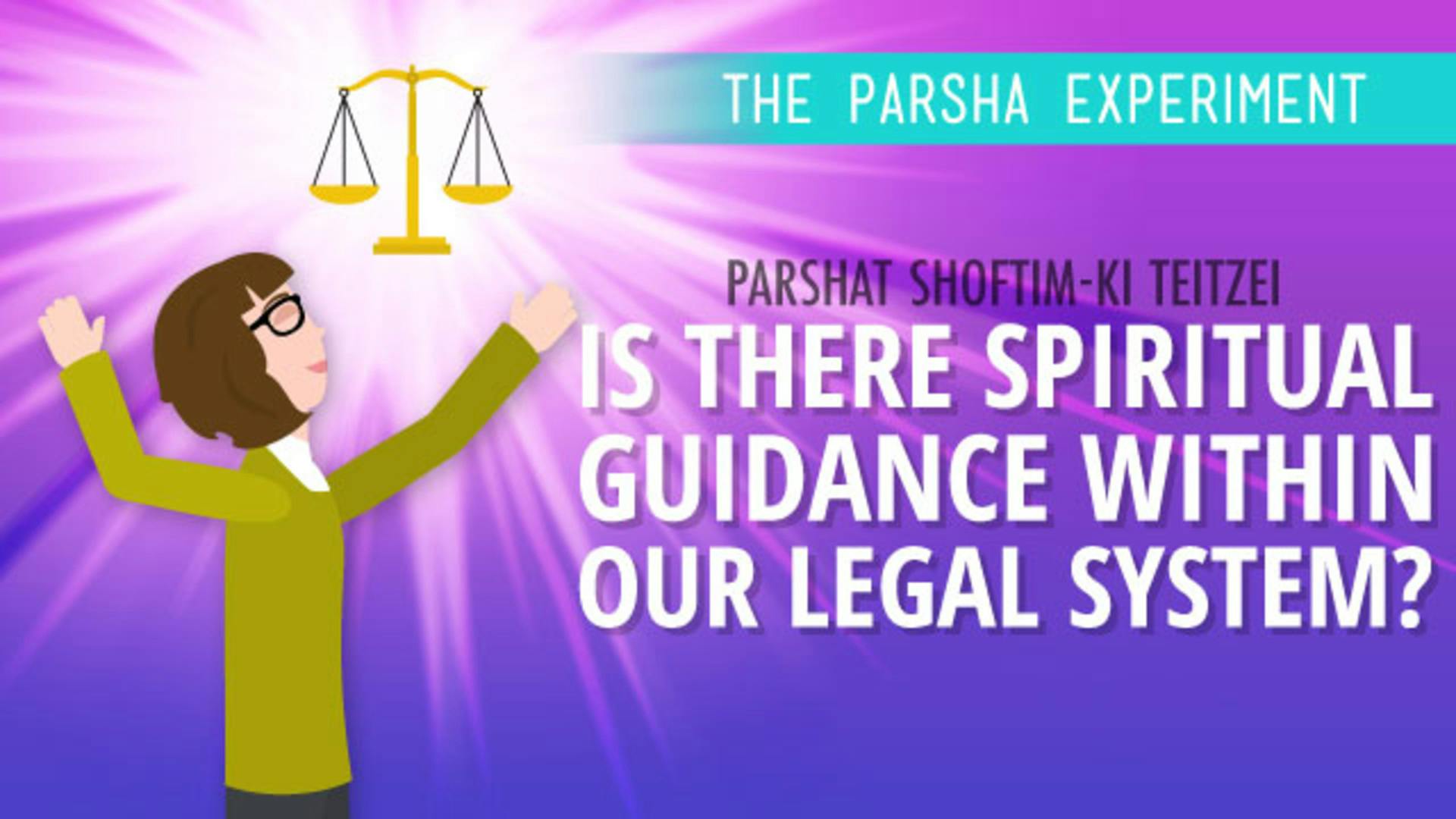
The Hidden Meaning Behind The List Of Laws In Deuteronomy
Last parsha, we began to suggest that all of these random laws are somehow related to the 10 commandments! But what is the larger message that this list of laws is coming to teach us?
Part 1 of 2 • 13 min
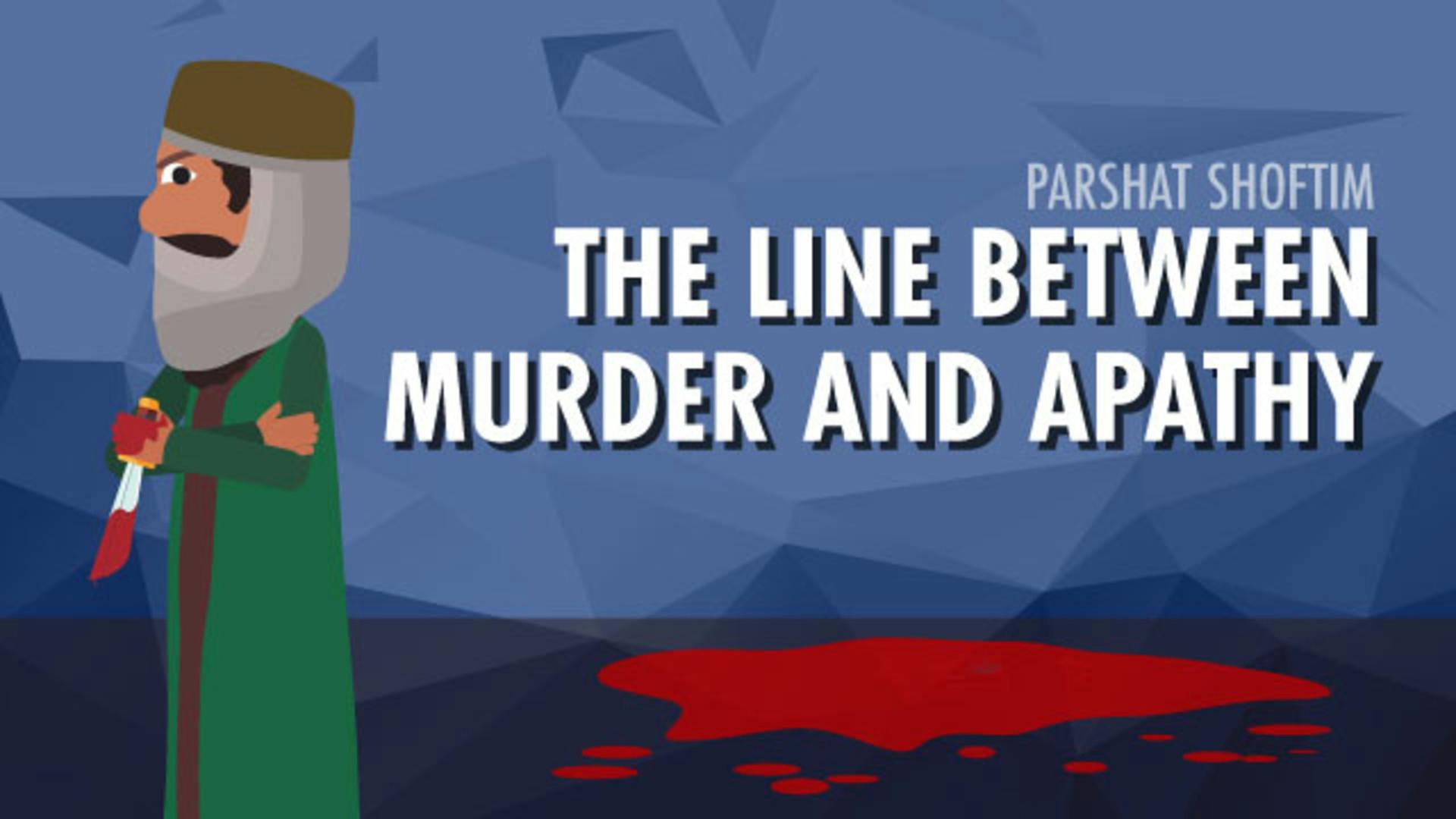
The Origin Of The Accidental Murder Laws In The Bible
In Parshat Shoftim, we are introduced to cities of refuge, a safe haven for one who kills accidentally. Interestingly, we've heard many of the same circumstances before in the Torah, but why? In this video, Rabbi Fohrman gives us a context to understand what lies beyond accidental murder, and how to become more sensitive individuals.
Part 1 of 3 • 12 min

Parshat Shoftim: What Does It Mean To Be A Fair Judge?
In Parshat Shoftim, we're given a detailed list of instructions as to how to establish a justice system. Yet there are seemingly random topics woven into these instructions, like idolatry, and how to properly offer an animal to God. Is there a reason for these odd interludes? Are they telling us something important about the justice system? Join Daniel Loewenstein and Beth Lesch as they consider what true justice in the Torah really is -- and never think of Parshat Shoftim the same.
28 min

Shoftim: The Line Between Murder And Apathy
A printable parsha guide for our Shoftim video, "The Line Between Murder And Apathy."

Shoftim: The Significance of Saving Private Ryan
A printable parsha guide for our Shoftim video, "The Significance of Saving Private Ryan."
Deuteronomy // Ki Teitzei
Ki Teitzei Torah Portion: Deuteronomy 21:10–25:19
In Ki Teitzei we learn about 74 different Mitzvot (commandments). The commandments range from inheritance laws, to returning lost objects, to building a fence on one's roof, to loaning with interest, collecting debt, divorce, and more. We also read about the commandment to remember what Amalek did to us.
See the full summary and Parsha home page here.
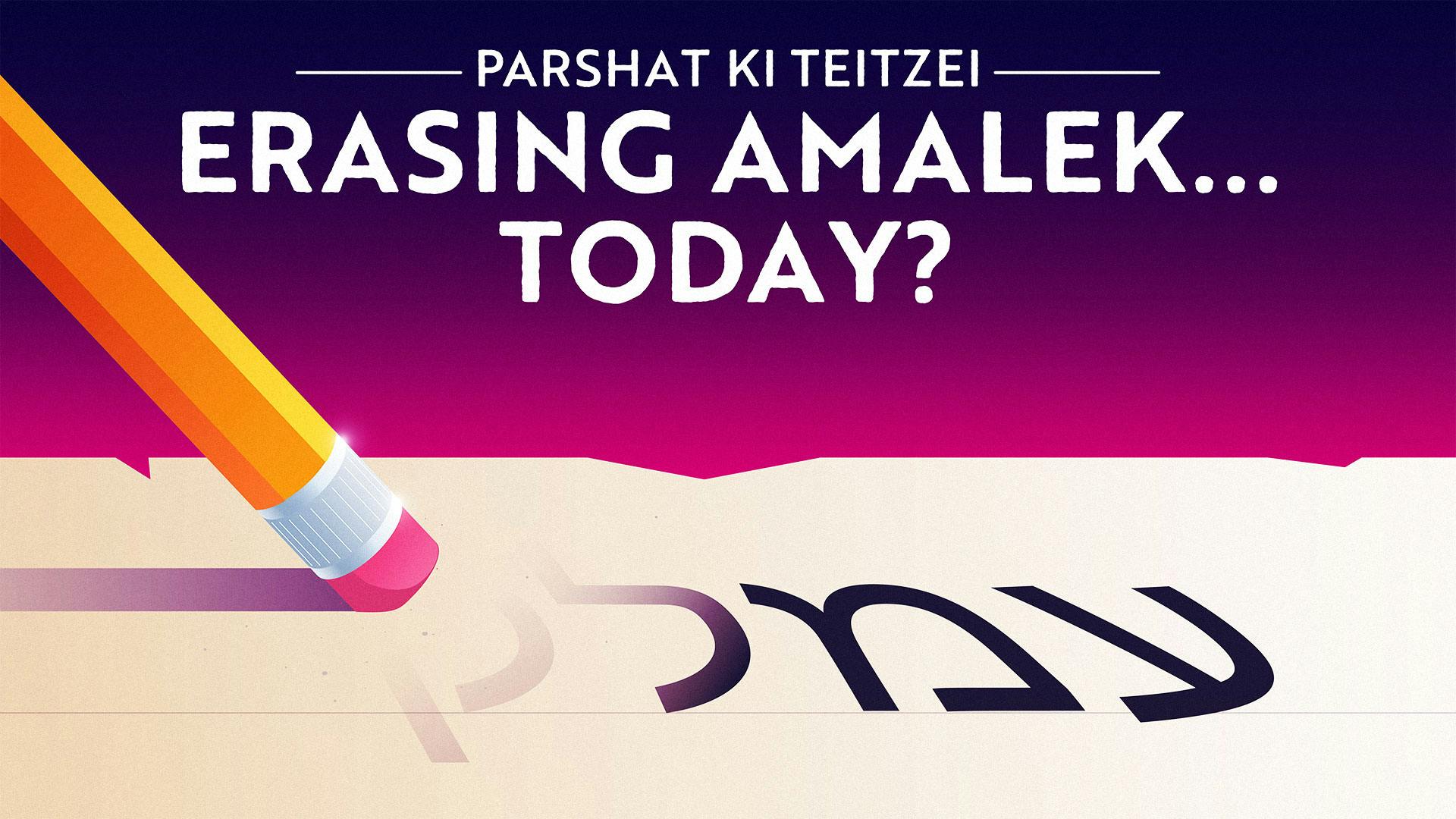
How To Combat The Evil Of Amalek Today
The mitzvah to erase Amalek's memory is both troubling and confusing. But what if there's more to it than meets the eye? This video will give you a whole new understanding of what this mitzvah means.
15 min
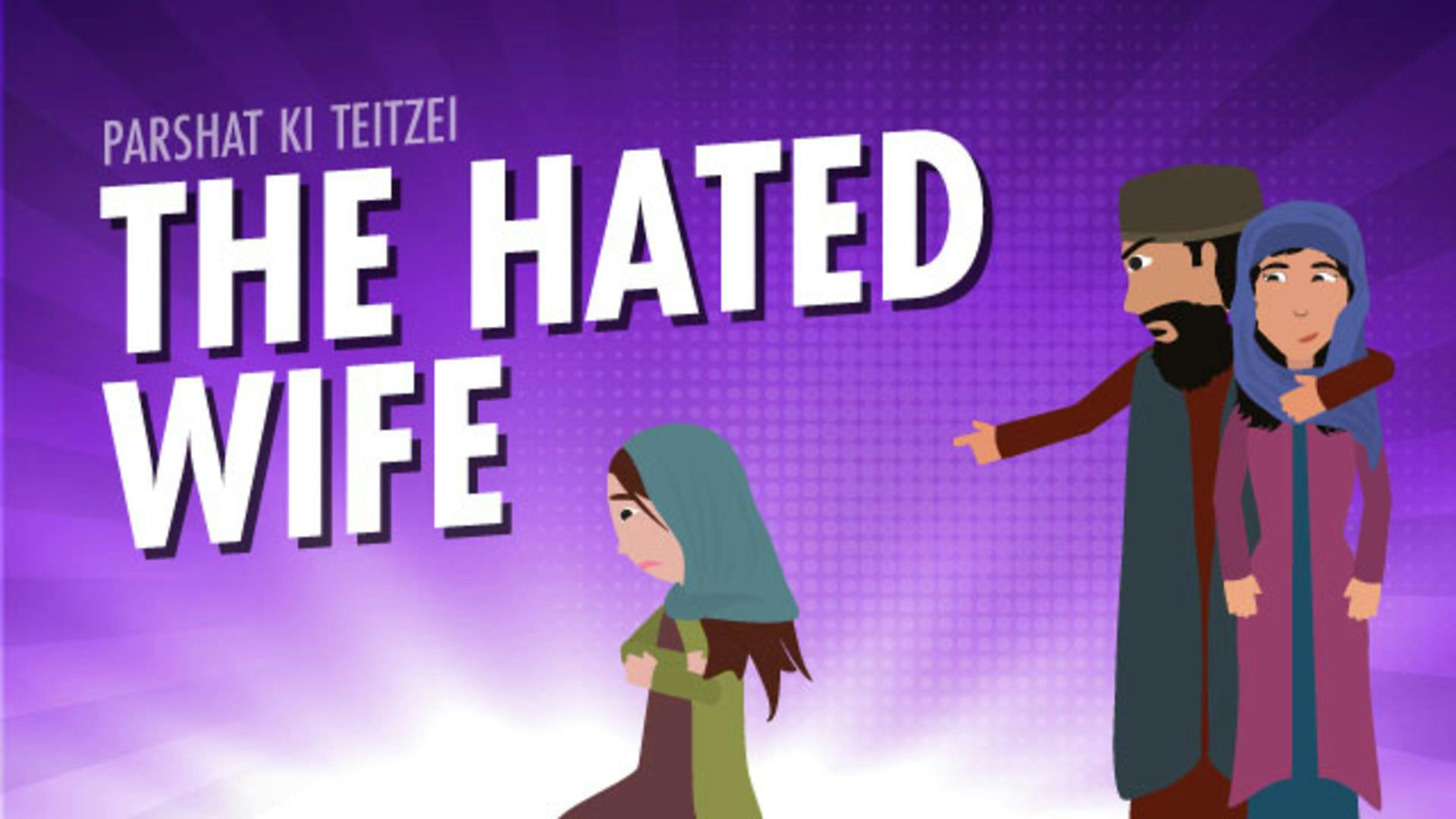
The Strange Laws Of Firstborn Inheritance In The Bible
Parshat Ki Teitzei discusses the Torah's laws about a man with two wives, one who he loves, and one who he hates. Rabbi Fohrman suggests that this legal section of text is a hint to the story of Jacob and his wives.
11 min

A Hidden Message About Honoring Our Mothers
The promise for long life only comes from two commandments: honoring your parents and sending away a mother bird before taking her young. What's the connection? Rabbi Fohrman brings new light to this strange commandment and explains why its reward is long life.
13 min

The Hidden Meaning Behind The List Of Laws In Deuteronomy
Last parsha, we began to suggest that all of these random laws are somehow related to the 10 commandments! But what is the larger message that this list of laws is coming to teach us?
Part 1 of 2 • 13 min

The Surprising Backstory Of Shiluach Hakan
See how Shiluach Hakan – the law of shooing away the mother bird before taking her eggs – is tied to a pivotal story from the Book of Genesis.
Part 1 of 4 • 16 min

Remember Amalek; Don't Forget
Parshat Ki Teitzei includes the commandment to wipe out the memory of Amalek, the nation who attacked the Israelites after the Exodus. What did they do that was so evil that they deserve to be completely erased from history? Our parsha holds a surprising key to the Amalek puzzle, through another mitzvah that touches on themes of memory and erasing. Looking at these two mitzvot together opens up a new understanding of the battle with Amalek, what it meant for the Israelites, and what it means today.
24 min

The Rise Of Antisemitism: A Glimpse Into Amalek’s Tortured Soul
Antisemitism. Where did it all originate and can we trace it through the Tanahk? Rabbi Fohrman argues that it may have begun with the story of Amelek, which is widely known as one of the most mystifying and difficult episodes in the Torah.
Part 1 of 11 • 1 hour, 23 min

Ki'Teitzei: The Hated Wife
A printable parsha guide for our Ki'Teitzei video, "The Hated Wife."

Ki Teitzei: How To Merit Long Life
A printable parsha guide for our Ki Teitzei video, "How To Merit Long Life."
Deuteronomy // Ki Tavo
Ki Tavo Torah Portion: Deuteronomy 26:1–29:8
In Ki Tavo’s Torah reading, we learn about many laws pertaining to the land of Israel, specifically, the laws of tithing our produce. Then God promises us dark, sadistic curses if we fail Him. It's difficult to read – how could God be so cruel?
See the full summary and Parsha home page here.
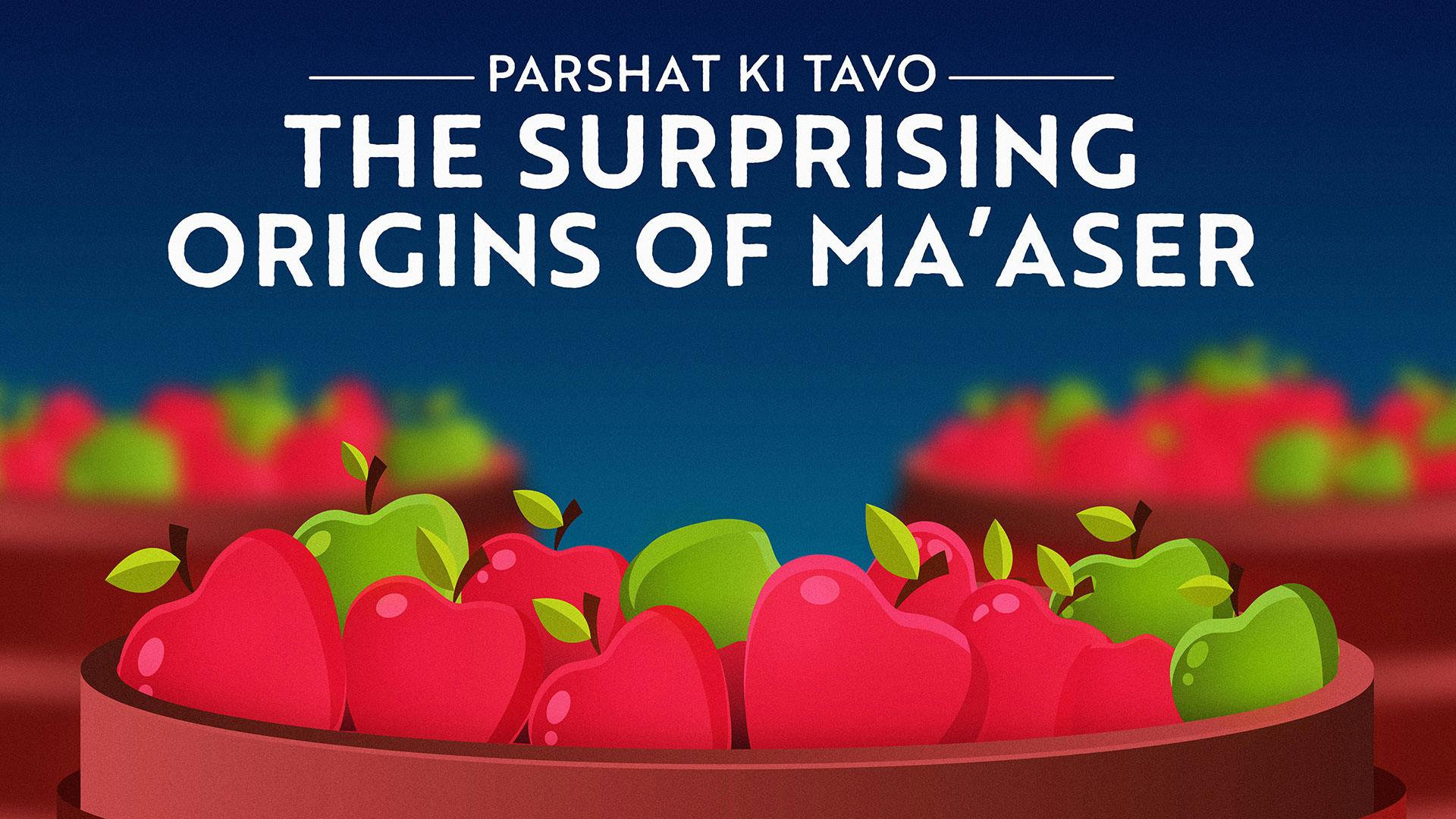
Where Does Tithing Come From In The Bible?
Ki Tavo describes for us the law of ma’aser, tithing, and the law of vidui ma’aser, the declaration of ma’aser. But why isn’t it enough to give ma’aser? Why the spectacle of the dramatic statement?
Part 1 of 2 • 14 min

Ki Tavo: Why Would God Curse Us For Not Being Happy?
Parshat Ki Tavo lists the blessings that will come if we keep God’s commandments and the curses that will follow if we don’t. But it also says that to be blessed, we need to serve God “with joy.” Isn’t it enough to keep the commandments? And what is this “joy” supposed to look like, anyway? The key to answering these questions may be in two seemingly unrelated commandments from Parshat Ki Tavo itself. Join Beth Lesch and Ari Levisohn as they uncover a startling pattern that links first fruits and a stone altar to this mysterious verse about rejoicing while we serve God.
36 min

Bikkurim: The Historical Significance Of The First Fruits Offering
Parshat Ki Tavo introduces the topic of bikkurim, the offering of first fruits. But Rabbi Fohrman notes some oddities in the text and asks why the Torah would paint such a confusing picture, and what are these mysterious silences?
9 min
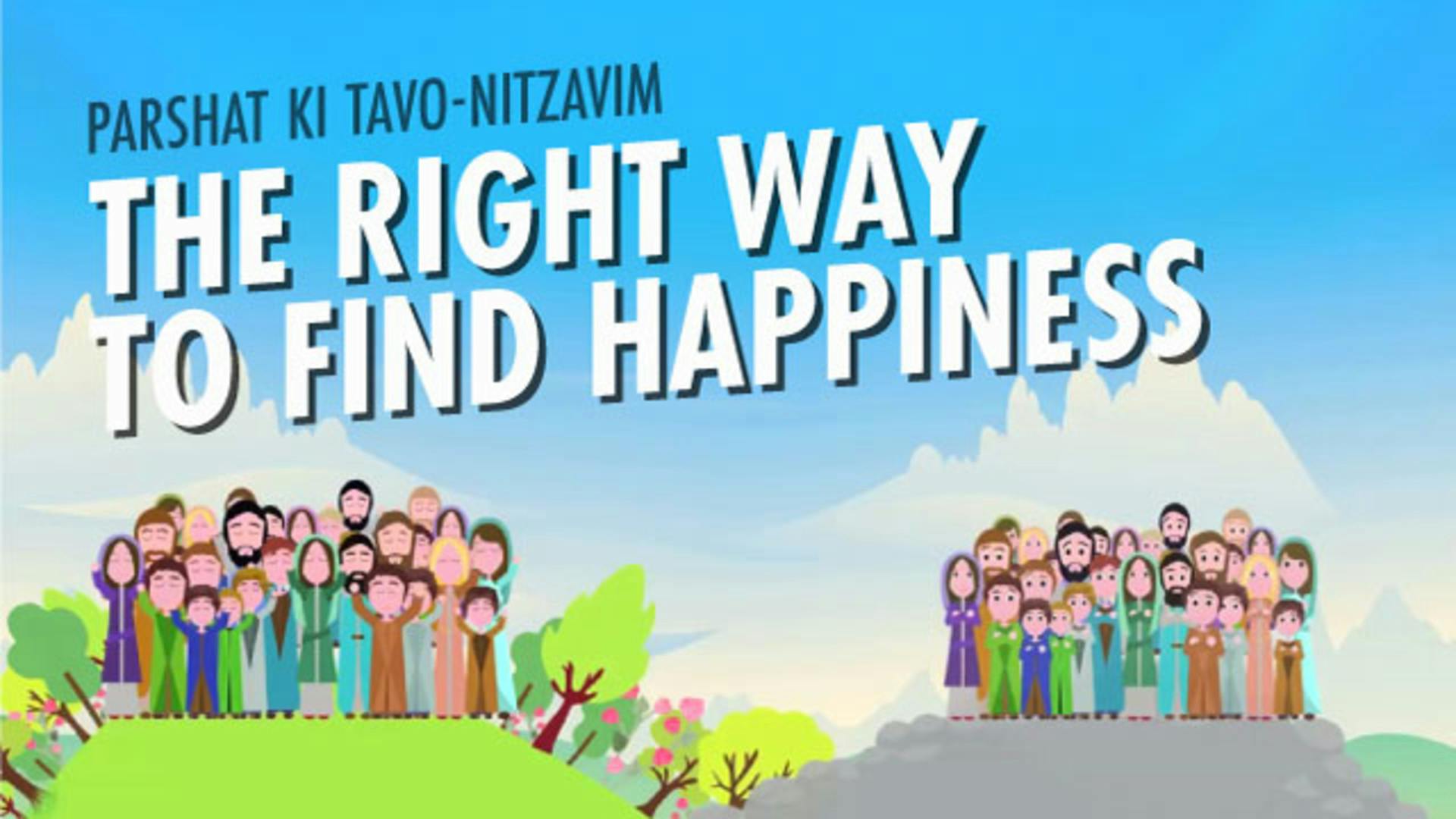
What Does The Bible Say About True Happiness?
The first section of Parshat Ki Tavo tells us what a farmer must declare after offering Bikkurim, the first fruit. The second section lists the blessings and curses that will befall Israel depending on whether they keep their covenant with God. What is the common message that unifies this parsha? In this two part series, extending to Nitzavim, Rabbi Fohrman uncovers a hidden message of how to find true happiness.
Part 1 of 2 • 12 min
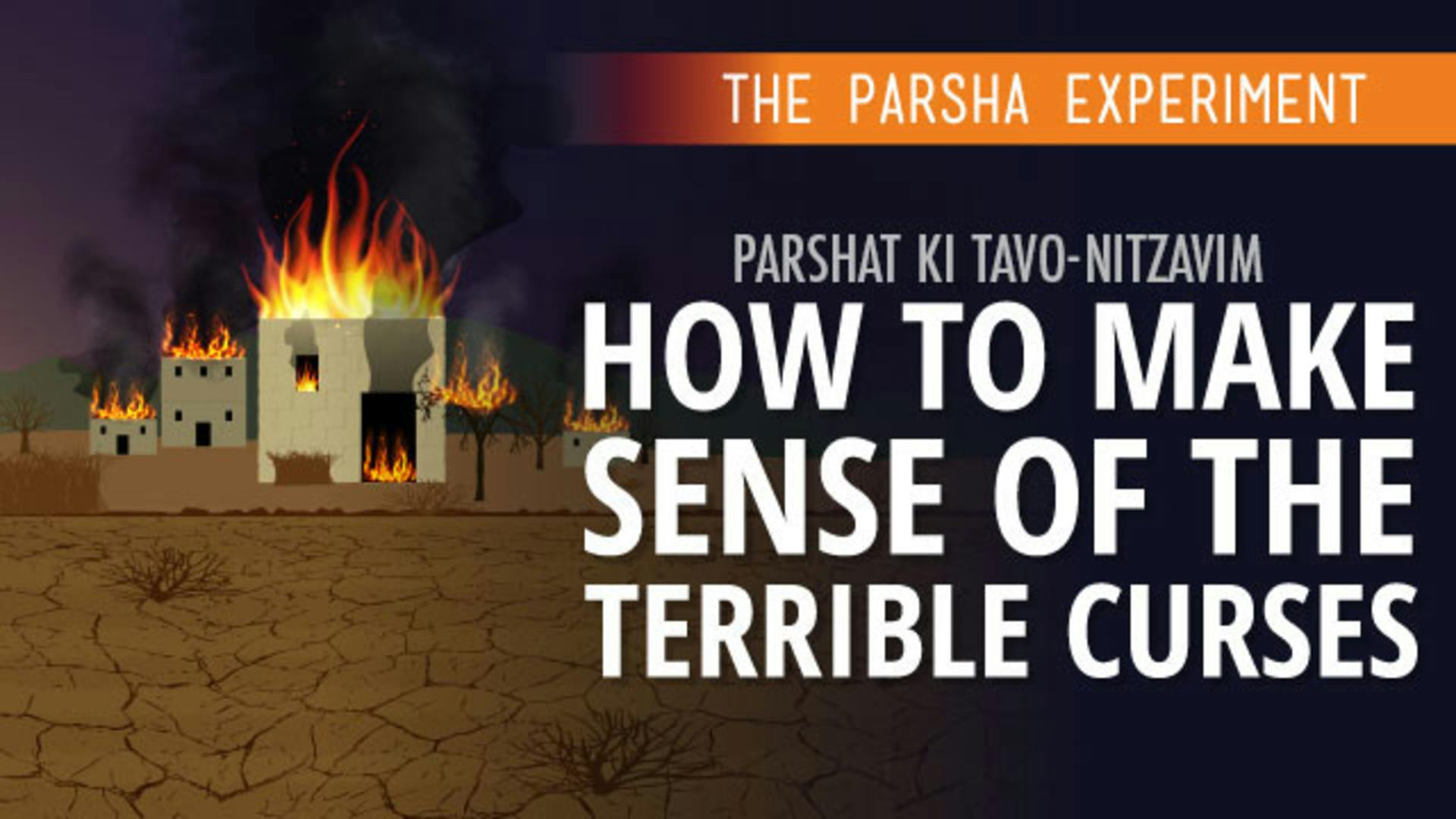
How Do We Explain The Curses In Deuteronomy?
God promises us dark, sadistic curses, if we don't live up to our responsibilities to Him. Parshat Ki Tavo is so difficult to read, how could God be so cruel to us? This video grapples with the incredibly difficult curses of Ki Tavo.
Part 1 of 2 • 15 min
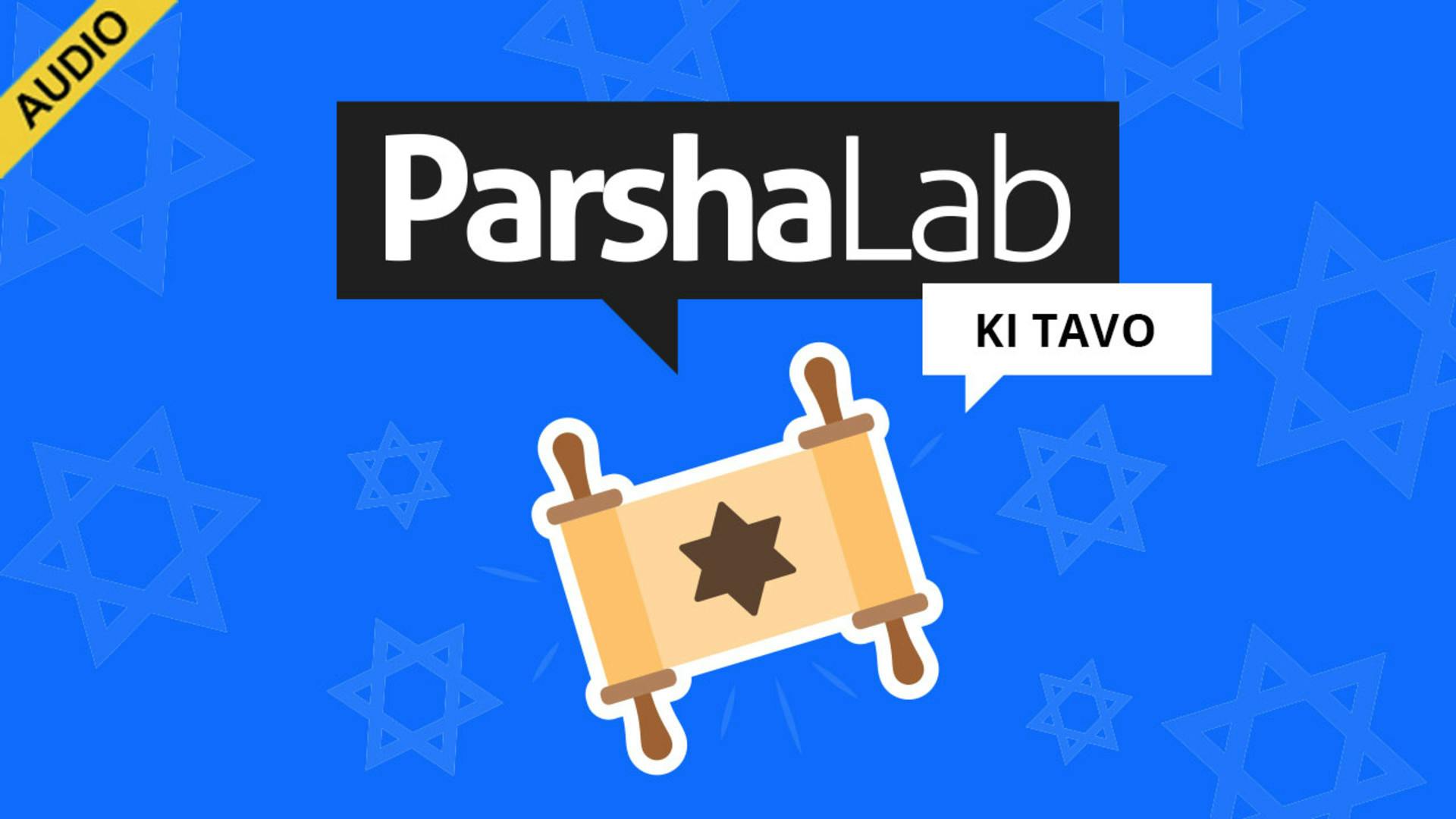
What Are Blessings And Curses, Really?
In Parshat Ki Tavo, the Israelites are told how they should publicly bless those who keep God's commandments, and curse those who violate them, making declaration from two specific mountains – Mount Gerizim and Mount Eval. But what's so special about these mountains, and why must it be so public? Daniel Loewenstein and Beth Lesch explore the gematria, grammar and topography hidden in Ki Tavo to understand what blessings and curses really mean.
22 min

Ki Tavo: How To Take Your Place In Jewish History
A printable parsha guide for our Ki Tavo video, "How To Take Your Place In Jewish History."

Ki Tavo: The Pursuit Of Happiness, Part 1
A printable parsha guide for our Ki Tavo video, "The Pursuit Of Happiness, Part 1."
Deuteronomy // Nitzavim
Nitzavim Torah Portion: Deuteronomy 29:9–30:20
In this parsha, Moses tells us that we have a fundamental freedom to choose. We can choose blessing or curse, and we need to choose the blessing.
See the full summary and Parsha home page here.
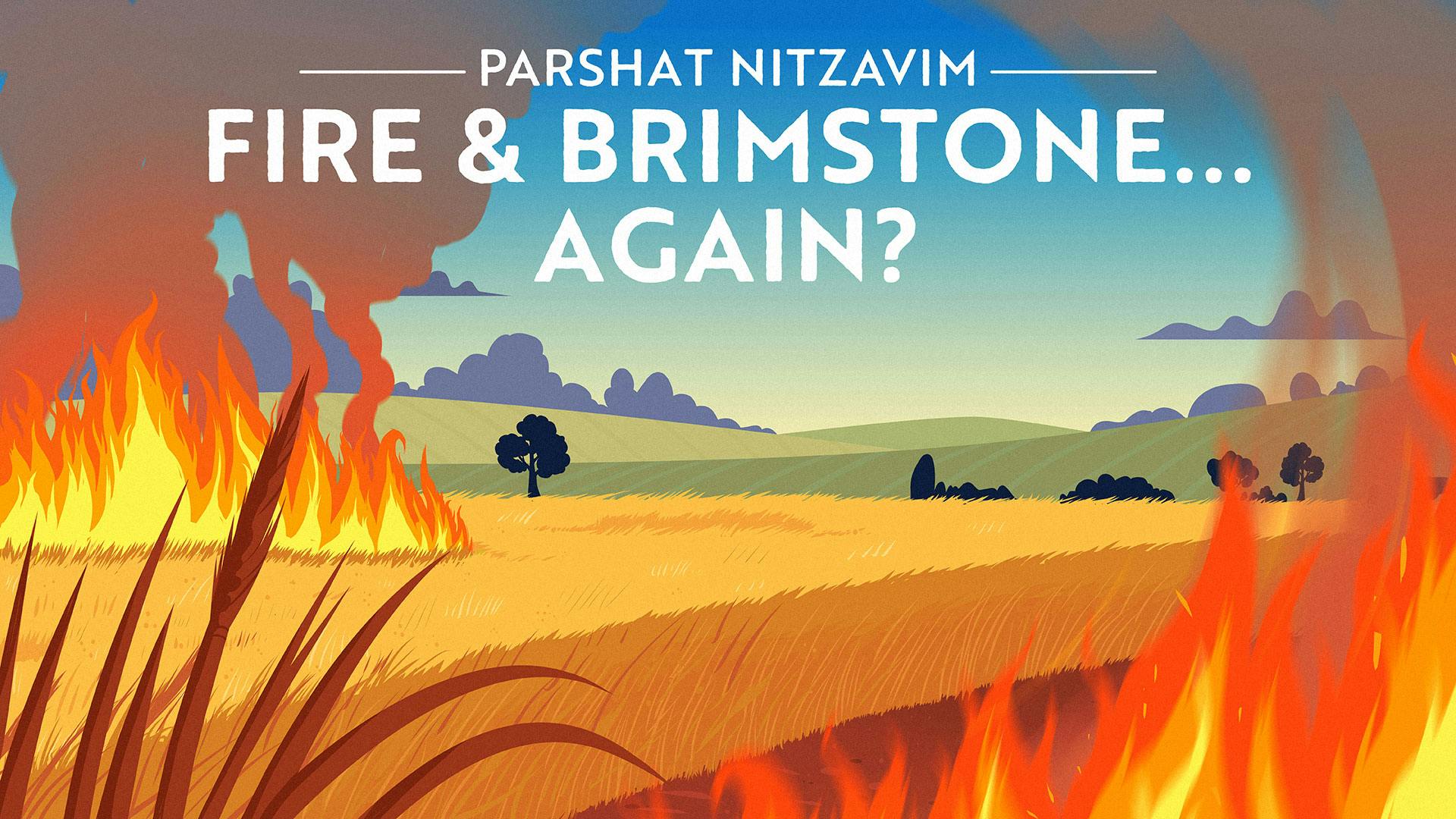
The Surprising Relationship Between Blessing And Curses In The Bible
God only warns us about a Sodom-like punishment once in the Torah. But for what sin, and why? Watch and find out.
16 min

Nitzavim-Vayelech: Do One Person's Actions Really Matter?
Parshat Nitzavim warns that in the future, there might be someone who goes astray after other gods. God will “separate” that person for punishment, and future generations will see that the land was destroyed for this sin, “like Sodom and Gomorrah.” But wait, that doesn’t make sense! If God punishes guilty individuals, how do we get to the entire land being destroyed? Join Ari Levisohn and Tikva Hecht as they explore this cryptic warning and uncover a message about the power of individual responsibility. Check out Daniel Loewenstein's video on the links between Parshat Nitzavim and the Sodom story: The Surprising Relationship Between Blessing and Curses in the Bible
30 min
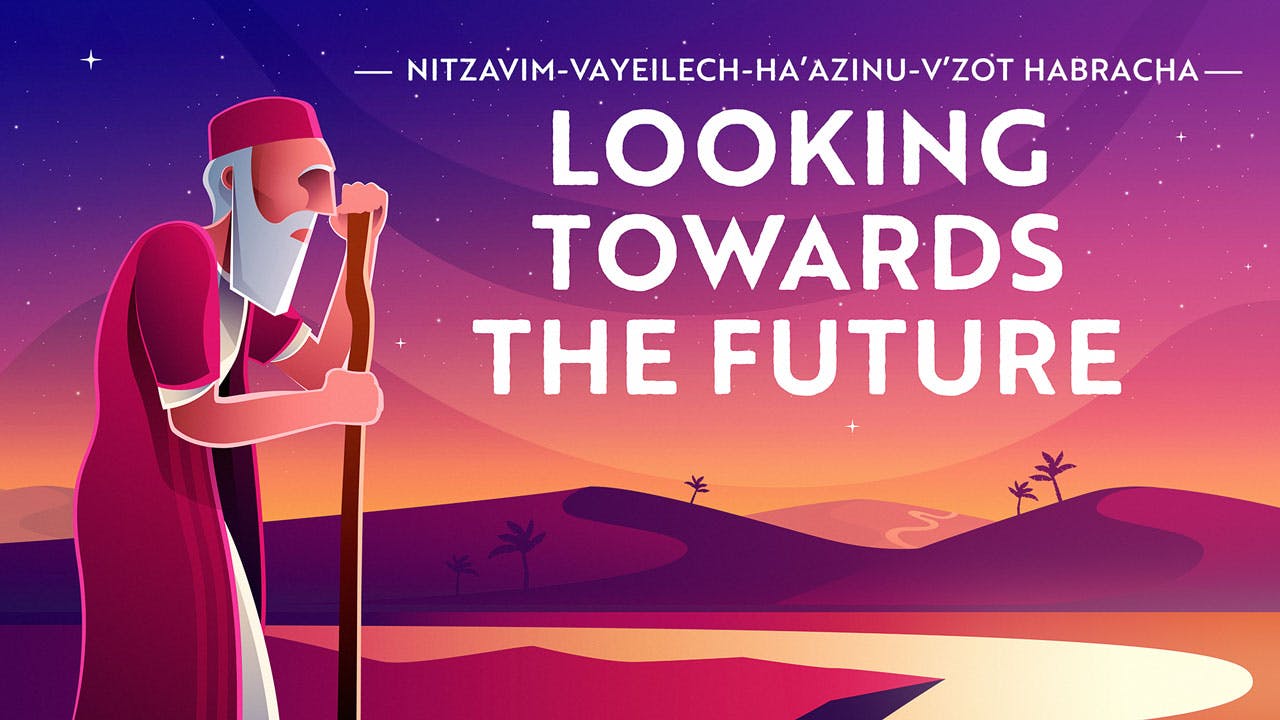
Shirat Ha'azinu: The Song Of Moses
In this video, the first of a three-part series, we ask about God's odd prophecy to Moses at the end of the Torah. As Moses is about to die, why does God tell him about how the Israelites will ruin everything? Rabbi Fohrman hints that Moses has the power to help us get out of a vicious cycle.
Part 1 of 3 • 11 min

What Does The Bible Say About True Happiness?
The first section of Parshat Ki Tavo tells us what a farmer must declare after offering Bikkurim, the first fruit. The second section lists the blessings and curses that will befall Israel depending on whether they keep their covenant with God. What is the common message that unifies this parsha? In this two part series, extending to Nitzavim, Rabbi Fohrman uncovers a hidden message of how to find true happiness.
Part 1 of 2 • 12 min

How Do We Explain The Curses In Deuteronomy?
God promises us dark, sadistic curses, if we don't live up to our responsibilities to Him. Parshat Ki Tavo is so difficult to read, how could God be so cruel to us? This video grapples with the incredibly difficult curses of Ki Tavo.
Part 1 of 2 • 15 min

Nitzavim: The Pursuit of Happiness, Part 2
A printable parsha guide for our Nitzavim video, "The Pursuit of Happiness, Part 2."

Nitzavim: Where's the Happy Ending
A printable parsha guide for our Nitzavim video, "Where's the Happy Ending."
Deuteronomy // Vayelech
Vayelech Torah Portion: Deuteronomy 31:1-30
Vayelech recounts the end of Moses’s life. He gives Joshua the mantle of leadership, and tells the people of Israel that though they will turn from God, causing God to turn from them. He will come back.
See the full summary and Parsha home page here.

What The Bible Says About Learning To Fear God
Why is Moshe teaching people about Hakhel right as he's preparing to die? What does it have to do with fear of God? And why is it so important?
Part 1 of 2 • 14 min

Nitzavim-Vayelech: Do One Person's Actions Really Matter?
Parshat Nitzavim warns that in the future, there might be someone who goes astray after other gods. God will “separate” that person for punishment, and future generations will see that the land was destroyed for this sin, “like Sodom and Gomorrah.” But wait, that doesn’t make sense! If God punishes guilty individuals, how do we get to the entire land being destroyed? Join Ari Levisohn and Tikva Hecht as they explore this cryptic warning and uncover a message about the power of individual responsibility. Check out Daniel Loewenstein's video on the links between Parshat Nitzavim and the Sodom story: The Surprising Relationship Between Blessing and Curses in the Bible
30 min

Shirat Ha'azinu: The Song Of Moses
In this video, the first of a three-part series, we ask about God's odd prophecy to Moses at the end of the Torah. As Moses is about to die, why does God tell him about how the Israelites will ruin everything? Rabbi Fohrman hints that Moses has the power to help us get out of a vicious cycle.
Part 1 of 3 • 11 min

Moses’s Psalm: A Paradigm Of God Answering Prayer
How did Moses feel when approaching the land of Israel, knowing he wouldn’t be entering the land with his people? This video is the first in a series of three, concluding the yearly Torah cycle, where we will attempt to get inside the head of Moses at the end of his journey as the leader of the Israelites.
Part 1 of 3 • 15 min
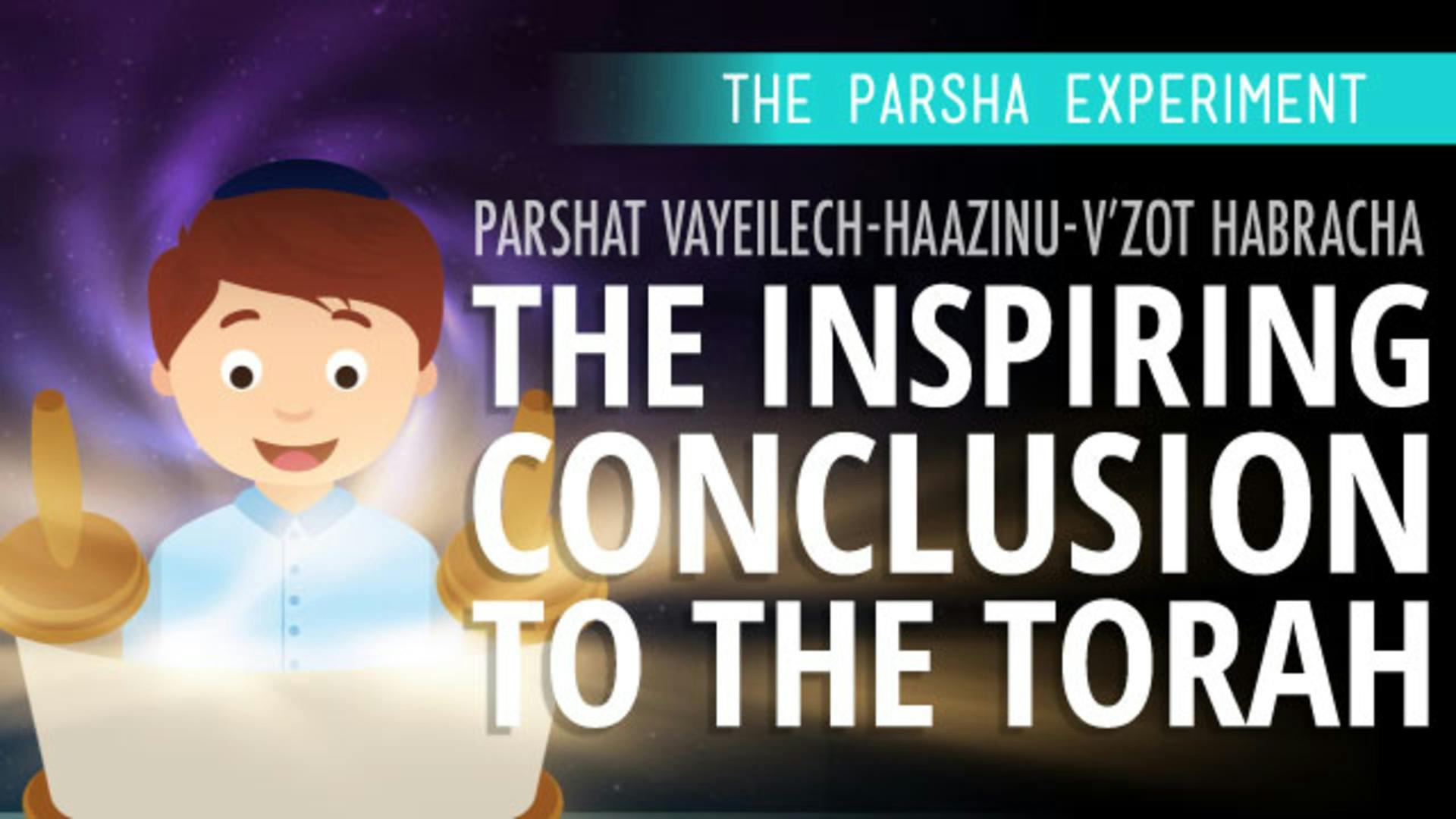
Moshe's Death: How Would You End The Torah?
After taking a journey through this book, learning about The Creator’s choice to teach us how we can come close to Him and achieve purpose in our lives, how will it end?
Part 1 of 2 • 15 min

What's Wrong With Moses’ Leadership?
Parshat Vayeilech records Moses’ farewell speech on the last day of his life, where he reminds the people that he won’t be leading them into Israel and that Joshua will take over his position. But when you look closely at what Moses says about Joshua, you can’t help but ask, was Moses trying to sabotage Joshua's leadership, or warn the people about something? Beth Lesch and Daniel Loewenstein discover a hidden narrative in the Torah about the dangers of leadership.
26 min

Nitzavim-Vayeilech: Where's The Happy Ending?
A printable parsha guide for our Nitzavim-Vayeilech video, "Where's The Happy Ending?"

Vaeyilech: Moses' Farewell To Israel, Part 1
A printable parsha guide for our Vaeyilech video, "Moses' Farewell To Israel, Part 1."
Deuteronomy // Ha'azinu
Torah Portion: Deuteronomy 32:1–52
Moses composes a song to the Jewish people on the last day of his life. Moses goes to Mount Nebo to look at the land of Israel before passing away at the age of 120.
See the full summary and Parsha home page here.

Shirat Ha'azinu: The Song Of Moses
In this video, the first of a three-part series, we ask about God's odd prophecy to Moses at the end of the Torah. As Moses is about to die, why does God tell him about how the Israelites will ruin everything? Rabbi Fohrman hints that Moses has the power to help us get out of a vicious cycle.
Part 1 of 3 • 11 min

Moses’s Psalm: A Paradigm Of God Answering Prayer
How did Moses feel when approaching the land of Israel, knowing he wouldn’t be entering the land with his people? This video is the first in a series of three, concluding the yearly Torah cycle, where we will attempt to get inside the head of Moses at the end of his journey as the leader of the Israelites.
Part 1 of 3 • 15 min

Moshe's Death: How Would You End The Torah?
After taking a journey through this book, learning about The Creator’s choice to teach us how we can come close to Him and achieve purpose in our lives, how will it end?
Part 1 of 2 • 15 min

Is Ha’azinu The Song Of Doom?
In Parshat Ha’azinu, the Israelites receive a frightening prophetic “song” about their future failure to follow God’s will, and the punishment they receive as a result. When Moshe introduces this prophecy, he states that he hopes his speech will fall “ke-se’irim alei desheh” -- like some sort of ‘rain upon grass.’ What does that mean? And why is it stated as an introduction to the song? Join Daniel Loewenstein and Ami Silver as they explore the hidden layers of meaning in Ha’azinu, and the crucial questions it raises for us today.
31 min

Ha'azinu: A Unique Nation
A printable parsha guide for our Ha'azinu video, "A Unique Nation."

Ha'azinu: Moses' Farewell To Israel, Part 2
A printable parsha guide for our Ha'azinu video, "Moses' Farewell To Israel, Part 2."
Deuteronomy // V'zot Habracha
Torah Portion: Deuteronomy 33:1–34:12
V'Zot Habracha is the final parsha of the Torah. Usually it is read on Simchat Torah. In the Parsha, Moses blesses each of the tribes and it ends with the passing of Moses.
See the full summary and Parsha home page here.

Shirat Ha'azinu: The Song Of Moses
In this video, the first of a three-part series, we ask about God's odd prophecy to Moses at the end of the Torah. As Moses is about to die, why does God tell him about how the Israelites will ruin everything? Rabbi Fohrman hints that Moses has the power to help us get out of a vicious cycle.
Part 1 of 3 • 11 min

Moses’s Psalm: A Paradigm Of God Answering Prayer
How did Moses feel when approaching the land of Israel, knowing he wouldn’t be entering the land with his people? This video is the first in a series of three, concluding the yearly Torah cycle, where we will attempt to get inside the head of Moses at the end of his journey as the leader of the Israelites.
Part 1 of 3 • 15 min

Moshe's Death: How Would You End The Torah?
After taking a journey through this book, learning about The Creator’s choice to teach us how we can come close to Him and achieve purpose in our lives, how will it end?
Part 1 of 2 • 15 min

Moshe’s Final Farewell
In the Torah’s final parsha, Moshe is preparing to take leave of the nation he has been so devoted all of these years. He gives them blessings before taking his final departure. He then ascends a mountain and is laid to rest in an unknown burial place. Or is it? A careful reading of Moshe’s blessings may give us clues as to where he was buried. The significance of this is not so much about identifying the geographical location of his grave, as it is about teaching us a profound lesson in loyalty, brotherhood and redeeming unfulfilled dreams. Join us for a deep look at the Torah’s bittersweet ending.
36 min

Why Couldn't Moses Enter The Land?
Moses was barred from entering the land because he struck the rock, right? Turns out it's not so simple. Understand why our greatest leader was deprived of the opportunity to step foot in the Promised Land.
Part 1 of 7 • 55 min

V'Zot Habracha: Looking Towards The Future
A printable parsha guide for our V'Zot Habracha video, "Looking Towards The Future."

V'Zot Habracha: Moses' Farewell To Israel, Part 3
A printable parsha guide for our V'Zot Habracha video, "Moses' Farewell To Israel, Part 3."

